


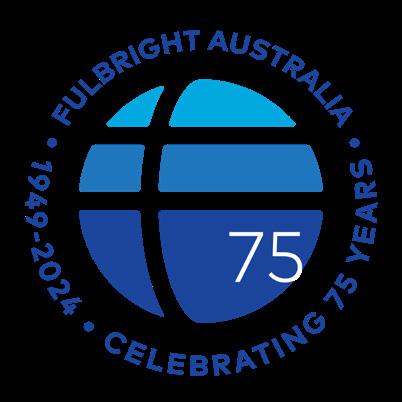





The Fulbright Program is the flagship foreign exchange scholarship program of the United States of America, aimed at increasing binational collaboration, cultural understanding, and the exchange of ideas.
Born in the aftermath of WWII, the program was established by Senator J. William Fulbright in 1946 with the ethos of turning ‘swords into ploughshares’, whereby credits from the sale of surplus U.S. war materials were used to fund academic exchanges between host countries and the U.S.
Since its establishment, the Fulbright Program has grown to become the largest educational exchange program in the world, operating in over 160 countries. In its seventy five year history, more than 370,000 students, academics, and professionals have received Fulbright Scholarships to study, teach, or conduct research, and promote bilateral collaboration and cultural empathy.
Since its inception in Australia in 1949, Fulbright has awarded over 5,000 scholarships, creating a vibrant, dynamic, and interconnected network of Alumni.
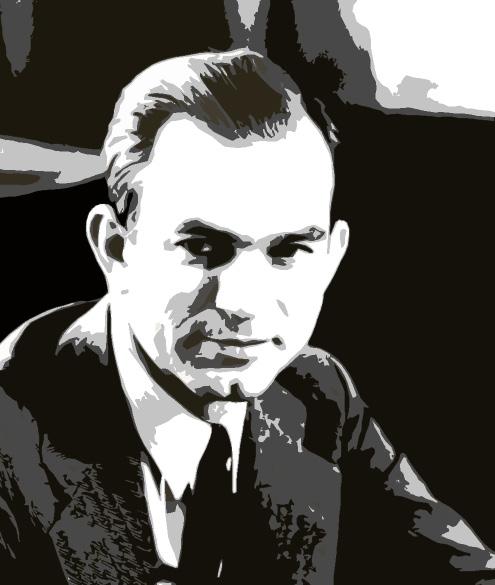
Our future is not in the stars but in our own minds and hearts.
Creative leadership and liberal education, which in fact go together, are the first requirements for a hopeful future for humankind.
Fostering these—leadership, learning, and empathy between cultures—was and remains the purpose of the international scholarship program that I was privileged to sponsor in the U.S. Senate over forty years ago. "
Senator J. William Fulbright The Price of Empire
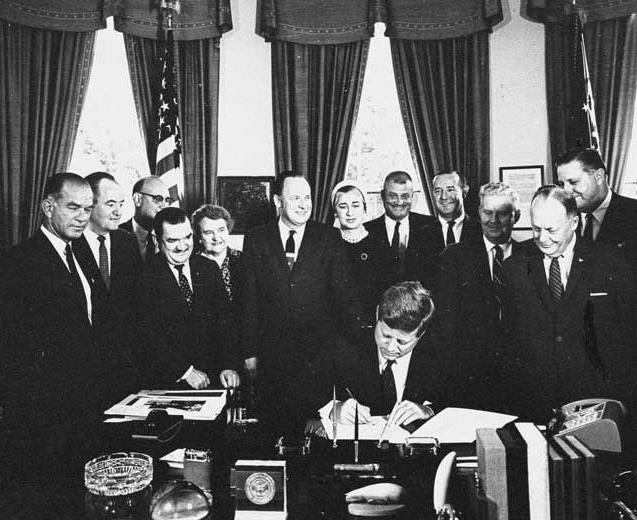
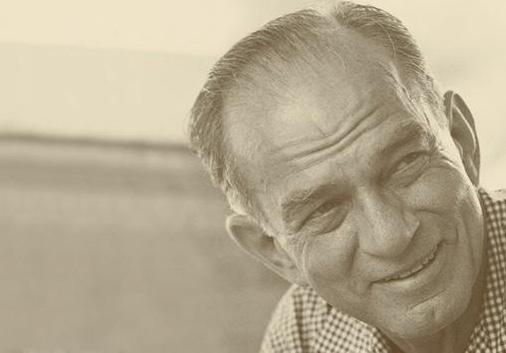
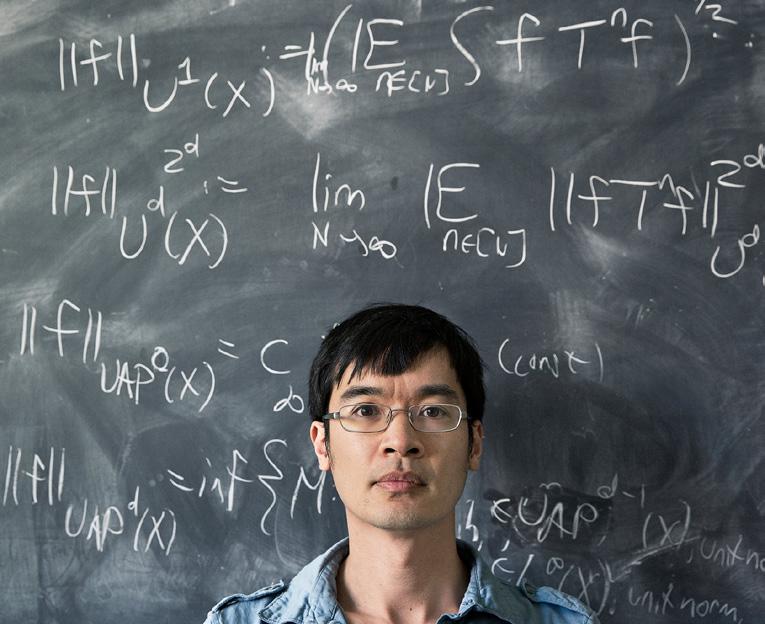
The Fulbright Program in Australia has been a cornerstone of academic and cultural exchange for over 75 years. Established in 1949, it has fostered mutual understanding, collaboration, and groundbreaking research between Australia and the United States. This timeline highlights key milestones, achievements, and the profound impact of Fulbright alumni on both nations.
This is a living document, built upon the timeline created by Dr Alice Garner for the 65th anniversary in 2014. It will be continually updated as new stories come to light -- if you'd like to see your story featured, please reach out to us!
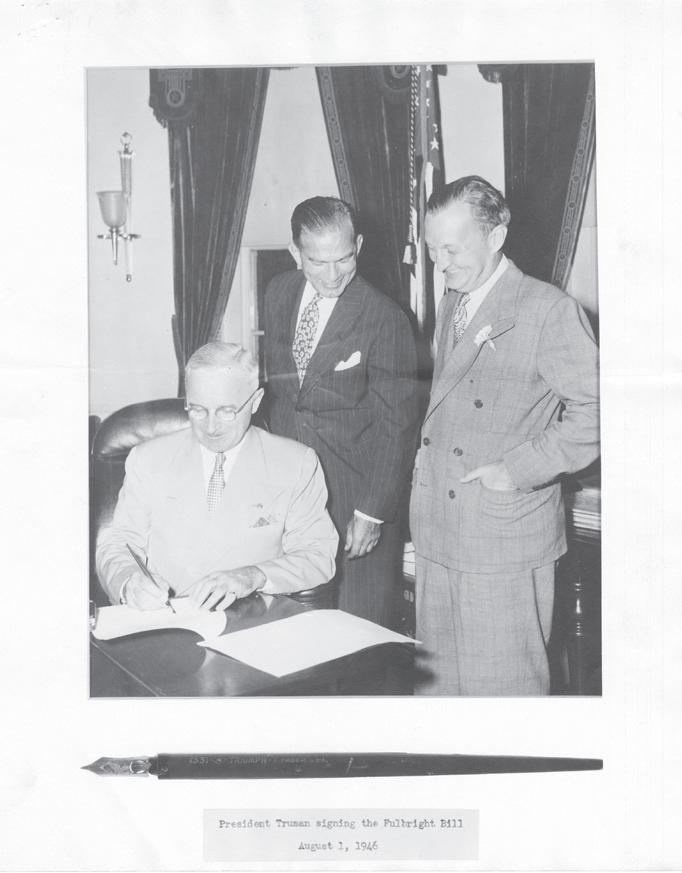


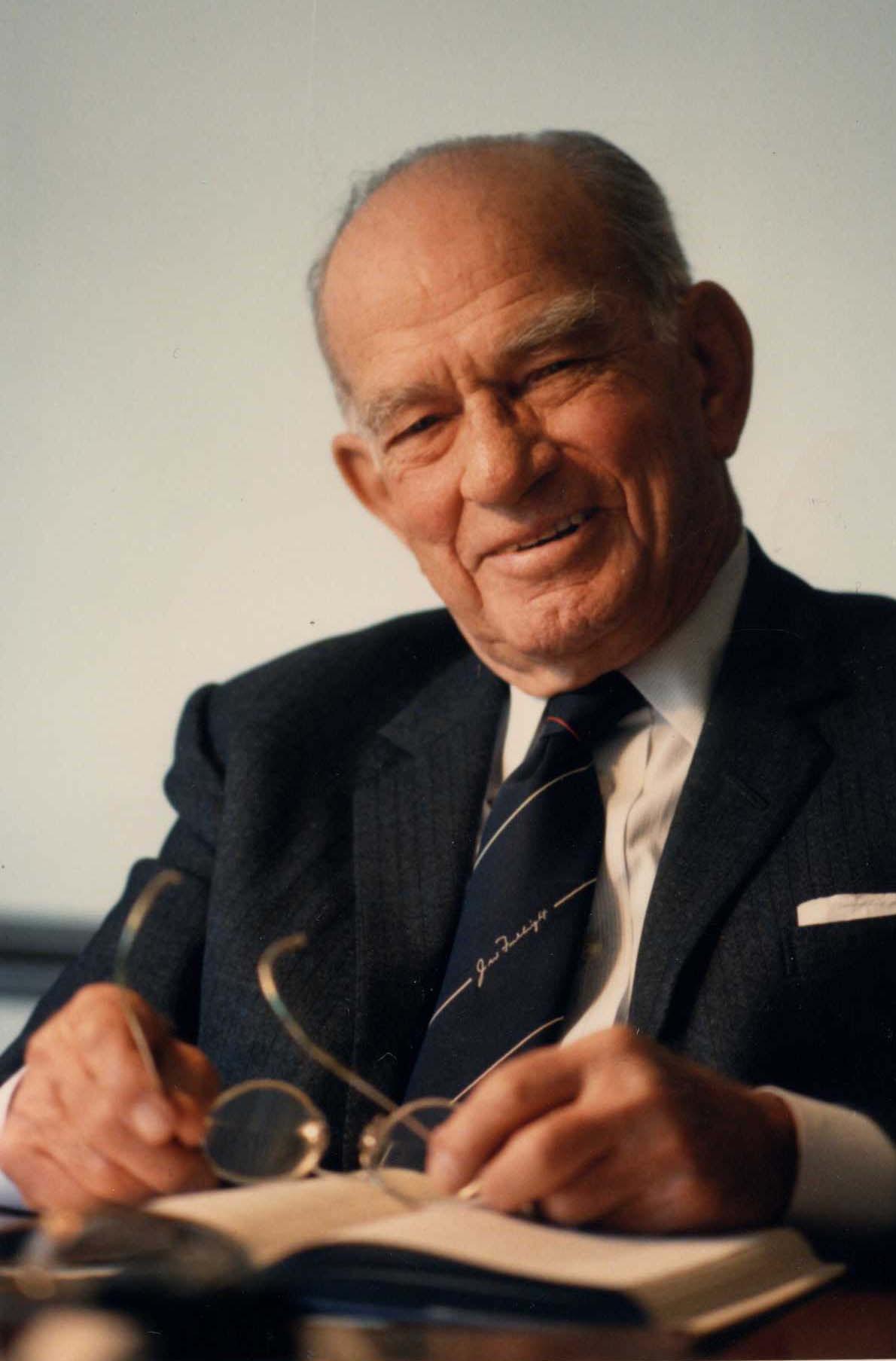
Fulbright Act approved by US Senate and signed by President Truman
Public Law 584, enacted by the 79th Congress in 1946, amended the Surplus Property Act of 1944 and provided the foundation for the establishment of the Fulbright Program.
This amendment allowed proceeds from the sale of surplus war property to be used for funding educational exchanges. Senator J. William Fulbright, recognizing the need for international collaboration after World War II, proposed the program to foster mutual understanding between nations.
By repurposing the surplus property for education, the law enabled the creation of the Fulbright Program, supporting international research, cultural exchange, and global diplomacy.
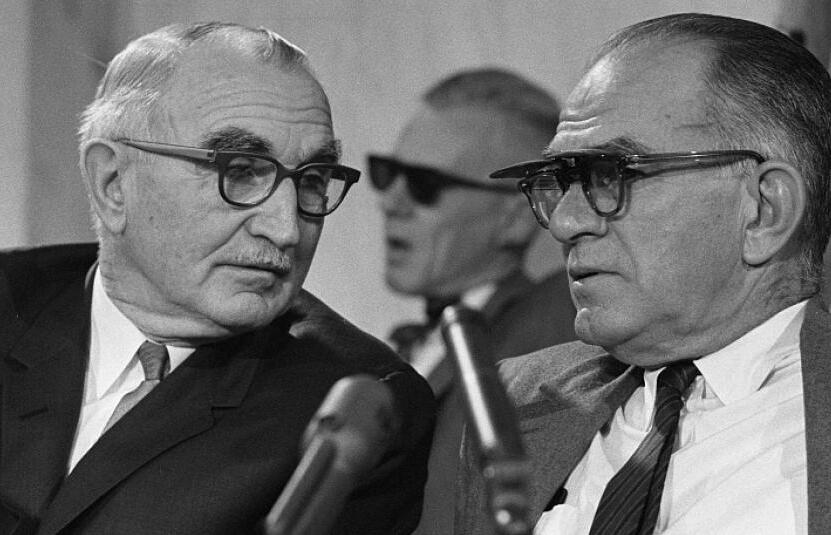
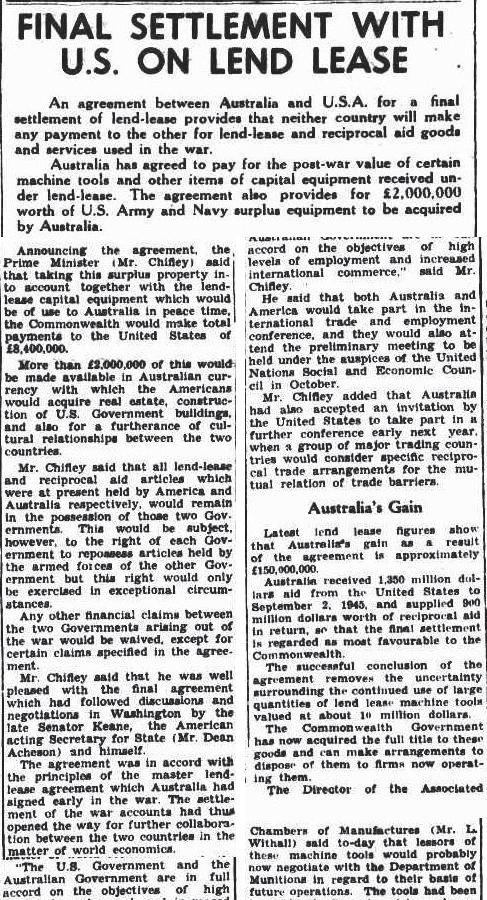
Lend-Lease Settlement Agreement signed by Australian and U.S. governments
This agreement dealt with Australia's wartime debts to the US government. $US 7 million of the amount owed by Australia to the US was set aside for educational and cultural purposes, and it was this allocation (of $US5 million of it) that would later fund the Fulbright exchange program between the two countries for its first fifteen years.
The agreement was officially known as the 'Agreement Between the Government of the United States of America and the Government of the Commonwealth of Australia on Settlement for Lend Lease Reciprocal Aid Surplus War Property and Claims'

The U.S. Government and the Australian Government are in full accord on the objectives of high levels of employment and increased international commerce." "
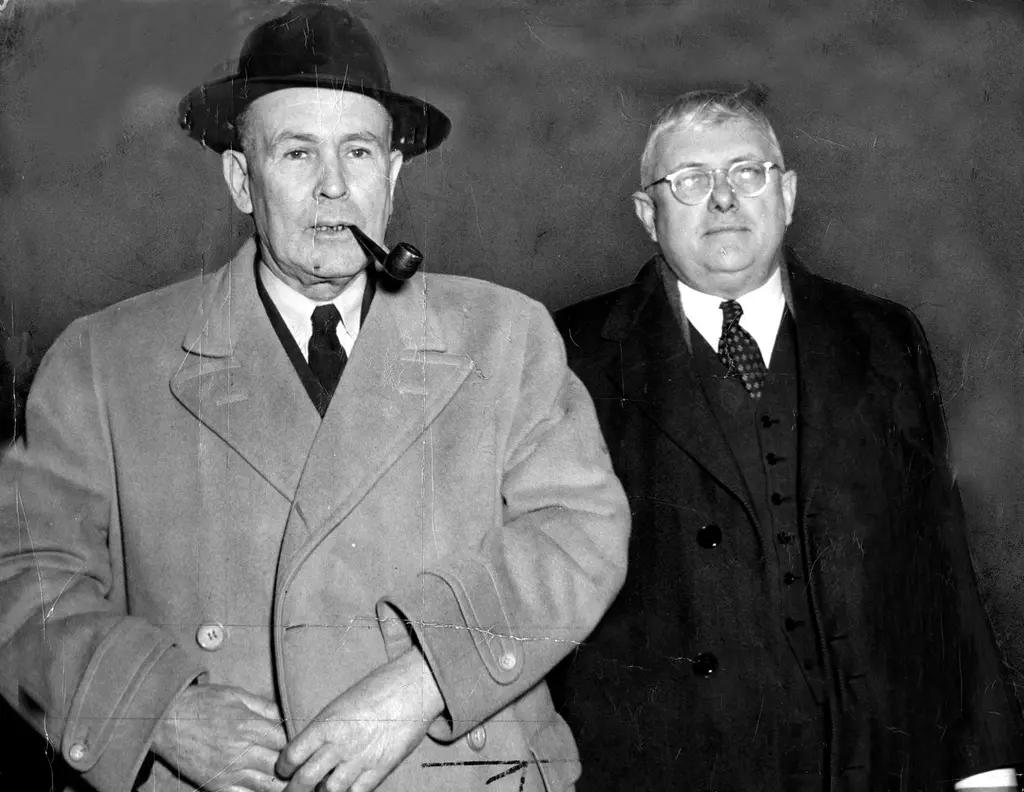
- Joseph Benedict Chifley, Prime Minister oif Australia quoted
in Canberra Times, Monday 10 June,
1946
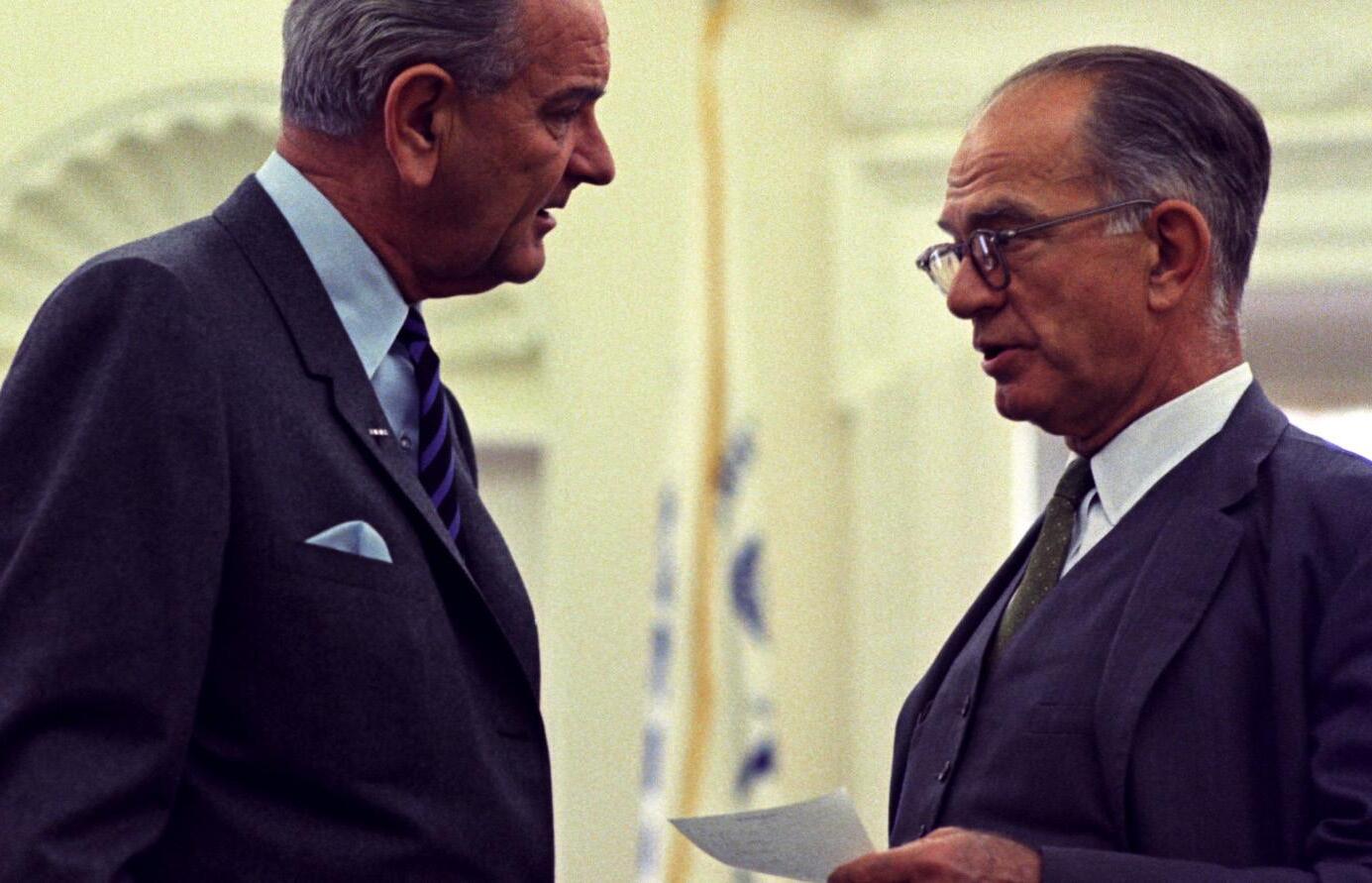

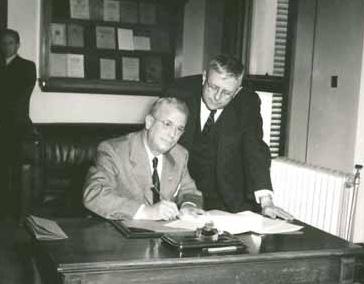
Agreement between Australia and the U.S. is signed
After three years of negotiations between the two governments, the Fulbright Agreement finally came into force in November of 1949. It was signed by the Minister for External Affairs, Herbert J. Evatt, and the U.S. Ambassador to Australia, Mr Pete Jarman.
The agreement established United States Educational Foundation, which would administer the Australian program from Canberra, following policy guidelines set by the United States Bureau of Foreign Scholarships, and with binational administrative support from the Department of State in the US and the Department of External Affairs (now Department of Foreign Affairs and Trade) in Australia.

A bi-national commission, named the United States Educational Foundation (USEF), was created under the terms of the 1949 Agreement, to administer the Fulbright scheme from Canberra. There was much work to do to establish the Program, and this fell initially to public servants in Australia’s Commonwealth Department of External Affairs. Their first task was to appoint the founding bi-national Board of directors, whom they named publicly in February 1950. The Honorary Chairman of the Board was the U.S. Ambassador, Pete Jarman. The directors included three Australians – the new Minister for External Affairs, Mr (later Sir) Percy Spender, Sir Charles Lowe, Chancellor of the University Melbourne University and a Justice of the Victorian Supreme Court, and Professor G. A. Currie, agricultural scientist and Vice-Chancellor of the University of Western Australia.
The American directors were U.S. Embassy officers Paul J. Sturm (who would later become U.S. Consul in Hanoi, Vietnam, 1952-54), and Doyle V. Martin, and W.R. Hauslaib, an American businessman who had been resident in Australia since the 1930s. Hauslaib managed a company that imported Packard cars to Australia, and, according to one Australian public servant, he owned ‘one of the best collections of ties I’ve eve seen!’
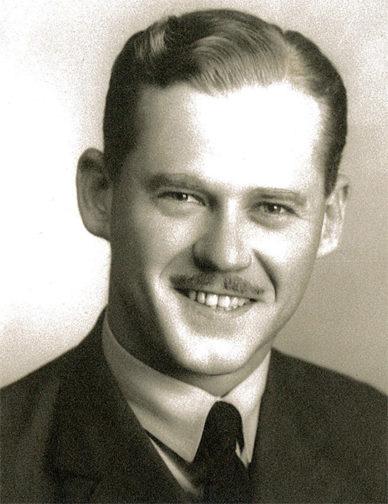
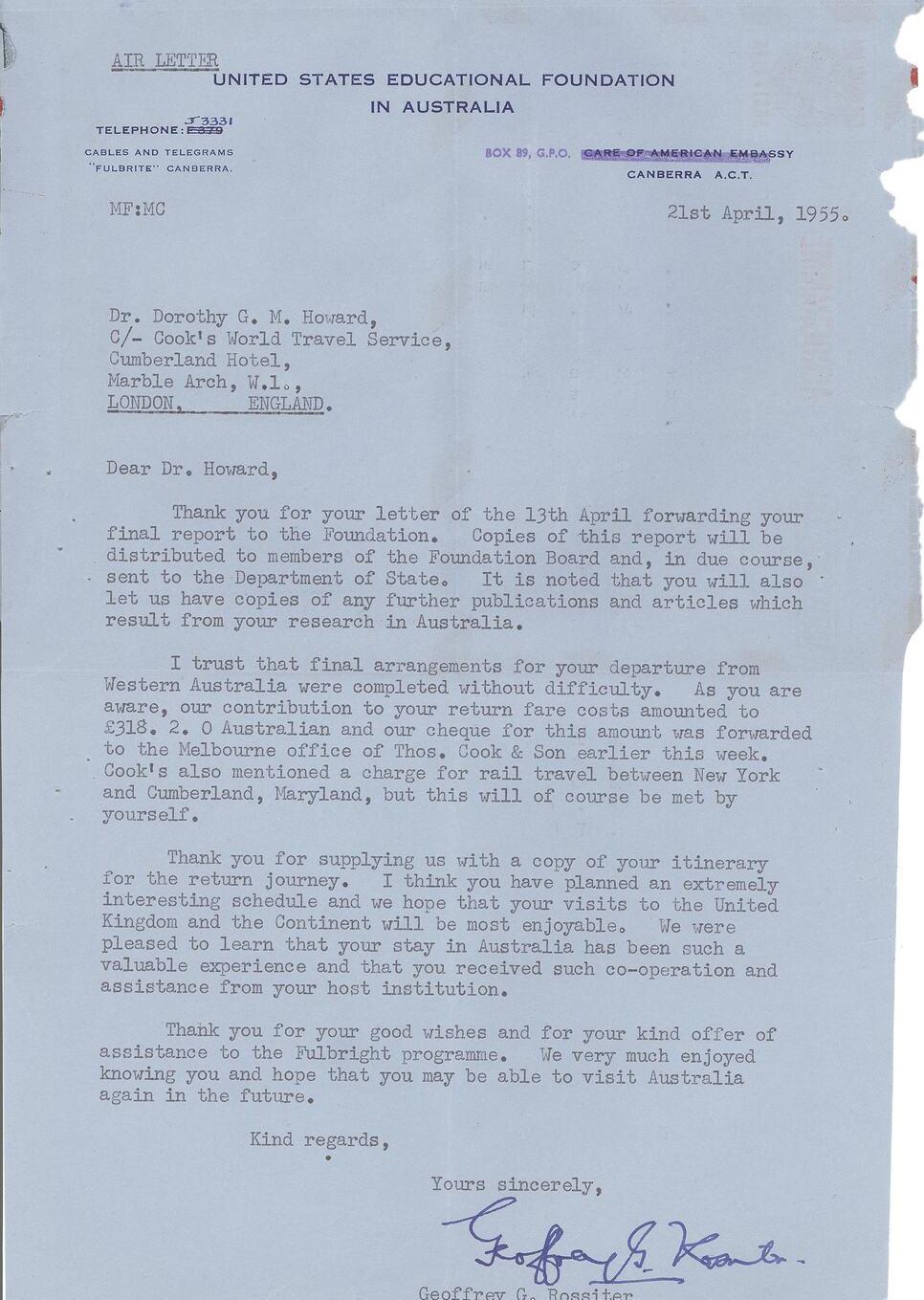
Australia's first Fulbright Executive Officer appointed
One of the Board’s first tasks was to appoint an Executive Officer to administer the program. Geoffrey Rossiter, a Western Australian history lecturer with a Masters degree from Oxford in Modern History, was chosen from a shortlist of eighteen applicants for the position, which had been advertised nationally after the first USEF board meeting.
During the war Rossiter had been a RAAF Wing Commander and was awarded a Distinguished Flying Cross. In 1946, he was named a Western Australian Rhodes Scholar, following in the footsteps of his older brother Roger who had won a Rhodes in 1935.
Rossiter guided the scheme through its difficult teething period and remained executive officer until 1965. He remains the longest serving EO in the Australian program's history.
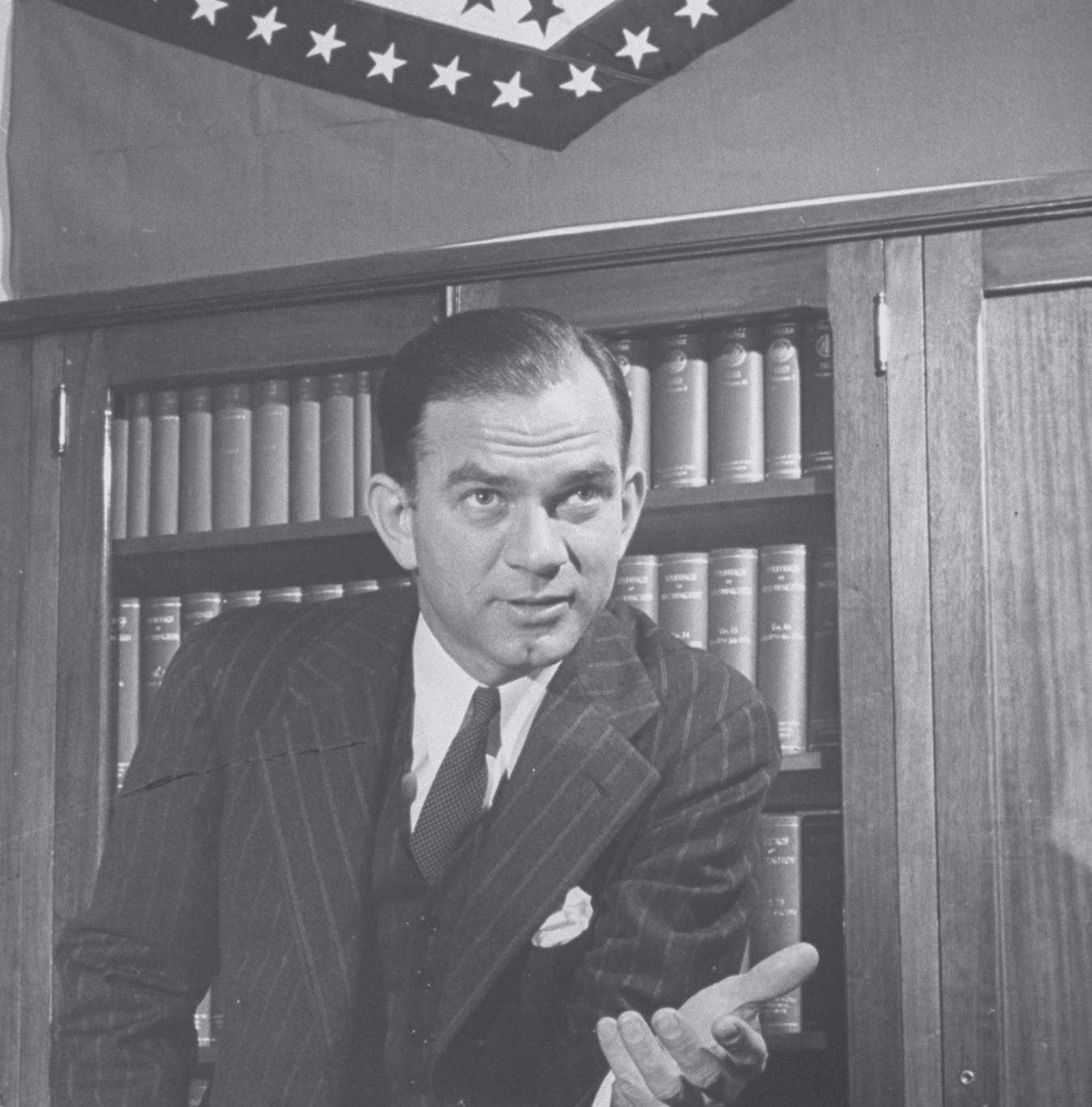
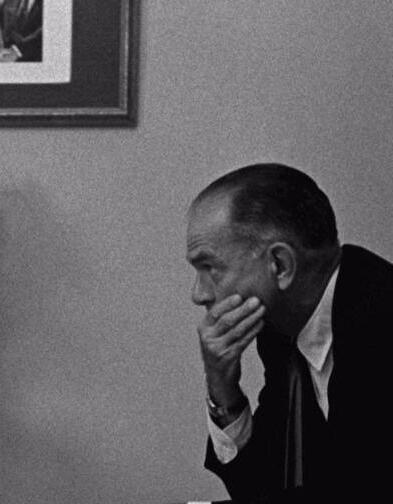
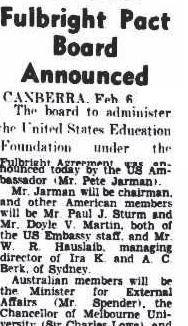
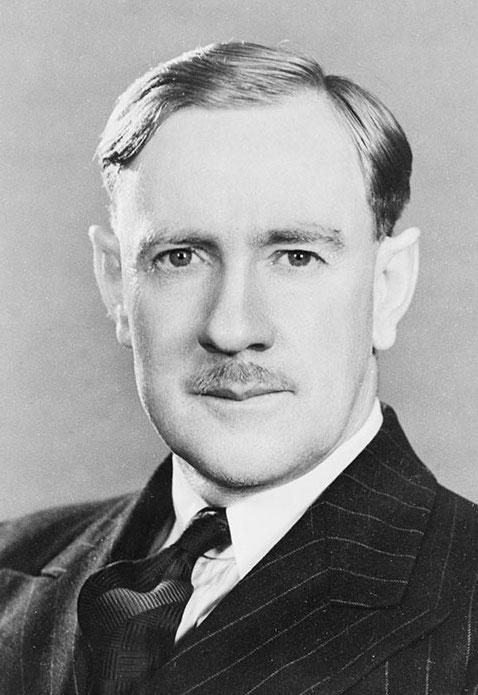
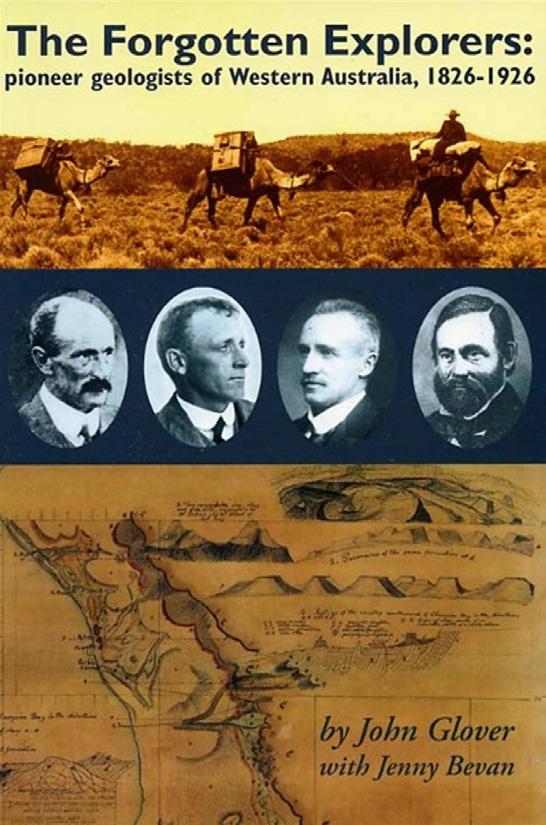
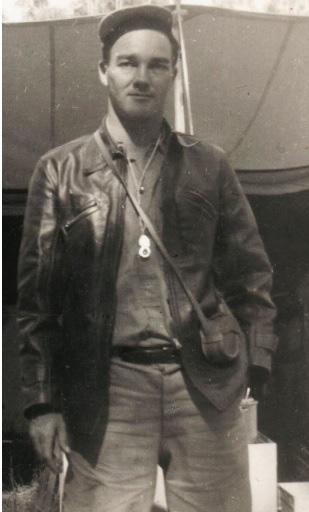
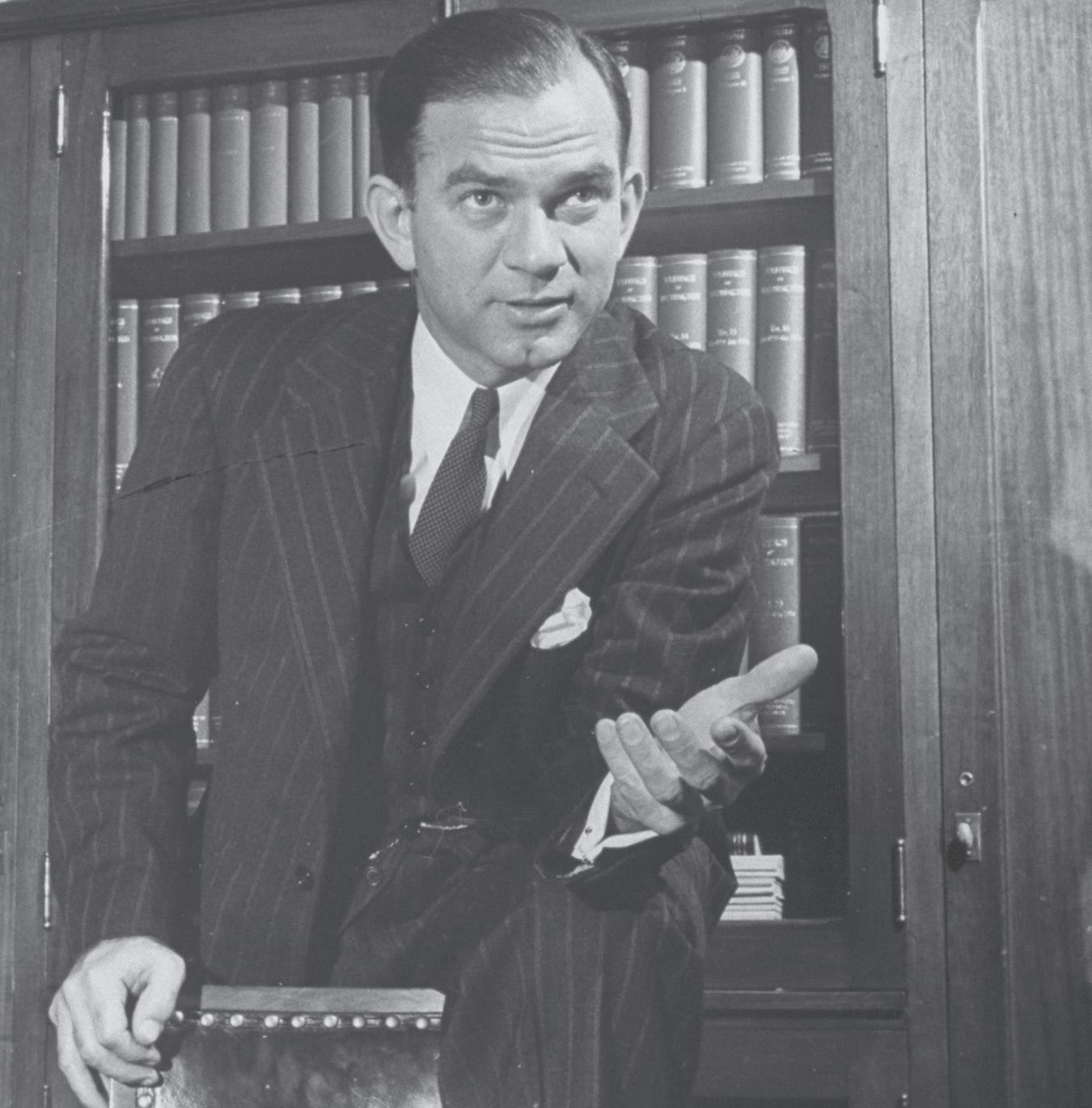
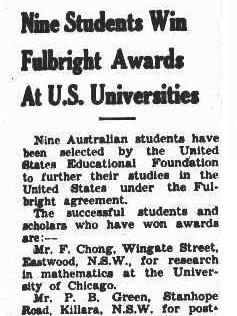
John Glover was a renowned Australian geologist, recognized for his extensive contributions to sedimentary petrology. Born in 1924 in Western Australia, Glover pursued his higher education at the University of Western Australia (UWA), later becoming one of the country's most respected geologists. As a Fulbright Scholar, he earned his PhD at the University of California, Berkeley, which expanded his research into sedimentary rocks and geological formations. His work spanned several disciplines, contributing significantly to the understanding of Western Australia's geological landscape.
Glover held prominent academic positions, including Head of the Geology Department at UWA, where he mentored generations of students and promoted interdisciplinary research. He was instrumental in establishing the E de C Clarke Geology Museum, which serves as a resource for students and researchers. Over his career, Glover published prolifically in esteemed journals such as Nature, with his research covering various topics, including sedimentology and Australoian Indigenous artefacts.
In recognition of his outstanding contributions to science and education, Glover was awarded numerous accolades, including the prestigious UWA Chancellor's Medal in 2004. His legacy continues to influence the fields of geology and education in Australia and beyond.
First Australian Travel Grant recommendations
The United States Educational Foundation minutes name the first Australian scholars recommended for Fulbright travel grants. They included: Joseph Glover (Geology), Adele Millerd (Plant biochemistry), Bruce Holloway (Plant genetics), Albert ("Bert") Main (Zoology), John Rayne (Physics), Harold Schroder (Psychology), Maxwell Kennedy (Mining engineering), Jack Loneragan (Plant Physiology), Dorothy Munro (History) Michael Waller (Geology), Frederick Chong (Mathematics), Philip Green (Dentistry), Noel Hickey (Dentistry), Frank Shann (Education), Frank Kerr (Physics), William Wileman (Dentistry). [Source: USEF Board minutes, 23 June 1950]


At Harvard University in July 1951 shortly after the discovery of the 21 cm hydrogen line (from left): Ed Purcell, Taffy Bowen and ‘Doc’ Ewen. The following year Purcell was awarded the Nobel Prize for Physics for his research on nuclear magnetic resonance
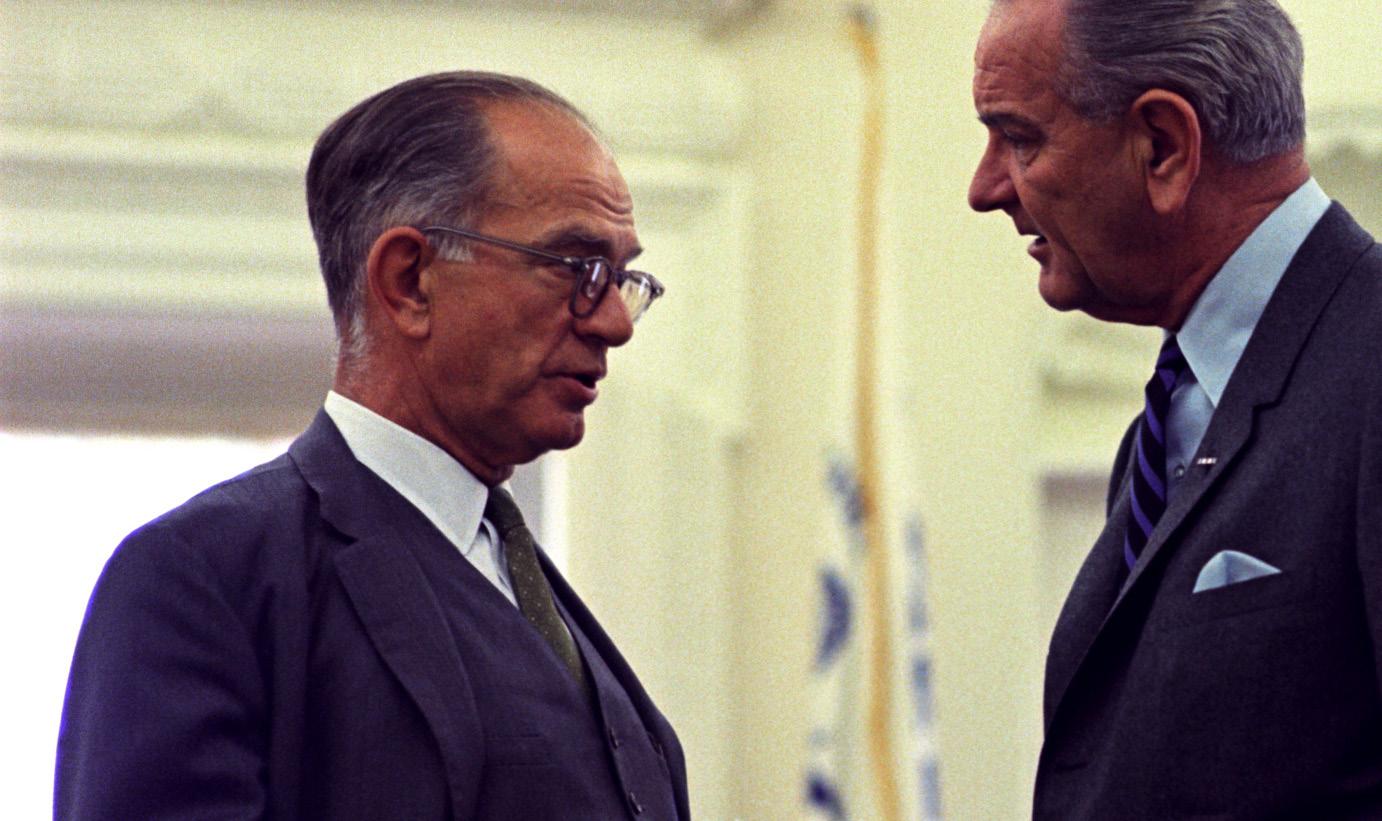
Frank Kerr was a distinguished Australian astronomer whose career had a profound impact on radio astronomy and the study of our galaxy.
Kerr earned his PhD from the University of Sydney and soon became involved in pioneering work in radio astronomy. His early research at the CSIRO Radiophysics Laboratory contributed to the development of techniques that enabled astronomers to map the structure of the Milky Way.
Kerr is best known for his groundbreaking discovery of the hydrogen gas clouds in the outer regions of the galaxy using the 21-cm hydrogen line, a key tool in radio astronomy. This work provided crucial insights into the rotation curve of the Milky Way and helped establish the presence of dark matter. His detailed studies of neutral hydrogen revolutionized our understanding of the galactic structure and the dynamics of spiral galaxies.
During his Fulbright tenure in the U.S., Kerr collaborated with American astronomers, furthering research into galactic structure and cosmic phenomena. His contributions were widely recognized, and he held academic positions at institutions like the University of Maryland. Kerr's legacy in astronomy continues to influence contemporary studies of galaxy formation and the interstellar medium.
Dorothy Shineberg was a pioneering Australian historian and a Fulbright alumna renowned for her work on the history of the Pacific Islands. After earning her Bachelor of Arts with first-class honours from the University of Melbourne in 1947, she became one of the first historians to teach and research Pacific history in Australia. Her Fulbright scholarship took her to Smith College in the United States, where she continued her academic development before returning to Melbourne.
Shineberg’s seminal research focused on the sandalwood trade in the Pacific, notably her 1967 book They Came for Sandalwood, which remains a landmark in Pacific historiography. She was particularly known for incorporating the perspectives of Pacific Islanders, challenging the Eurocentric narratives that had dominated the field. Throughout her career, Shineberg contributed significantly to developing Pacific studies, and her students, such as Greg Dening, became prominent scholars in the field. She worked at the Australian National University (ANU), where she became a Senior Lecturer and eventually a Reader. Even after her retirement in 1988, Shineberg continued to contribute to the field as a Visiting Fellow, cementing her legacy as a leading historian of the Pacific.
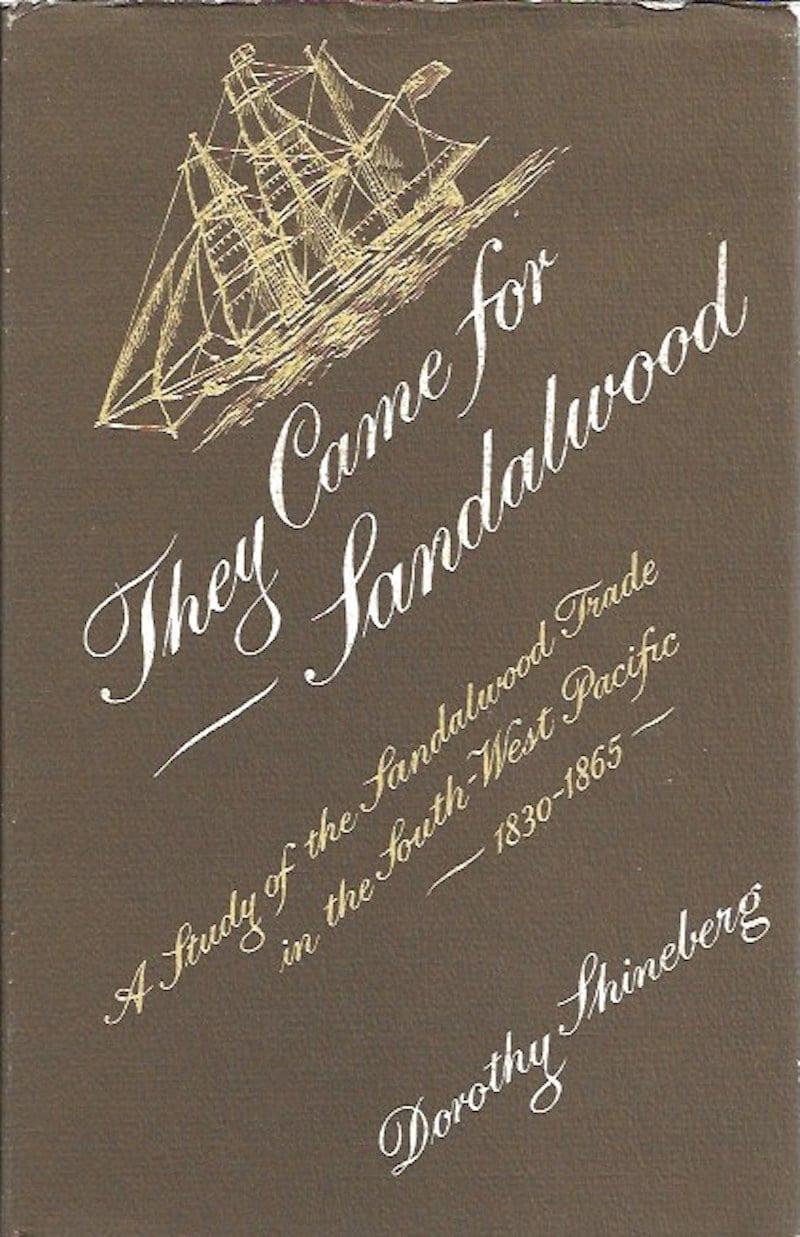
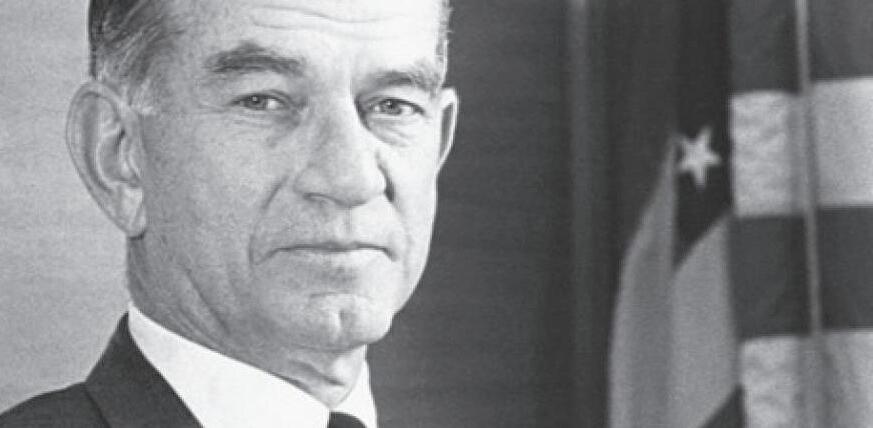
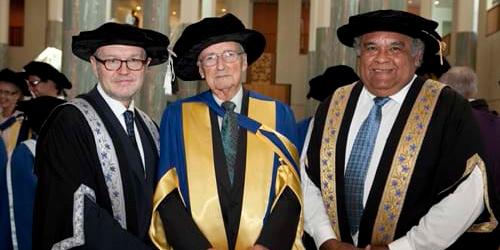
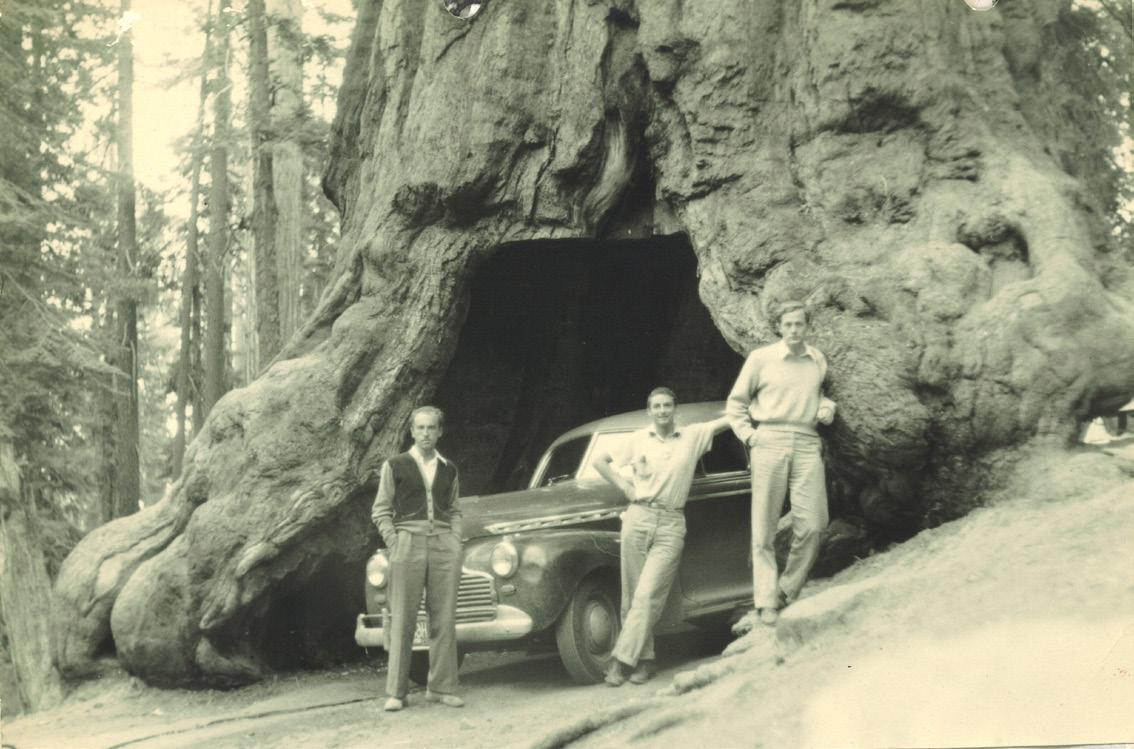
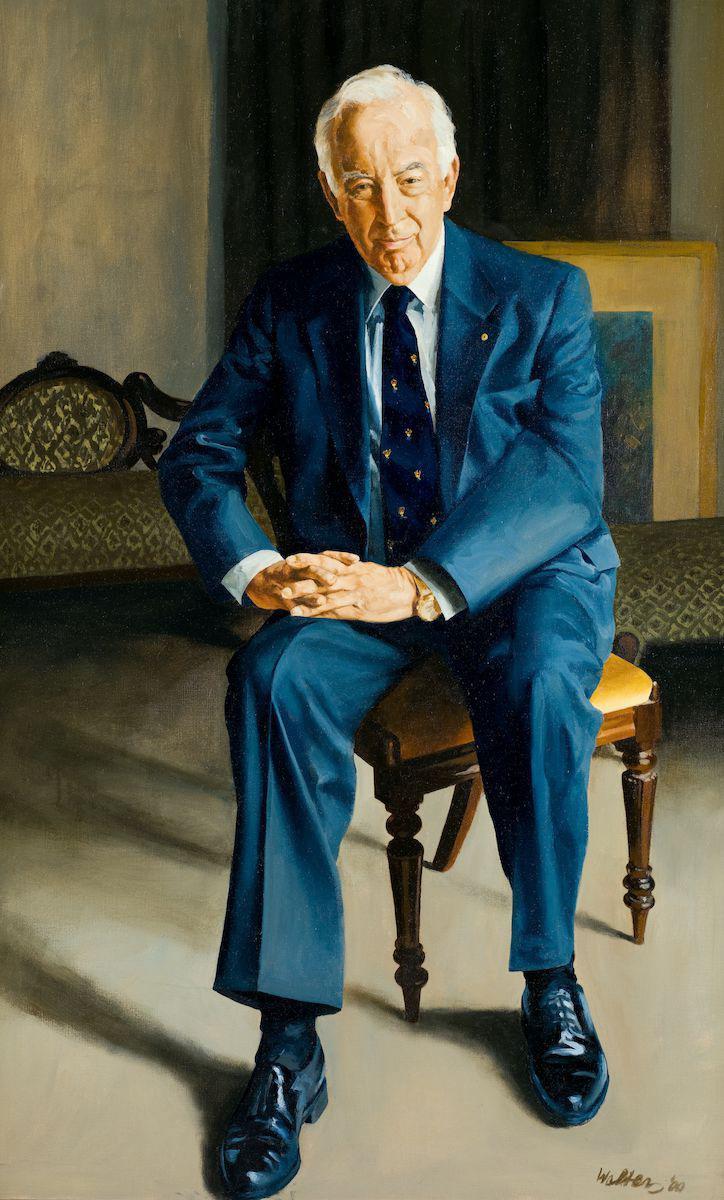
Bruce Sinclair AM, a prominent Australian engineer, earned a Fulbright Scholarship to MIT in 1951, setting the stage for an impactful career. He co-founded the consultancy firm Sinclair and Knight, later SKM, which grew into a leading international company with over 7000 staff. Sinclair's projects included the Canberra Area Transportation Study and Lake Burley Griffin’s design. After retiring, he founded RedR Australia, a disaster relief NGO deploying engineers worldwide. His dedication to engineering and humanitarian work earned him numerous honors, including the Order of Australia.

Plant Biochemist Adelle Millerd and Engineer Bruce Sinclair depart for the U.S.
Millerd and Sinclair, two of the first Australians to win Fulbright awards, left on this day for the U.S., Millerd took up a research assistant position at Caltech (at a time when women were not admitted as postgraduate students), while Sinclairm headed to MIT to complete his Master's..
Adele Millerd was an esteemed Australian plant biochemist who made significant contributions to the study of plant metabolism and biochemistry. A Fulbright Scholar, Millerd used the scholarship to further her research at the California Institute of Technology. Her work focused on understanding plant enzyme activity and the processes that regulate plant growth and development, particularly in legumes. Millerd’s research advanced knowledge in areas such as nitrogen fixation, a crucial component in agricultural sustainability. Over her career, she published extensively and mentored many emerging scientists, leaving a lasting impact on both plant biochemistry and agricultural science.

Sir Zelman Cowen AK, GCMG, GCVO, PC, QC, FTSE
was a prominent Australian lawyer, academic, and statesman, whose career was significantly shaped by his Fulbright Scholarship. As a law student at the University of Melbourne, Cowen was selected for this prestigious opportunity, enabling him to study at Harvard Law School, where he earned his Master of Laws (LLM). This experience broadened his understanding of legal systems and political frameworks, influencing his future contributions to Australian law and governance.
Following his time at Harvard, Cowen embarked on a distinguished career, becoming Vice-Chancellor of the University of Melbourne and later serving as Australia’s 19th Governor-General from 1977 to 1982. His tenure as Governor-General was marked by a commitment to national unity and reconciliation, particularly in relation to Indigenous Australians. Cowen was known for his scholarly approach to governance, emphasising the importance of education and public service.
Throughout his career, Cowen received numerous accolades for his contributions to law and society, reinforcing the transformative impact of his Fulbright experience on his public life and legacy.
Sir Zelman Cowen departs for the U.S.
Sir Zelman Cowen AK, GCMG, GCVO, QC, then a law student, was selected in the 1953 Fulbright cohort. Following his LLM at Harvard Law School, Cowen would go on to lead a distinguished career in law, culminating in his ascension to Australia's 19th Governor-General in 1977.
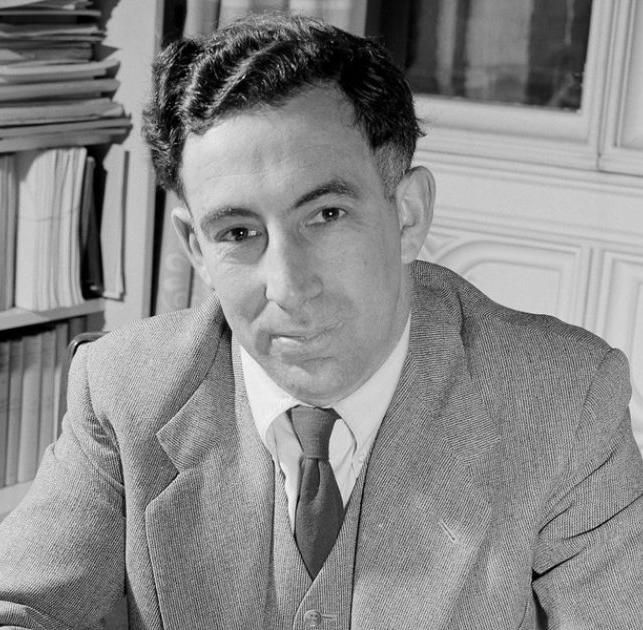
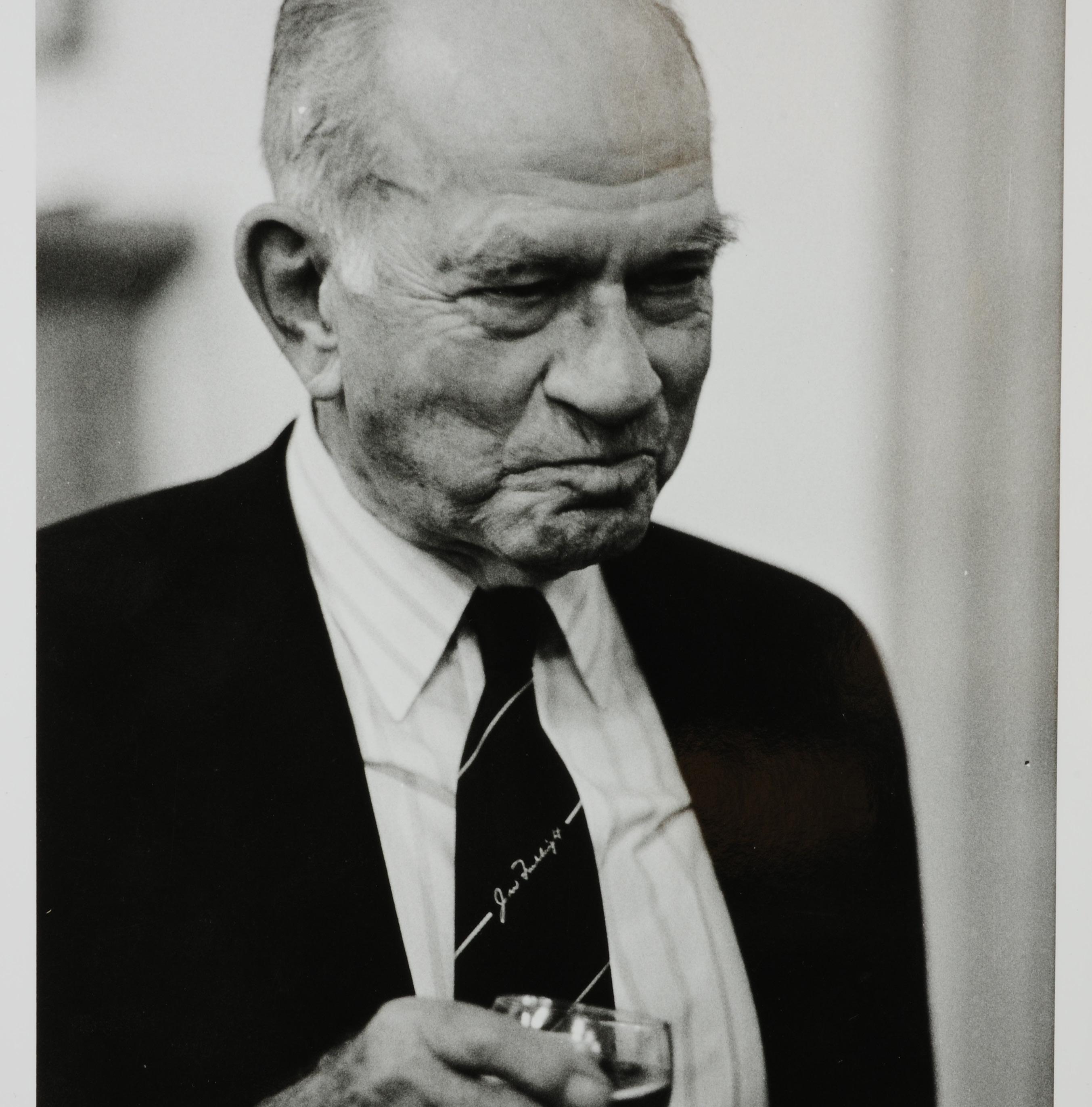
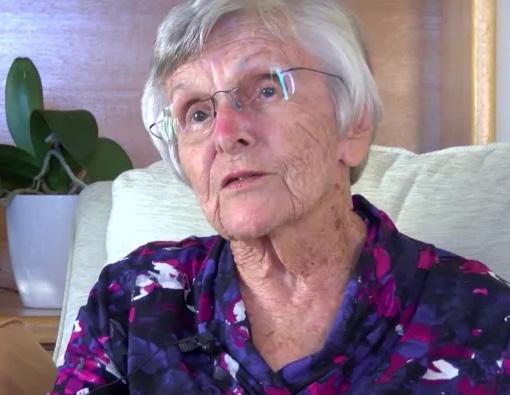
Dr Adele Millerd, interviewed by the U.S. Embassy, Canberra, 15 February 2017
"The Fulbright experience transformed my life, as it has for so many other men and women, both American and Australian."
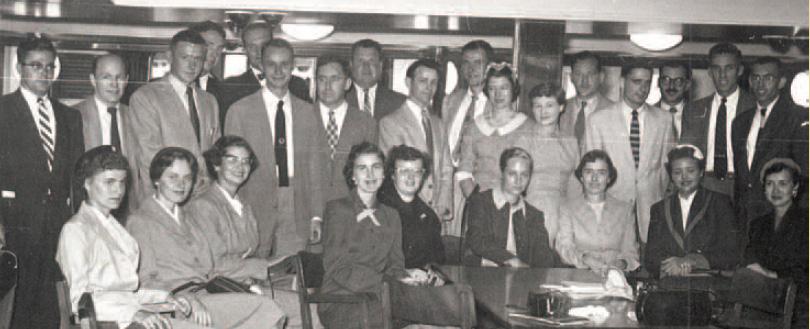

Fulbright U.S. Scholars arrive on the SS Orcades
In October 1955, Fulbright Scholars arrived in Australia aboard the SS Orcades, captured in a historic photograph shared by alumna Joan Ophel. Among the scholars were Joan Mahoney, Ann Joyner, and Frances Benedict. The group was met by Foundation staff including Donald MacKay, Margaret Frey, and Geoffrey Rossiter, who played pivotal roles in supporting the scholars during their time in Australia.
Several notable scholars from this group made lasting contributions, such as Tom Pickering, who later became a prominent U.S. ambassador, and Nancy Munn, a trailblazing anthopologist. Other scholars included Engineer, Wilbur Meserve and Biologist, Alice Glover, reflecting the program's emphasis on academic excellence and cross-cultural exchange. Their arrival marked a significant moment in the history of the Fulbright Program, contributing to the long-standing partnership between the U.S. and Australia in education and research.

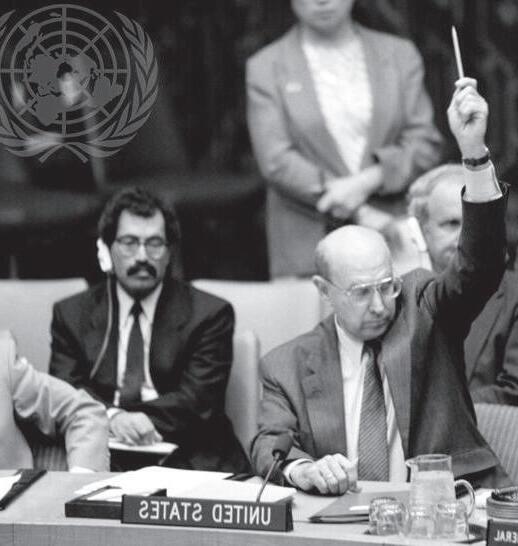
Professor Nancy Munn made significant contributions to cultural anthropology with a focus on Indigenous communities in Australia and Papua New Guinea. In 1955, she received a Fulbright Scholarship that allowed her to conduct indepth research in Australia, where she studied the cultural and symbolic aspects of Indigenous art and society. This experience laid the foundation for her later work, which became highly influential in the field of symbolic anthropology.
Munn’s research was instrumental in understanding how Indigenous Australian communities construct and perceive space, time, and value through their social and artistic practices. Her foundational work, Walbiri Iconography: Graphic Representation and Cultural Symbolism in a Central Australian Society (1973), analysed symbolic expression among the Warlpiri people of Central Australia. Her study of sand drawings and other artistic practices reveals how visual forms communicate complex social, cosmological, and ancestral knowledge. By decoding the cultural meanings embedded in this iconography, Munn's work enhanced understanding of Indigenous Australian art and influenced broader discussions on the role of visual symbols in cultural identity and social structure..
Munn’s work has had a lasting impact on anthropology, contributing to cross-cultural understanding and reinforcing the value of anthropological research initiated through the Fulbright Scholarship.
R. Pickering is a highly respected American diplomat, whose career spanned over four decades. He is widely regarded as one of the most influential U.S. diplomats of the 20th century, having served as U.S. Ambassador to numerous countries, including Russia, India, Israel, and Jordan. A Fulbright Scholar in 1954, Pickering’s time in Australia was formative in shaping his global perspective, strengthening his understanding of international relations, and fostering the spirit of cross-cultural diplomacy that defined his career.
Pickering's diplomatic contributions were vast. He played a critical role in shaping U.S. foreign policy, particularly during pivotal moments such as the end of the Cold War, the Gulf War, and the peace negotiations in the Middle East. As the U.S. Permanent Representative to the United Nations from 1989 to 1992, Pickering was instrumental in building international coalitions, demonstrating his ability to navigate complex geopolitical landscapes. His tenure as Under Secretary of State for Political Affairs, the third-highest position in the State Department, further solidified his reputation as a key architect of U.S. diplomacy.
Throughout his career, Pickering emphasized the importance of dialogue, multilateralism, and diplomacy, leaving a lasting impact on international relations and inspiring future generations of diplomats.
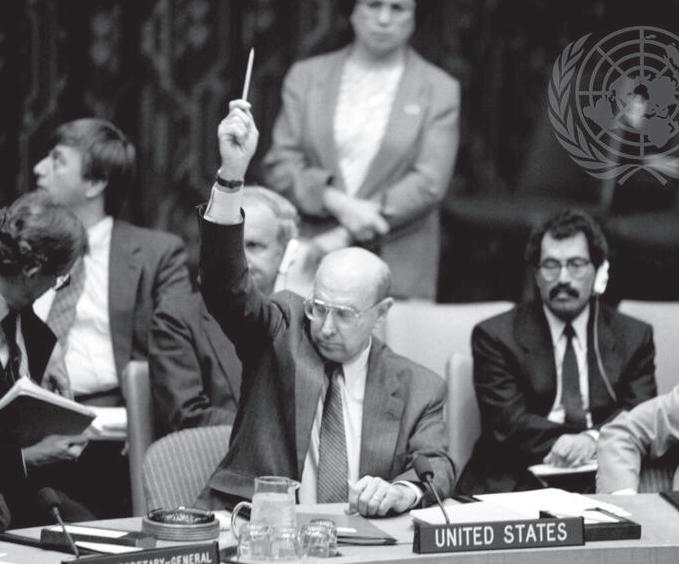
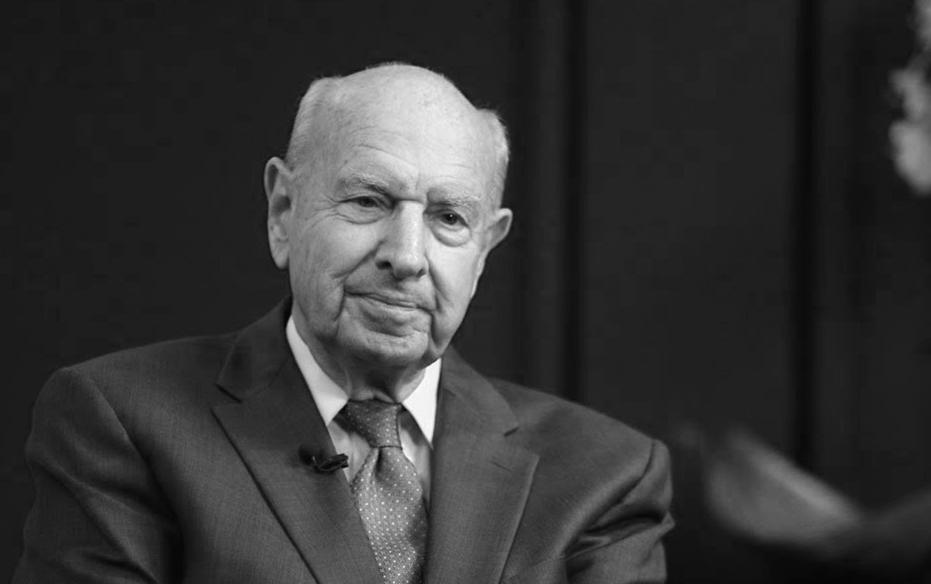
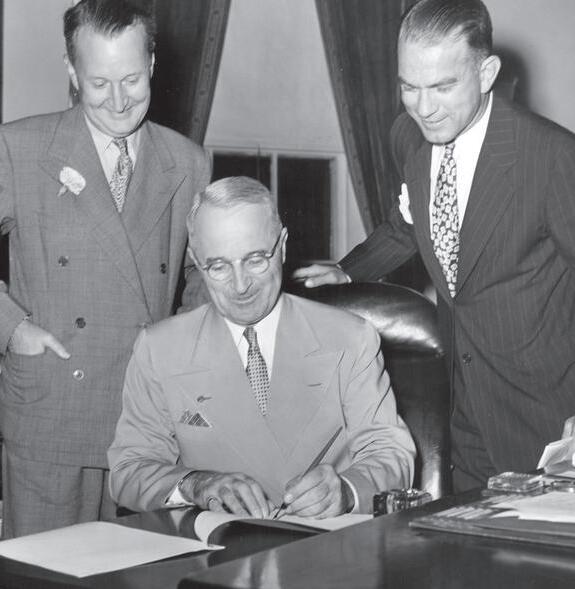


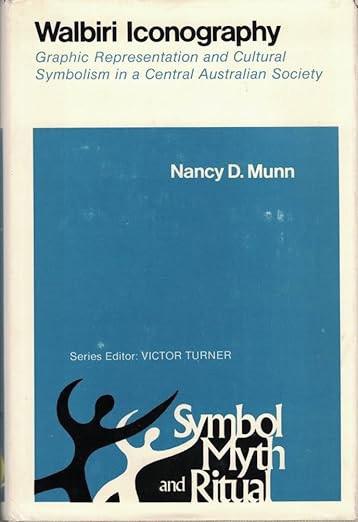
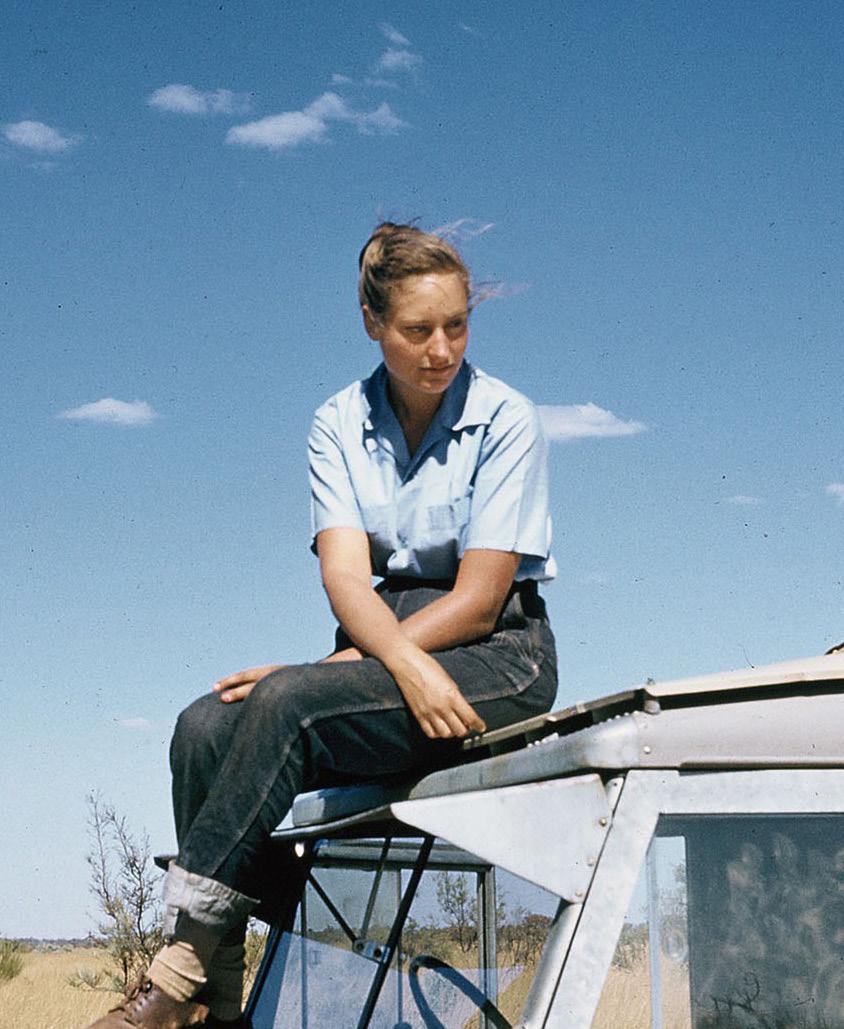
Lederberg, a renowned molecular biologist and geneticist, made groundbreaking contributions to bacterial genetics and the understanding of gene transfer mechanisms. His work in microbial genetics earned him the Nobel Prize in Physiology or Medicine in 1958, recognizing his discoveries in bacterial conjugation. A year earlier, in 1957, Lederberg was awarded a Fulbright Scholarship, which provided an opportunity for international collaboration and the exchange of scientific ideas. This experience enriched his career, influencing his interdisciplinary approach to genetics, microbiology, and public health.
Throughout his career, Lederberg advanced studies in artificial intelligence and space biology, particularly in exobiology, as he sought to understand life beyond Earth. Lederberg was also an influential voice on ethical and scientific issues, advocating for responsible scientific research. His legacy in genetics, as well as his work on the societal implications of science and technology, has had a lasting impact, influencing modern biotechnology, genetic research, and policy discussions globally..
Nobel Prize-winning Fulbrighter
Joshua Lederberg won his Fulbright in 1957, heading to the University of Melbourne in July to further his research in Bacteriology. He would win his Nobel Prize in Medicine just one year later.
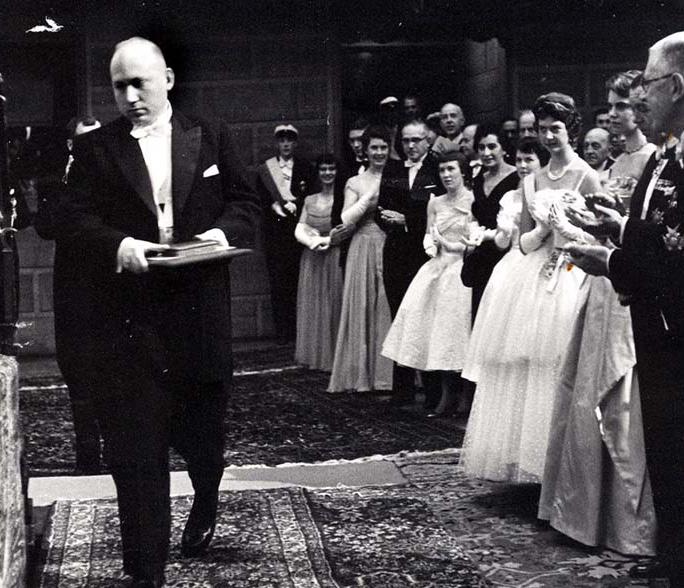

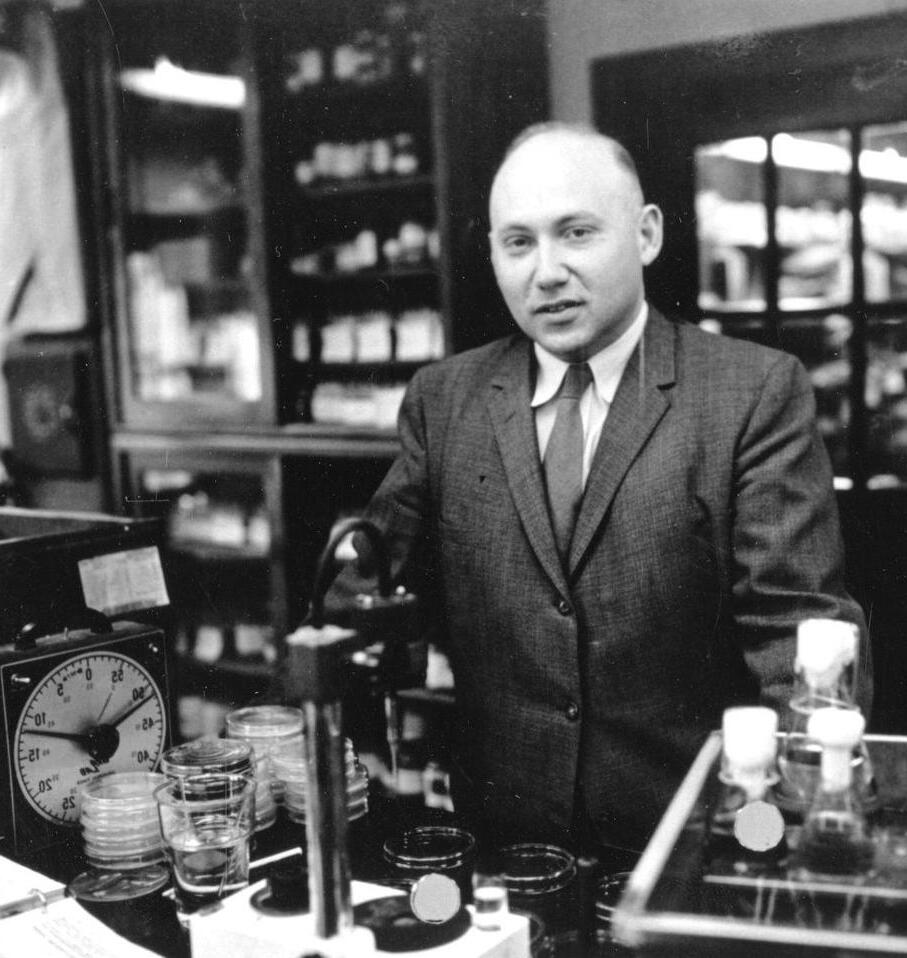
First Fulbright Distinguished Visitor arrives in Australia
Professor John Hope Franklin, Professor at Brooklyn College and influential historian of slavery, was the inaugural recipientof the Fulbright Distinguished Visitor award. Franklin's visit was an enormous success for the Foundation. His lectures received national press coverage (print, radio and television) and he wrote in detail of his time in Australia in his autobiography 'Mirror to America : the autobiography of John Hope Franklin' (New York: Farrar, Straus, and Giroux, 2005).
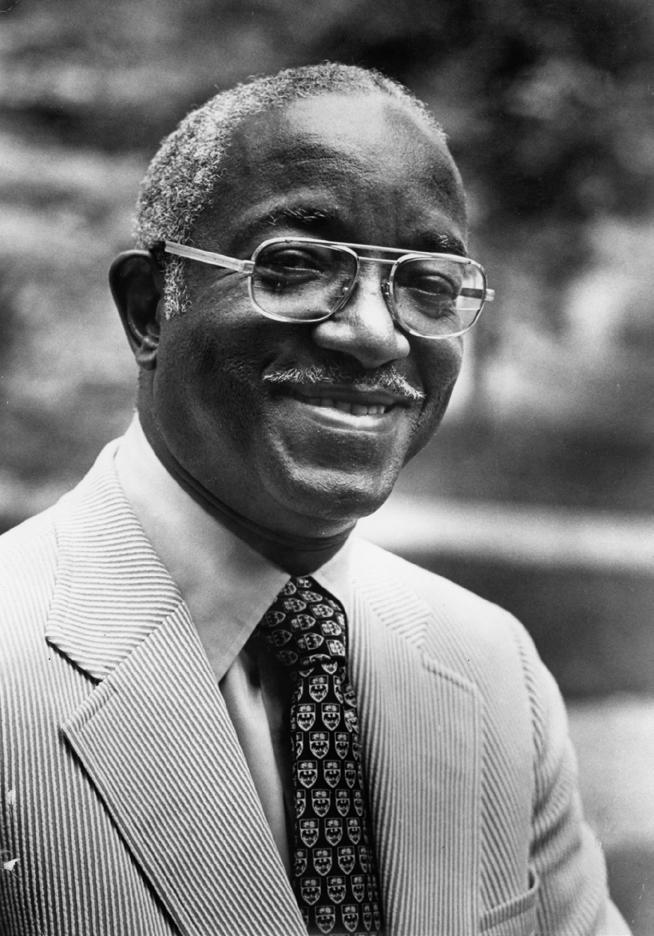

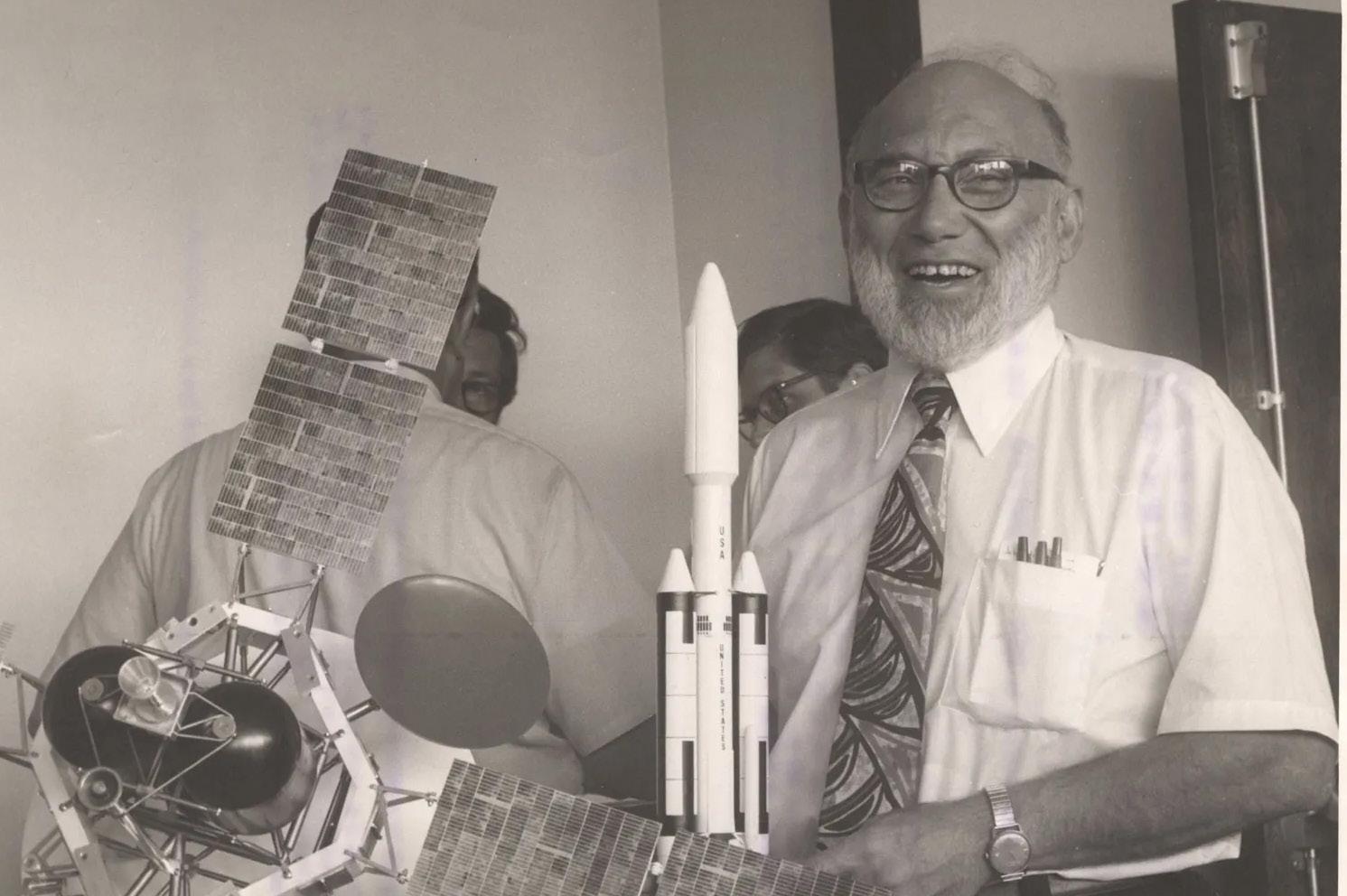

Professor John Hope Franklin
was a preeminent historian of African American history and civil rights advocate, who made significant strides in historical scholarship and social justice. In 1960, Franklin was awarded a Fulbright Scholarship to Australia, marking a pivotal moment in his career. This opportunity allowed him to share his expertise on American history abroad and gain international perspectives that deepened his insights into race relations and social justice. His time in Australia contributed to his ongoing efforts to broaden historical discourse and promote inclusivity.
Franklin’s scholarship, notably his groundbreaking book From Slavery to Freedom, reshaped understandings of African American history, bringing Black experiences to the forefront of U.S. historical narratives. His work on race and equality has inspired generations of scholars and activists globally. Through his teaching, writing, and public service, Franklin underscored the role of history in addressing social inequalities and fostering cross-cultural understanding, leaving an enduring legacy in both academia and public life.
"We must go beyond textbooks, go out into the bypaths and untrodden depths of the wilderness and travel and explore and tell the world the glories of our journey."

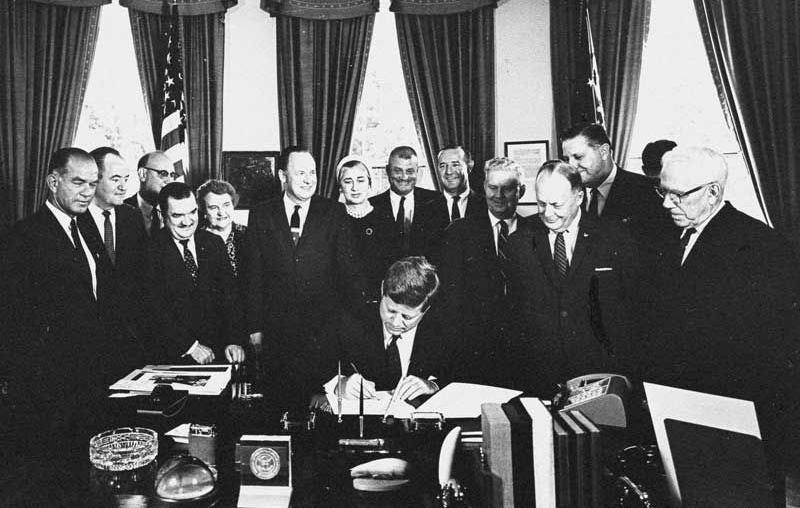
Mutual Educational and Cultural Exchange Act signed
The Mutual Educational and Cultural Exchange Act of 1961 (known as Fulbright-Hays Act) is signed into law by President Kennedy. The Act was pivotal in advancing and institutionalising the Fulbright Program's goals. This legislation recognised the Fulbright Program’s success in fostering international understanding and formalized educational and cultural exchanges as essential tools of U.S. diplomacy. By providing government funding and a strategic framework, the Act broadened the program’s reach and solidified its mission to promote peace through global partnerships in education, science, and the arts.
With this act, the Fulbright Program expanded, supporting thousands of scholars, students, and professionals worldwide. It emphasized mutual understanding by embedding cultural exchange in U.S. foreign policy, allowing for long-term relationships and cross-cultural learning that continue to shape Fulbright alumni communities and influence public diplomacy today. The Act affirmed that through person-to-person connections, such exchanges could foster global cooperation and reduce conflicts.
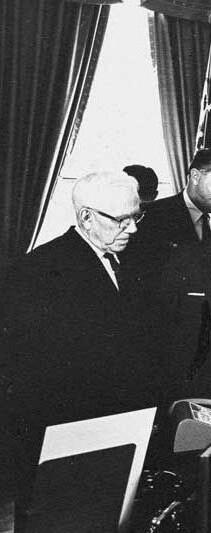
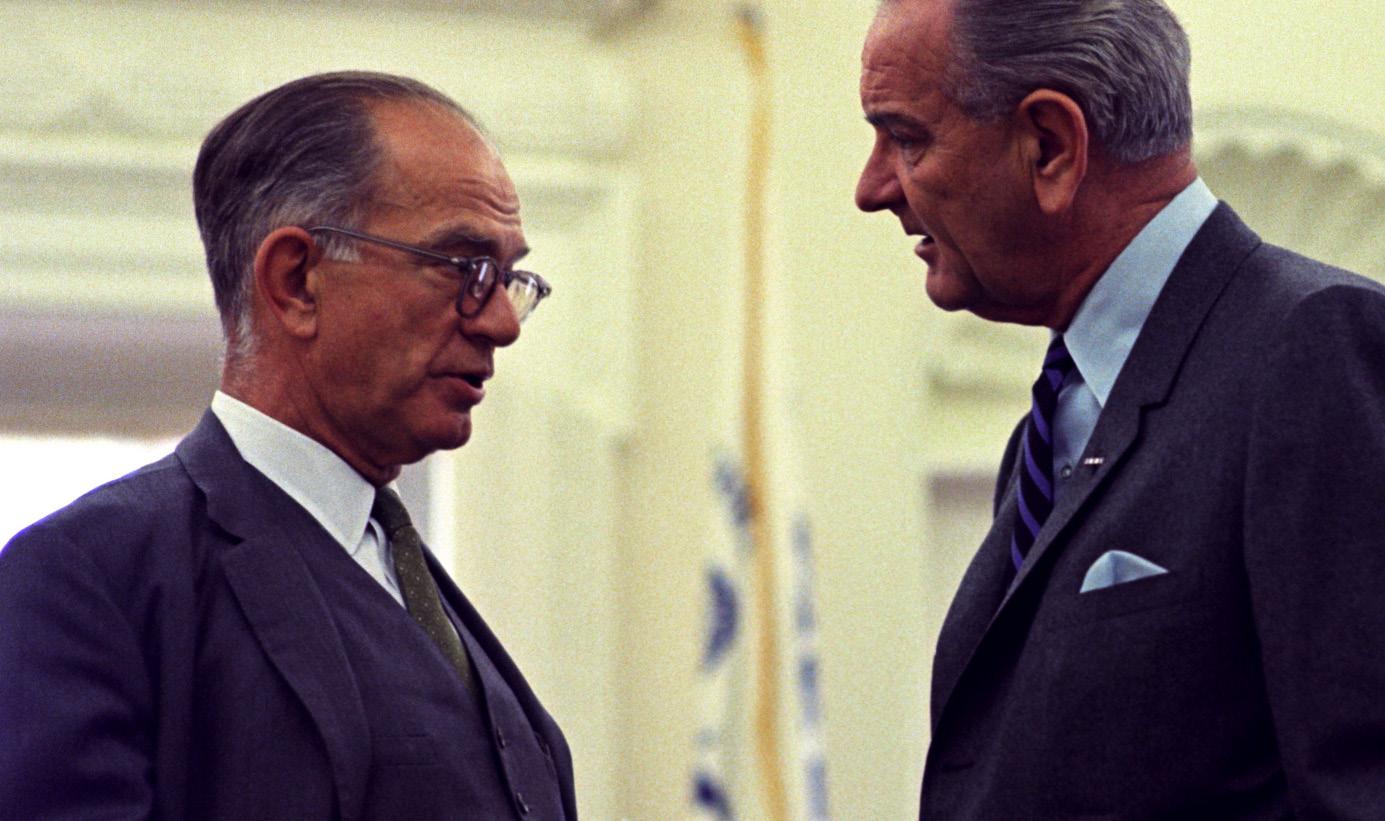
Pioneering leader departs for the U.S.
Jill Ker Conway author, academic, and corporate trailbllazer won her Fulbright Scholarship and headed to Harvard in late 1960.
Jill Ker Conway, an influential academic and memoirist, embarked on a transformative journey with her 1960 Fulbright Scholarship, studying history at Harvard University after completing her undergraduate studies at the University of Sydney. Conway's Fulbright experience broadened her perspectives, fueling her later success as a pioneering advocate for women in education. She became the first female president of Smith College in 1975, where she championed innovative curricula and empowered women in academia. Her memoir The Road from Coorain vividly recounts her Australian upbringing and academic journey, resonating with readers worldwide.
Throughout her career, Conway authored works exploring identity, feminism, and history, profoundly shaping discourse on gender and social change. Her legacy endures in both her writing and her contributions to higher education, inspiring generations of women and scholars.

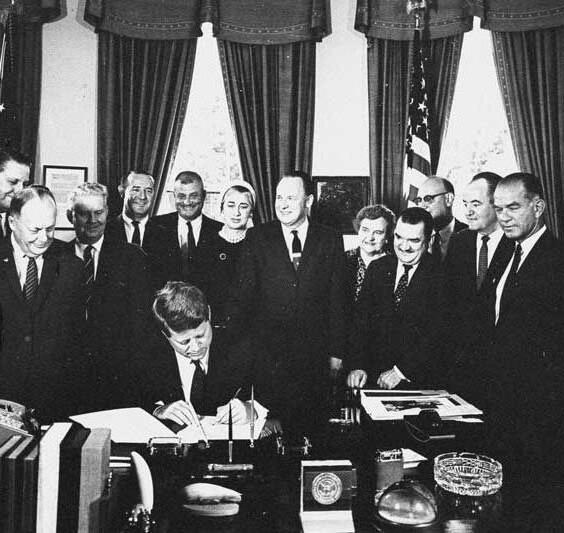
"Of all the joint ventures in which we might engage, the most productive, in my view, is educational exchange.
I have always had great difficulty—since the initiation of the Fulbright scholarships in 1946—in trying to find the words that would persuasively explain that educational exchange is not merely one of those nice but marginal activities in which we engage in international affairs, but rather, from the standpoint of future world peace and order, probably the most important and potentially rewarding of our foreign-policy activities.”

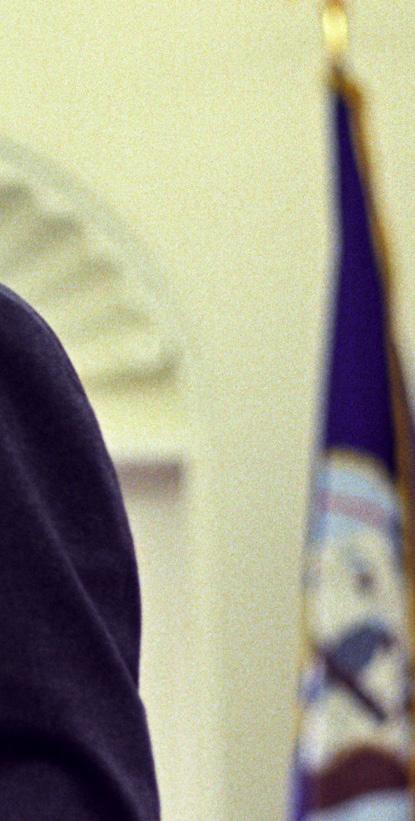

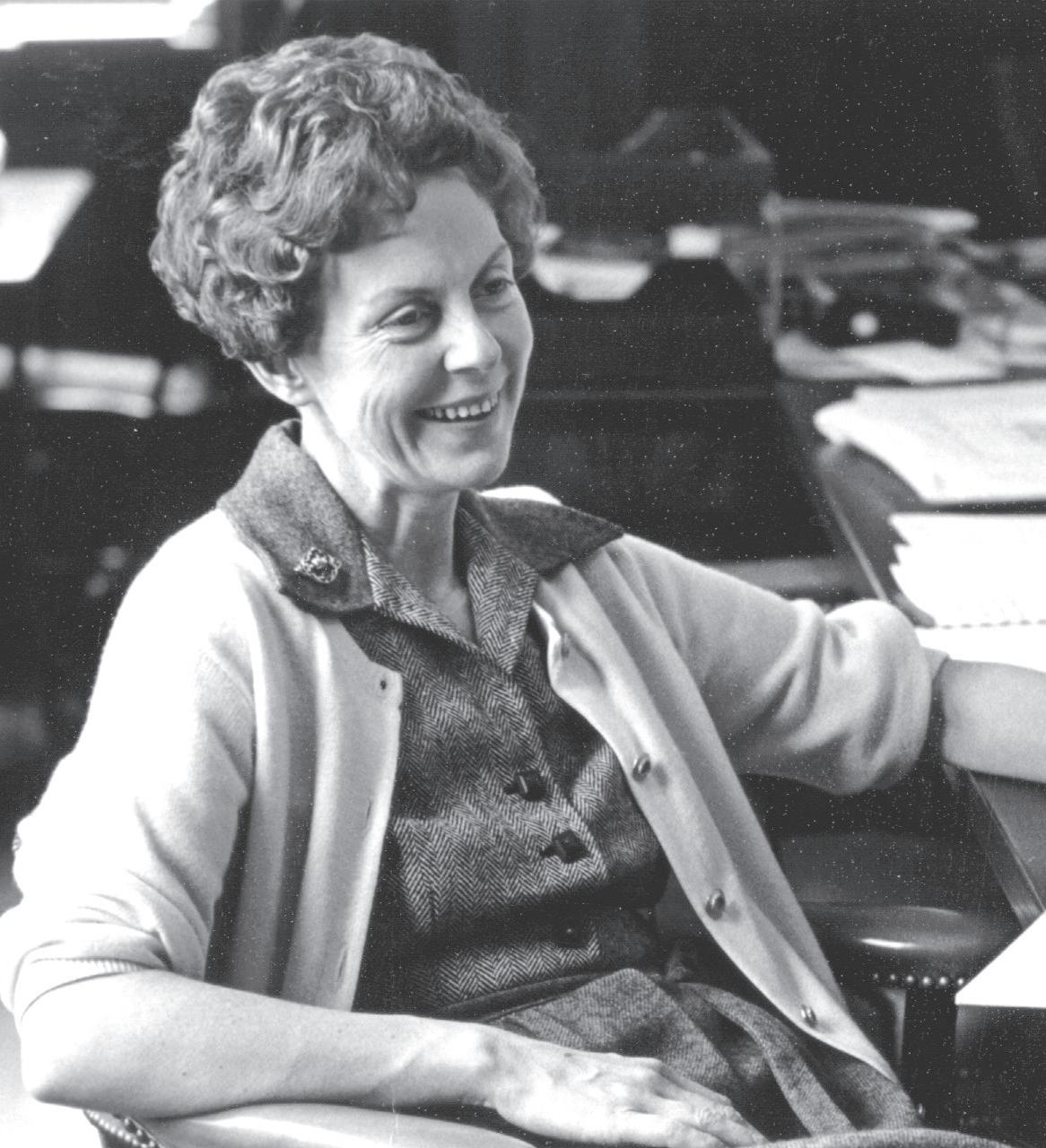
- Senator J. William Fulbright, The Price of Empire, 1967
"Time manages the most painful partings for us.
One has only to set the date, buy the ticket, and let the earth, sun, and moon make their passages through the sky, until inexorable time carries us with it to the moment of parting.”
- Jill Ker Conway, The Road from Coorain, 1989
"

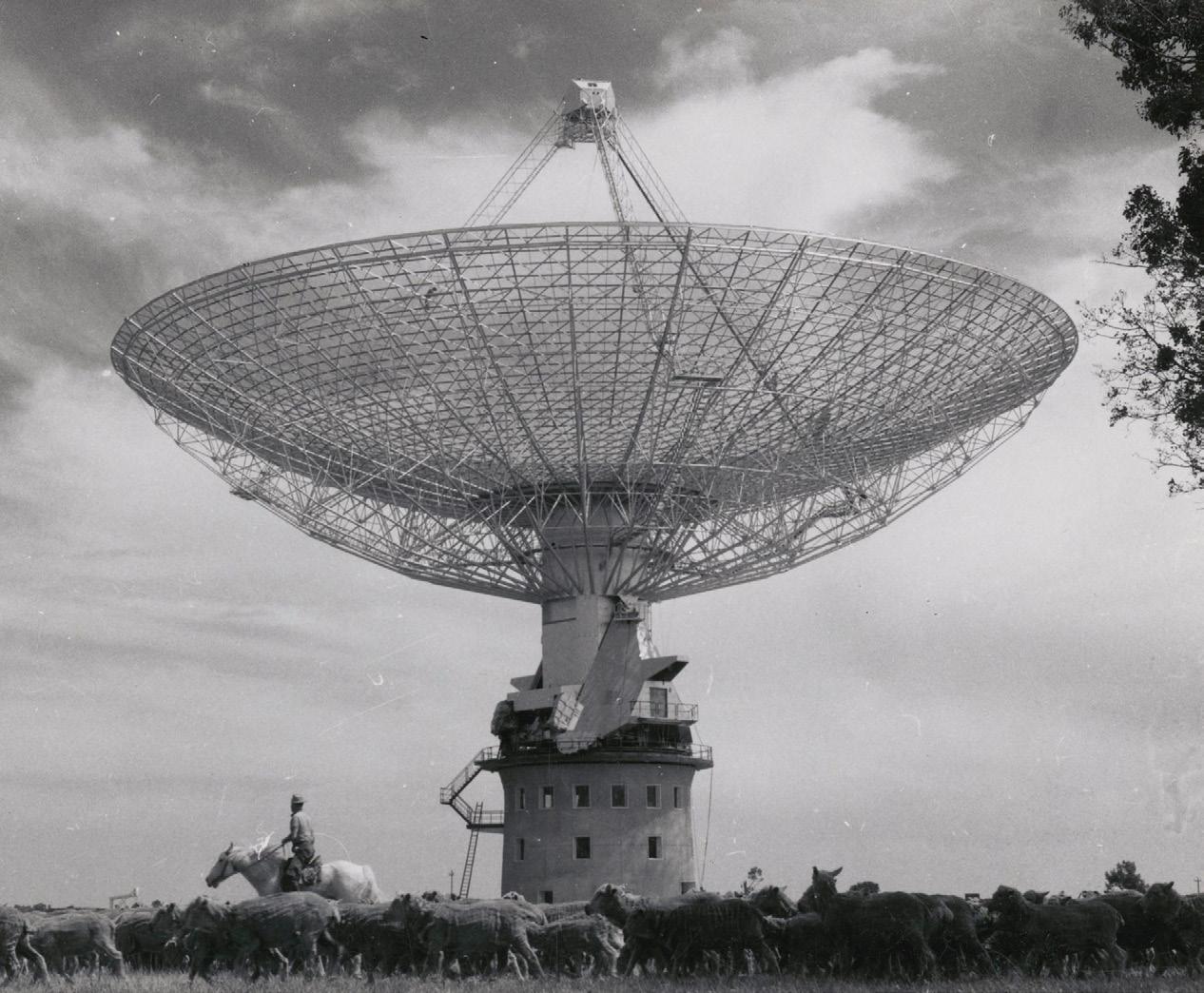
Parkes Radio Telescope opens
The 64-metre radio telescope at Parkes in western New South Wales was opened. It was one of the two largest telescopes in the world for radio observations of the southern sky.
Fulbrighters who worked at Parkes telescope in the early days included Australian CSIRO radiophysicist Jim Roberts (1958 Senior Scholar to Caltech) and 1961 American postgraduate in Astrophysics, Marc Price.

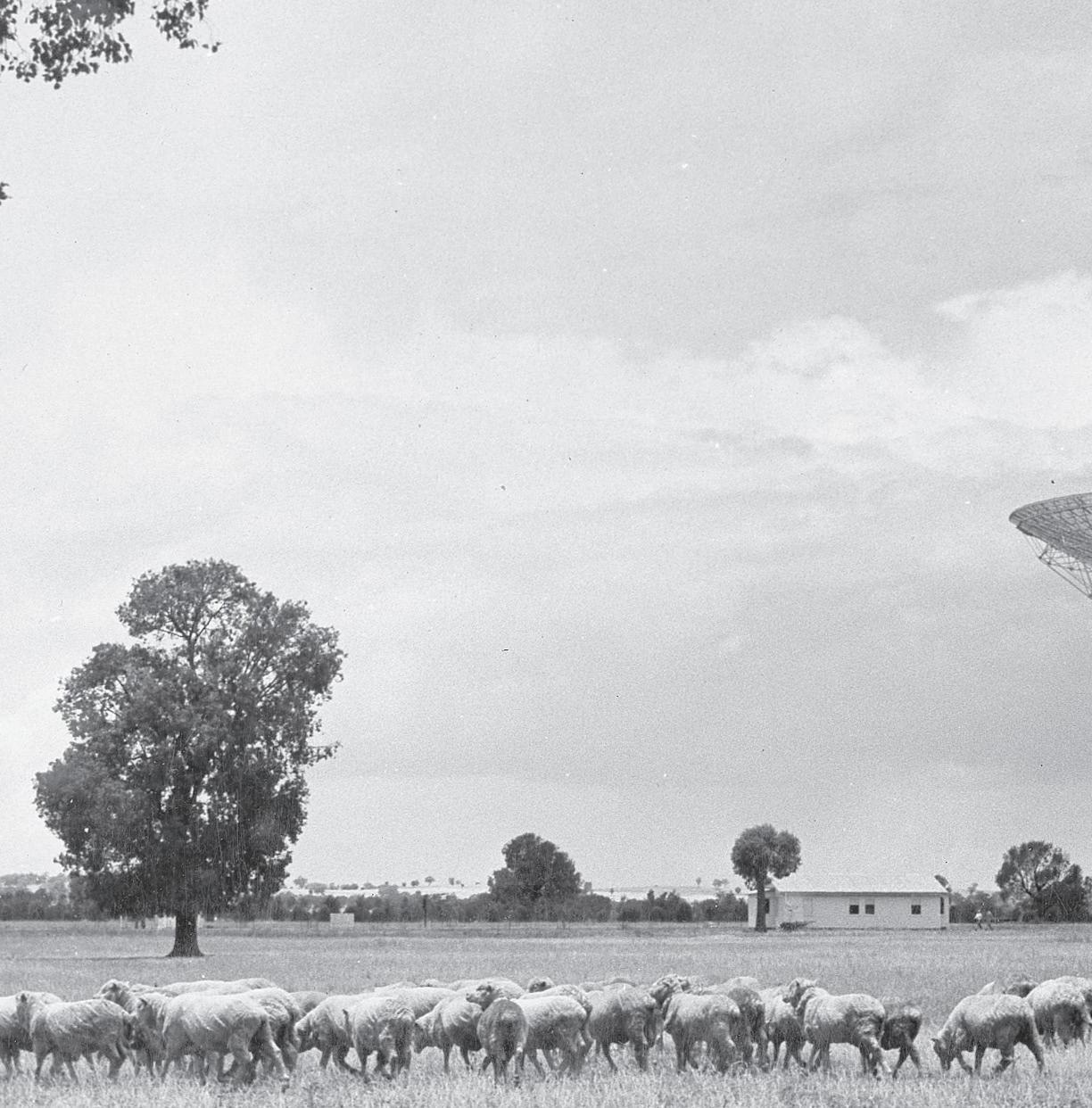
New Executive Agreement Signed, Launching Australian-American Educational Foundation
Prime Minister Menzies and U.S. Ambassador Battle sign a new executive agreement, setting up the Australian-American Educational Foundation, now funded equally by the two governments. The Australian Prime Minister was now an Honorary Chairman alongside the U.S. Ambassador, and the Prime Minister would now select Australian board members (whereas before, it was a joint decision for Australians, and a U.S. decision for Americans).
External Affairs Minister Hasluck was originally slated to sign the new agreement, but at the last minute, Prime Minister Menzies decided to sign, partly on advice from departmental officers who suggested 'it would be a nice compliment to Battle' and would 'ensure the Prime Minister's personal interest in the Agreement.'
"During the early 1960s, I had the great pleasure and privilege of working alongside some of the world’s finest radio astronomers and microwave engineers, and of using the world’s best single-dish radio telescope.
Added to that, the activities at Mount Stromlo Observatory, under the direction of Bart J. Bok, provided a tremendous educational opportunity for a young graduate student.
My gratitude goes to all the pioneers of radiophysics and radio astronomy in Australia during the 1950s and '60s.”
- Marc Price, TheFirstObservations withtheGRTatParkes,1961
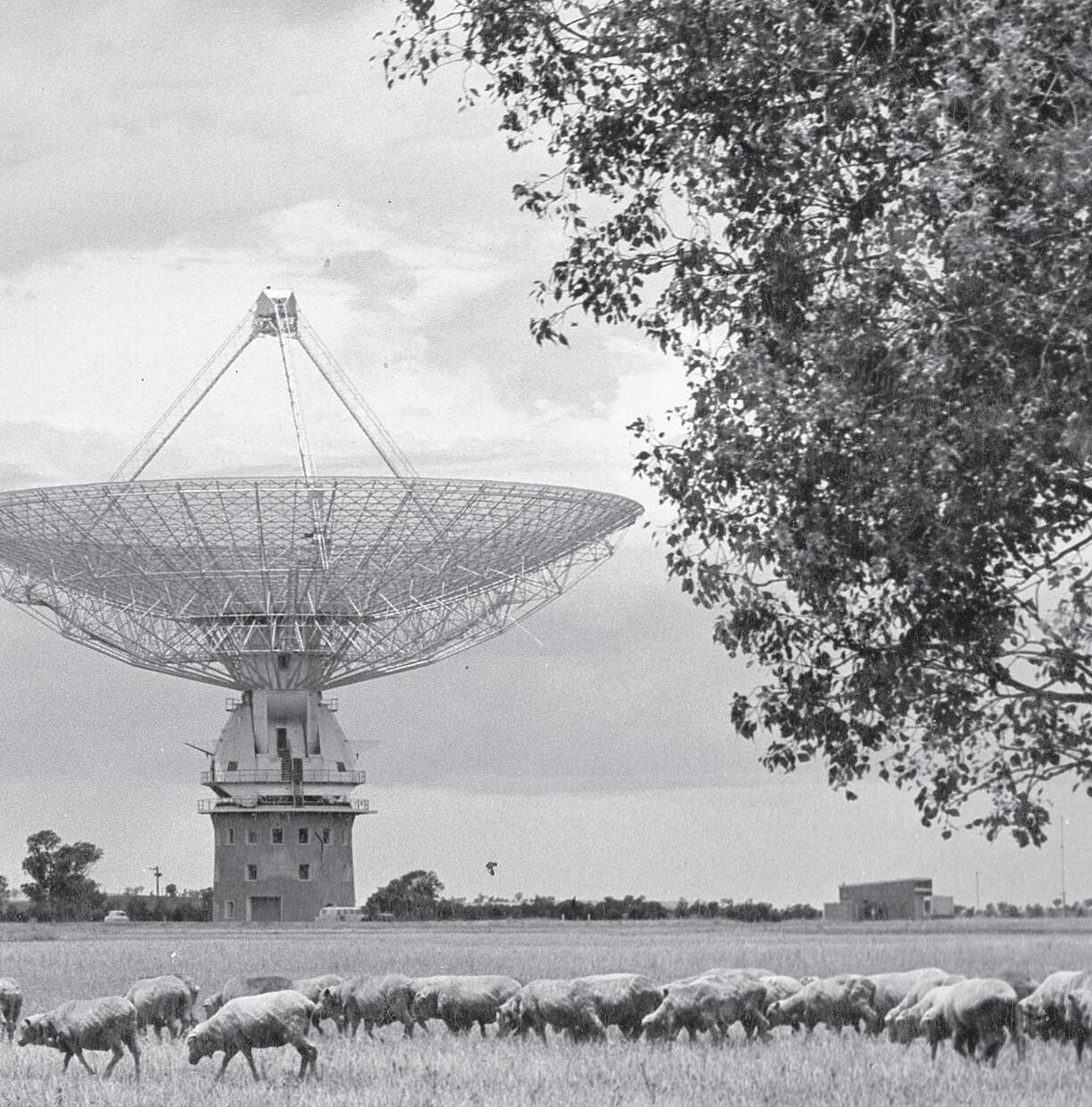
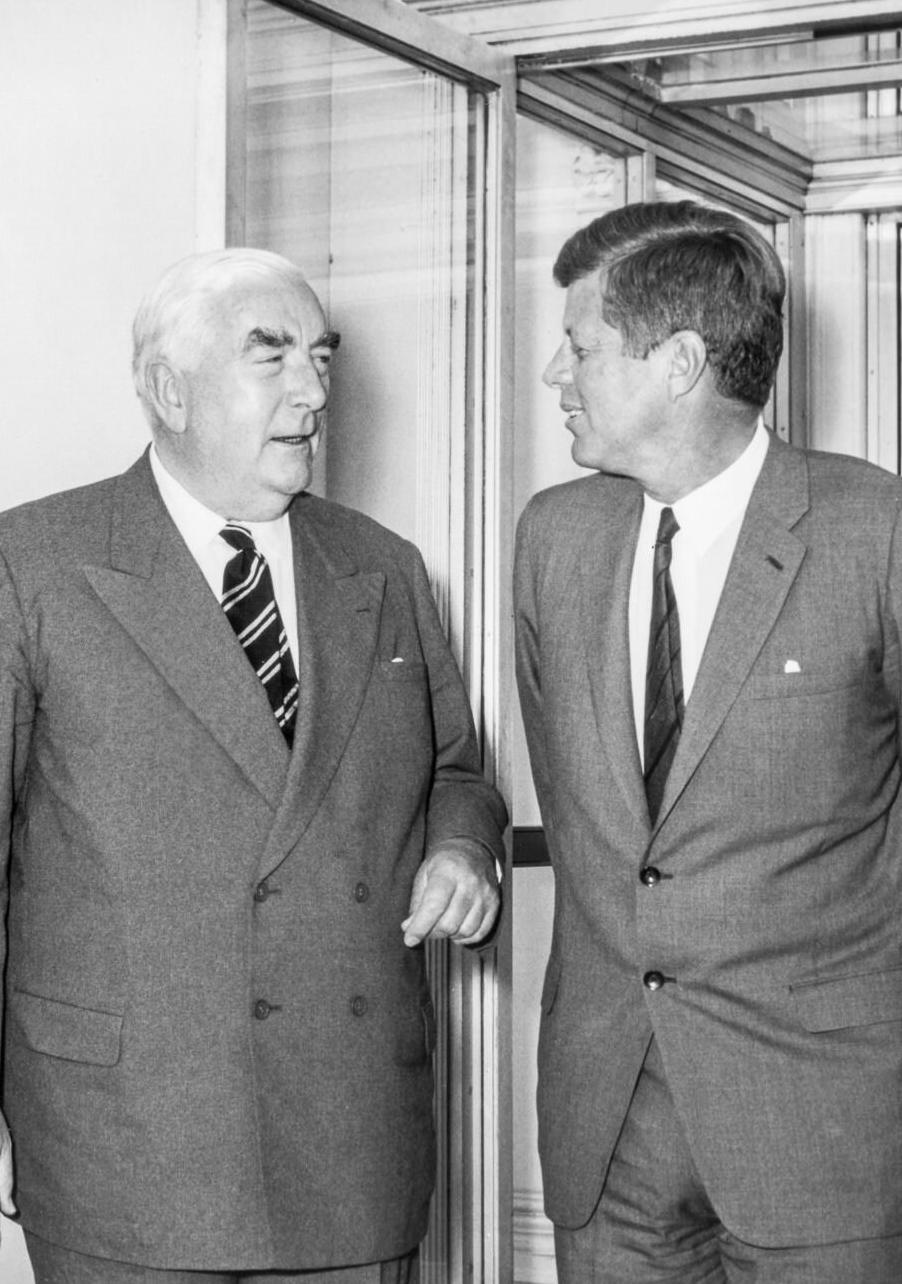
"We are ever mindful of the warmth of relations between ourselves and the people of the United States of America –an association which I am sure can only grow in strength as both our countries work together in the cause of freedom and justice within the framework of the democratic way of life.
- Robert Menzies, 1962 "
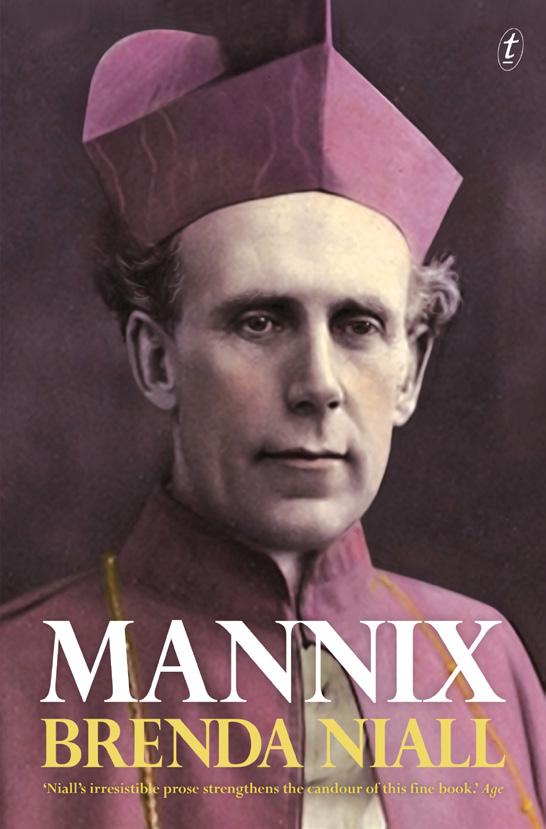


Sen. Fulbright attends Australian Board meeting
During a short stay of several days in Australia on his way home from a New Zealand Conference, Senator Fulbright attended the AAEF board meeting in Sydney along with his aide Seth Tillman. Senator Fulbright caused something of a media storm due to his comments about the (relatively) small size of the Australian military contingent in Vietnam. At this time, Senator Fulbright already had serious reservations about the war in Vietnam, and it would not be long before he became one of the most vocal and influential opponents of the US military intervention, incurring the wrath of President Johnson who had once counted him as a supporter and friend.
Dr. Brenda Niall AO FAHA is a renowned Australian author and historian, celebrated for her significant contributions to literature and historical scholarship. In 1967, she was awarded a Fulbright Scholarship, which enabled her to study at the University of Michigan. This opportunity broadened her academic perspectives and deepened her research skills, influencing her later work.
Niall's literary career is marked by her acclaimed biographies, including notable works on Australian writers such as Henry Lawson and Mary Gilmore. Her writings often explore themes of identity, culture, and the role of women in Australian history. She has received numerous accolades for her work, including the prestigious Order of Australia and membership in the Australian Academy of the Humanities.
Through her scholarship and literary contributions, Niall has had a profound impact on the understanding of Australia's cultural and literary heritage.
Two prominent Fulbright alums head off to the U.S.
The Hon. Nick Greiner AC and Dr Brenda Niall AO FAHA were awarded Fulbright Scholarships in '67
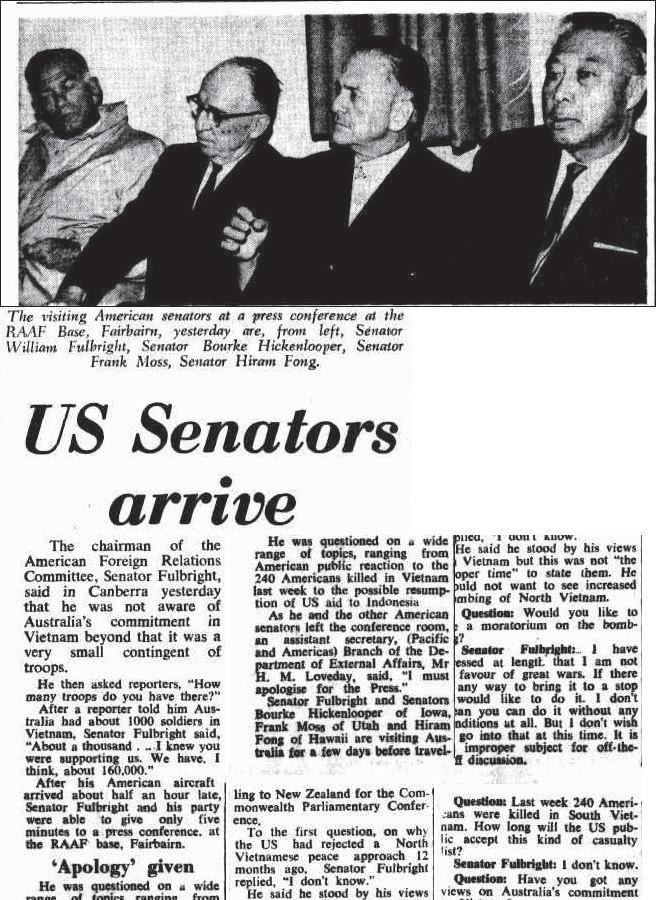
[My PhD supervisor] said that the moment I was expected to pour the tea or coffee my career was over. He suggested that I apply for a Fulbright scholarship in the US and turn my Edith Wharton thesis into a book.
I got the Fulbright and came back to Monash with the necessary experience of overseas study, at the University of Michigan, as well as time on the Wharton papers at Yale. I came back, got a lectureship, and that was the beginning of a proper career.”
- Dr Brenda Niall, MyAccidentalCareer
The Hon. Nicholas Greiner AC is a distinguished Australian politician and businessman, known for his impactful contributions as the 39th Premier of New South Wales from 1988 to 1992. Greiner's tenure was marked by significant economic reforms and infrastructure development, particularly in transport and urban planning.
His career took a pivotal turn during his Fulbright Scholarship in 1967, which allowed him to complete an MBA at Harvard University. This experience not only broadened his academic and professional horizons but also enhanced his understanding of governance and public policy. Greiner's time in the U.S. influenced his later leadership style and commitment to innovative public administration.
After his premiership, Greiner continued to influence public policy through various roles in government, the private sector and community organisations. His contributions have left a lasting legacy on both the political landscape and the business community in Australia. In 1994, he was awarded a Companion of the Order of Australia for public sector reform and management and services to the community. Greiner served as the Consul General for New York from 2021 to 2024.
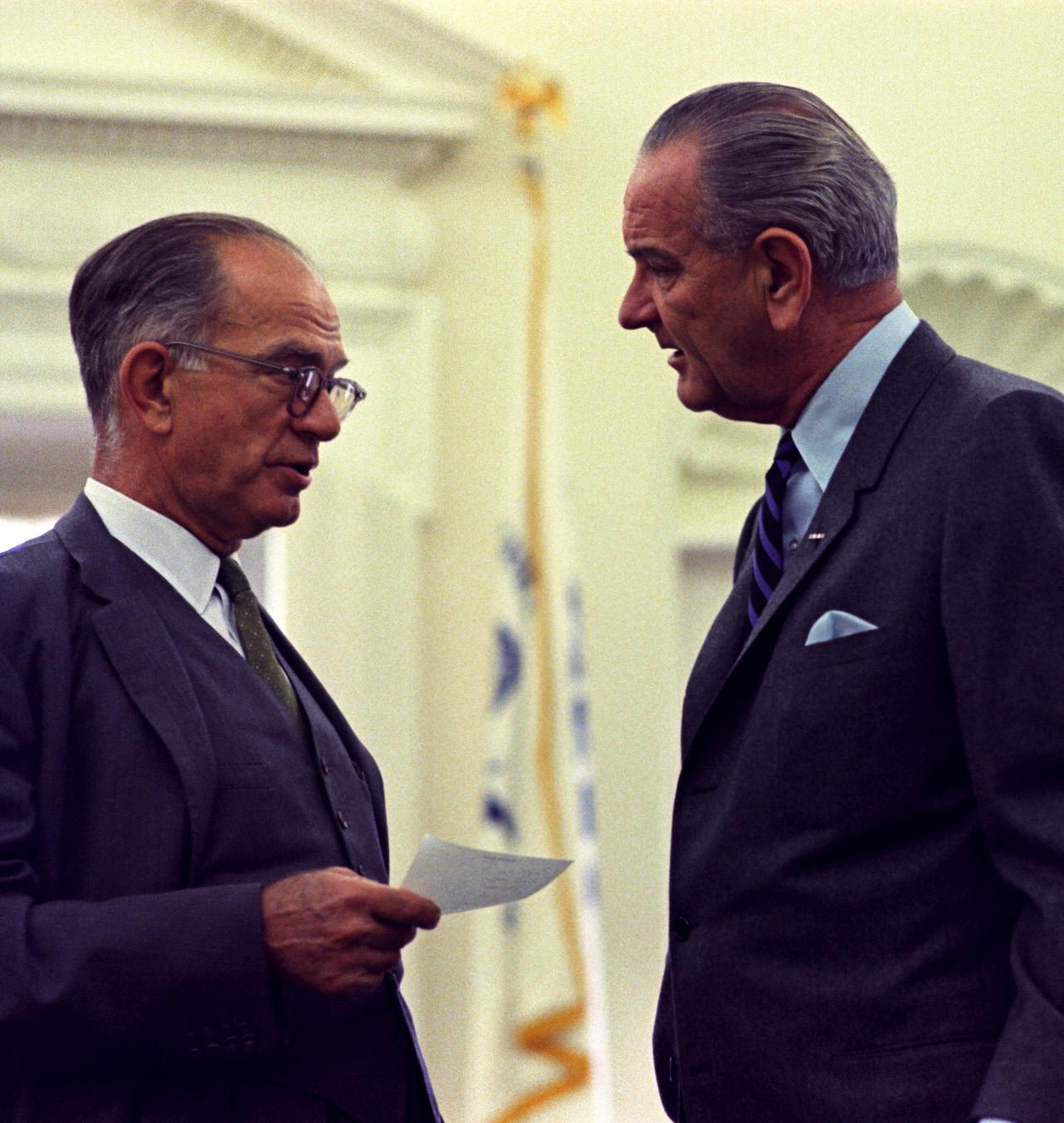

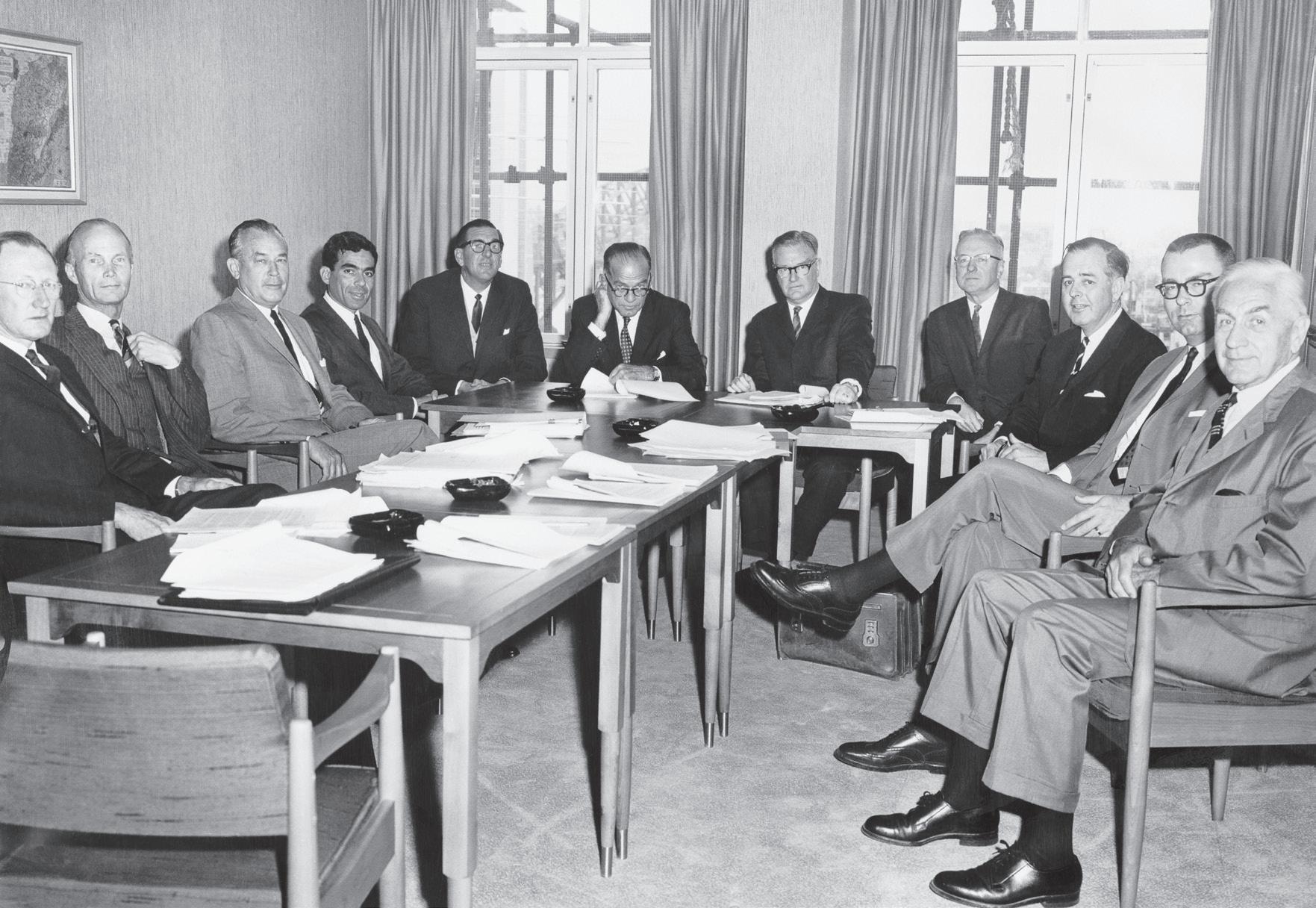
was a distinguished Australian historian known for his expertise in Australian political history. His scholarly career spanned several decades, during which he held prominent academic positions, including a long tenure at the University of Melbourne and later the Australian National University.
La Nauze's research focused primarily on Australian federation and political thought, and he was highly regarded for his authoritative biography of Alfred Deakin, one of Australia’s founding fathers. In 1978, La Nauze became the inaugural professor appointed to the Harvard Chair of Australian Studies, a role that allowed him to share Australia’s political heritage with American students and academics. His work left a lasting legacy in the field of Australian history, inspiring future generations of historians and deepening international understanding of Australia’s political landscape.

The Harvard Chair of Australian Studies was established in 1976 as a gift from the Australian Government to Harvard University, commemorating America’s Bicentennial. Its purpose was to advance teaching, research, and publications that would enhance American awareness and understanding of Australia. The AustralianAmerican Educational Foundation was actively involved in early discussions around the Chair's establishment.
In March 1975, the bi-national board committed to supporting Australian Studies by offering three Travel Only grants over a three-year trial period starting in 1977. While the grants were available to all U.S. universities with Australian Studies programs, the Foundation’s promotion highlighted the proposed Harvard Chair as a premier academic initiative supported by Australian funding.
In April 1976, the board reviewed candidates for the inaugural position, selecting the University of Melbourne’s esteemed Professor of History, John La Nauze. He became the first scholar to hold the Chair, beginning his tenure in February 1978.

Since its inception in 1952, teacher interchange had been a vital component of the Australian-American Fulbright Program, facilitating educational exchanges for approximately 250 teachers in both directions. This initiative aimed to enhance teaching practices and foster cultural understanding between the two nations. Although the teacher program experienced a brief revival in the 1980s, it was ultimately discontinued in the late 1990s, highlighting the challenges of sustaining such initiatives over time.
The narrative of US-Australian educational networks is multifaceted and worthy of further exploration. Notably, the Australian Council for Educational Research (ACER) has played a pivotal role in developing educational testing in Australia, receiving both praise and criticism for its methodologies. In the early 1950s, ACER actively engaged in promoting visits by senior American educationalists and gained accreditation from the bi-national board to host visiting scholars. This foundational work underscored the importance of collaboration in shaping educational practices and policies in Australia.

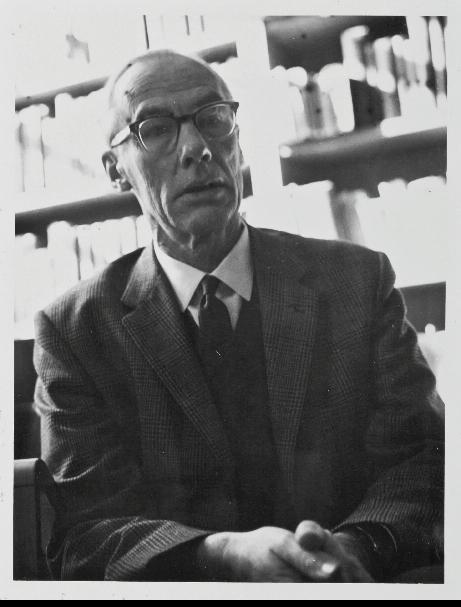
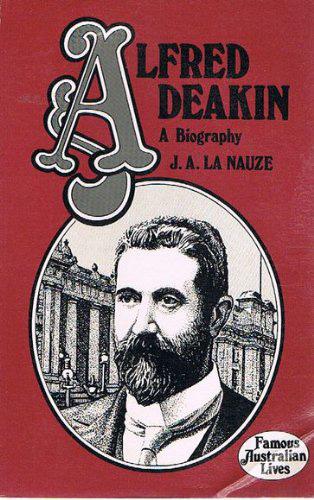
Coaldrake AO has had a distinguished career in Australian higher education and public policy. He first received a Fulbright Scholarship in 1980, supporting his studies at George Washington University and advancing his expertise in public administration and higher education policy. Coaldrake returned to GWU as a Fulbright Senior Scholar in 2001, furthering his research into university governance and institutional management. His work led him to prominent roles, including Vice-Chancellor of Queensland University of Technology (QUT), where he championed innovation and accessibility in education. Widely respected, Coaldrake’s insights into university leadership and policy reform have significantly shaped Australia’s higher education landscape.

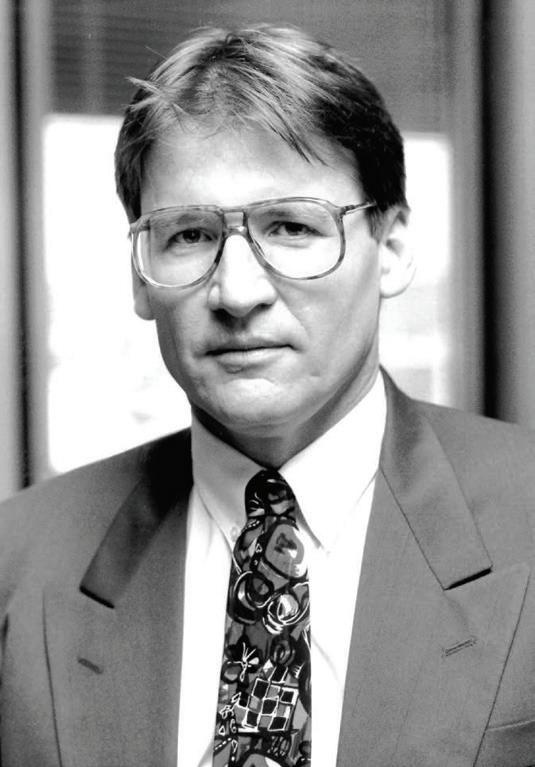
Professor Peter Coaldrake receives his first Fulbright
Professor Peter Coaldrake AO, fmr. Vice-Chancellor of QUT, won a 1980 Postdoctoral Fellow in Political Science at George Washington University. Later, he went on to win a second Fulbright, and ultimately played an active role on the Fulbright bi-national board and scholarship selection committees.
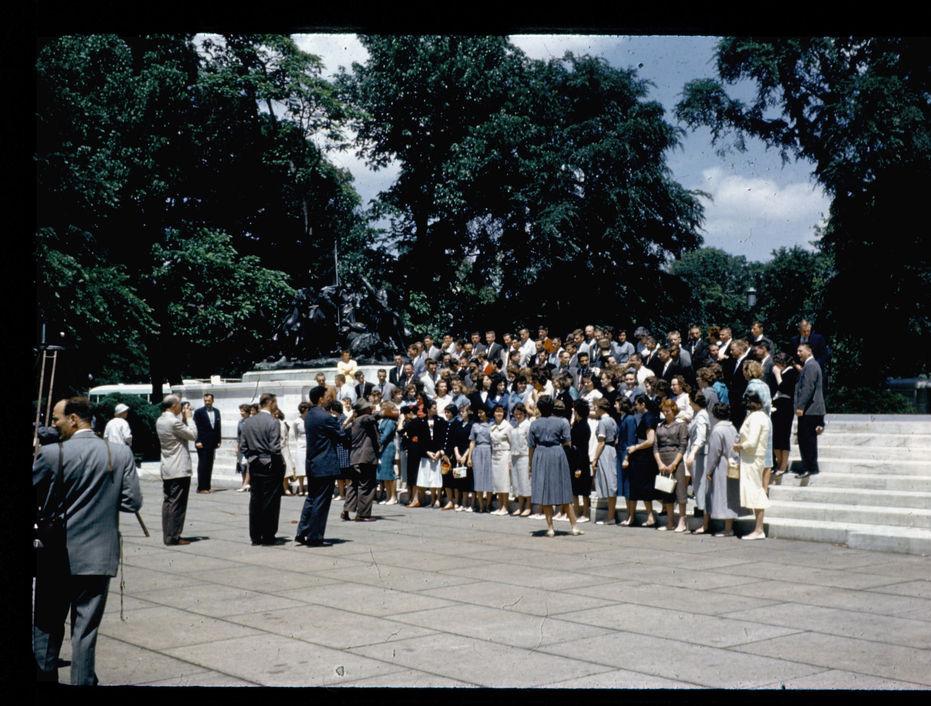
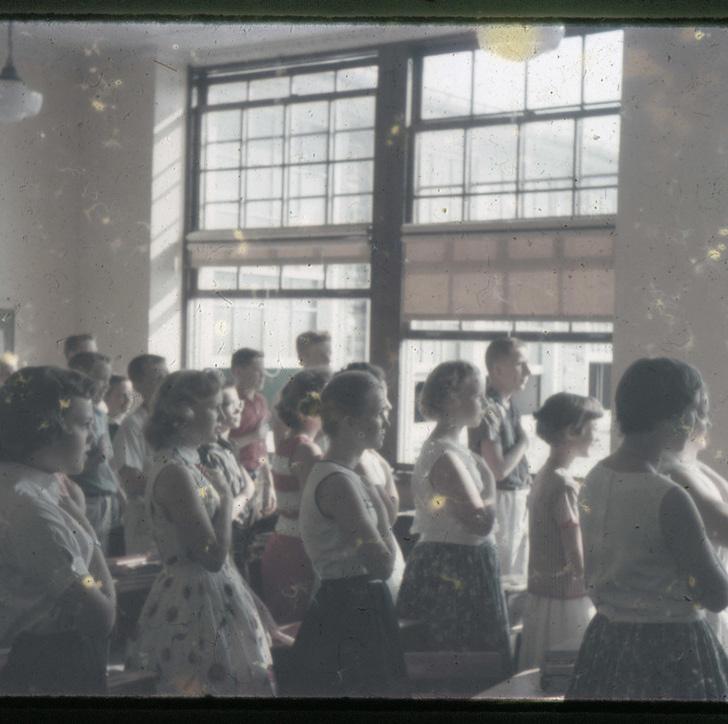
Springfield High School, OH, class of '58 photos taken by Kelton McDonald, Fulbright Teacher Exchange alum
Holden
was a pioneering Australian optometrist and researcher whose work revolutionised eye care. He completed a Fulbright Scholarship in 1982, deepening his research on vision correction and the development of innovative contact lens technology.
As founder of the Brien Holden Vision Institute, he championed affordable eye care and vision improvement, leading groundbreaking research on myopia and presbyopia management. Holden's humanitarian efforts were instrumental in expanding access to vision care globally, especially in underserved regions. Recognized with numerous awards, his contributions continue to impact millions, leaving a lasting legacy in global eye health.
Prominent Fulbright journeys begin
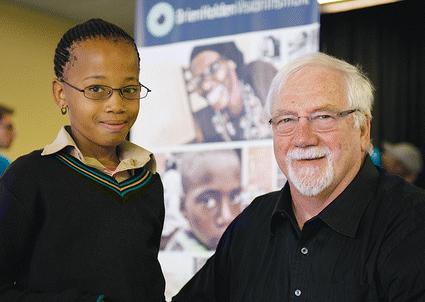
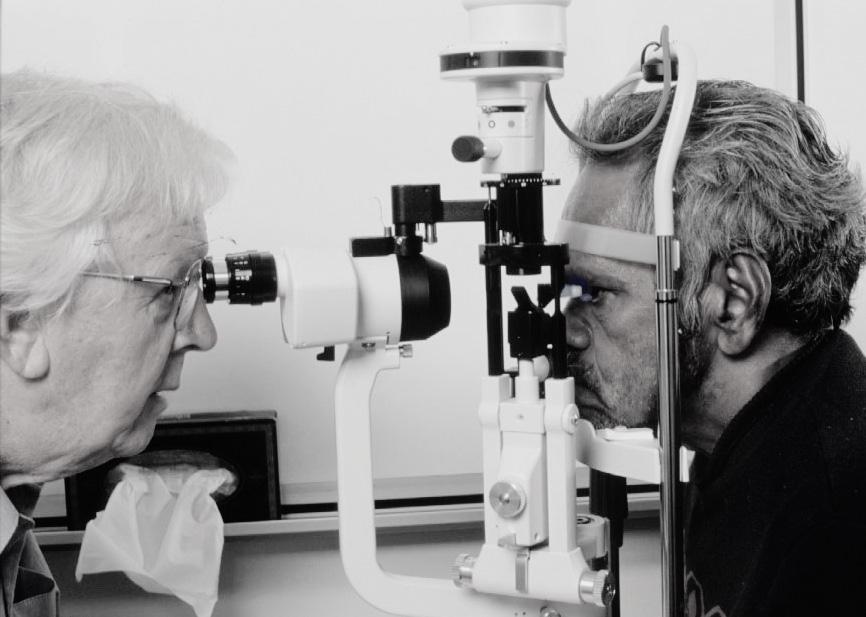
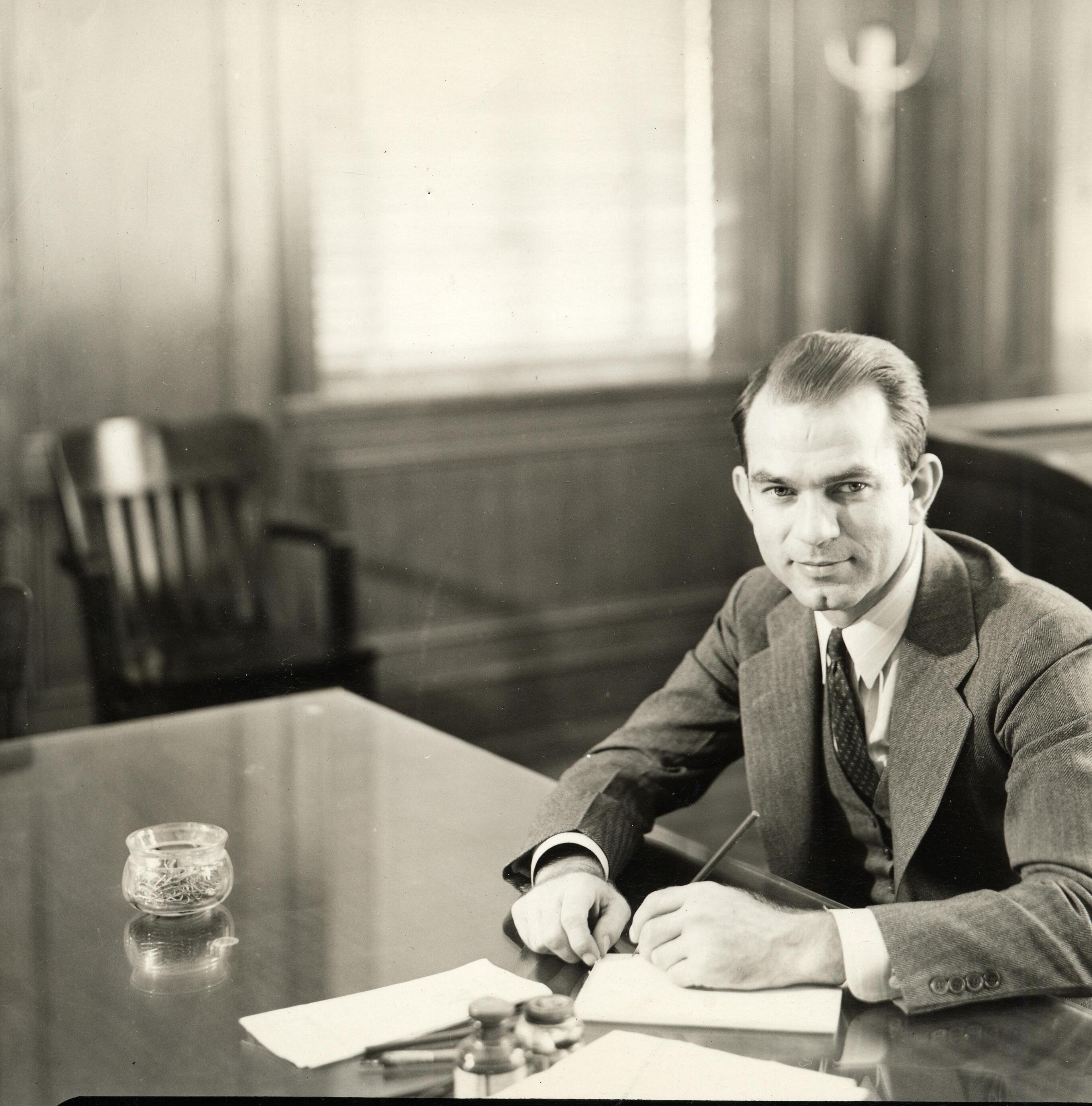
Susan Bambrick OBE, Brien Holden OAM, Dr Malcolm Beazley AM, and Professor Naomi Pierce receive Fulbright Scholarships and disembark in '82, marking the beginning of their decorated careers.
is an esteemed academic and economist known for her contributions to industry and resource economics. She graduated with a Bachelor of Economics (Hons.) from the University of Queensland in 1965 and later earned a Ph.D. from the Australian National University, where her thesis focused on Australian price indexes. Bambrick’s academic career centered in the Faculty of Economics and Commerce at ANU, where she specialized in industry economics. She became the first Australian Fulbright Scholar-in-Residence in the United States, sharing her expertise internationally.
Bambrick later held key leadership roles as Pro Vice-Chancellor at La Trobe University and Deputy Vice-Chancellor at the University of Southern Queensland, before returning to ANU to become Master of University House until her retirement in 2004. Her public service extended to numerous governmental councils and committees, including the Council of the National Library of Australia. Recognized for her service to education, particularly in energy and resource economics, she was appointed Officer of the Order of the British Empire (OBE) in 1983.
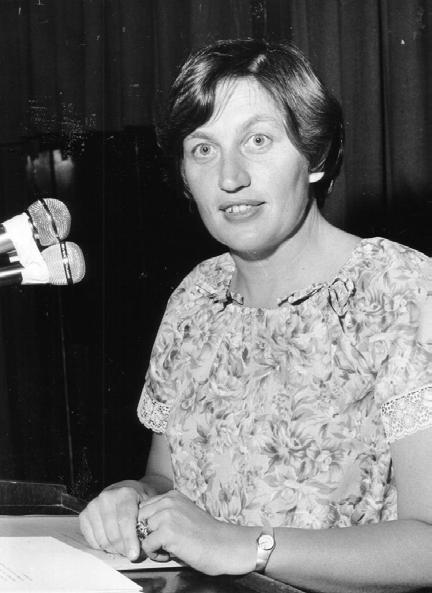
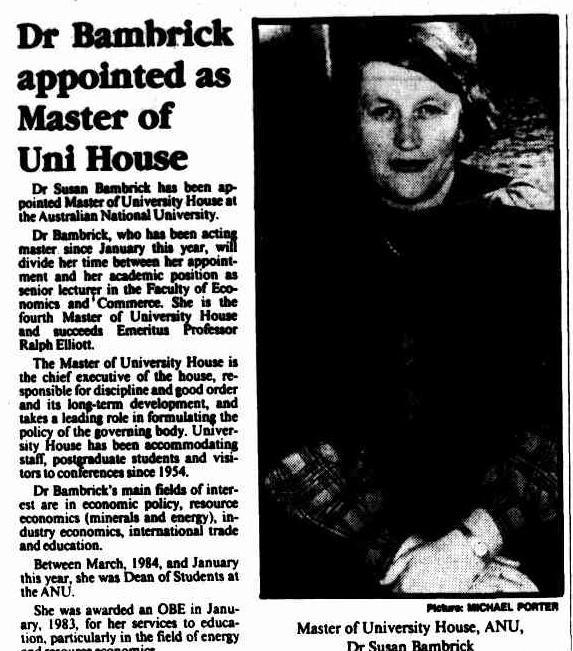
launched his pioneering program, Computer Pals Across the World (CPAW), following a Fulbright Scholarship in 1982, where he researched language and writing development in children. CPAW began as the AustrAlaskan Writing Project, linking students from Sydney to Alaska through innovative online exchanges that expanded to more countries and communities, including hospitals and senior centers. This early online communication model connected remote students, inspired international educational projects, and laid the groundwork for social media in education. Beazley’s contributions earned him the Order of Australia medal in 1991 and a legacy of global educational impact.
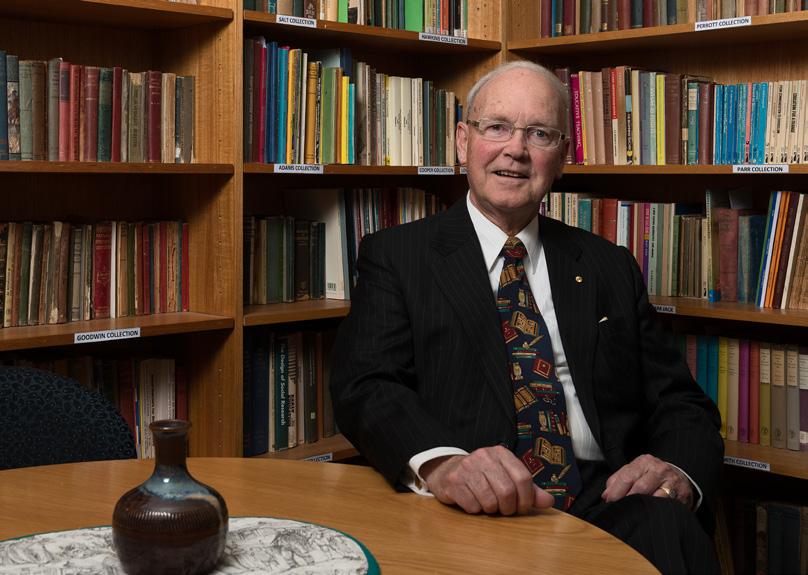
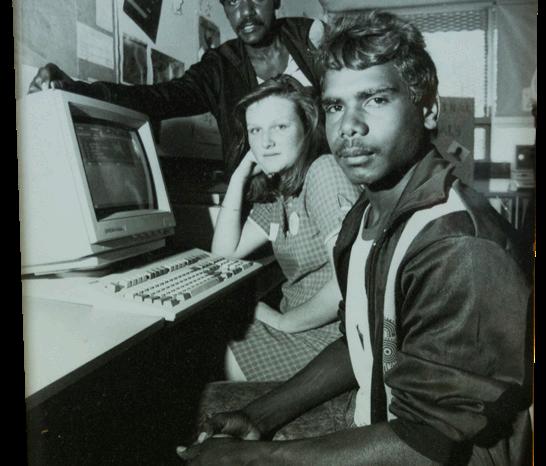
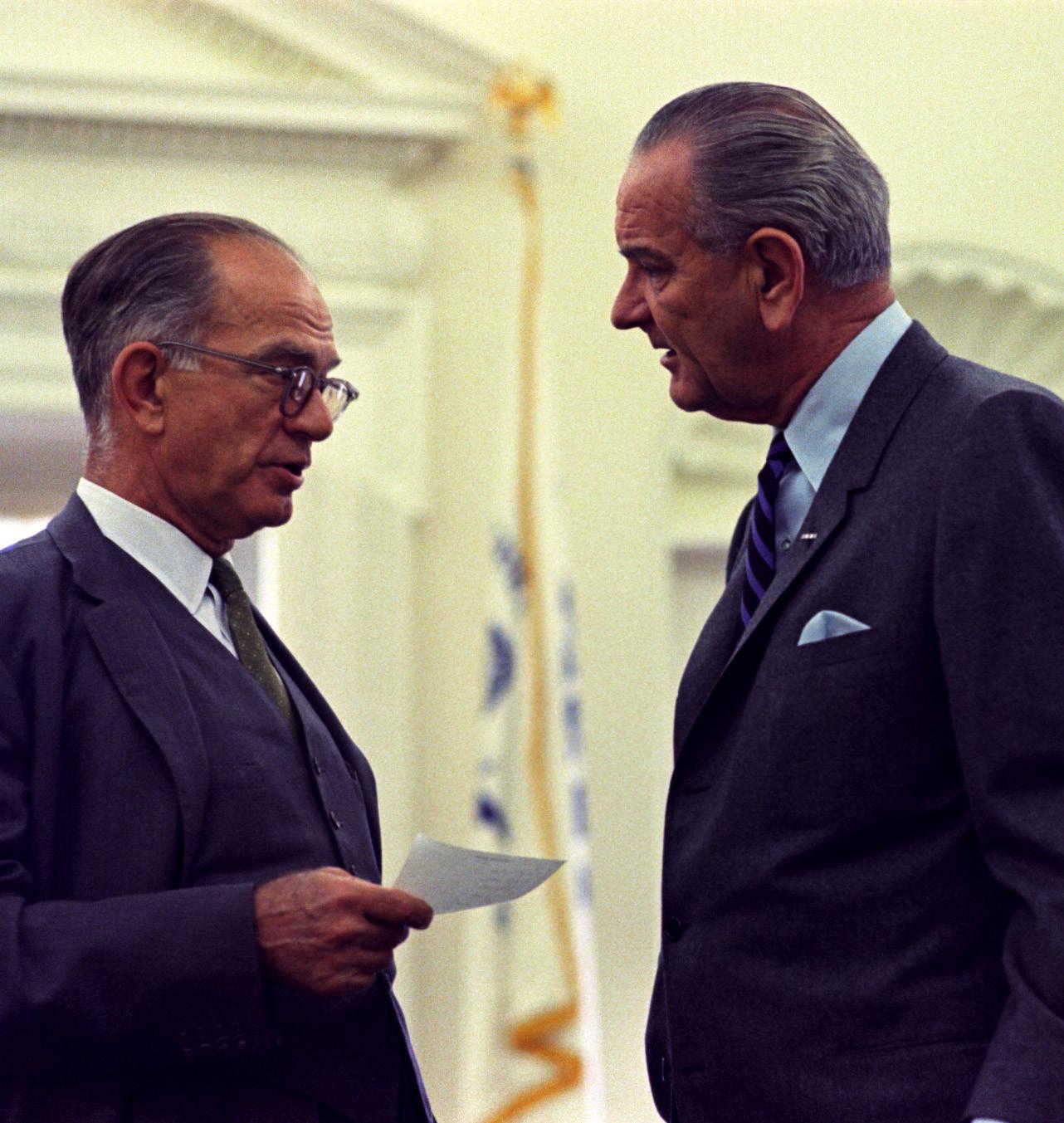

Professor Naomi Pierce, an influential evolutionary biologist, conducted her 1983 Fulbright Scholarship research at Griffith University, Queensland, studying insect-plant interactions with a focus on the intricate relationship between ants and butterflies. Her work has significantly advanced understanding of coevolution, particularly through groundbreaking studies on the mutualistic relationships between lycaenid butterflies and ants, highlighting how species evolve in tandem through mutual benefit. Now the Hessel Professor of Biology at Harvard University and Curator of Lepidoptera at the Museum of Comparative Zoology, Pierce’s contributions won her a Macarthur Fellowship in '88, and have greatly impacted evolutionary biology, ecological studies, and conservation efforts worldwide.
Another key figure gets their Fulbright start
Professor Peter Shergold AC receives his Fulbright Scholarship in '84 and heads to Pennsylvania to study history.

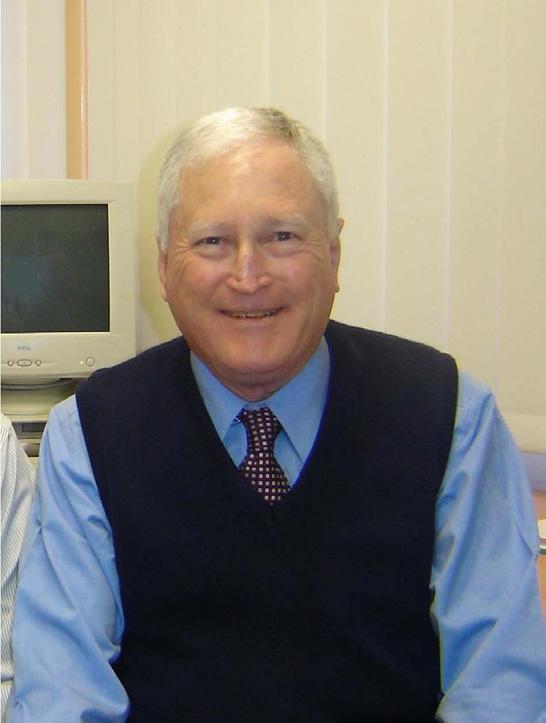
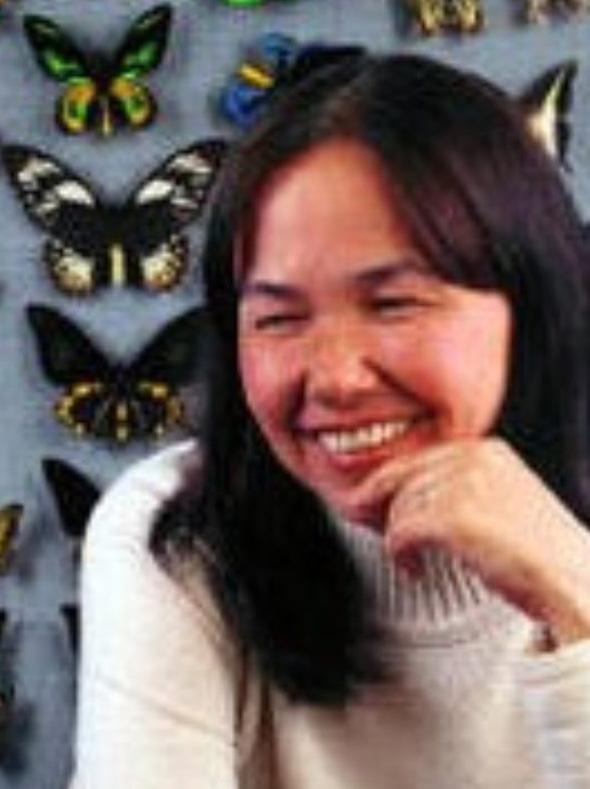
AC is a renowned public servant and academic with a significant impact on Australian governance and policy. Awarded a Fulbright Scholarship in 1984 to study at Pennsylvania State University, Shergold focused on improving public administration and public policy, a commitment that defined his career. He served as the head of the Department of the Prime Minister and Cabinet, influencing national policy and reform.
Following his tenure as Chancellor of Western Sydney University, Shergold joined the board of Australia for UNHCR. In this role, he leverages his expertise in refugee resettlement, working with all levels of government and across sectors— including non-profit, community, education, and corporate—to support sustainable resettlement initiatives. His leadership fosters collaborations that address both immediate needs and longterm opportunities for displaced communities.
Gardner AC is a prominent Australian academic and administrator known for her impactful leadership in higher education. She began her career as a lecturer in industrial relations at Griffith University and later advanced to key executive roles, including as ViceChancellor of RMIT University and Monash University. Her 1987 Fulbright Scholarship to the University of California, Berkeley, facilitated research that informed her expertise in labor economics and industrial relations.
At RMIT, Gardner was instrumental in strengthening the university’s global ties, particularly in Asia, and integrating technology and innovation into its programs. Her influence extended further at Monash, where she led the university’s expansion and promoted research excellence, internationalization, and diversity. Recognised as a reformist in education policy, Gardner served as Chair of Universities Australia, advocating for sustainable funding, increased access, and gender equity across the sector.
In 2023, Gardner was appointed Governor of Victoria, marking a significant milestone in her public service career. Her leadership in academia and her contributions to policy and gender equality in Australian education have left a lasting legacy, reinforcing her role as a champion for innovation, inclusion, and global engagement in the field.
Two trailblazing leaders from Sydney begin their Fulbright journeys
Professor Margaret Gardner AC, then a postdoctoral researcher, and Gina Cass-Gottlieb, then a grad student at the University of Sydney, receive Fulbright Scholarships to UC Berkeley.
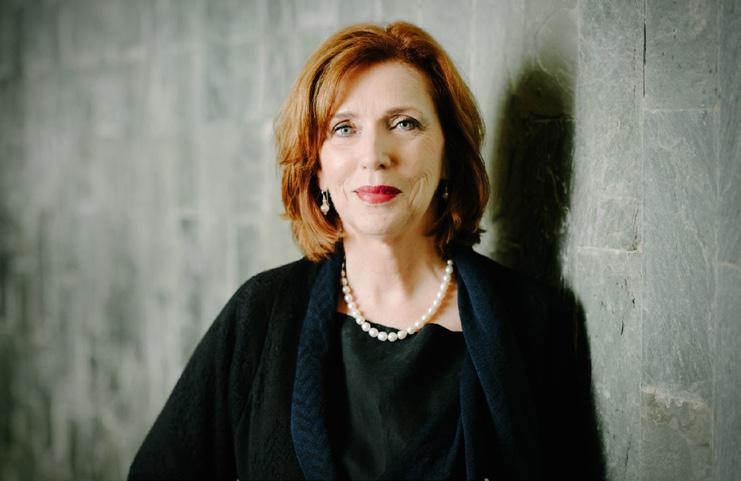

is a distinguished Australian lawyer with a career marked by leadership in competition and regulatory law. Following her Fulbright Scholarship to the University of California, Berkeley, Cass-Gottlieb gained extensive expertise that would shape her career. She became a partner at Gilbert + Tobin, where she advised on landmark cases in telecommunications, financial services, and consumer protection.
In 2022, Cass-Gottlieb was appointed Chair of the Australian Competition and Consumer Commission (ACCC), the first woman in this role. Her work continues to influence regulatory practices in Australia, enhancing fair competition and consumer rights.
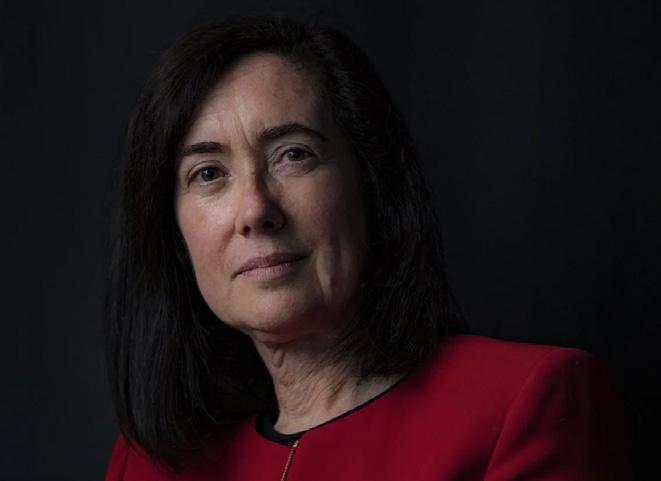
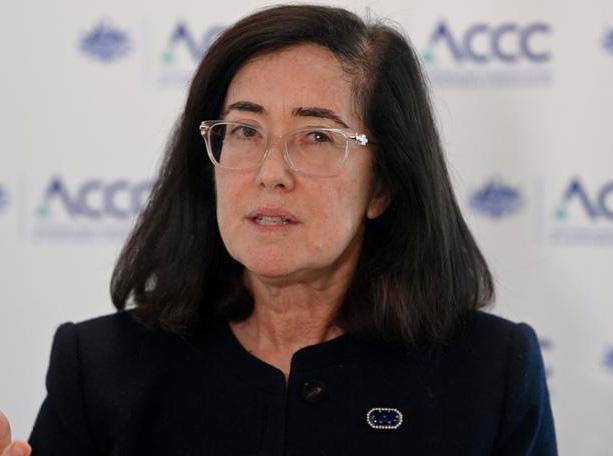
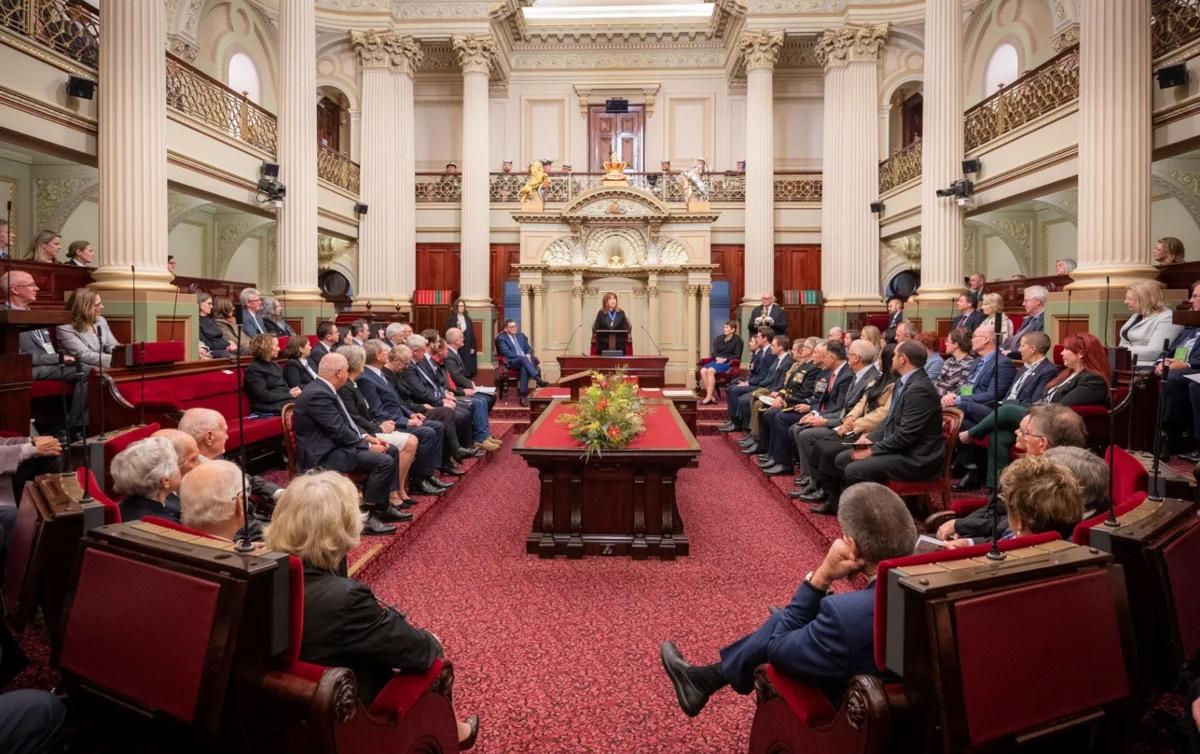
Fulbright Board enact new policy changes
The binational board resolved that the American program would be made 'essentially open' in the same way as the Australian program (that is, research fields would not be determined in advance). Applicants would also be expected to address explicitly how their research would contribute to Australian-U.S. understanding. An in-principle decision was also made to move towards parity in award benefits between Australian and U.S. scholars.
Additionally, a decision was made to create a new Professional award category, in the first years designed for those in the media profession.
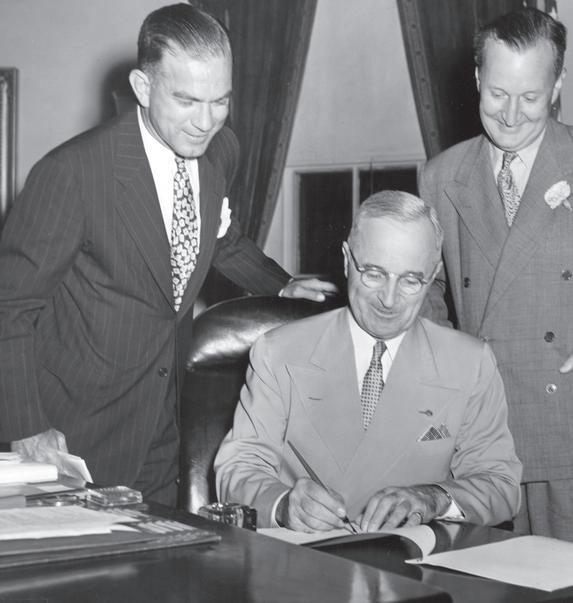
is a distinguished composer, pianist, and musicologist known for his contributions to contemporary classical music. Born in China and trained in Australia, he has enriched the Australian music landscape through innovative compositions and academic work.
Larry's 1988 Fulbright Scholarship to the United States enabled him to delve into American avant-garde music, significantly influencing his style and expanding his repertoire. Sitsky has taught and mentored generations of musicians, held key positions at the Australian National University, and earned numerous honors, shaping him as a central figure in Australian music and culture.
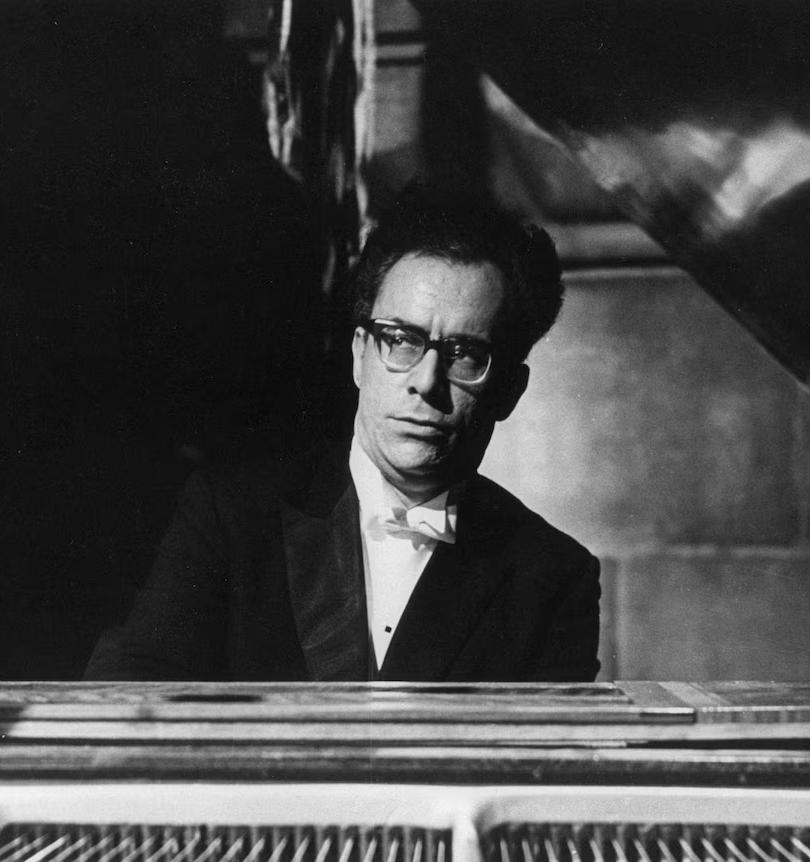
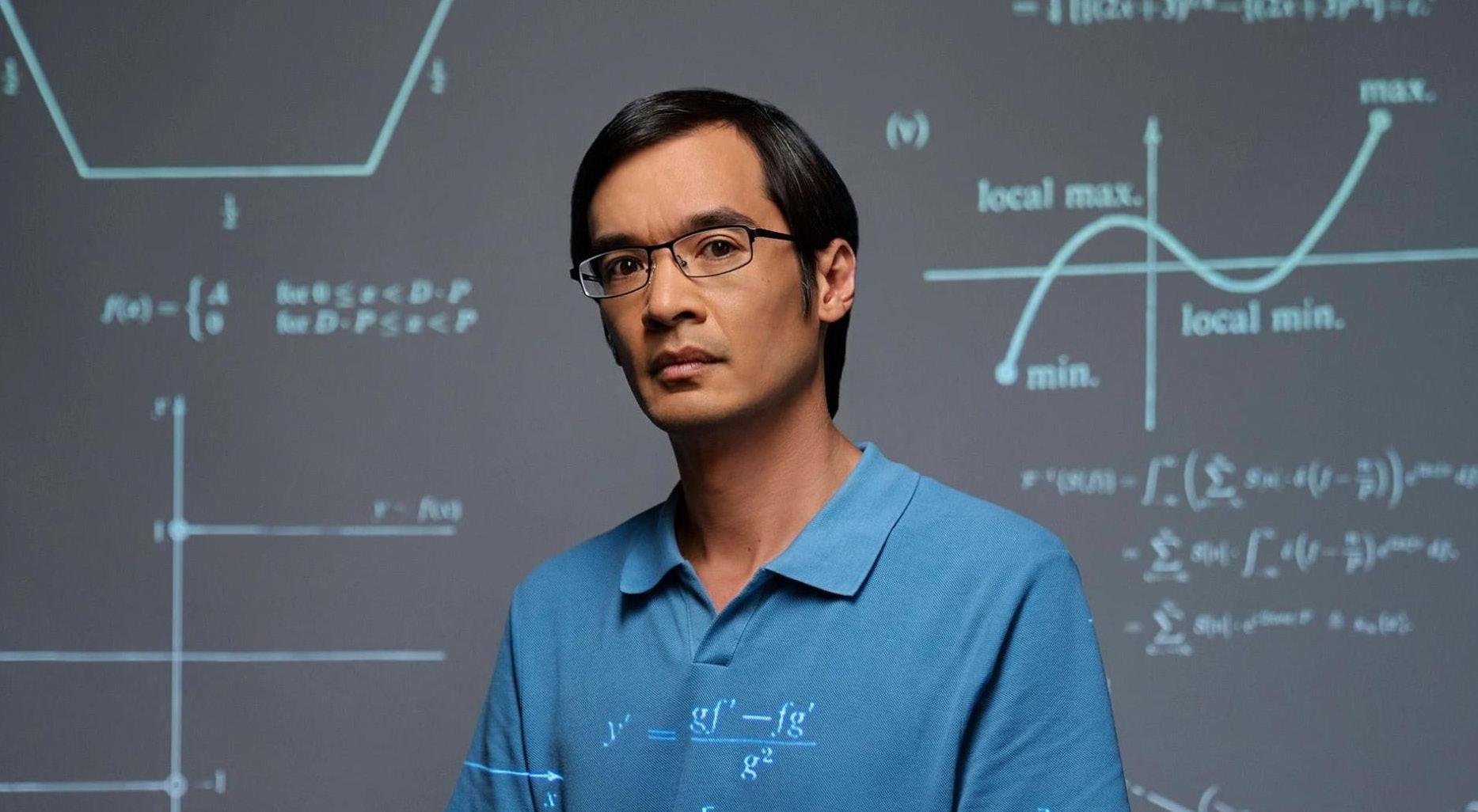

Aboriginal and Torres Strait Islander Award created
This award, created to coincide with the International Year of the World's Indigenous People, and funded by the Aboriginal and Torres Strait Islander Commission (ATSIC), came into force in 1993.
Funding continued under the Department of Prime Minister and Cabinet in 2005, then the National Indigenous Australians Agency (NIAA) in 2016. The award, now in its 32nd year, has provided over $1.3m in funding for educational and research opportunities for Indigenous Australians.
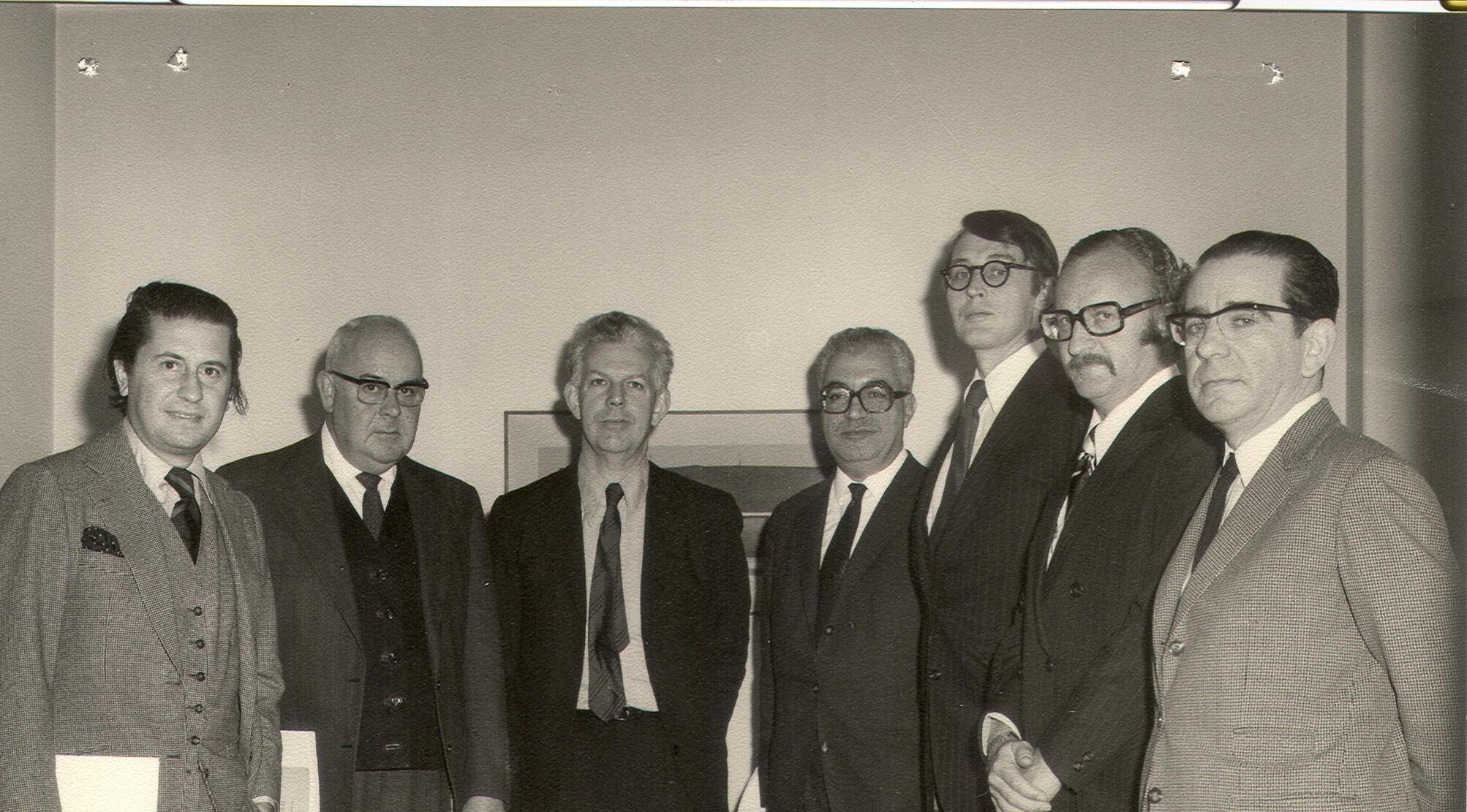
Australian Fulbright Alumni Association formally instituted
At the first meeting of state delegates of the Australian alumni associations, it was decided to establish a National Association in Canberra. This process was initiated by educationalist and active alumnus Professor W.G. (Bill) Walker
When Professor Walker died in July 1991, the Association decided to donate funds towards the highest ranked Australian postgraduate scholar, an award named in his honour. The first W.G. Walker award was announced in 1993, and continues to this day.
Fulbright Coral Sea Scholarship established
The Scholarship, established by the Australian-US Coral Sea Commemorative Council in 1992, offered Australians under 35 'the chance to investigate a problem or opportunity relevant to Australian business or industry and to make a significant contribution to Australian-American relations.'
The Award is now known as the 'Fulbright Professional Coral Sea Award (Business/Industry)'

FAA, FRS, often referred to as the "Mozart of Math," is one of the most celebrated mathematicians of our time.
A child prodigy, Tao began university-level mathematics courses at age nine and scored 760 on the SAT math section at eight—one of the highest scores for his age. He remains the youngest participant to win bronze, silver, and gold medals in the International Mathematical Olympiad, achieving the gold at just 13.
In 1992, at the age of 17, Tao became the youngest recipient of Fulbright Scholarship in the history of the Australian program. He headed to Princeton University where he completed groundbreaking research in harmonic analysis and partial differential equations. His extraordinary career includes a Fields Medal (2006), the Breakthrough Prize in Mathematics (2015), and numerous other honors. Now a professor at the University of California, Los Angeles, he has significantly advanced mathematical research across diverse fields, including number theory and random matrices. Tao’s contributions have profoundly influenced mathematics, and his dedication to teaching and public engagement inspires future generations.
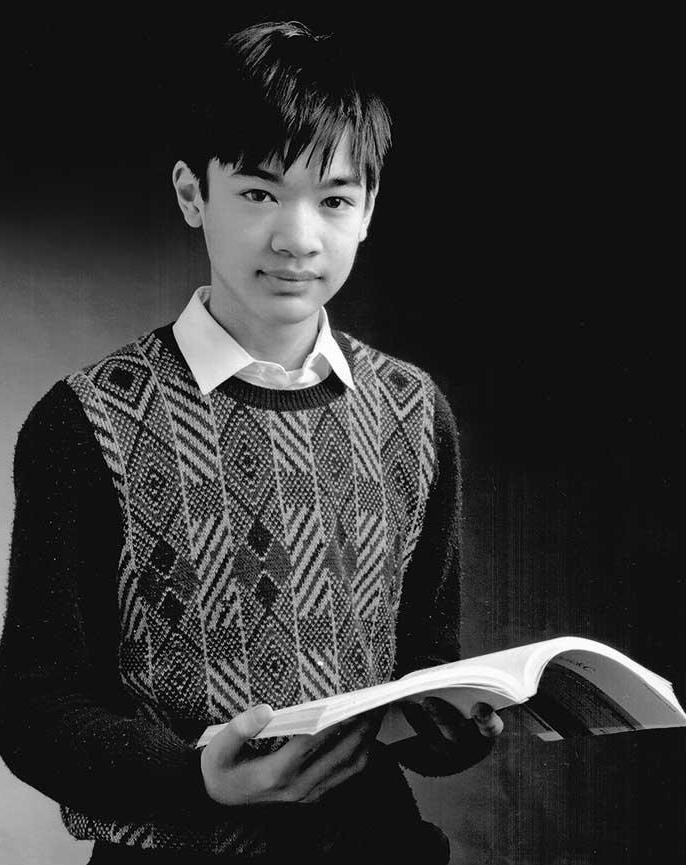
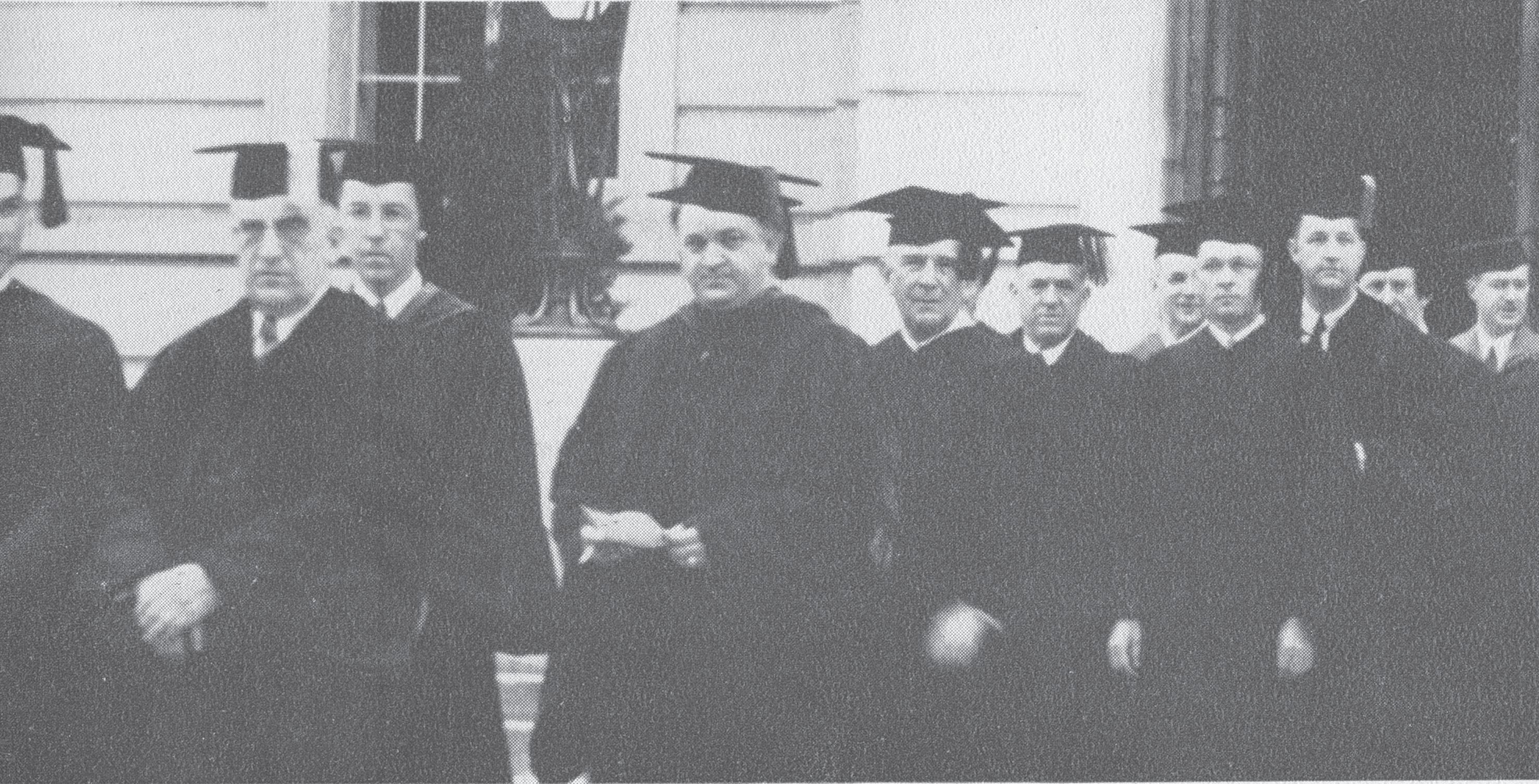
The "Mozart of Math" and Future Federal Minister head to the U.S.
Mathematics genius, Professor Terence Tao, and future Federal Government Minister, the Hon Greg Hunt MP were both named Fulbright Scholars in the 1992 cohort.
The Hon Greg Hunt MP, a former Australian Minister for Health and Aged Care, was a 1992 Fulbright Scholar at Yale University, completing a Master's of International Relations. His distinguished political career included spearheading climate change initiatives, public health reforms, and pandemic responses. Renowned for his leadership in healthcare policy, Hunt’s contributions significantly shaped Australia's environmental and health sectors. Hunt also served as President of the Australian Fulbright Alumni Association from 2002-2006.
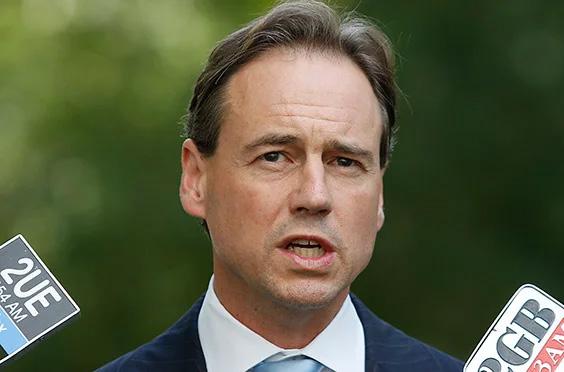
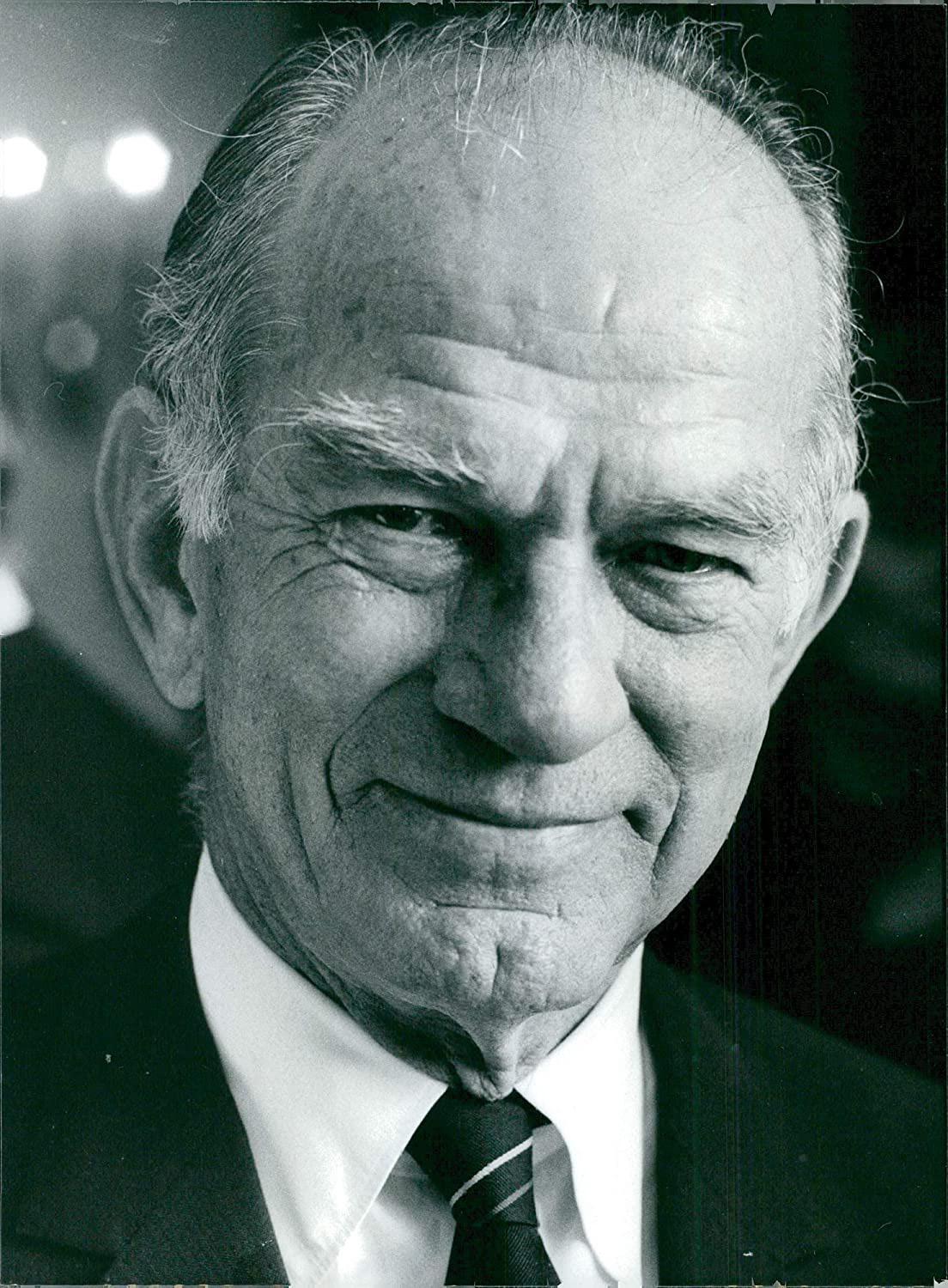
The Hon. Paul Fletcher MP wins Fulbright
Future Federal Government Minister, the Hon Paul Fletcher won a Fulbright Postgraduate Scholarship in 1993
is a senior Australian politician, currently serving as the Manager of Opposition Business. A 1993 Fulbright Scholar, he studied at Columbia University, focusing on public policy. With a background in law and management consulting, Fletcher held key roles at telecommunications giant Optus and wrote on communications reform. Entering politics in 2009, he has served as Minister for Urban Infrastructure, Social Services, and Communications, championing reforms in transport, media, and technology. Fletcher’s expertise has made him a prominent figure in policy development and governance.
Sen. J. William Fulbright
April 9, 1905 –February 9, 1995
Senator J. William Fulbright passes away
The Senator passed away at his home in Washington, D.C. He was 89 years old.
Fulbright Professional VET Scholarship established
The scholarship, established by the Australian Government Department of Education, aimed to support research concerning vocational education and training policy/ practice. It is now in its 30th year.
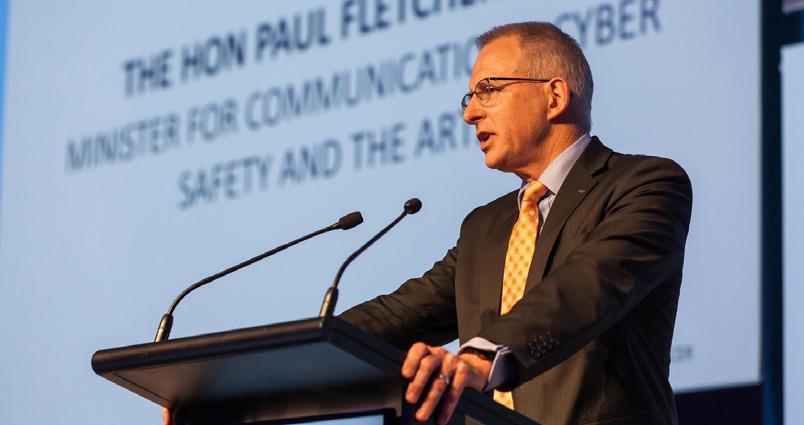
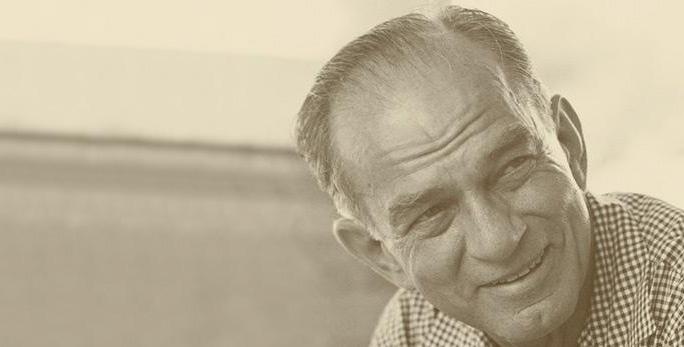
Grace Chung, Engineering Director at Google Australa, is a leader in technological innovation and development.
During her 1995 Fulbright Scholarship, Grace conducted advanced research in technology and engineering, which helped shape her career trajectory. At Google, she has spearheaded major initiatives, leveraging her expertise to enhance global connectivity and digital solutions. Her Fulbright experience reinforced her commitment to advancing technology for societal impact. Dr. Chung continues to inspire through her leadership and contributions to the tech industry and beyond.
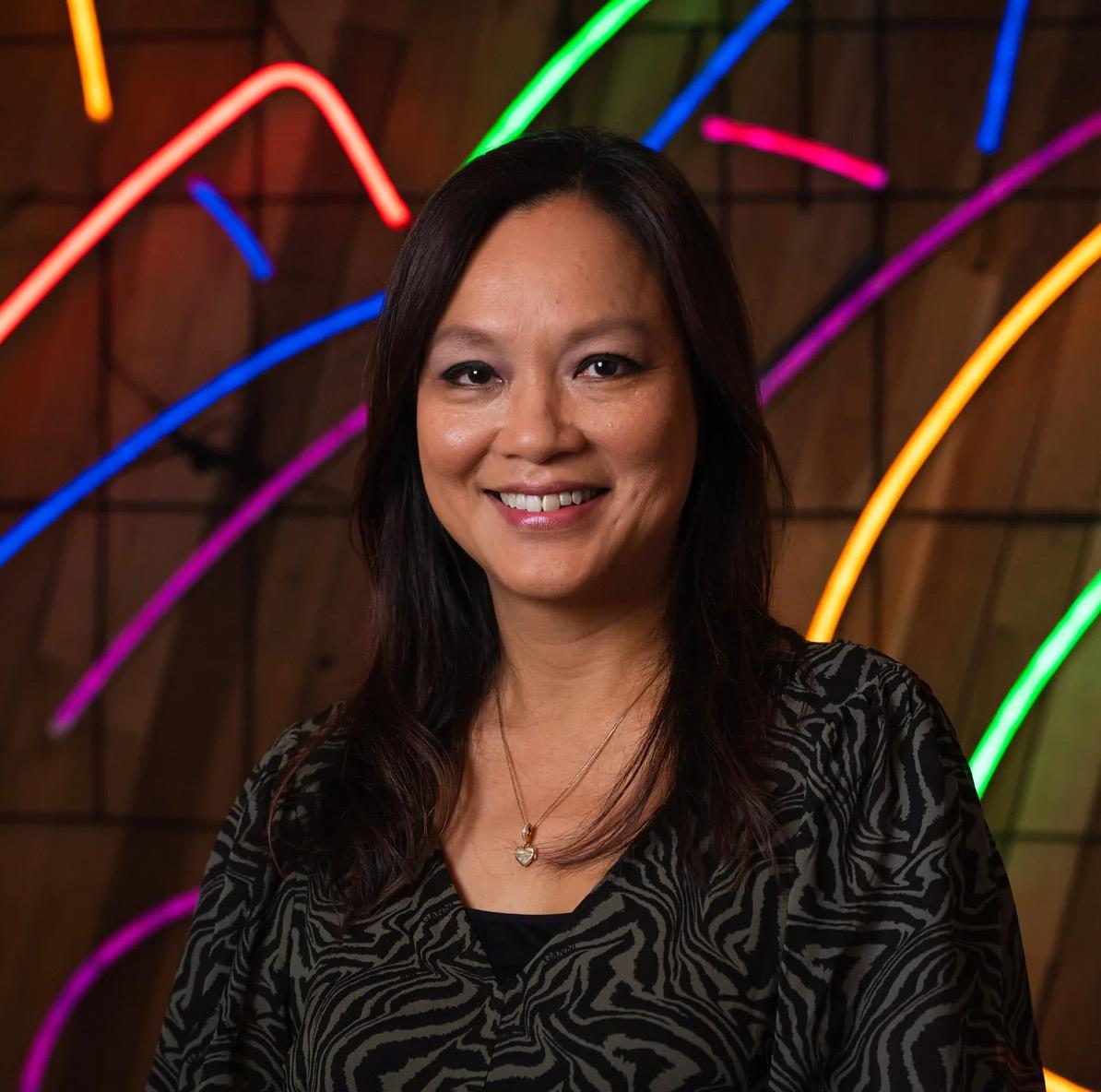
Dr Grace Chung and Father Frank Brennan receive Fulbright Scholarships
Two visionaries from the 1995 Fulbright cohort, advancing technology at Google and championing human rights and reconciliation with global insights gained through their scholarships.
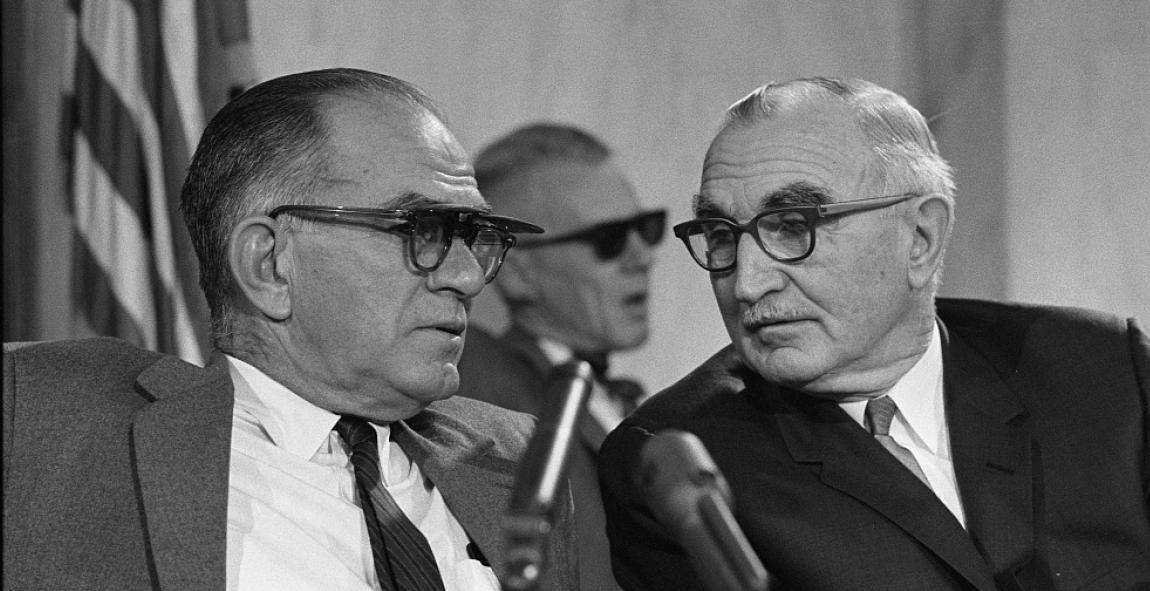
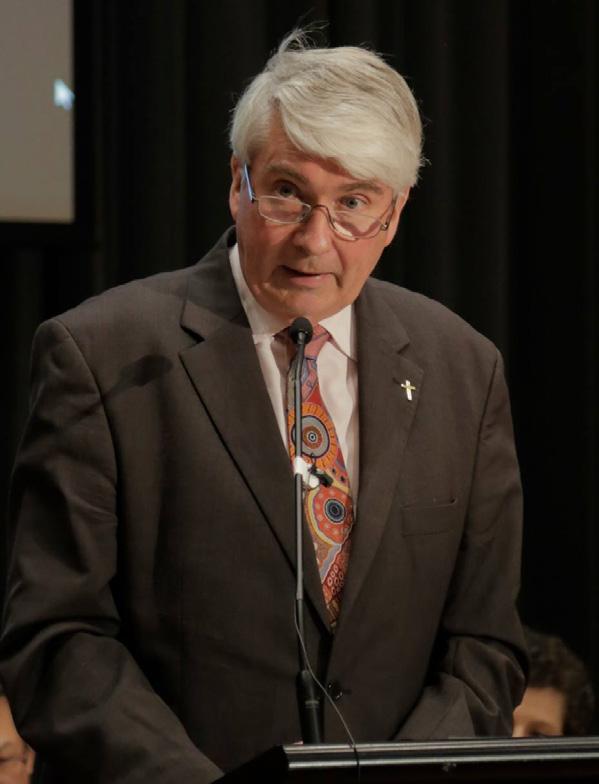
SJ AO, a Jesuit priest and human rights lawyer, has significantly shaped public discourse on social justice in Australia. Awarded a 1995 Fulbright Scholarship, he studied at Georgetown University, focusing on human rights and Indigenous issues. Renowned for his advocacy, he played a pivotal role in the Wik Native Title case and contributed to the debate on constitutional recognition for Aboriginal Australians.
Brennan's scholarship enriched his global perspective, enabling him to influence legal and ethical frameworks. As a writer, teacher, and policy adviser, his work continues to promote equity, reconciliation, and justice for marginalized communities.
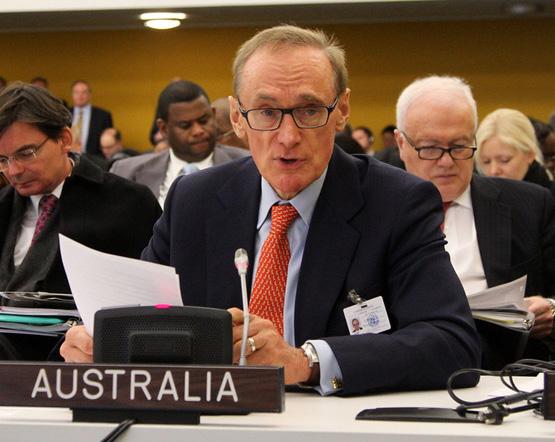
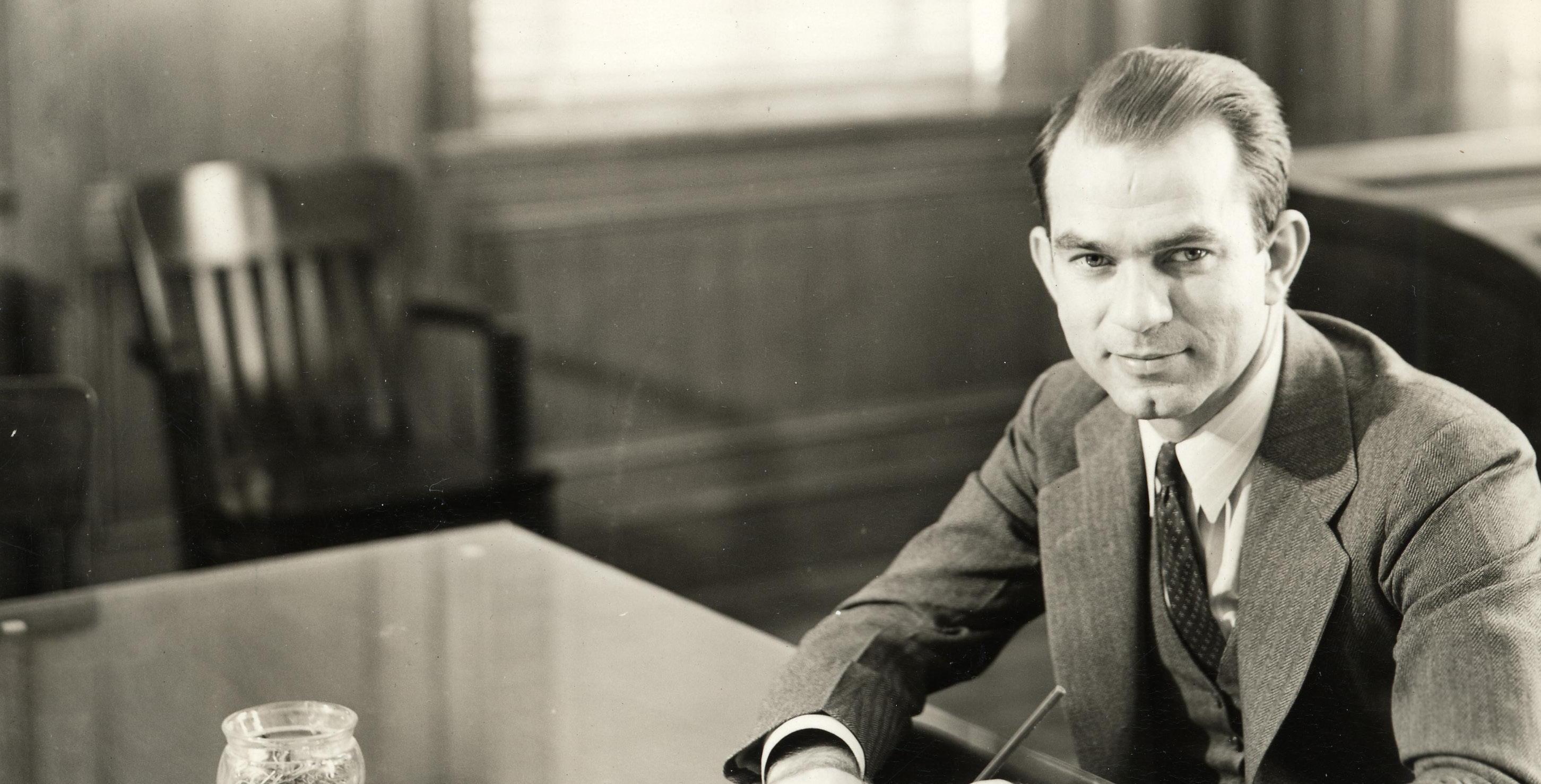
Premier of NSW, Bob Carr named 50th Anniversary Distinguished Fellow
New South Wales Premier (1995 - 2005) the Hon. Bob Carr was awarded the one-off Distinguished Fellow Award. He donated the $50,000 award to the History Teachers Association of NSW for the creation of five $10,000 scholarships to enable history teachers to undertake a study tour of the United States.



50th Anniversary of the Australian Fulbright Program
The late Senator's widow, for many years an "unofficial ambassador"for the program, visited Australia for the first time to join the 50th anniversary celebrations.
Prime Minister John Howard also attended this event, delivering remarks in celebation of the 50-year legacy of educational and cultural exchange fostered by Fulbright.

"In its fifty years of operation, the Fulbright Program has fulfilled these high ideals of fostering leadership, learning and empathy between cultures. Those who have benefited from the Fulbright Program have contributed to their societies not only in the field of public leadership but also in the sciences, the arts, education, literature, business, the media, community support and many other areas of activity.
- Prime Minister John Howard, 1996 "
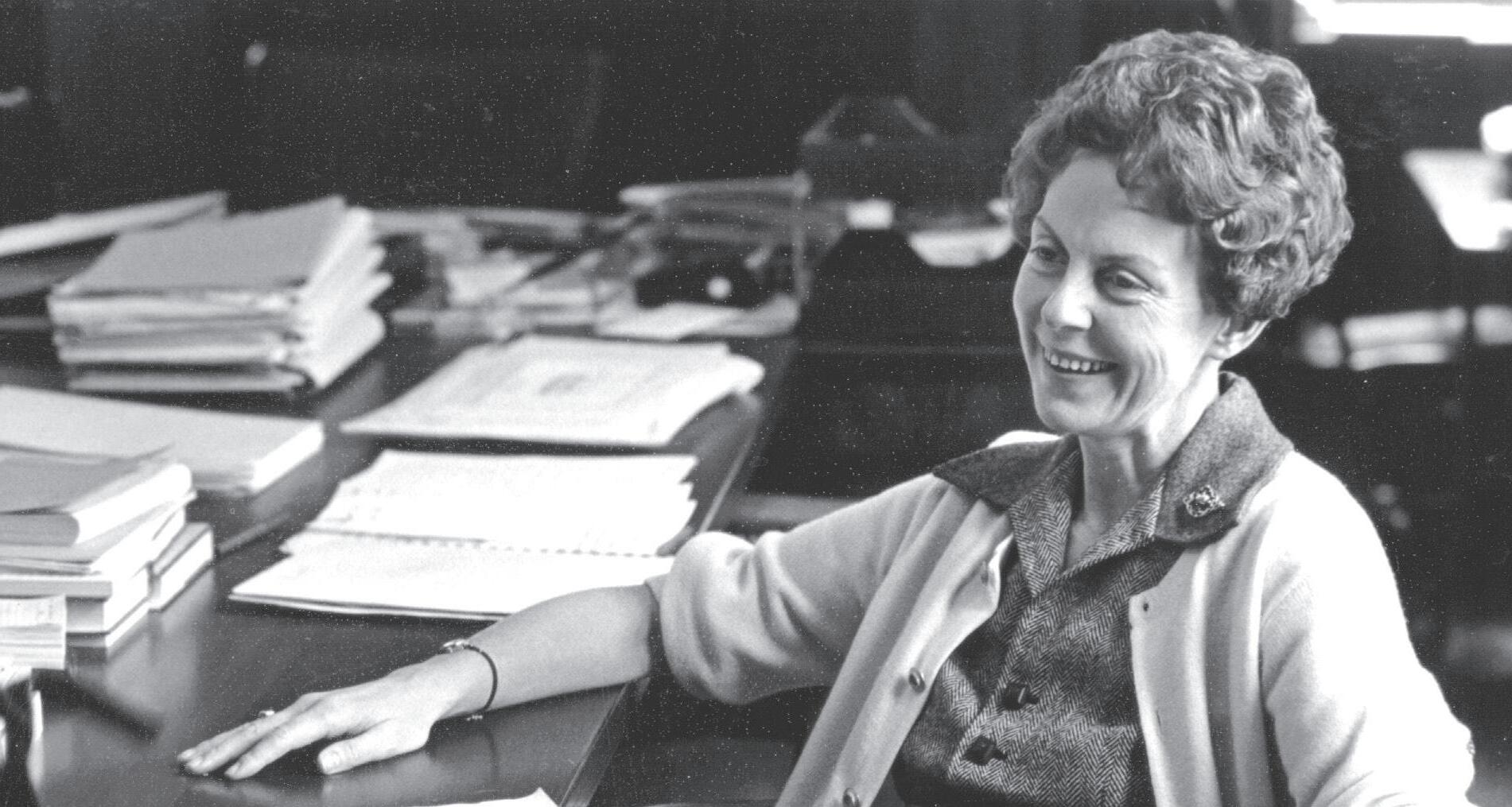
5 February, 1997
Corporate trailblazer Deanne Stewart wins Fulbright CEO and champion for ethical investment, Deanne Stewart, won her Fulbright to Yale in 1997.
Deanne Stewart, a prominent Australian business leader, won a Fulbright Postgraduate Scholarship in 1997, which enabled her to complete an MBA at the Yale School of Management. She has since become a trailblazer in the finance and insurance sectors, serving as CEO of Australian Ethical Investment, where she advanced the integration of environmental, social, and governance (ESG) factors into investment practices, as well as the CEO of MetLife Australia, where she significantly enhanced the company's strategic direction and growth. Currently CEO of Aware Super, Stewart has been recognised for her contributions to sustainable finance and social impact investing, working to align profit with purpose. Her Fulbright experience helped shape her career in leading ethical business practices in Australia and globally.
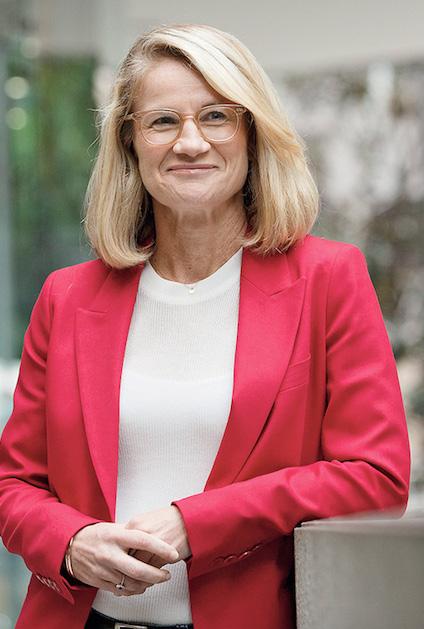

AO, a distinguished oncologist, is renowned for her work in melanoma research and treatment. Her 1997 Fulbright Scholarship enabled her to deepen her expertise through advanced study at the Scripps Research Institute in California, paving the way for her impactful career in cancer research.
Currently, Long serves as Co-Medical Director at Melanoma Institute Australia, where she leads innovative clinical trials and research that have significantly advanced treatment options for melanoma patients. Her contributions include breakthroughs in targeted therapies and immunotherapy that have improved survival rates for those with advanced melanoma. Recognised globally for her work, Long has received numerous awards, including an appointment as an Officer of the Order of Australia, and the Australian of the Year award for her services to medicine. She is also a dedicated mentor, helping shape the next generation of medical researchers and practitioners. Long’s research continues to influence global standards in oncology, making a lasting impact on melanoma treatment and patient care worldwide.
Professors Georgina Long and Anton Middelberg depart for the U.S. Melanoma researcher and 2024 Australian of the Year, Professor Georgina Long AO, and leading chemical engineer, Professor Anton Middelberg both head to California for their Fulbright Postdoctoral fellowships.

is an accomplished chemical engineer known for his work in bioprocess engineering. Awarded a 1997 Fulbright Scholarship, Middelberg conducted pioneering research at the University of California, Berkeley, focusing on developing environmentally sustainable biochemical processes. His work has advanced protein and vaccine production, with significant implications for medicine and green manufacturing.
Now the Deputy Vice-Chancellor (Research) at the University of Adelaide, Middelberg continues to drive innovations in biotechnology and energy. Recognized globally, he has received numerous awards and has made substantial contributions to engineering education and sustainable industry practices.
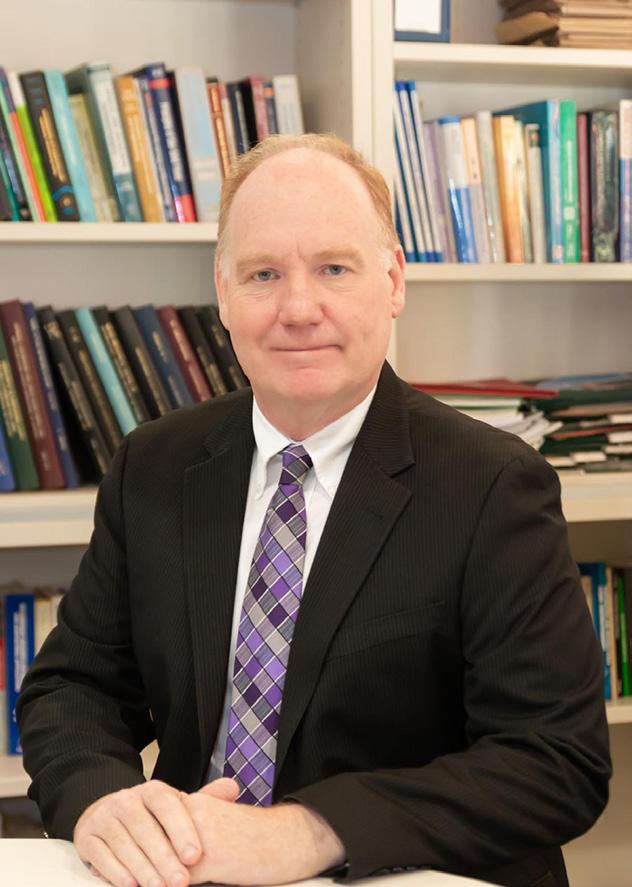

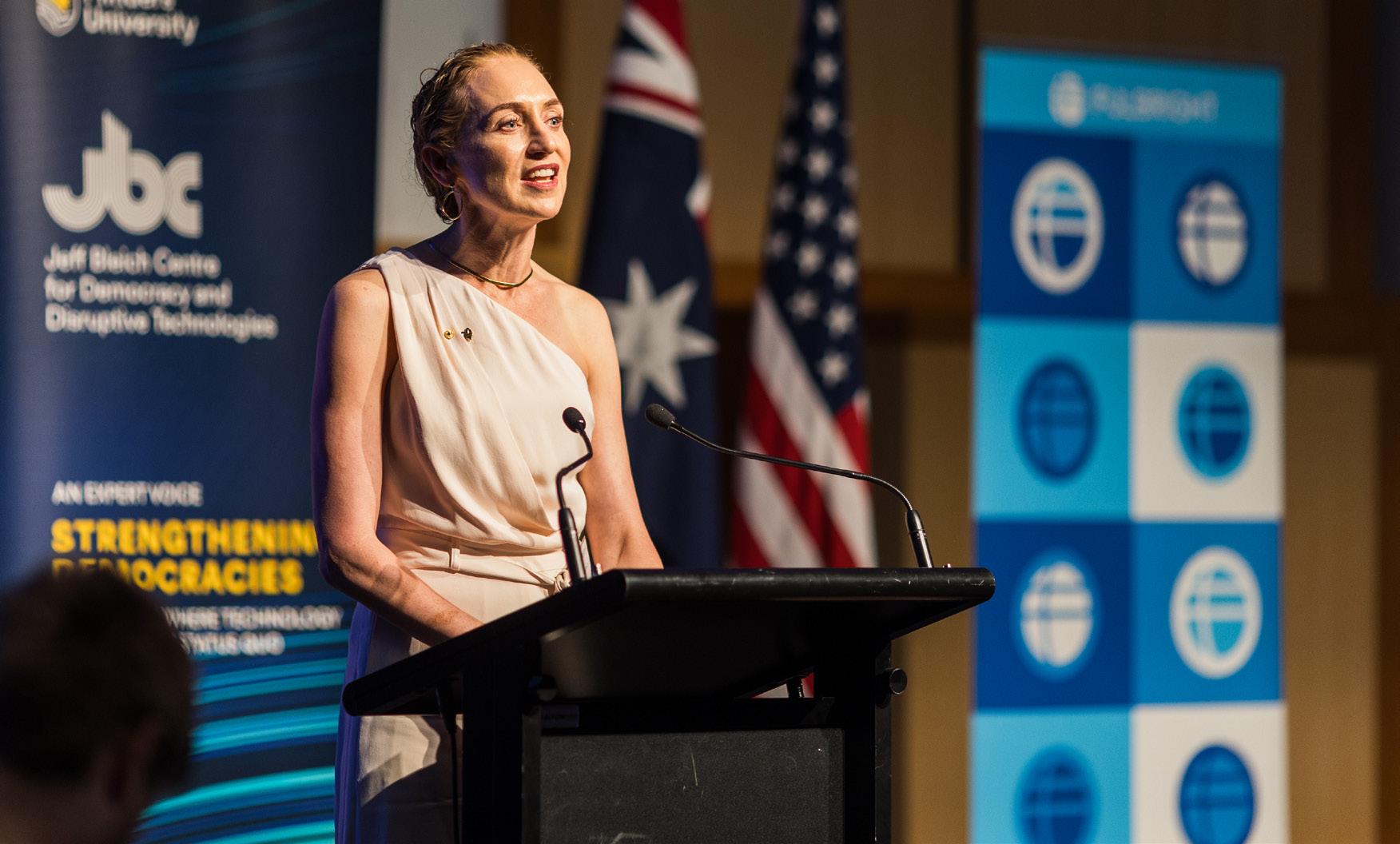
"Achieving zero deaths from melanoma is a marathon, not a sprint.”
- Professor Georgina Long
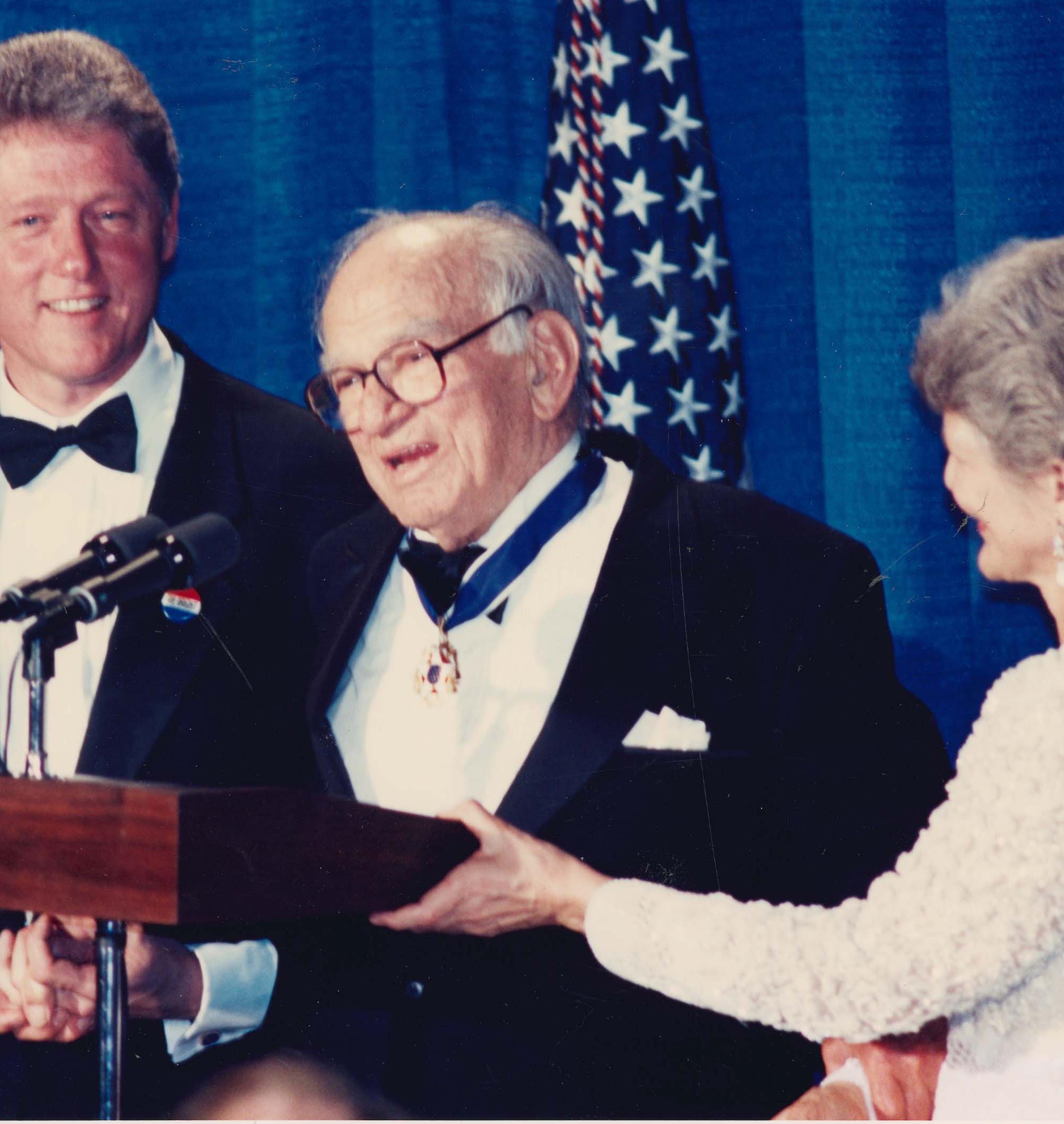
Julian Thompson wins Fulbright
While Fulbright's early years are dominated by scientific achievement, the late 20th and early 21st centuries see a swathe of talented artists and musicians join the Fulbright network, including cellist, Julian Thompson
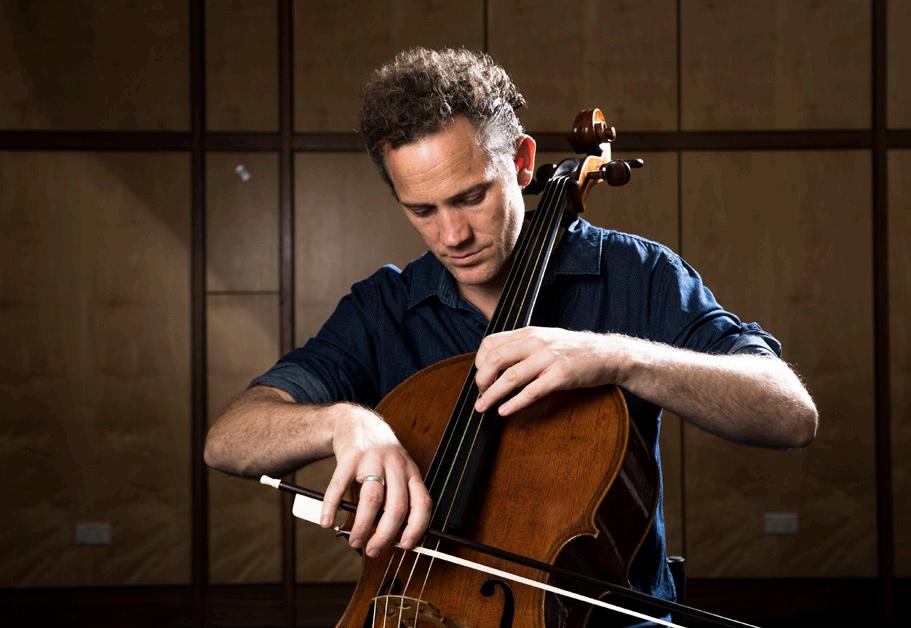
has built a celebrated career distinguished by his versatile performances and rich, dynamic sound. His 1999 Fulbright Scholarship to Indiana University allowed him to broaden his musical perspective and skill through mentorship and engagement with internationally renowned cellists, Janos Starker and Tsuyoshi Tsutsumi.
Known for his collaborations with leading musicians and orchestras, Thompson has captivated audiences worldwide. His work with the Australian Chamber Orchestra exemplifies his dedication to chamber music, while his influential contributions continue to shape and inspire the cello community.

is a prominent marine conservation scientist with expertise in the management of coral reefs and marine ecosystems. She was awarded a 2002 Fulbright Scholarship to conduct research on marine conservation, focusing on the sustainability of coral reef communities.
In 2019, Jupiter received a prestigious MacArthur Fellowship for her groundbreaking work on linking conservation efforts with the livelihoods of coastal communities. Jupiter's research has significantly influenced marine policy, and she continues to lead impactful conservation programs aimed at protecting the world’s oceans and biodiversity.
Stacy Jupiter departs for Australia
Marine Scientist and future Macarthur Genius, Dr. Stacy Jupiter heads to the University of Queensland to study ecology.
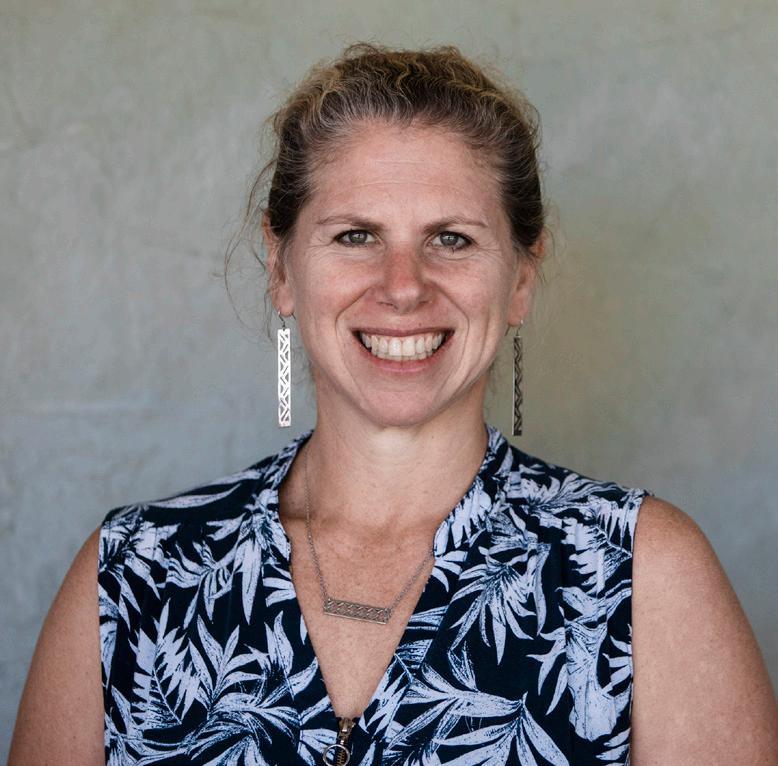
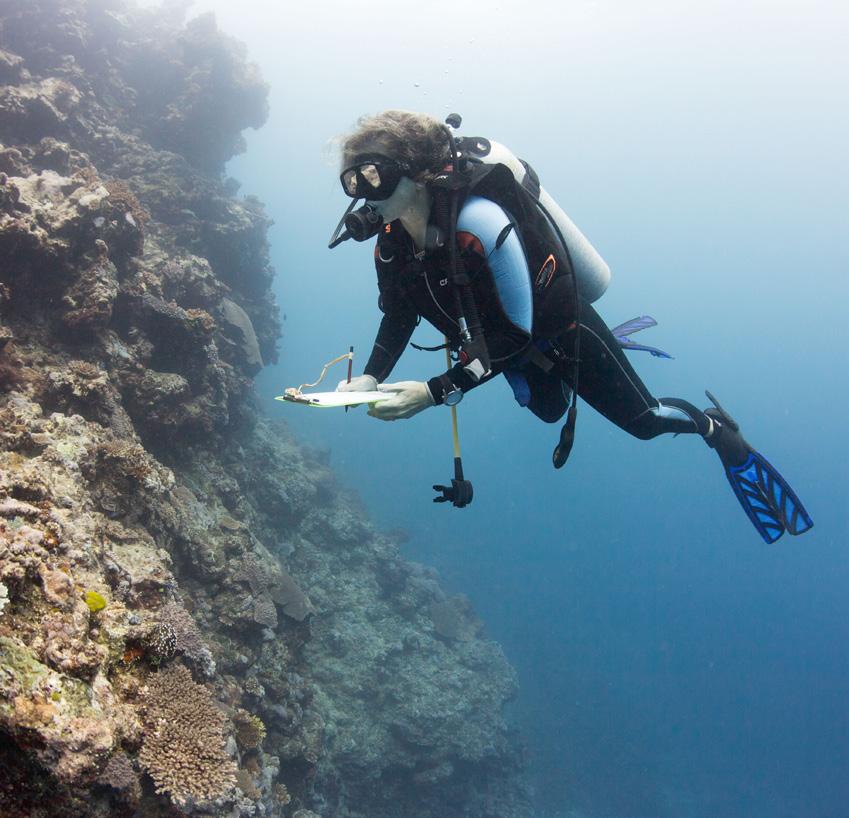

Renaming AAEF to AAFC
The board of directors resolved to change the name of the Australian-American Educational Foundation to the 'Australian-American Fulbright Commission' to better reflect the organisation's connection to the Fulbright Program.
Fulbright Australia/U.S. Alliance Scholarship created
To mark the 50th anniversary of the ANZUS treaty in 1951, the Australian Department of Foreign Affairs and Trade initiated a new Fulbright award for academics and professionals to undertake research related to the Australia-U.S. Alliance.
First offered in 2002, to encourage 'new and active research on Australia-U.S. issues', the Fulbright Professional Scholarship in Australia-U.S. Alliance Studies is now in its 23rd year.

Danny Rosen has built a distinguished career at the intersection of music, technology, and industry innovation. During his 2003 Fulbright tenure at New York University, he studied the economic and cultural impact of digital distribution in the music industry, a prescient focus as streaming and digital sales reshaped global music markets. Rosen later served as CEO of ARIA (Australian Recording Industry Association), where he championed local artists, digital transformation, and industry growth. His work has expanded opportunities for Australian music internationally and positioned the industry to thrive in a rapidly evolving digital landscape.
Now CEO of Warner Music Australasia, Rosen’s impact remains influential across the music and media sectors.
Danny Rosen departs for the U.S.
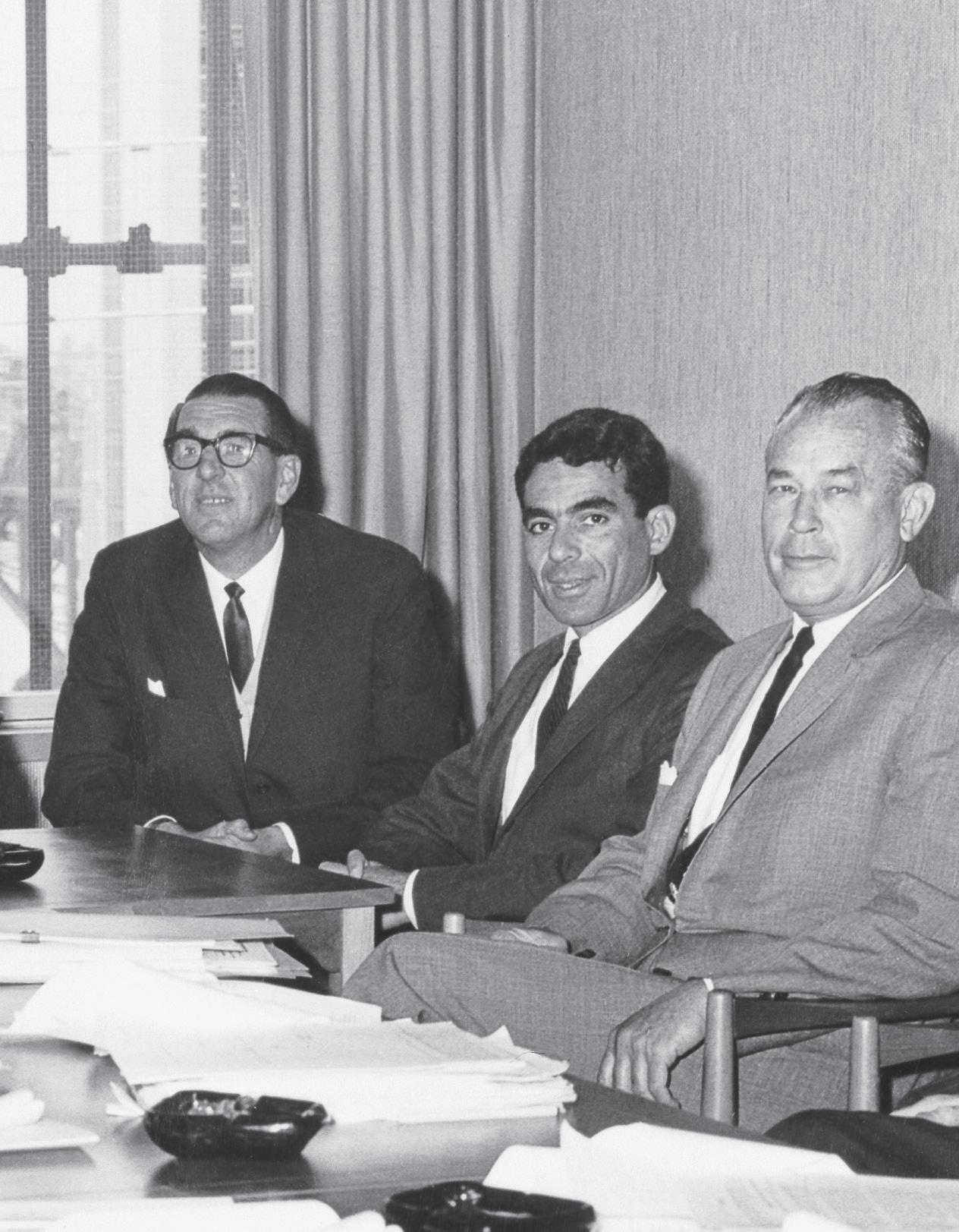
Now a giant in the Australian music industry, in 2003 Danny Rosen was an up-and-coming musician who had just won the Triple J Unearthed competition with his band, Second Dan. The same year, he won a Fulbright Postgraduate Scholarship and was thus presented with a sliding door moment -- should he take the rockstar route and go on tour with his band, or head to the U.S. to complete a Master's degree?
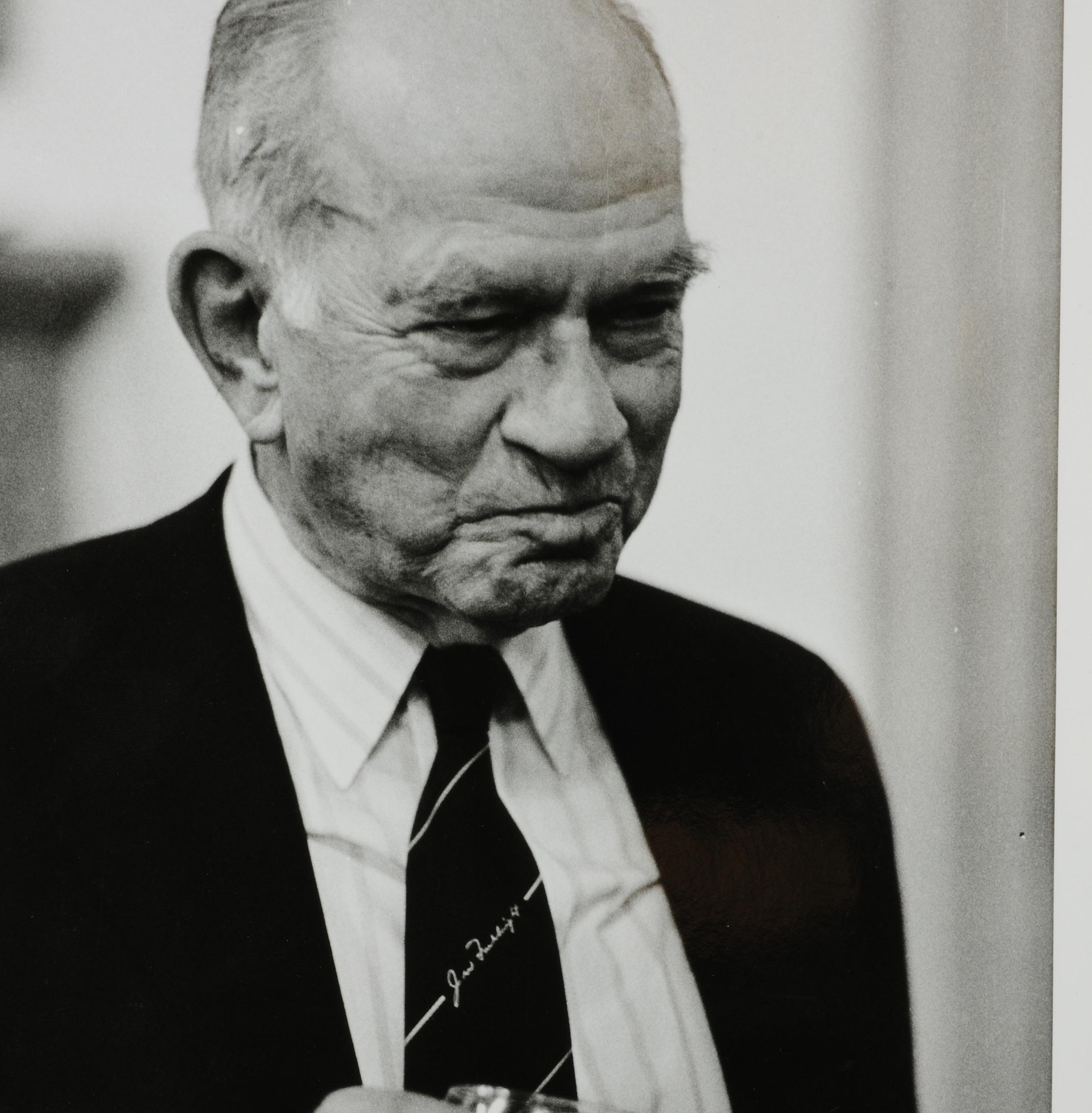
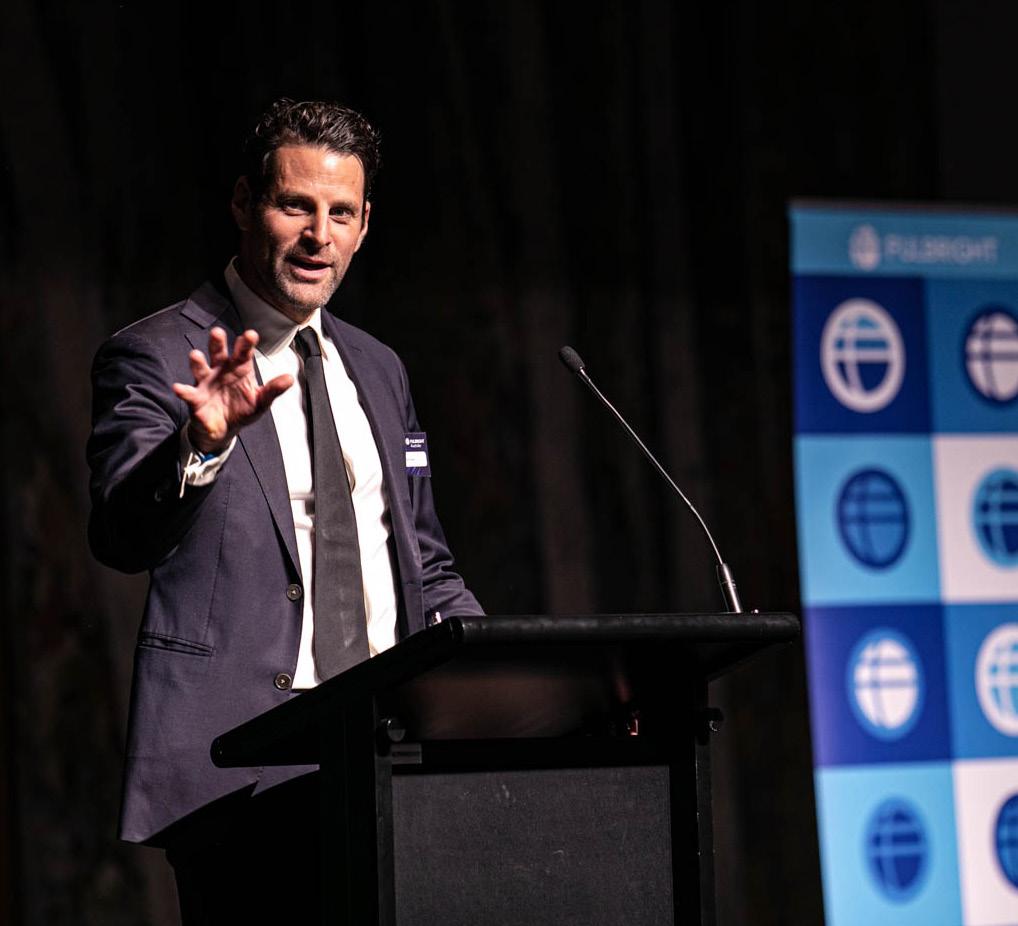

First Fulbright Distinguished Chair established in Australia
The Fulbright Distinguished Chair Program is one of the most prestigious Fulbright appointments, established to foster high-level academic exchange between the U.S. and partner countries. The Australian Fulbright Distinguished Chair was the first for the East Asia Pacific region. Originally hosted at the Australian National University, it is now based at Flinders University in South Australia and aimed at facilitating research in U.S. political science.
Since 2004, an additional 7 Distinguished Chair programs have been created in Australia, hosted by the University of Sydney, Kansas State University, the Defence Science and Technology Organisation, RMIT University, CSIRO, The University of Newcastle, and the University of Adelaide,
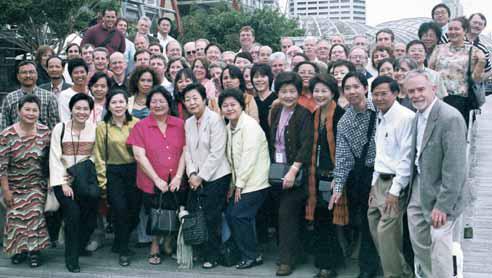
Fulbright East Asia Pacific Regional Conference held in Sydney
The EAP conference brings together Fulbright program administrators from across the region to strengthen knowledge networks and share best-practice initiatives.
Seventeen countries and areas were represented including Cambodia, China, East Timor, Hong Kong, Indonesia, Japan, Korea, Laos, Mongolia, Malaysia, New Zealand, the Philippines, Singapore, Taiwan, Thailand, Vietnam, and Australia.
Youngest female mayor in Australian political history
The Hon. Clare O'Neil was already something of a political force in 2006 when she applied for, and won, a Fulbright Postgraduate Scholarship.

First Fulbright State Scholarship established Fulbright state and territory scholarships are designed to foster research relevant to each region while building international research links between local and U.S. institutions. These scholarships are funded by state and territory governments and higher education institutions within their respective regions.
Tasmania, Australia's smallest state by both population and landmass, was the first to establish a state-sponsored Fulbright Scholarship. Today, nearly every state and territory in Australia funds Fulbright Scholarships, empowering recipients to address local issues and priorities through their projects.
O'Neil MP is a prominent Australian politician, who has served in various ministerial roles including Minister for Housing and Homelessness Minister for Home Affairs, and Minister for Cyber Security. In 2003, while still studying at Monash University, O'Neil ran for and was elected as a city councillor in the City of Greater Dandenong, Melbourne at the age of 22. After one year in this position, she was elected the Mayor of Greater Dandenong, becoming the youngest female mayor of a Local Government Area in Australia's history.
In 2006, O’Neil received a Fulbright Scholarship to the Harvard Kennedy School, where she earned a Master of Public Policy. Her Fulbright experience honed her expertise in governance and public administration. O’Neil has significantly influenced national policy in security, cyber resilience, and economic reform, championing innovation and inclusivity in public service.

April, 2007
Fulbright Scholarship for Australia's West
Western Australia was the next Australian state to sponsor a Fulbright, launching the Fulbright WA Scholarship in 2007. The award, co-funded by the WA Government, University of Western Australia, Curtin University, Murdoch University, and Edith Cowan University, enabled students to undertake study or research projects in the U.S.


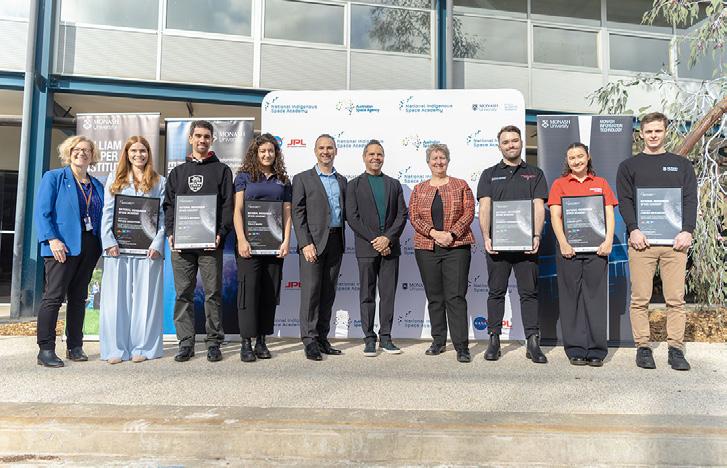
July, 2008
Champion for Indigenous health equity
Indigenous health equity and STEM representation advocate, Professor Christopher Lawrence heads to Howard University on a Fulbright Indigenous Scholarship.
is a distinguished Indigenous health scholar and advocate. In 2008, he received a Fulbright Scholarship to research the health impacts of social disadvantage on Indigenous communities. His work integrates epidemiology, social science, and cultural understanding to address systemic health inequalities. Lawrence has also been a strong advocate for Indigenous participation in astronautics, emphasizing the importance of representation in STEM fields. Through research, mentorship, and advocacy, he continues to advance health equity and inspire Indigenous involvement in cuttingedge scientific and technological fields.
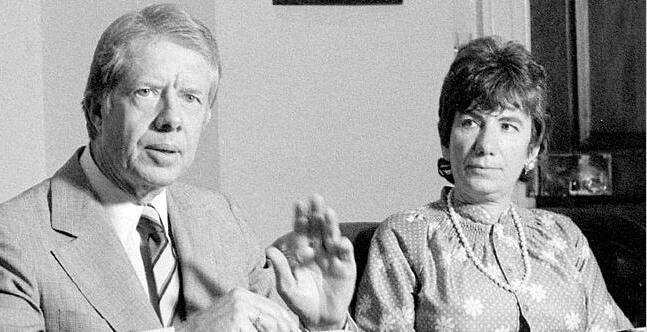
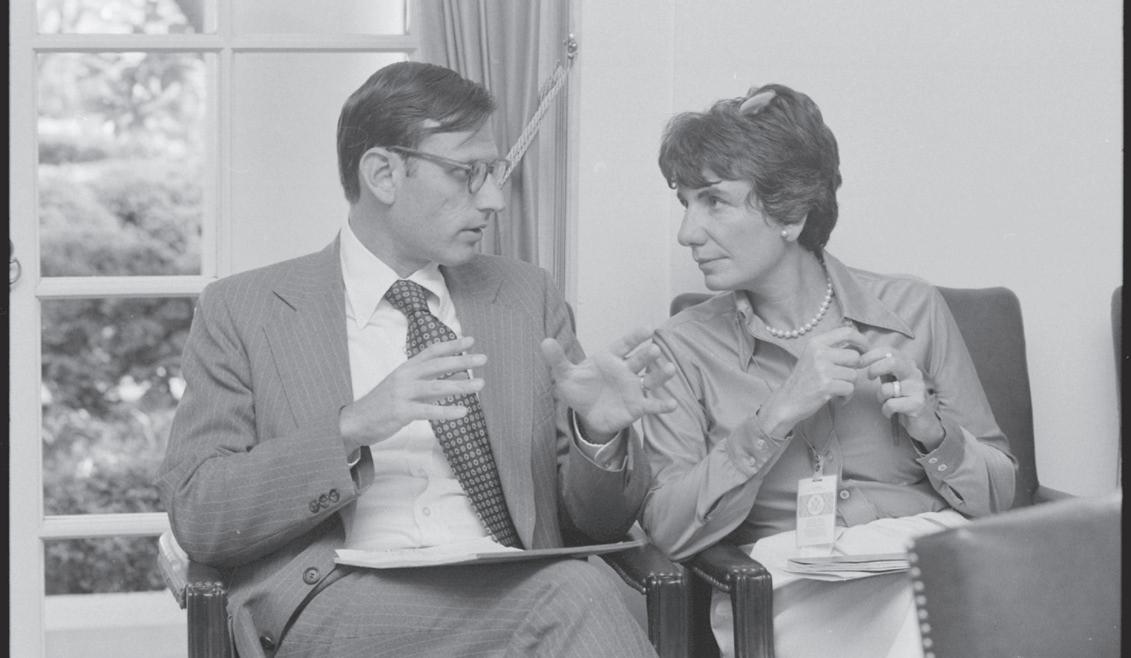
Fulbright Anne Wexler
One of the most influential political insiders of her time, Anne Wexler AO was a successful Washington DC lobbyist who had a long interest in Australian-American relations. Following her passing in 2009, then Prime Minister Kevin Rudd announced a new scholarship to honour her legacy. The Fulbright Anne Wexler Scholarship in Public Policy was thus established, and brought under the auspices of Fulbright by Australian Consul General to New York, Phil Scanlan AM. It is funded by the Australian Government Department of Education.
The award aims to foster bilateral exchange in public policy, supporting Australian and American graduate students to undertake master's studies in each other’s countries. With a focus on strengthening leadership in public administration and governance, the scholarship reflects Wexler's legacy of promoting collaborative policy solutions. It has produced leaders who drive impactful change in diverse fields, advancing the Fulbright mission of international understanding and partnership. It remains as one of Fulbright Australia's most prestigious awards, having funded 30 MPPs for Australian and American students, greatly enhancing the flow of public policy dialogue and expertise between the two countries.
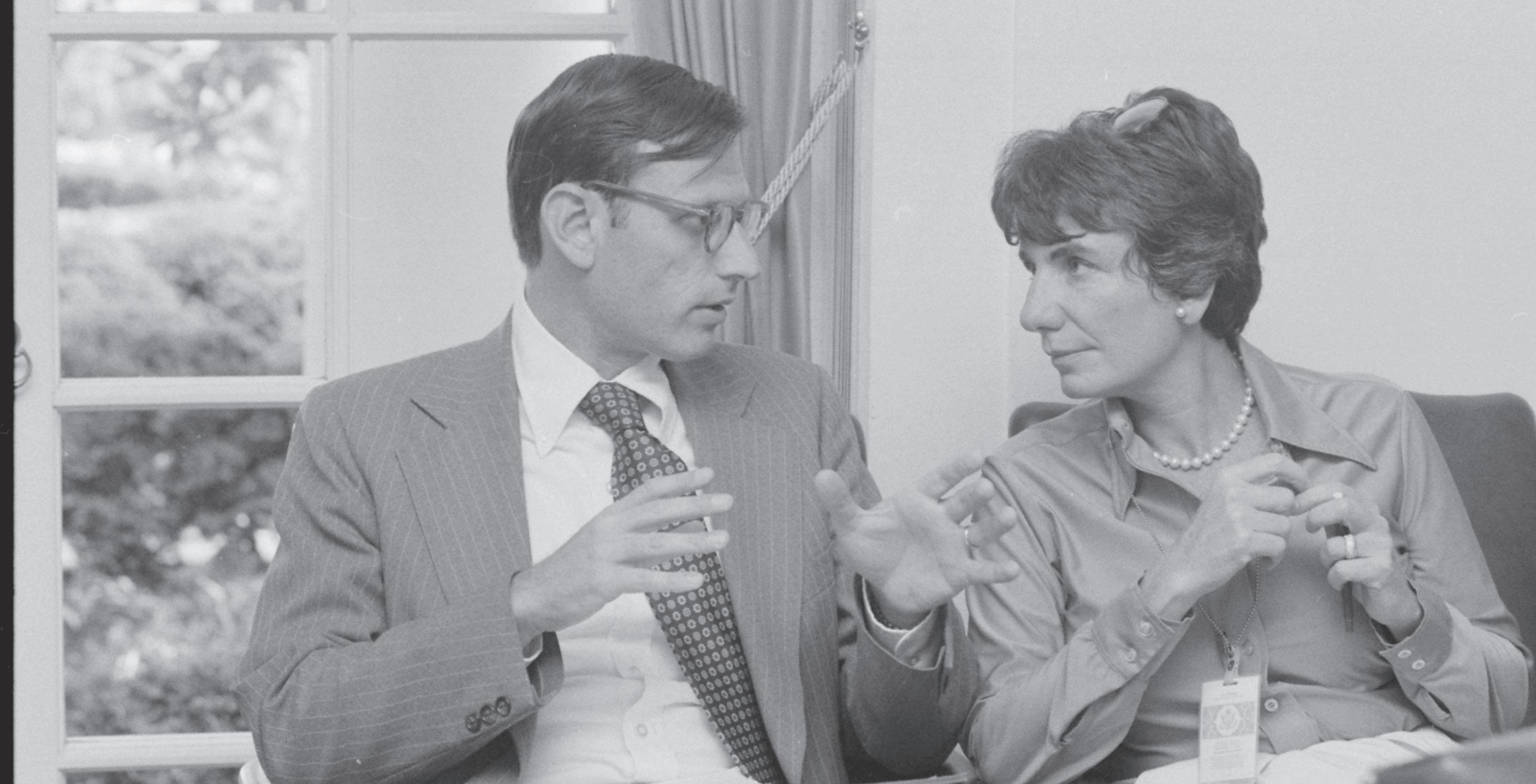
More Australian States join the Fulbright fold
Following the trend set by Tasmania in 2006, both New South Wales and Victoria launched Fulbright Scholarships in 2009.
The Fulbright NSW Scholarship was announced by the Hon Nathan Rees MP, then Premier of NSW. $250,000 was invested in the first Fulbright NSW Scholarship with matching funding from NSW universities.
Likewise, the Fulbright Victoria Scholarship was established by donations from the Victorian State government and local universities.
Both awards continue to this day, having funded life-changing postgraduate study and research opportunities for over 30 Australian students collectively.
“Because of Anne's singular contribution to the U.S.Australia dialogue, as Prime Minister I decided that the best way to commemorate her legacy was to do so with a perpetual scholarship between the two countries.
I wanted these awards to perpetuate the memory of Anne, but also to add to the growing number of young people studying in each other’s countries. Considering the calibre of Australians and Americans who have taken it up … I think Anne Wexler would be genuinely proud of what we’ve all achieved to that end.
- Prime Minister Kevin Rudd, 2018
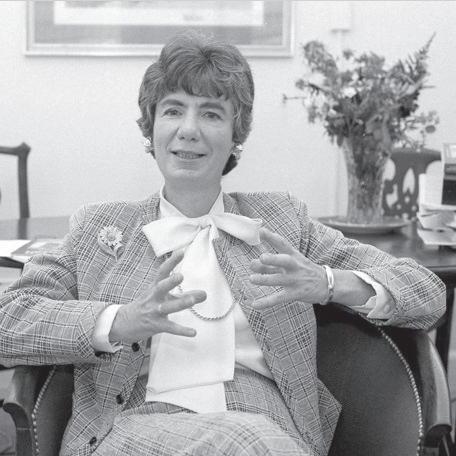
Professor Gretta Pecl wins Fulbright Postdoc
Leading marine scientist Professor Gretta Pecl won her Fulbright in 2009, heading to the University of Alaska.
Professor Gretta Pecl AM is a marine ecologist renowned for pioneering climate change research on species redistribution in warming oceans. Her 2009 Fulbright Scholarship supported her work on the impacts of climate change on Alaska's red king crab. She founded Redmap, an award-winning citizen science project that engages communities in tracking marine species, raising awareness about climate change. As Director of the Centre for Marine Socioecology at the University of Tasmania, Pecl leads interdisciplinary efforts in ocean conservation. In 2024, Pecl was named a Member of the Order of Australia for her significant contribution to global scientific initiatives.

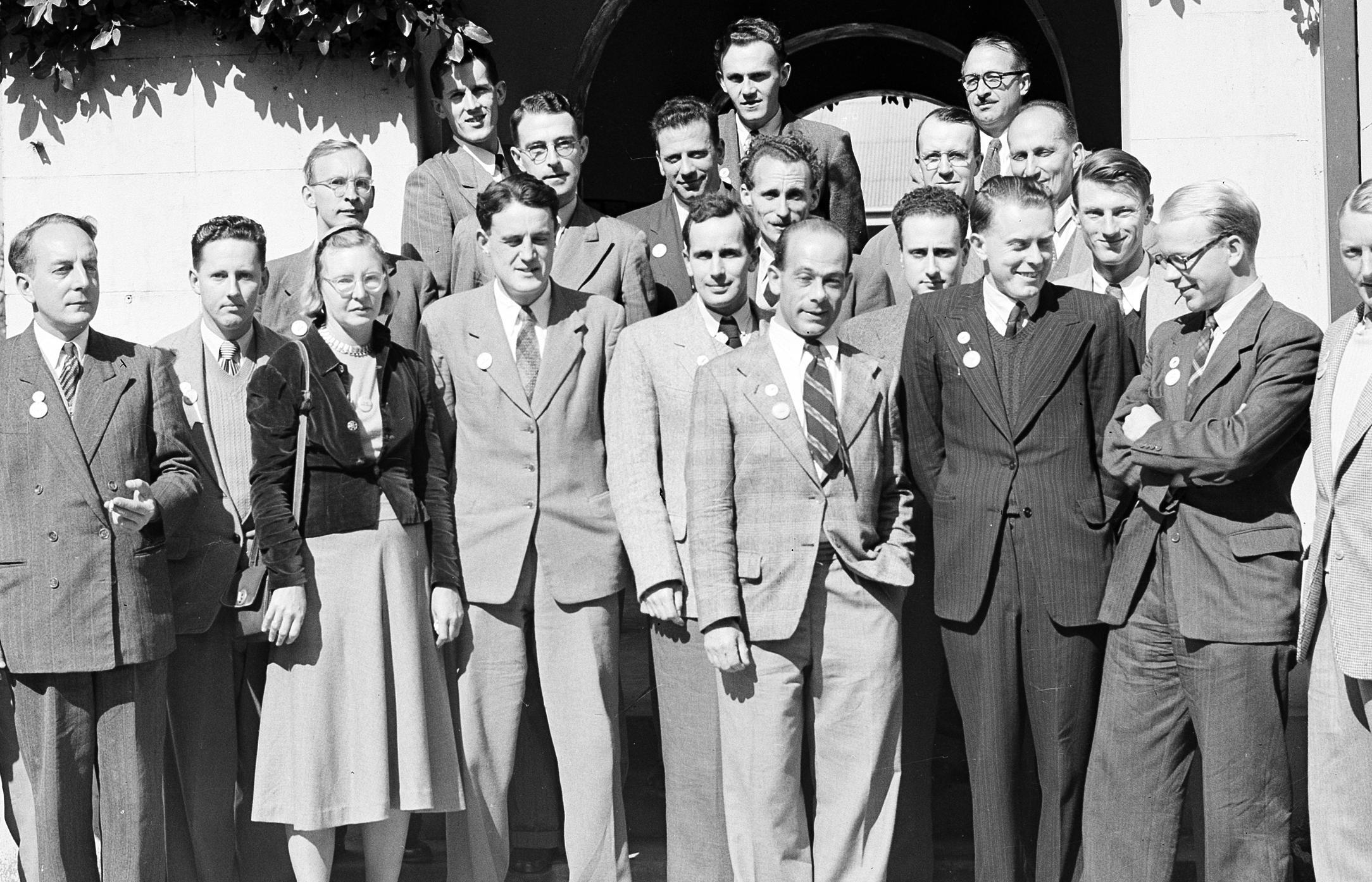
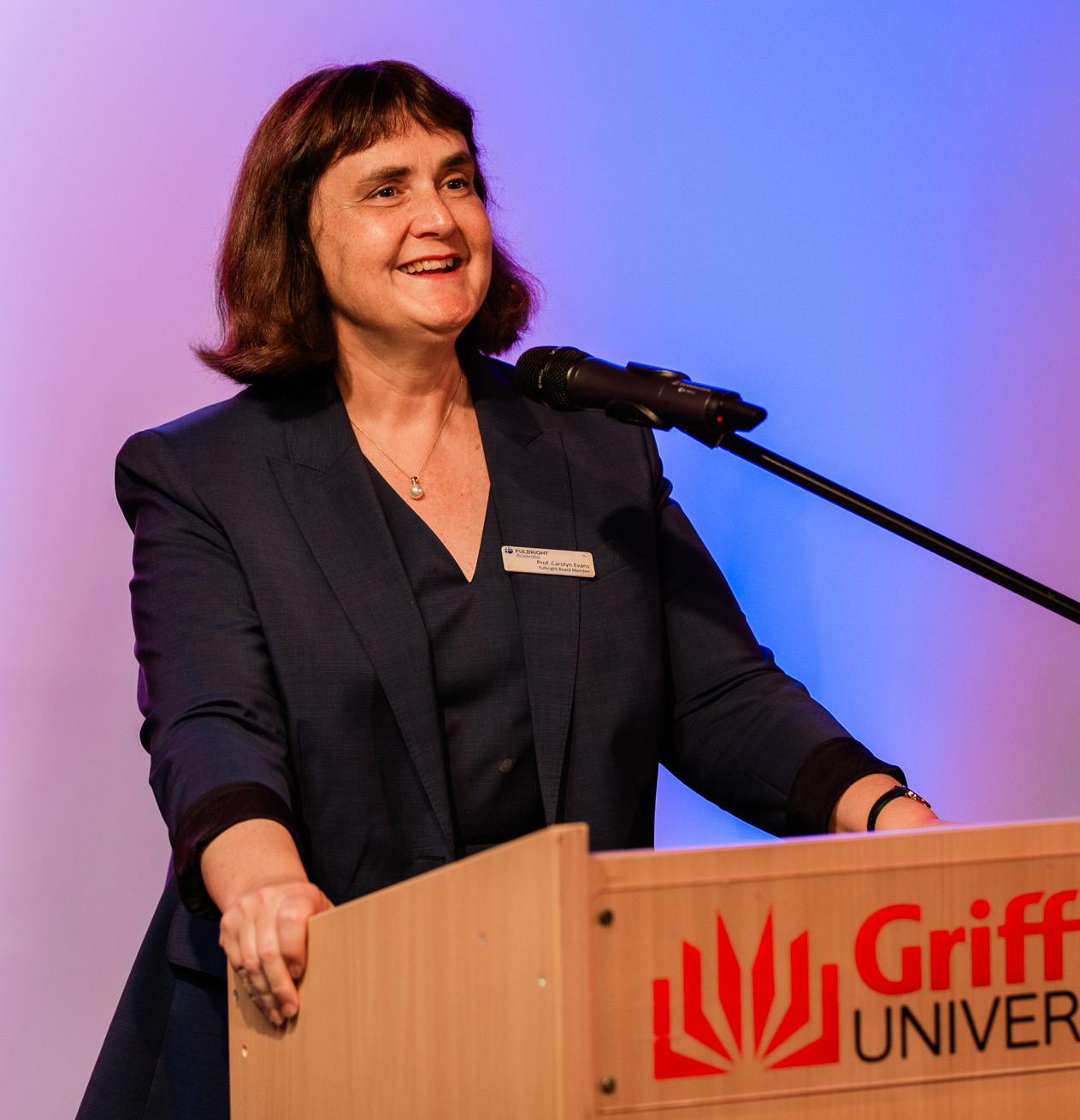
Eminent legal scholar wins Fulbright
Evans is a distinguished legal scholar and higher education leader. Her 2010 Fulbright Scholarship supported research at American University, Washington D.C. and Emory University in Atlanta, on the relationship between religious freedom and freedom of expression, advancing understanding of complex legal frameworks in liberal democracies.
As Vice-Chancellor of Griffith University, Evans has championed equity, diversity, and innovation in education. Her academic expertise includes human rights law, constitutional law, and religious freedom, reflected in her widely respected publications. Evans has significantly influenced public discourse and policy in Australia, shaping legal practices and fostering an inclusive, globally engaged educational environment. She joined the Board of Fulbright Australia in 2024.

Legal scholar and future university administrator, Professor Carolyn Evans was selected for a Fulbright Senior Scholarship in 2010.
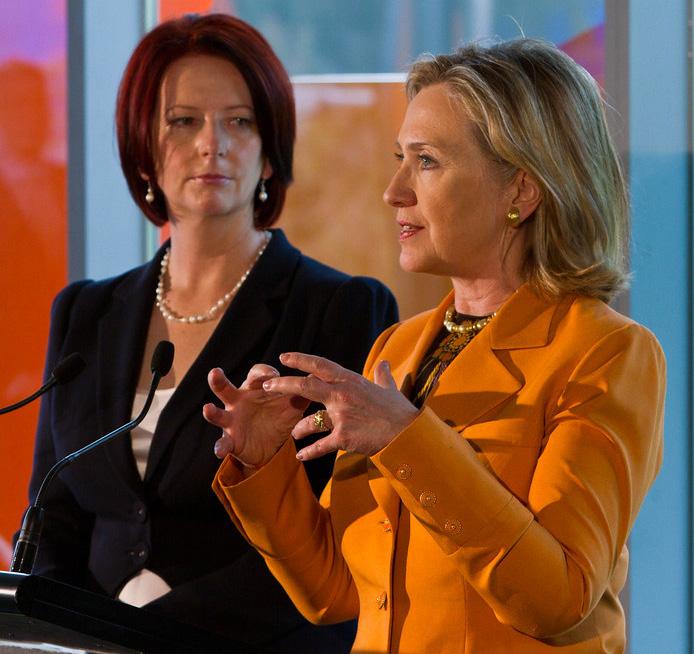
Fulbright Scholarship in Climate Change and Clean Energy announced
Prime Minister Julia Gillard and U.S. Secretary of State, Hillary Clinton, together announced new Fulbright Scholarships in the field of Climate Change and Clean Energy, allowing allow up to four Australian and American Fulbright Scholars a year to undertake research and/or study in the partner country. The aim was to increase collaboration on clean energy research and to address the social challenges of responding and adapting to the impact of climate change. The first award was granted in 2012.

, an acclaimed poet, author, and advocate, has made a profound impact on Australian literature and public discourse. Her 2010 Fulbright Scholarship took her to New York University, where she further honed her craft and explored modernist and contemporary poetry. Holland-Batt’s award-winning collections, including Aria and The Jaguar, are celebrated for their lyrical precision and emotional depth, often addressing themes of loss, memory, and the natural world.
Beyond her literary achievements, HollandBatt is a tireless advocate for elder rights, drawing from personal experience to champion systemic change in aged care. Her work has earned her prestigious accolades, including the Prime Minister's Literary Award and the Stella Prize. As an academic and editor, she nurtures emerging voices in poetry, ensuring her impact resonates across generations. Holland-Batt continues to enrich Australian cultural and social landscapes through her multifaceted contributions.
Illuminating the World of Poetry and Advocacy
Acclaimed poet and advocate Sarah Holland-Batt, now a pillar of contemporary Australian literature and Aged Care reform, won her Fulbright Postgraduate Scholarship in 2010.


Fulbright Scholarship Advances Nuclear Science Collaboration
Continuing 2010's theme of energy-related Fulbright Scholarships, a new Fulbright award was launched in partnership with the Australian Nuclear Science and Technology Organisation (ANSTO). The scholarship, designed to foster bilateral collaboration in nuclear science, focused on advancing research in areas such as medicine, energy, and innovative applications of nuclear technology. Supporting shared expertise between Australian and U.S. researchers, this prestigious scholarship marked a significant expansion of energy-related Fulbright initiatives. The inaugural recipients, selected in 2011, exemplified the program’s dedication to enhancing international partnerships in addressing global challenges through nuclear science advancements.
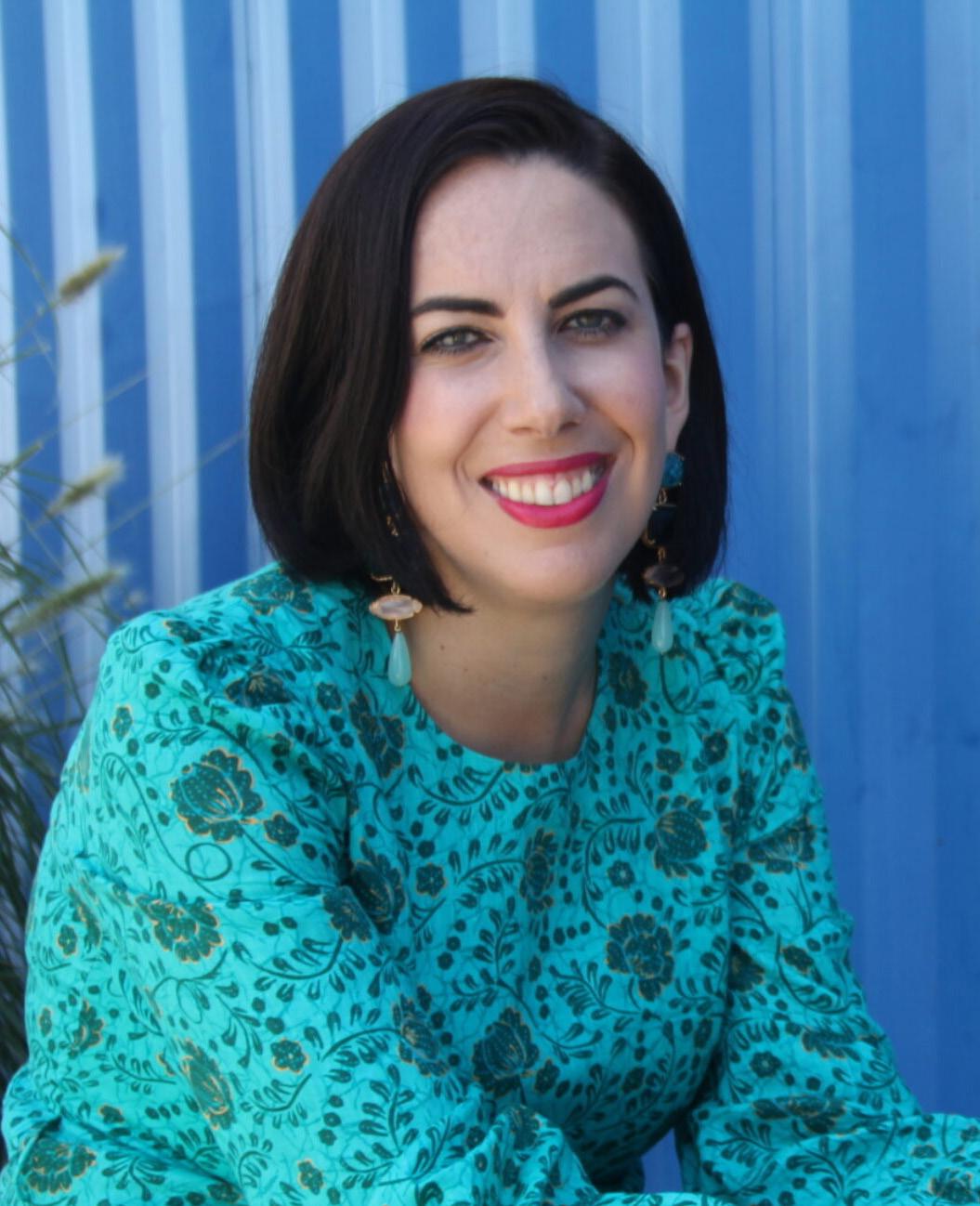
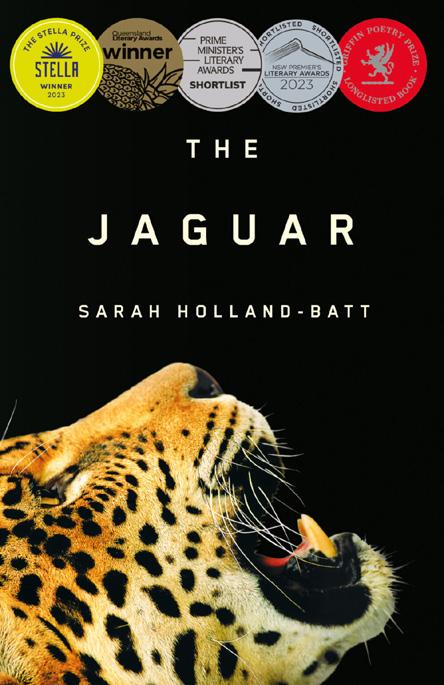
Fulbright Distinguished Chair in Advanced Science & Technology established
A new Distinguished Chair program was announced in partnership with the Defence Science and Technology Organisation (now DSTG) and the Fulbright Commission. The award was designed to attract outstanding U.S. researchers to work in Australia in priority areas of research for DSTG that will lead to ongoing collaborative partnerships between Australia and the U.S. and develop skills and capabilities in emerging fields of science and technology.
The award was renewed in 2024 for a further 10 years.
Fulbright - Kansas State University Distinguished Chair and Senior Scholarship announced
A partnership between Kansas State University and the Australian-American Fulbright Commission was established, the first one of its kind under the Australian program. Kansas State created a Fulbright Distinguished Chair in Agriculture and Life Sciences -- the first Fulbright distinguished chair designated for an Australian -- and an Australian Senior Scholar, a position open to any academic specialty.
The collaboration is centered on advancing research opportunities for Australian Fulbright Scholars at KSU, leveraging the university's expertise in agriculture, animal science, and biosecurity. Scholars benefit from state-of-theart facilities and interdisciplinary collaboration, enriching their work and strengthening international ties.
The partnership also emphasises global problem-solving, supporting projects addressing biosecurity, sustainable agriculture, animal science, and crop physiology. By combining Fulbright’s mission of mutual understanding with KSU’s research strengths, the partnership has significantly influenced policy and innovation is areas of crucial importance to both countries.

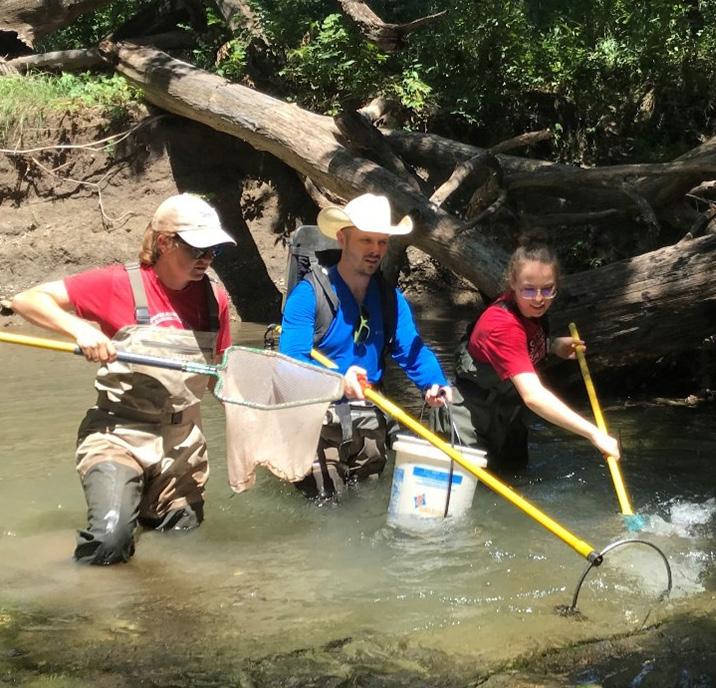

Professor Mari Ostendorf, trailblazing engineer and academic from the University of Washington won her Fulbright Postdoctoral Scholarship to Macquarie University, Sydney in 2012.
is a renowned engineer and academic specializing in speech and language technology. Her groundbreaking work focuses on advancing natural language processing and conversational AI. In 2012, she was awarded a Fulbright Scholarship to collaborate with researchers in Australia, enhancing cross-disciplinary approaches to language understanding and communication technologies. As a professor at the University of Washington, she has authored over 300 publications, pioneered methods in prosody modeling, and mentored numerous researchers. Ostendorf’s innovations continue to shape the fields of AI and human-computer interaction, impacting academia, industry, and everyday communication tools.
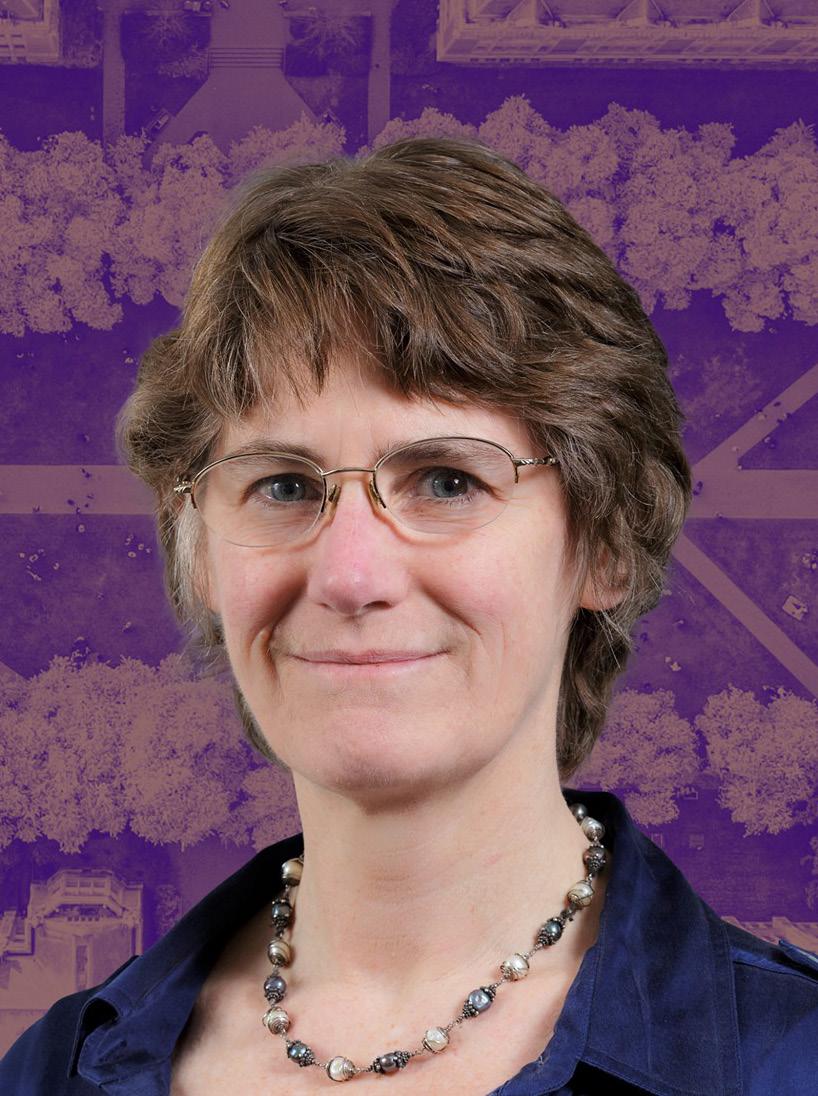

Lachlan Philpott, a celebrated Australian playwright, has made significant contributions to theatre with works exploring identity, community, and social issues. Awarded a Fulbright Professional Playwriting Scholarship in 2013, he deepened his engagement with U.S. theatre, collaborating with institutions like the American Conservatory Theater. Philpott's plays, including Silent Disco and The Trouble With Harry, are renowned for their innovation and emotional depth. His Fulbright experience enriched his creative practice and fostered international connections, elevating Australian narratives and enhancing global cultural dialogue through the transformative power of storytelling.

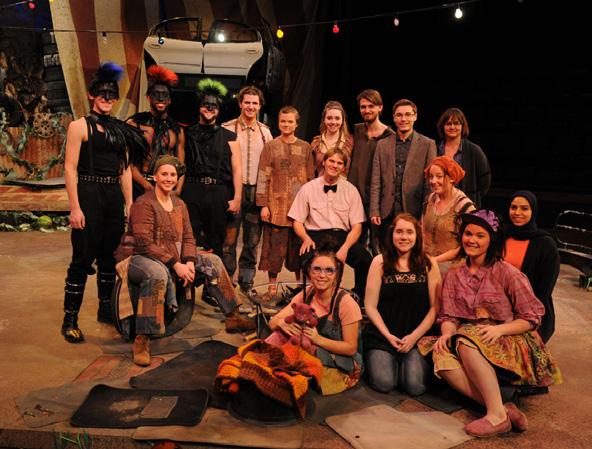
New Fulbright Scholarship for Playwrights Opens Opportunities in the U.S.
In 2013, the Fulbright Professional Playwriting Scholarship was launched by the AustralianAmerican Fulbright Commission and Inscription, supported by Copyright Agency Ltd, the Australia Council Literature Board, and Friends of Inscription. This prestigious scholarship enabled accomplished Australian playwrights with at least one professional stage credit to spend four months in the U.S. collaborating with leading theatre companies and script development organizations.
The program aimed to elevate Australian stories on international stages, fostering crosscultural exchange and empowering seasoned playwrights to connect with America’s dynamic theatre scene. The inaugural awardee was up-and-coming dramatist, Lachan Philpott
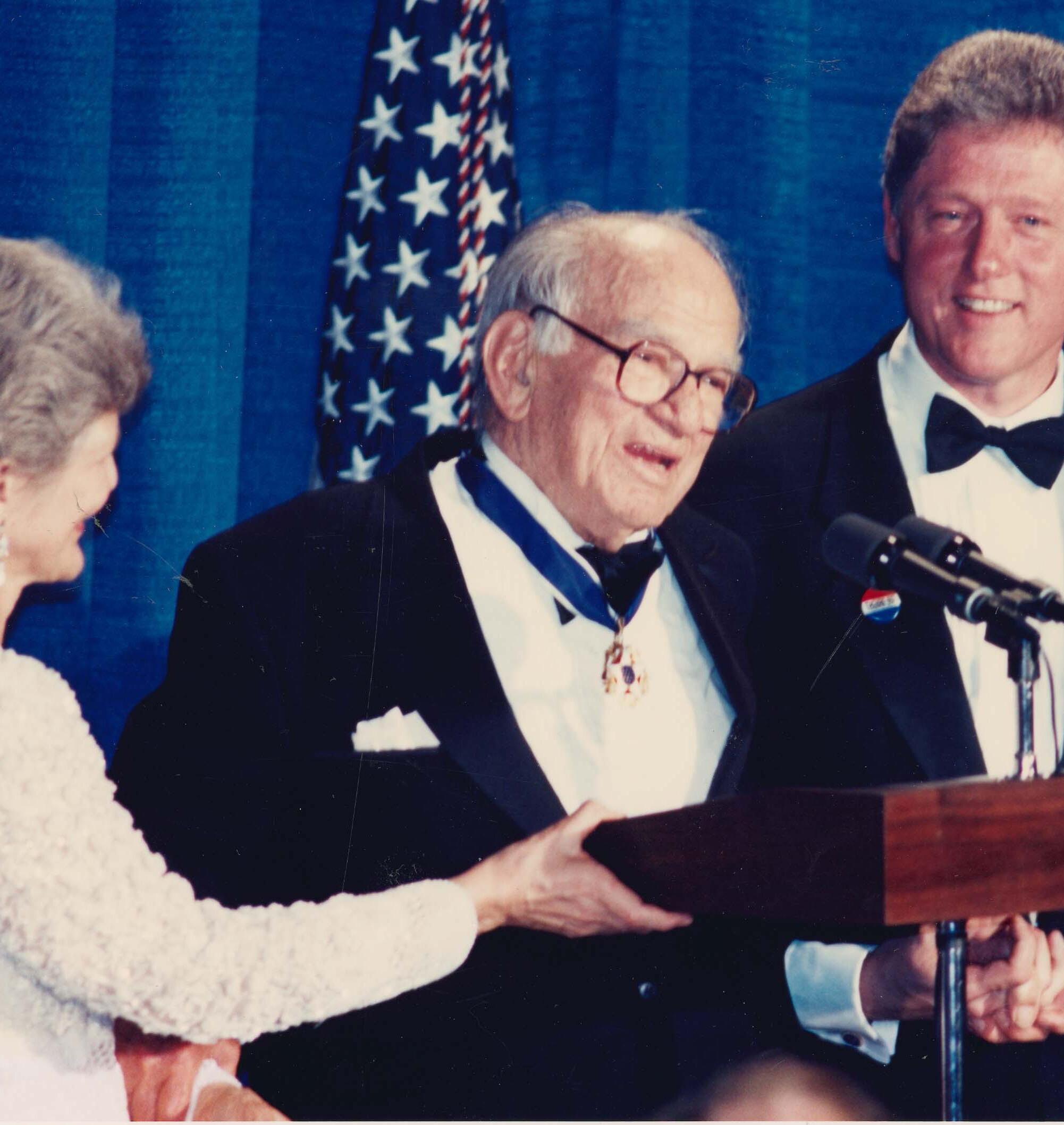
2013 was a huge year for new awards. In July, the Commission welcomed a fourth for the year, with the Fulbright Professional Scholarship in Non-Profit Leadership created to advance innovation and expertise in Australia’s non-profit sector. Established in partnership with the Origin Foundation, Blackboard Inc. and the Australian Scholarships Foundation, the scholarship enabled senior non-profit leaders to study leadership, governance, and capacity-building at premier institutions in the United States. It exemplified the Fulbright Program’s dedication to fostering professional excellence and global collaboration in underfunded sectors, empowering recipients to transform their organisations and communities.
The inaugural recipients were Dr. Tessa Boyd-Caine and Andrew Tyndale. Tyndale focused on social investment and research at the Milken Institute, examining ways to attract capital to essential social services like affordable housing and aged care. Boyd-Caine researched models for enhancing accountability and trust within the non-profit sector, drawing insights from the U.S. Foundation Center and National Center for Charitable Statistics. Both recipients aimed to bring back strategies to strengthen Australia’s non-profit landscape, ensuring its long-term sustainability and impact. The scholarship, over 14 years, left a lasting impact on the non-profit landscape in both Australia and the U.S.
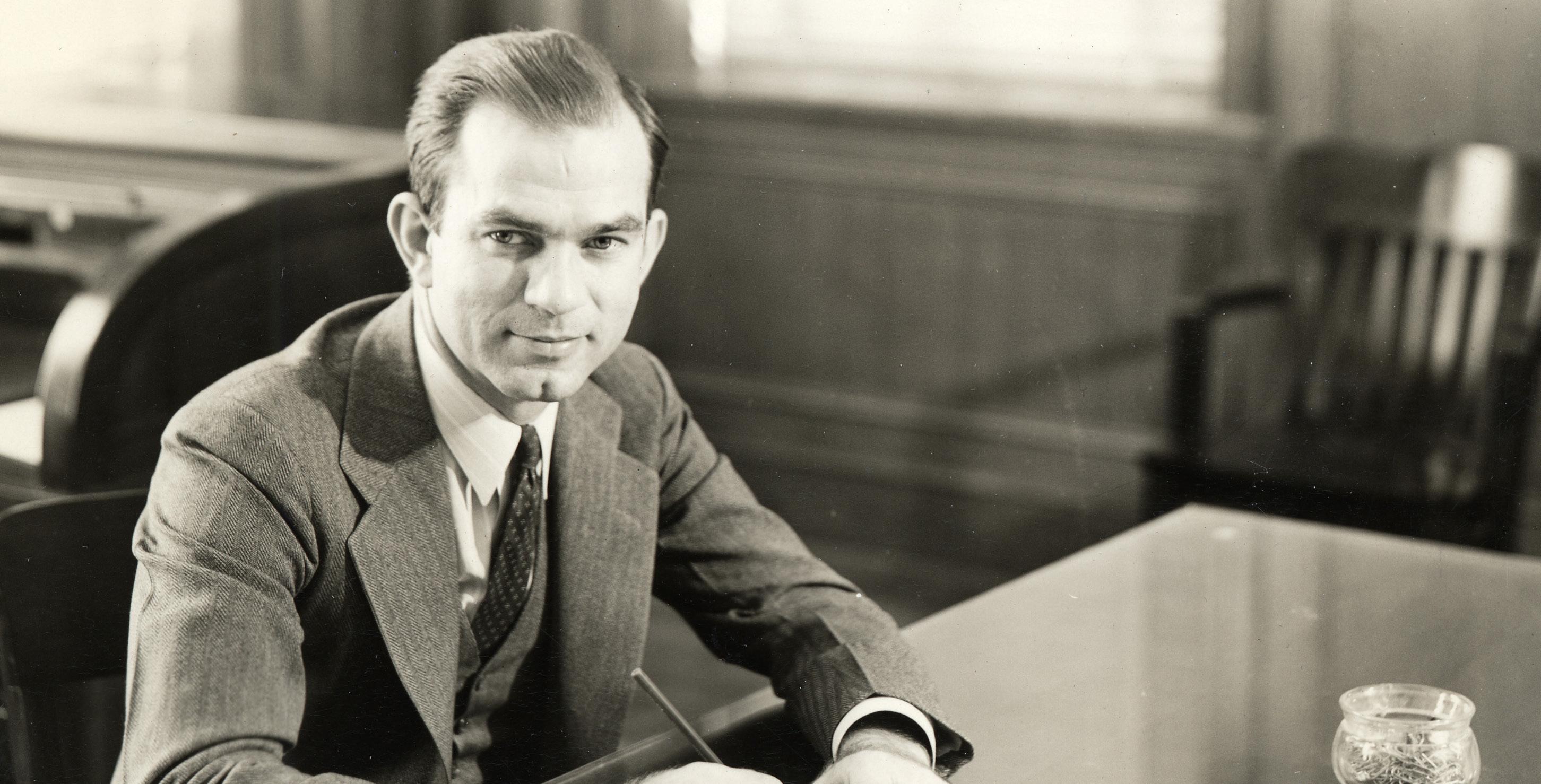
is a distinguished political scientist and public servant whose work has shaped understanding of the U.S. presidency, public policy, and political behavior. Her 2013 Fulbright Distinguished Chair at Flinders University in South Australia deepened academic and cultural exchanges between Australia and the United States, focusing on presidential rhetoric and its implications for policy-making.
In addition to her academic achievements, Farrar-Myers has made her mark as an elected official, serving on the Arlington, Texas City Council. Renowned for her pragmatic and collaborative approach, she has championed public services and community engagement. Her leadership embodies a commitment to accessible, effective governance and fostering trust between officials and the public.
Her Fulbright experience amplified her commitment to global collaboration, fostering mutual understanding and advancing research that bridges academia and practical governance, leaving a lasting impact on both disciplines.
Bridging Political Science and Leadership Excellence
Renowned political scientist and former Arlington City Council member, Professor Victoria A. Farrar-Myers was named as the 2013 Fulbrihgt-Flinders Distinguished Chair.
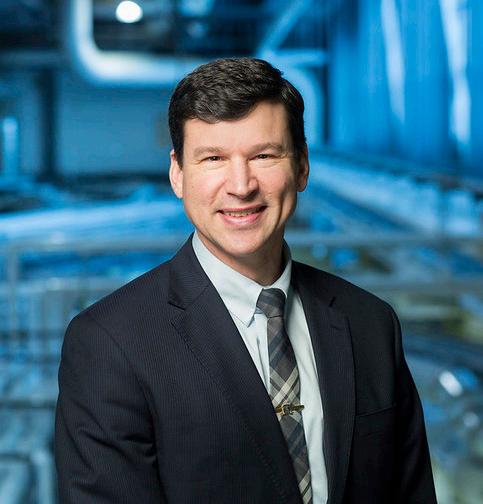


National Centre for Cultural Competence Partners with Fulbright Program
On 30 July 2014, the National Centre for Cultural Competence (NCCC) was launched at the University of Sydney, marking a significant milestone in advancing cultural understanding. The event also announced a new partnership with the Australian-American Fulbright Commission, creating two prestigious scholarships - a Distinguished Chair for Americans and a Postdoctoral Scholarship for Australians.
This collaboration aimed to promote research in cultural competence by engaging leading U.S. academics and Australian junior researchers. It exemplifies Fulbright's mission of fostering mutual understanding through education and cultural exchange, expanding the program's impact in contemporary, globally relevant fields.
Dr Mark Boland, a leading physicist and accelerator scientist, used his 2014 Fulbright ANSTO Scholarship to collaborate with Stanford University's SLAC National Accelerator Laboratory. His groundbreaking work focused on enhancing the precision and efficiency of particle accelerators, benefiting applications in medical imaging, cancer treatment, and materials science. At SLAC, Boland investigated advanced light sources and accelerator techniques, contributing to global advancements in research infrastructure. His achievements, including leadership roles at prestigious facilities like the Australian Synchrotron, shape international collaborations and the future of cutting-edge scientific discovery.


Dr. Harris Eyre, a neuropsychiatrist and entrepreneur, received a 2014 Fulbright Scholarship to study at the University of California, Los Angeles (UCLA). His research focused on brain health, integrating clinical neuroscience and public policy to address global mental health challenges.
Dr. Eyre co-developed the Brain Capital concept, blending brain health with economic innovation to promote societal well-being. His work, spanning academic leadership, global advocacy, and innovative healthcare solutions, influences international mental health policies and practices, driving transformative approaches to neurological and psychiatric care.

5 August, 2014
An incredible year for Fulbright collaborations in advanced science
Four talented scientists, now world leaders in their respective fields, are among those selected in the 2014 Fulbright cohort.
Dr. Rose Ahlefeldt, a physicist specialising in quantum materials, was awarded a 2014 Fulbright Scholarship to collaborate at UC Berkeley. Her research focuses on rare earth ions for quantum computing, exploring their potential for creating long-lived quantum memory systems.
In 2018, Dr. Ahlefeldt was named ACT Scientist of the Year, recognising her pioneering contributions to quantum science. By combining advanced theoretical and experimental approaches, her work continues to influence global quantum research and positions Australia as a leader in the field of quantum information technology.
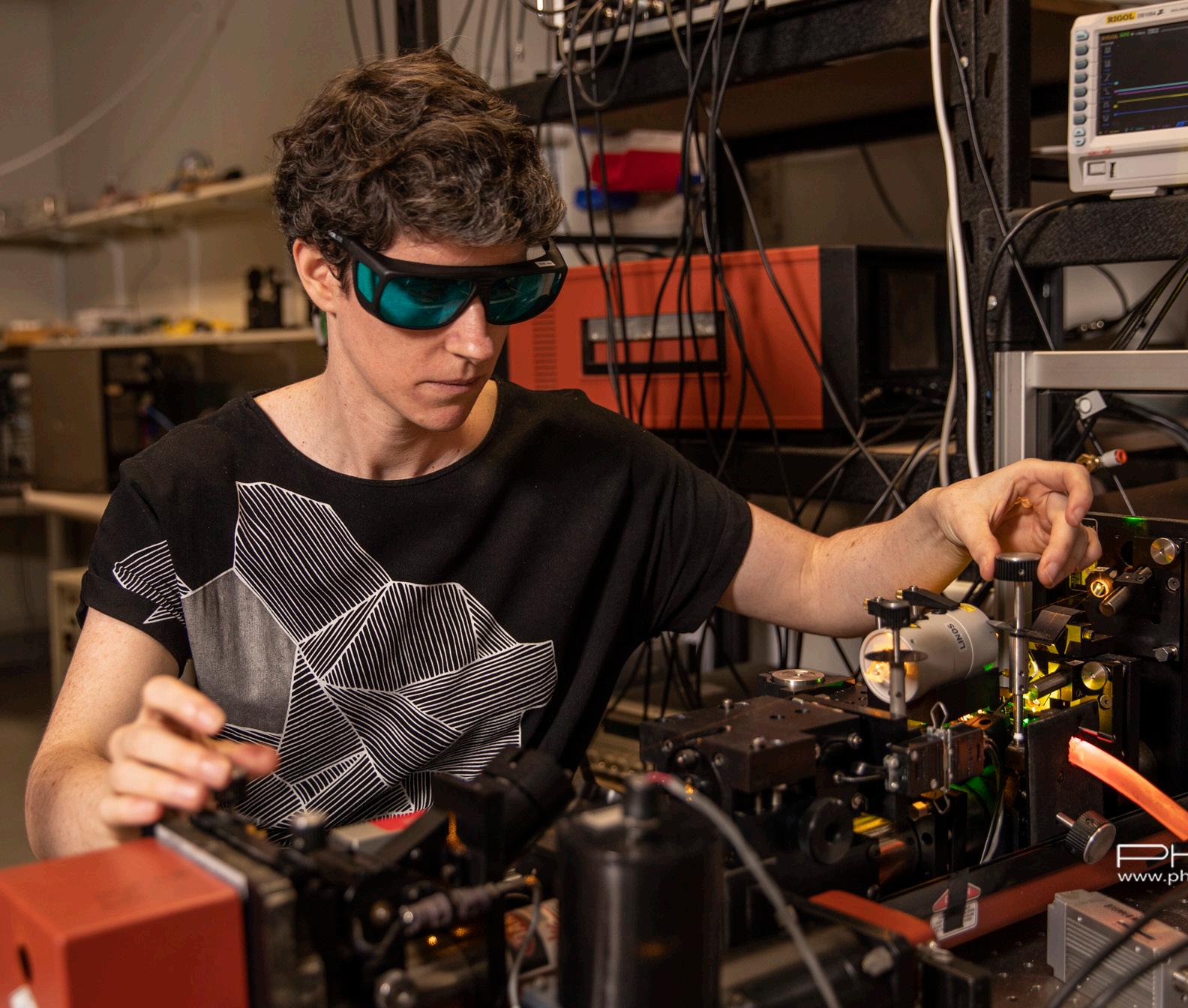

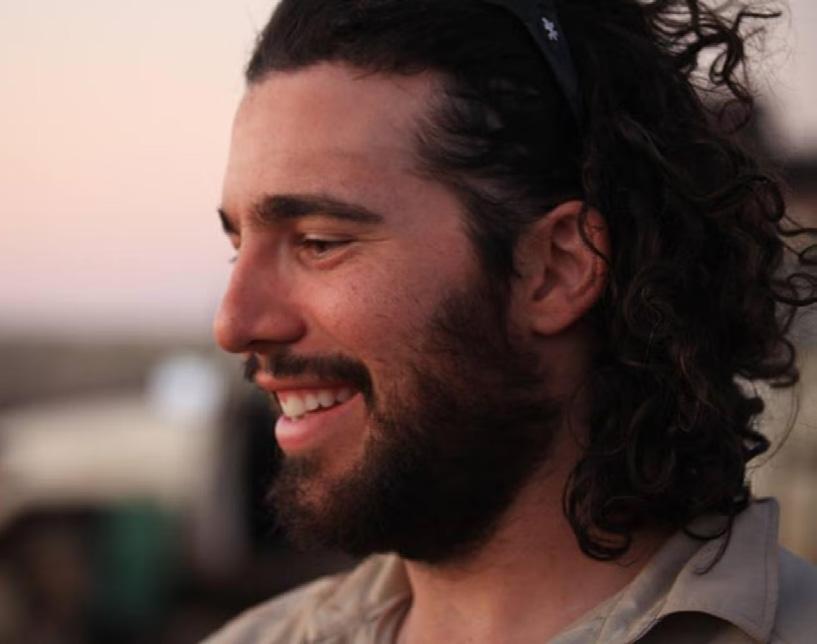
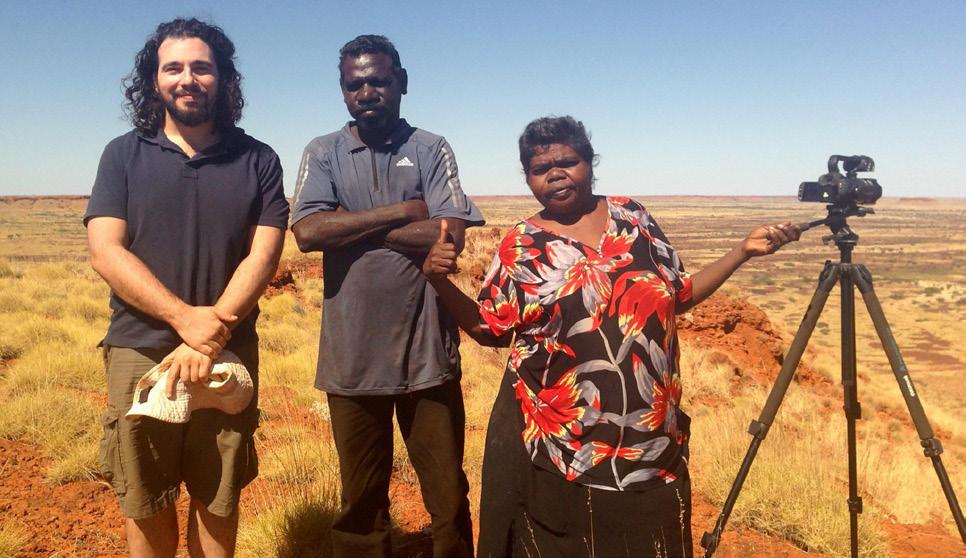

Dr. William Lempert, an anthropologist and advocate for Indigenous storytelling, explores the cultural impacts of Aboriginal media production. As a Fulbright Scholar, Lempert conducted fieldwork in Australia, examining how Indigenous filmmakers use media to shape narratives of identity and self-determination. His research highlights the power of storytelling in challenging stereotypes and fostering cultural empowerment. Through his academic work and engagement, Dr. Lempert continues to champion the role of Indigenous media in advancing representation and global understanding.
Amplifying Indigenous Narratives through Storytelling Filmmaker Willi Lempert arrives in Australia to commence his Fulbright Scholarship.
A Premier Fulbright Opportunity in Science and Innovation with CSIRO
In 2015, the Fulbright Distinguished Chair in Science, Technology, and Innovation was established in partnership with Australia's Commonwealth Scientific and Industrial Research Organisation (CSIRO). Launched to foster collaboration between Australian and U.S. scientists, it enables distinguished scholars to advance research in areas such as sustainability, technology, and scientific innovation.
Closing in on its 10th anniversary, this Chair underscores the shared commitment of Fulbright and CSIRO to driving global progress by linking expertise across borders, further strengthening Australia-U.S. scientific ties and promoting transformative breakthroughs with worldwide impact.
Professor Benny Freeman, the inaugural Fulbright Distinguished Chair in Science, Technology, and Innovation, worked with CSIRO, the University of Melbourne, and other Australian institutions in 2016. His groundbreaking project focused on developing advanced separations membranes for diverse applications such as air separation, desalination, and toxic material remediation. Freeman’s research explored "over the horizon" technologies to address global challenges like waste-toenergy solutions and the recovery of critical materials. By fostering international collaboration and addressing fundamental scientific questions, his work laid the foundation for innovative approaches in environmental and resource sustainability.h worldwide impact.

Hudson, is an award-winning author, and distinguished scholar in political science and global security, known for her groundbreaking work on the intersections of gender, security, and foreign policy.
Hudson'swork has significantly influenced global discussions on how gender inequality impacts national security and governance. Hudson is also the co-founder of the Women, Peace, and Security agenda, providing vital insights into how gender affects international relations and peacebuilding efforts.
In 2015, Fulbright's presence in Australia grew exponentially through numerous new university collaborations, including the Fulbright Distinguished Chair in Arts, Humanities, and Social Sciences, sponsored by the Australian National University (ANU). The award aimed to create opportunities for bilateral collaboration in a diverse variety of fields, from peace & security to gender studies, at is a world-leading university in Australia’s capital city, Canberra.
The inaugural awardee was Professor Valerie M. Hudson, George H.W. Bush Chair in The George H.W. Bush School of Government and Public Service at Texas A&M University
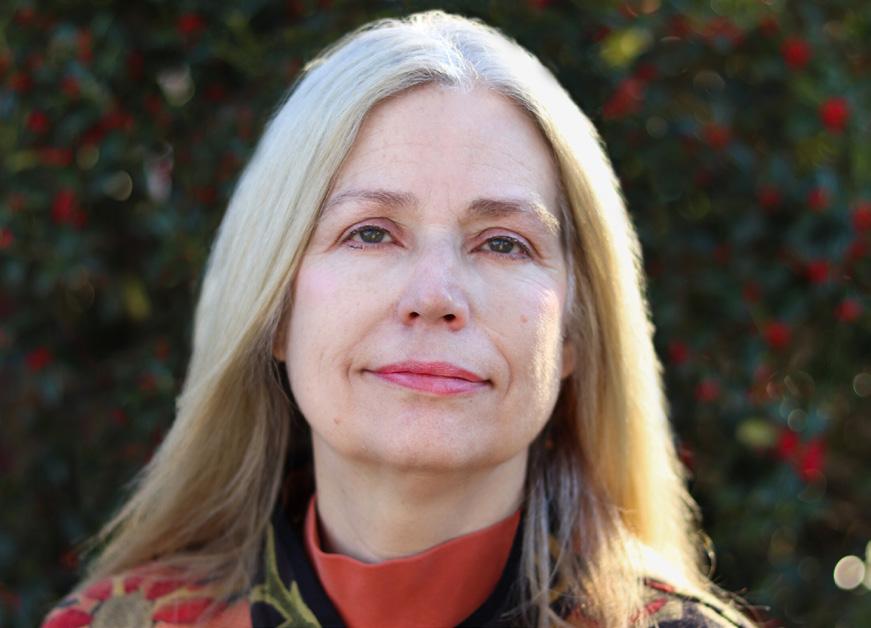

In 2016, Professor Valerie Hudson became the inaugural Fulbright Distinguished Chair at ANU. An authority on gender and international security, Dr. Hudson used her tenure to explore Australia’s implementation of UNSCR 1325 through its National Action Plan on Women, Peace, and Security. Her research included studying the Australian government’s and military’s integration of gender considerations in peacekeeping and defense. She also deepened her understanding of Foreign Policy Analysis as it has evolved in Australia, forging connections with Australian scholars to enrich this vital field. Hudson's contributions exemplify the Chair's mission to advance transformative academic and cultural dialogue.

, a globally renowned chemical engineer at the University of Texas at Austin, has dedicated his career to advancing polymeric membranes. His research addresses critical issues in energy, water, and sustainability, including applications in gas separations, desalination, and materials recovery.
As the inaugural Fulbright Distinguished Chair in Science, Technology, and Innovation in 2014, he collaborated with Australian institutions to develop innovative membranes for environmental and industrial applications. Freeman’s groundbreaking work has earned him numerous awards and established him as a leading voice in materials science and chemical engineering.
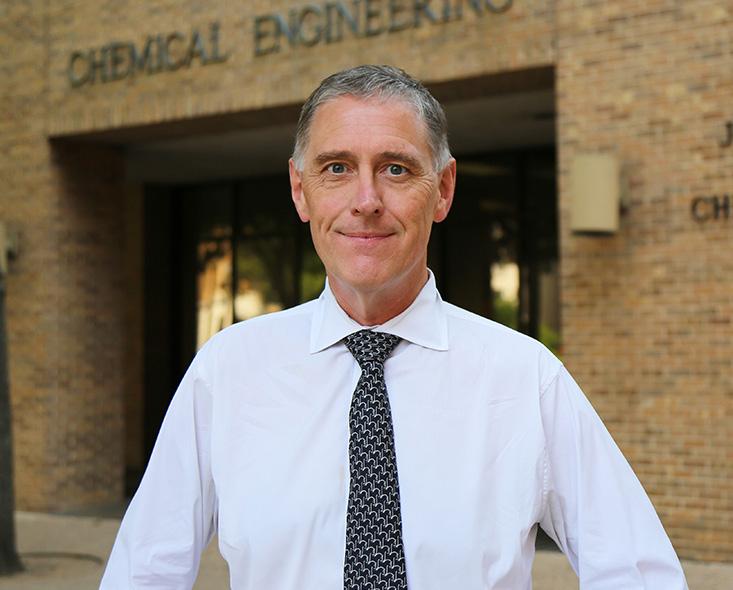
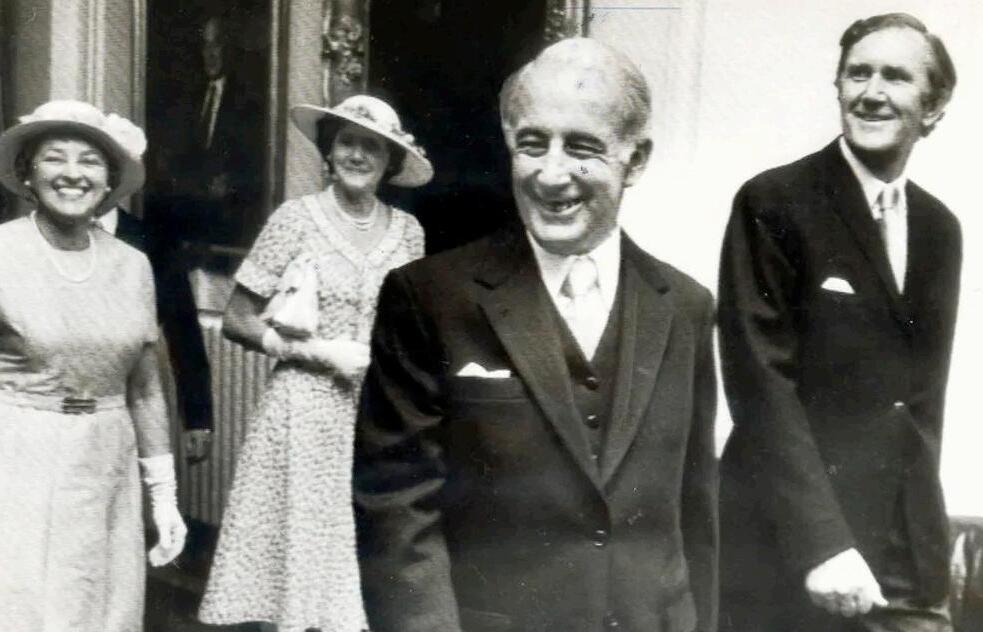
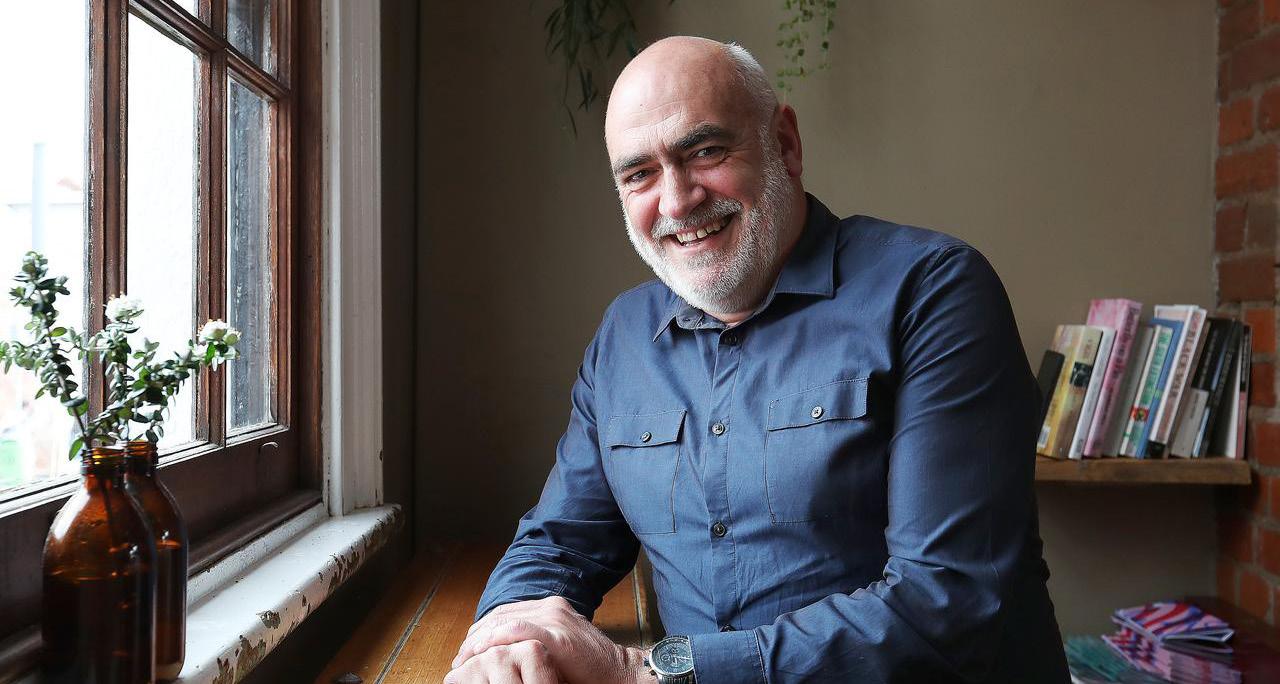
Professor Tim McCormack is a globally recognised authority in international humanitarian and criminal law. Currently serving as Professor of International Law at the University of Tasmania, McCormack holds a position as the Special Adviser on War Crimes to the Prosecutor of the International Criminal Court. He has had a distinguished career, including multiple international appointments. His work focuses on promoting international humanitarian law and human rights, contributing significantly to treaty negotiations, and offering expert legal advice to the Australian Government. McCormack is also deeply involved in reconciliation efforts, notably as an adviser in Tasmania’s Pathway to Truth-Telling and Treaty with Aboriginal People. His leadership and expertise extend to the academic sphere, where he has edited influential publications on the laws of war and contributed to numerous international legal bodies.
Leading Expert in International Humanitarian Law heads off to RI
Professor Tim McCormack takes up the position of Charles H Stockton Distinguished Scholar-in-Residence in the Stockton Center for the Study of International Law at the U.S. Naval War College, Rhode Island.

Wiklund PhD is a leading scholar in the field of entrepreneurship, focusing on the intersection of mental health and entrepreneurial outcomes. A Fulbright Scholar in 2017, Wiklund’s research explores how conditions like ADHD, bipolar disorder, and dyslexia impact entrepreneurial success, leadership, and decision-making.
As a Professor at the Whitman School of Management, he has significantly contributed to understanding the psychological traits that influence entrepreneurial behavior. His work bridges business practices with mental health, offering new insights into how mental health conditions shape business leaders' strategies and performance.
Professor Johan Wiklund, the inaugural recipient of the Fulbright Distinguished Chair in Entrepreneurship and Innovation at RMIT University, examined the intersection of mental health and entrepreneurial outcomes. His research focused on the impact of symptoms such as ADHD, bipolar disorder, and dyslexia on entrepreneurial practices, including leadership style, strategies, and the success or failure of ventures. Wiklund’s work aimed to shed light on how these conditions influence entrepreneurial orientation and decision-making, offering valuable insights into the complexities of entrepreneurship and mental health.
In December 2015, the Commission celebrated a sixth new partnership for the year, this time with the University of Newcastle (UON), creating a Fulbright Distinguished Chair for senior U.S. scholars and a Postdoctoral Scholarship for early-career U.S. researchers..
This new program, announced by U.S. Consul General Hugo Llorens, aimed to enhance research collaboration between Australia and the U.S., with UON hosting U.S. scholars for research and national lectures. This partnership, across nearly 10 years, has created close to 20 bilateral collaborations on projects ranging from Civil Engineering to Indigenous Maternal Health, underscoring UON's global research standing and commitment to advancing international academic exchange in diverse fields.
The University of Newcastle's inaugural Distinguished Chair recipient was Harrison Distinguished Teaching Professor at the University of Virginia, Professor Bradford Worrall, who undertook crossdisciplinary research into the neuropathology of strokes.

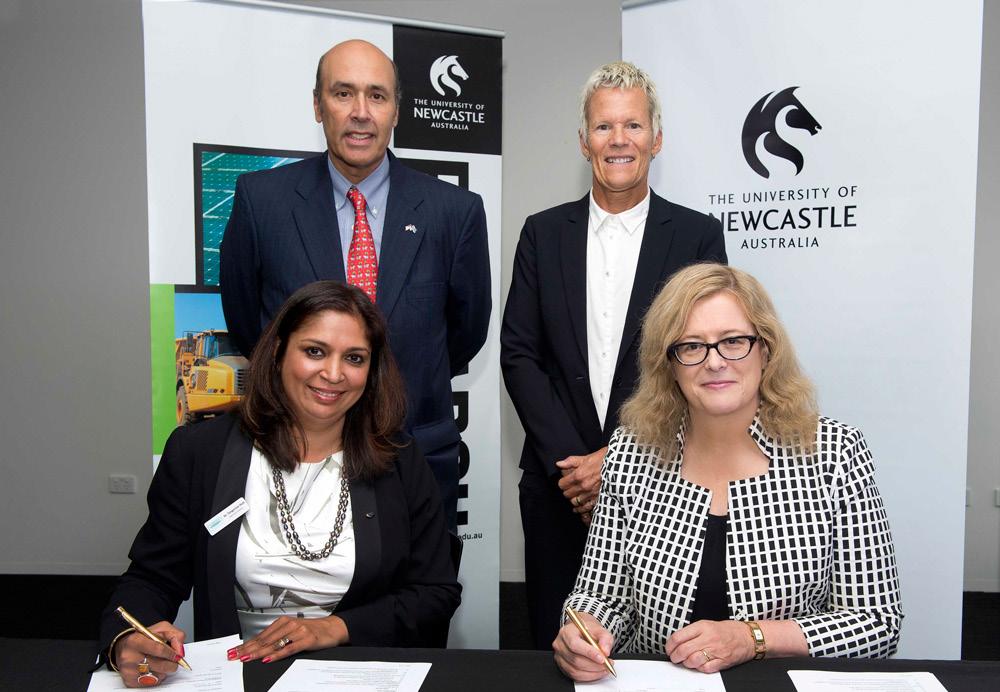
is a prominent cerebrovascular neurologist specializing in stroke and blood flow disorders in the brain. He is the Division Chief for Vascular Neurology and Vice Chair for Research at the University of Virginia (UVA), where he also serves as the Harrison Teaching Professor of Neurology and Public Health Sciences. His research focuses on genetic causes of stroke, including CADASIL and Fabry disease, as well as stroke health disparities. Dr. Worrall is also a deputy editor for Neurology and directs the Vascular Neurology Fellowship at UVA.also the co-founder of the Women, Peace, and Security agenda, providing vital insights into how gender affects international relations and peacebuilding efforts.
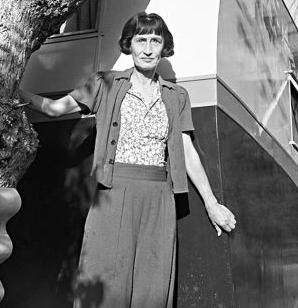
The partnership wave continued in November with another two Fulbright opportunities announced at RMIT University in Melbourne. The Fulbright Distinguished Chair in Entrepreneurship and Innovation was offered to a US scholar for six months at RMIT, focusing on innovation and entrepreneurship. Meanwhile, the Fulbright Postdoctoral Scholarship allowed an Australian scholar to conduct research in the US for 10 months. Upon returning to Australia, the postdoctoral candidate received a three-year Vice-Chancellor’s Postdoctoral Fellowship at RMIT, further deepening the collaboration.
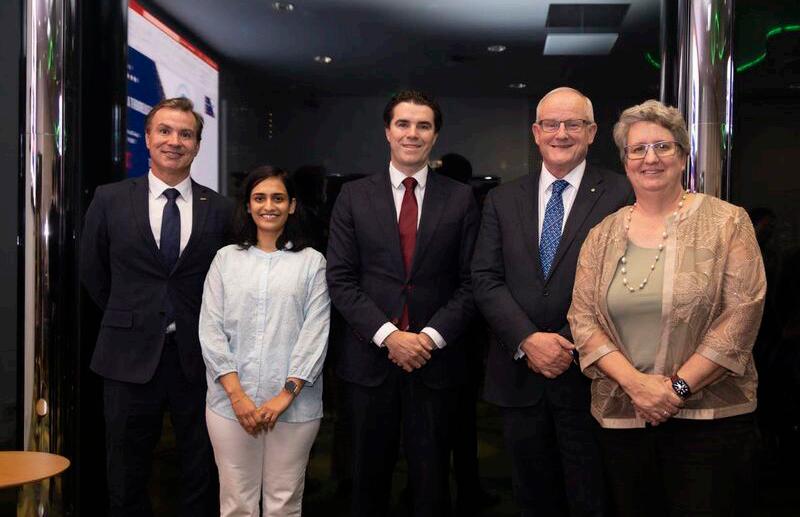
The program continues to foster world-leading collaborations led by both Australians and Americans, not only in entrepreneurship and research commercialisation, but a plethora of cross-disciplinary backgrounds including psychology, engineering, and design.

Dr. Wayne D. Pennington is a prominent geophysicist known for his expertise in resource extraction and CO2 sequestration. He has contributed significantly to refining methods for observing and quantifying the depletion of oil and gas fields, as well as improving CO2 storage techniques. As a leading expert in geophysics, Dr. Pennington's work combines field observations with theoretical models to enhance the efficiency and sustainability of energy production. His research has provided valuable insights into subsurface behavior, benefiting both the energy industry and environmental protection efforts.
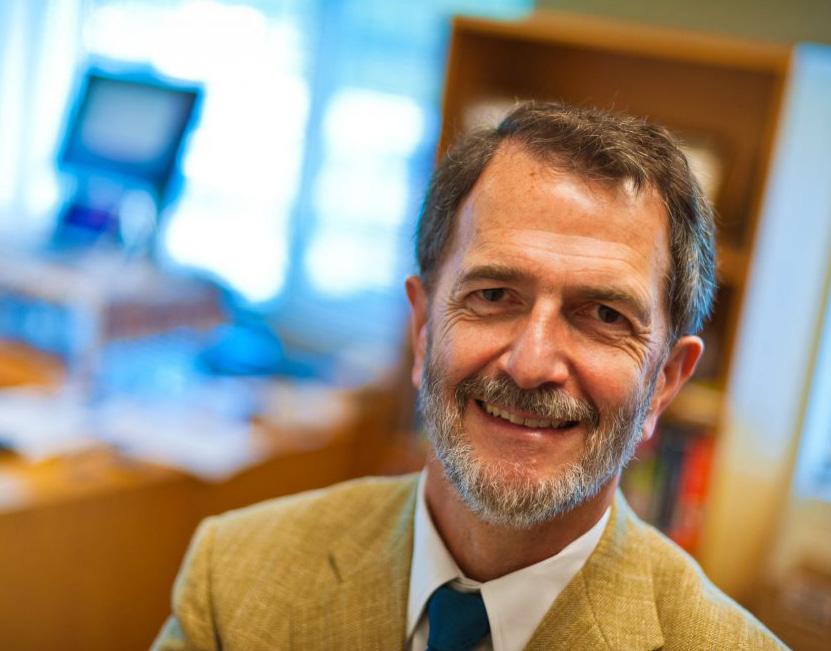
2016 kicks off with Curtin University Partnership
2016 began with the announcement of yet another Australian university-partnered Fulbright Scholarship The Fulbright Distinguished Chair in Resources and Energy, sponsored by Curtin University, was established to foster collaboration between Australia and the United States in the fields of energy, resources, and sustainabile extraction. The position brought leading U.S. scholars to Western Australia to engage in research that addresses key challenges in energy production and resources management, with a focus on innovative, interdisciplinary approaches to global energy needs and sustainable practices. The inaugural recipient was Dean and Professor Emeritus and a Research Professor of Geophysical Engineering at Michigan Technological University, Dr Wayne D. Pennington
Dr. Wayne D. Pennington spent four months at Curtin University refining geophysical methods to monitor and quantify the depletion of oil and gas fields and the filling of CO2-sequestration reservoirs. His project combined real-world observations from existing sites with theoretical predictions and laboratory measurements, aiming to improve techniques for tracking the behavior of subsurface reservoirs.
This research is crucial for enhancing the efficiency of resource extraction and advancing sustainable CO2 storage practices, contributing to more accurate models for future energy management and environmental protection.

Western Sydney University invites U.S. Postgraduates
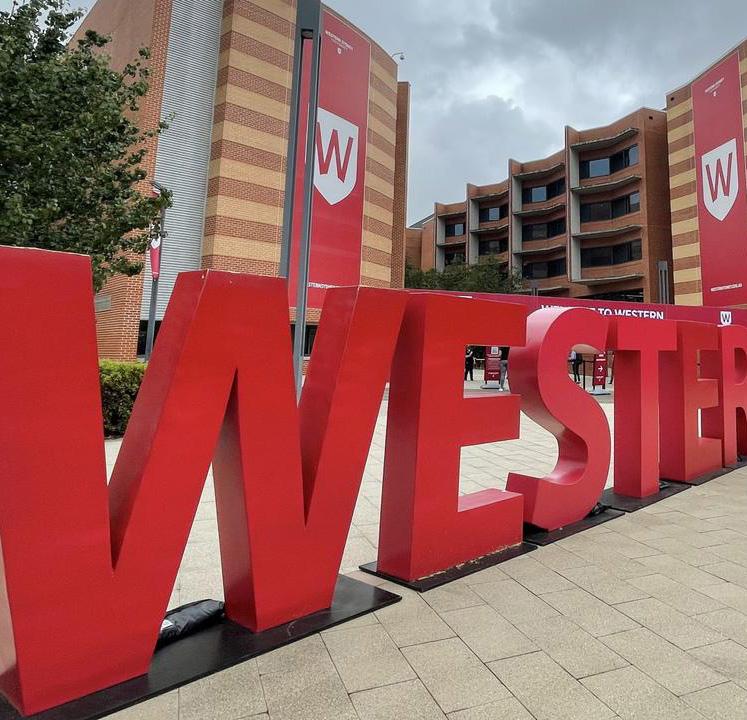
Continuing the trend of Australian Universities supporting bilateral educational exchange, Western Sydney University announced a new opportunitie for U.S. graduates in February.
The Fulbright Postgraduate Scholarship, sponsored by Western Sydney University (WSU), provided U.S. grads with the opportunity to study at WSU in fields such as Environment, Social Justice, Public Health, and Creative and Performing Arts. This scholarship aimed to foster academic exchange between the U.S. and Australia, encouraging students to engage in research and contribute to global solutions. Through this partnership, WSU strengthened its commitment to supporting international collaboration and nurturing future leaders in these critical areas of study.
The program continues to provide exceptional opportunities for Americans to study in Western Sydney.

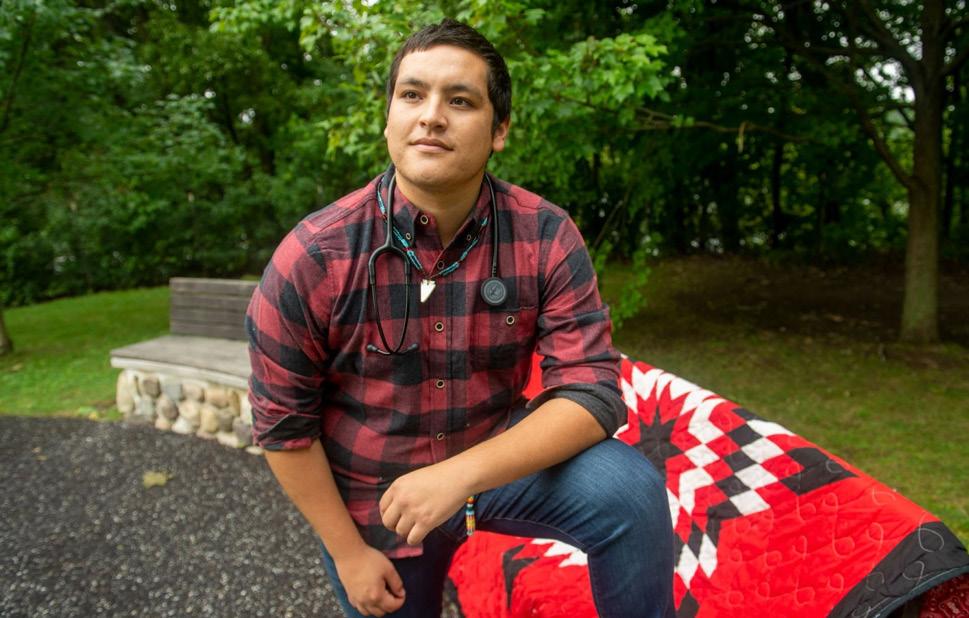
MD, MPH, a Dakota and Yaqui physician and Indigenous health advocate, graduated from Harvard Medical School in 2023. He co-founded the Ohiyesa Premedical Program at Brigham and Women’s Hospital and Translations for our Nations, which provided COVID-19 information in over 40 Indigenous languages. As a former Co-Chair of the UN Global Indigenous Youth Caucus, he championed Indigenous youth health and climate action.
As one of the inaugural recipients of the Fulbright Postgraduate Scholarship, sponsored by Western Sydney University,, Victor atained a Master of Public Health, conducting pivotal research on Aboriginal families’ experiences with urban boarding schools, shaping recommendations for culturally supportive educational practices.

The Australian partnership surge continued without any signs of abating with the Fulbright Senior Scholarship, Sponsored by the University of Canberra, announced in March.
The award was established to foster collaboration between Australian and U.S. scholars, enhancing research exchange in key areas of importance to UC and Canberra, such as policy, law, arts, social sciences, and international affairs. The Chair allows U.S. scholars to spend time at in Australia's capital, engaging with faculty, students, policy-makers and practitioners while advancing research that aligns with both nations' priorities. It contunies to this day, having funded numerous projects in areas such as law, media studies, and mental health.
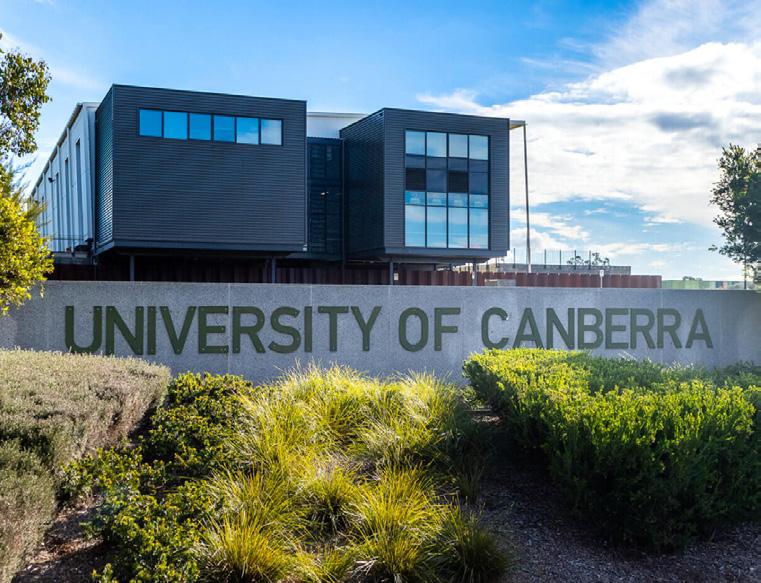


Two more Victorian universities fund Fulbright Postdocs
Both Monash University and Deakin University announced Fulbright partnerships in late 2016, further expanding the incredible opportunities available to early and mid-career researchers both in Australia and the U.S.
Deakin cultivates community engagement & industry innovation
The Fulbright Postdoctoral Scholarship, funded by Deakin University, offers exceptional U.S. researchers the opportunity to conduct high-quality, impactful research that aligns with the university’s strategic focus on community engagement and industry innovation.
Deakin, known for its collaborative and supportive research culture, provides a platform for postdocs to contribute to transformative research, making a tangible difference in society and industry.
The award continues to this day, having funded numerous projects in diverse fields from Marine Science to Philosophy.

Monash tackles the Grand Challenges of our Age
The Fulbright Postdoctoral Scholarship, funded by Monash University, enables Australian scholars to undertake postdoctoral research in the United States. Focused on solving the grand challenges of our age, this award supports innovative research that tackles pressing global issues such as climate change, neuroscience, and cancer research.
By fostering collaboration between Australia and the U.S., the scholarship enhances knowledge exchange and provides opportunities for emerging researchers to contribute to transformative solutions in fields of crucial import to humanity. The award is still going strong, having enabled 9 Australian postdocs to undertake lifechanging U.S. research exchange.
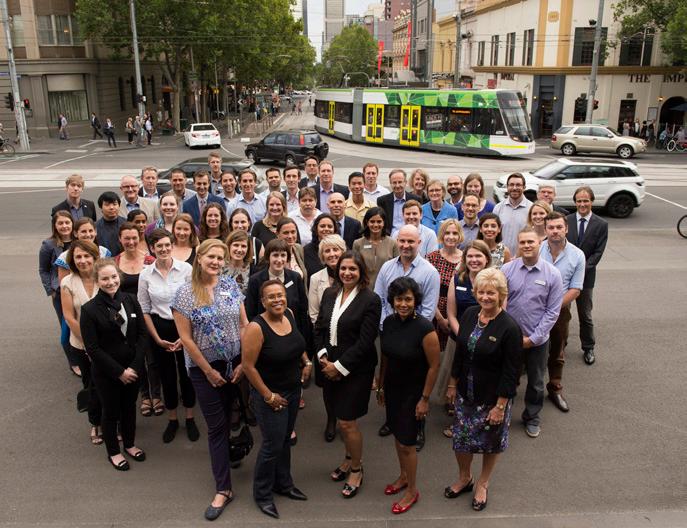
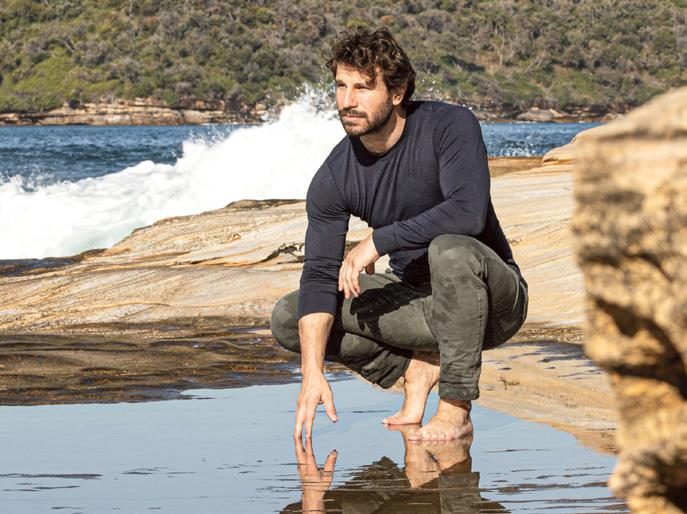
Dr Mitchell Gibbs seeks to solve the grand challenges of environmental sustainability and food security through Indigenous-led restoration techniques. At Western Washington University, Gibbs collaborated with marine ecologist Marco Hatch to explore clam gardening practices in North American Indigenous communities, including Alaska’s Tlingit village of Kake. His work focused on traditional methods of restoring ecosystems to address food supply crises caused by global disruptions. Gibbs aimed to apply these transformative approaches in Australia, advancing sustainable practices, fostering resilience, and demonstrating the power of Indigenous knowledge to solve critical global issues.
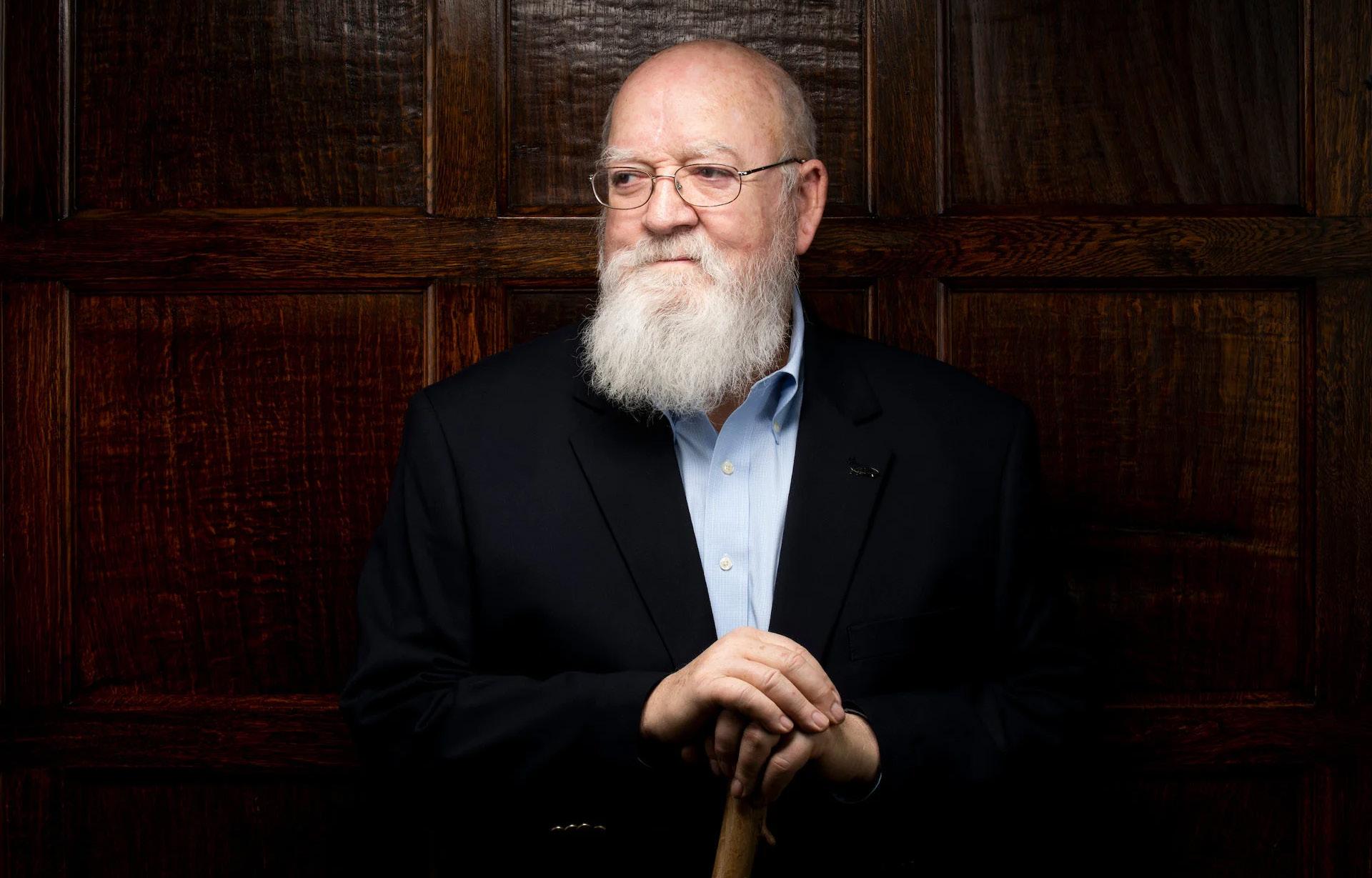
Professor Daniel Dennett was a renowned philosopher and cognitive scientist who profoundly influenced understanding of consciousness, evolution, and the mind. As a professor at Tufts University, Dennett explored the philosophy of mind, examining consciousness and evolutionary theory. In 2017, he was awarded a prestigious Fulbright Scholarship, which enabled him to expand his research in Australia. His work blended scientific insights with philosophical analysis, challenging traditional views of human consciousness. Dennett authored several influential books, including Consciousness Explained and Darwin's Dangerous Idea, reshaping discourse on cognition, free will, and human behavior. Dennett passed away in December 2024.
A Pioneer in Philosophy and Cognitive Science Lands in NT
The late philosopher Professor Daniel Dennett was named a Fulbright Specialist in 2017, heading to Charles Darwin University to focus on consciousness research, and why the key steps to progress are so hard for many people to accept.

In 2017, the the University of Technology Sydney (UTS) formalised a partnership with the Commission, creating the Fulbright Scholar Award, funded by UTS, aiming to support senior U.S. scholars in areas such as health, data science, and sustainability. Then-UTS Vice Chancellor Professor Attila Brungs celebrated the initiative as thte beginning of a long and fruitful partnership.
The inaugural recipient was Dr Cindy Bethel, a distinguished professor in Mississippi State University’s Bagley College of Engineering. Known for her innovative robotic therapy dog, Therabot, Bethel collaborated with the Magic Lab for Social Robotics at the University of Technology Sydney. Her research focused on refining Therabot's design and evaluating its potential to support individuals with post-traumatic stress disorder.


, an expert in energy and environmental policy, has shaped global nuclear policy with her visionary leadership. As the first geologist and third woman to chair the U.S. Nuclear Regulatory Commission, she guided critical reforms in nuclear safety. Currently, she serves as Director of the School of Public Policy and Global Affairs at the University of British Columbia.
In 2017, Macfarlane was Fulbright Distinguished Chair in Applied Public Policy at Flinders University and Carnegie Mellon Adelaide in Australia. Her Fulbright research examined South Australia's exploration of international nuclear waste disposal, bridging technical insight with policy innovation.
A respected academic, Macfarlane has held faculty roles at institutions including George Washington and Georgia Tech, and served on the Obama Administration’s Blue Ribbon Commission on nuclear waste policy. She has contributed to panels for the National Academy of Sciences and chaired the Science and Security Board for the Bulletin of Atomic Scientists.
Her extensive publication record includes Uncertainty Underground, a landmark work on nuclear waste management. Through her Fulbright tenure and global roles, Macfarlane has driven impactful dialogue and solutions in energy policy, enriching collaboration between academia, government, and international stakeholders.
Flinders and Carnegie Mellon Collaborate on Fulbright Chair
The Fulbright Distinguished Chair in Applied Public Policy, funded by Flinders University from 2014, expanded to include Carnegie Mellon University Australia (CMUA) for the 2017 Fulbright cohort. The two powerhouse institutions teamed up to provide outstanding opportunities for leading U.S. policy experts to undertake research in South Australia.
In 2024 the awards is once again funded solely by Flinders, and renamed to commemorate the late visionary who was instrumental in the original award's creation. Professor Don DeBats, eminent Professor of Politics and International Studies, and former Chair of the Fulbright Australia Board. The Fulbright Don DeBats Distinguished Chair in Politics and Public Policy continues to support world class research in fields that Don championed during his distinguished career.

In August, Australia's first regional universitysponsored scholarship was created via the Fulbright Scholar Award, funded by CQUniversity, Australia
The award was a unique opportunity for senior U.S. researchers to undertake bilateral collaborations at any of CQUniversity's Australian campuses, in fields leveraging the university's many strengths, including agriculture, psychology, cognitive sciences, nursing and health services, environmental science, and engineering.
The award is now in its sixth year and has created numerous world-class research collaborations.

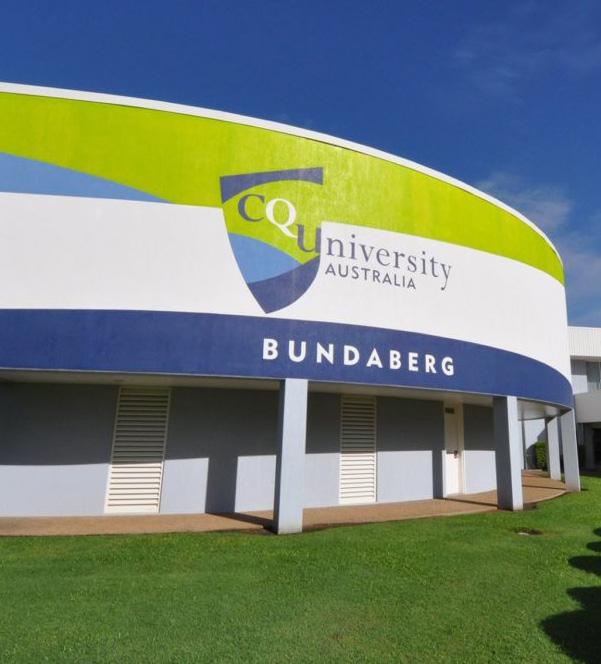

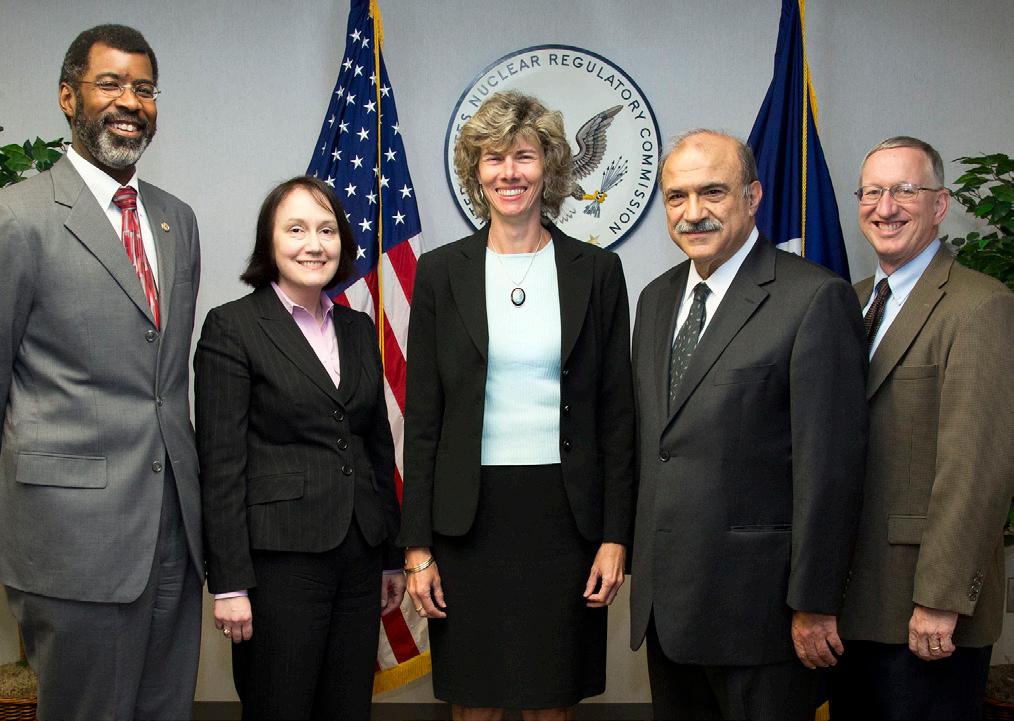
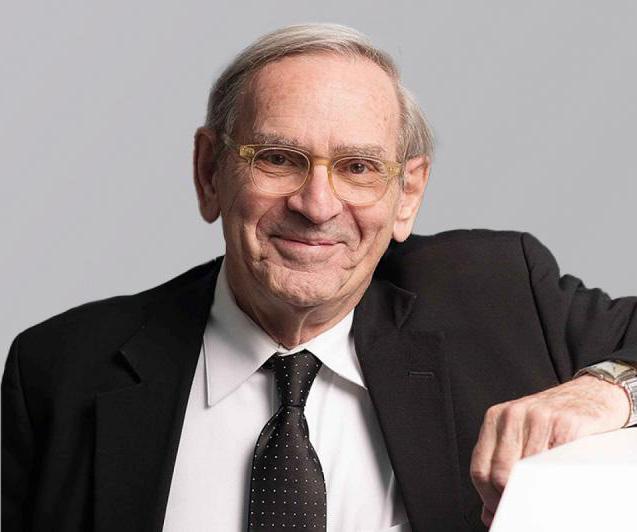

In a joint announcement, U.S. Secretary of State Rex W. Tillerson and Australian Foreign Minister Julie Bishop unveiled the creation of four new Fulbright Scholarships. These scholarships, commemorating 100 years of 'mateship', aimed to advance research in strategic studies, technology, and innovation, fostering deeper academic exchange between American and Australian scholars.
The program sought to promote cross-cultural understanding and collaborative research while strengthening the long-standing Fulbright relationship between the two nations. The scholarships were designed to enhance collaboration between scholars and institutions, contributing to advancements in these key fields.

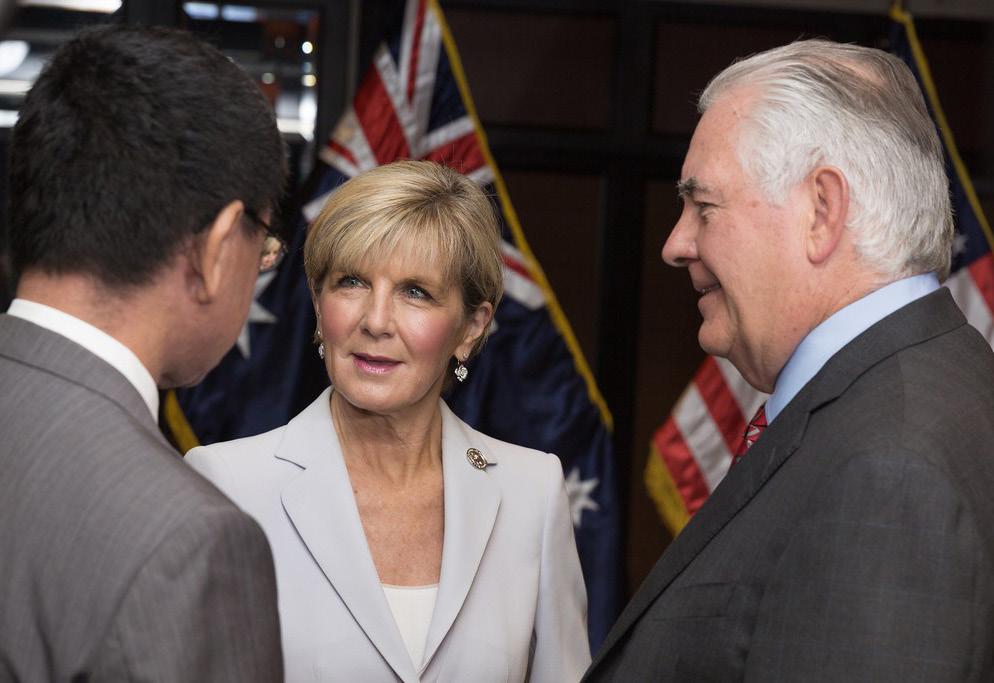
a profound impact on American studies, political history, and Fulbright. After earning his Ph.D. from the University of Wisconsin, he moved to Australia in 1970, becoming a cornerstone of Flinders University as Head of American Studies and the founding Director of the Jeff Bleich Center for the US Alliance in Digital Technology, Security, and Governance. His leadership extended to chairing the Australian Fulbright Commission Board and holding research positions at prestigious U.S. institutions, including the University of Virginia.
Renowned for blending political history with geospatial analysis, Professor DeBats secured support from the National Endowment for Humanities and the Australian Research Council, producing over 100 influential publications. He also established the transformative Flinders Washington Internship Program, giving students life-changing experiences on Capitol Hill.
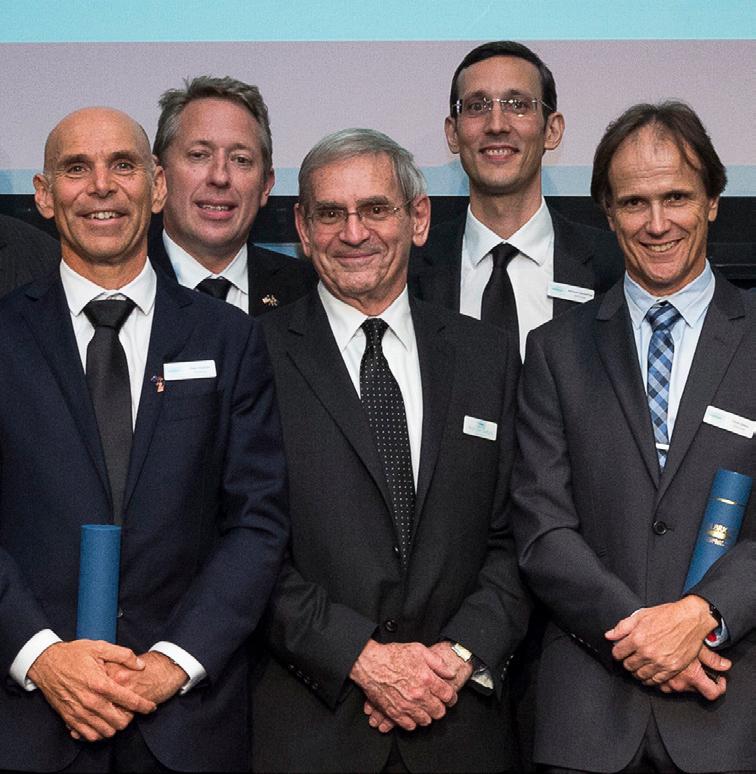
Admired for his intellect and mentorship, Professor Debats inspired countless students, combining rigorous scholarship with warmth and support. His sudden passing on May 22, 2024, marked the loss of a visionary whose contributions will long be remembered..
The Fulbright Future Scholarships - Improving the Lives, Health, and Wellbeing of Australians and Americans
Established through a landmark donation from The Kinghorn Foundation, the Fulbright Future Scholarships transformed the Australian Fulbright Program into one of the largest bilateral exchange programs in Australia, and indeed one of the largest single-country Fulbright programs in the world. Launched to advance innovative study and research programs for Australians, the scholarships provide unique opportunities for ambitious Australians and Americans to pursue projects that drive significant societal impact. They are the most extensive scholarships offered in the program’s history.
These scholarships are distinctive for their emphasis on visionary, impact-driven projects across disciplines. Awardees are selected for their potential to contribute to pressing global challenges, fostering cross-disciplinary solutions and enhancing bilateral relations between Australia and the United States.
Since their inception, the Fulbright Future Scholarships have supported groundbreaking work on issues including alzheimer's research, cancer immunology, cardiac genetics, quantum computing, artificial intelligence, and much more . By encouraging collaboration between top institutions and visionary individuals, the program accelerates progress and ensures the continued relevance of the Fulbright ethos.
Through these scholarships, recipients not only gain access to world-class research facilities and expertise but also join a vibrant network of alumni committed to fostering global cooperation and understanding. The Fulbright Future Scholarships exemplify the enduring legacy of the Fulbright Program, inspiring change and cultivating leaders in the 21st century.
n 2024, the Fulbright Future program celebrated an extraordinary achievement, exceeding 300 recipients since its inception. This milestone underscores the program’s profound impact on fostering innovation and addressing global challenges.

Champion for Indigenous youth educational outcomes heads to Arizona
Professor Maggie Walter was selected as the 2018 Fulbright Indigenous Scholar.
Distinguished Professor Maggie Walter, a Palawa woman from Tasmania, has dedicated her career to advancing Indigenous research, equity in education, and justice. An esteemed sociologist, she is a leading authority on Indigenous data sovereignty, focusing on empowering Indigenous communities through the ownership and interpretation of their data.
In 2018, Walter received a Fulbright Scholarship to conduct comparative research on Indigenous educational data and policy at Arizona State University. Her work highlighted educational disparities and established an academic network connecting Aboriginal, Torres Strait Islander, and Native American scholars to foster collaboration and advance Indigenous children’s educational outcomes.
Walter also serves as a Commissioner on the Yoorrook Justice Commission, contributing her expertise to Victoria's first truth-telling process aimed at addressing historical and ongoing injustices faced by First Peoples. Her work continues to shape policies that center Indigenous voices, striving for transformative justice and a stronger future for Indigenous communities.
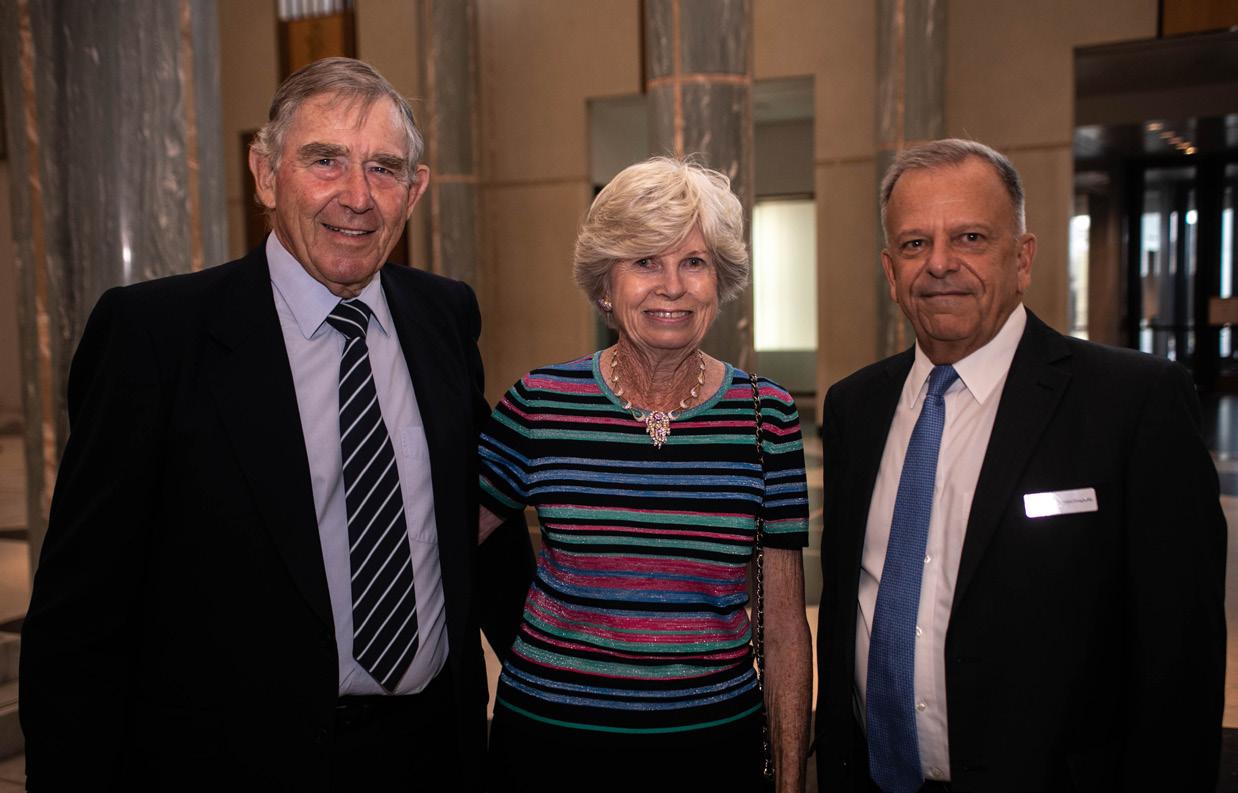

In 2023, the benefactor of The Kinghorn Foundation, and visionary behind the Fulbright Future Program, John Kinghorn, passed away suddenly, leaving behind a profound legacy in impactful philanthropy in scientific research and poverty alleviation.
In response to his passing, close to 150 Fulbright Future Scholars and alumni created and signed a publication celebrating the impact John Kinghorn had on their lives, communities, and fields of research.
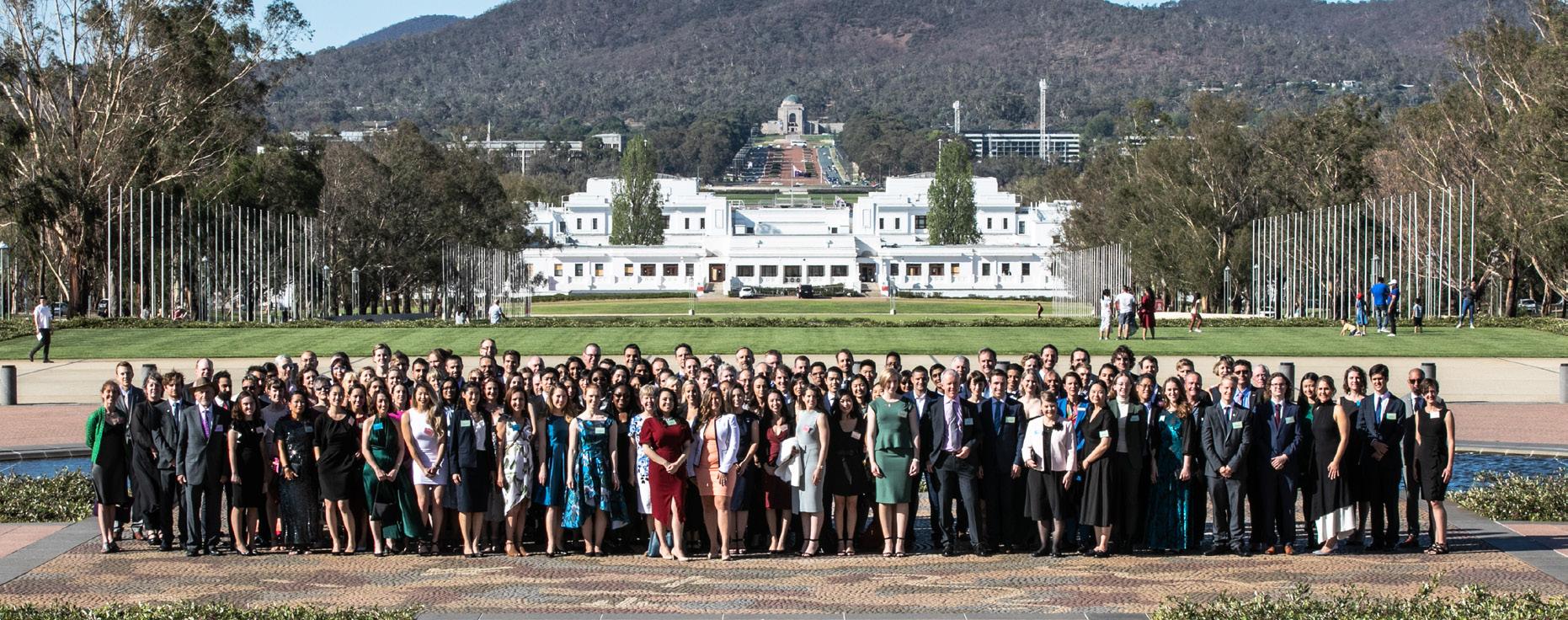
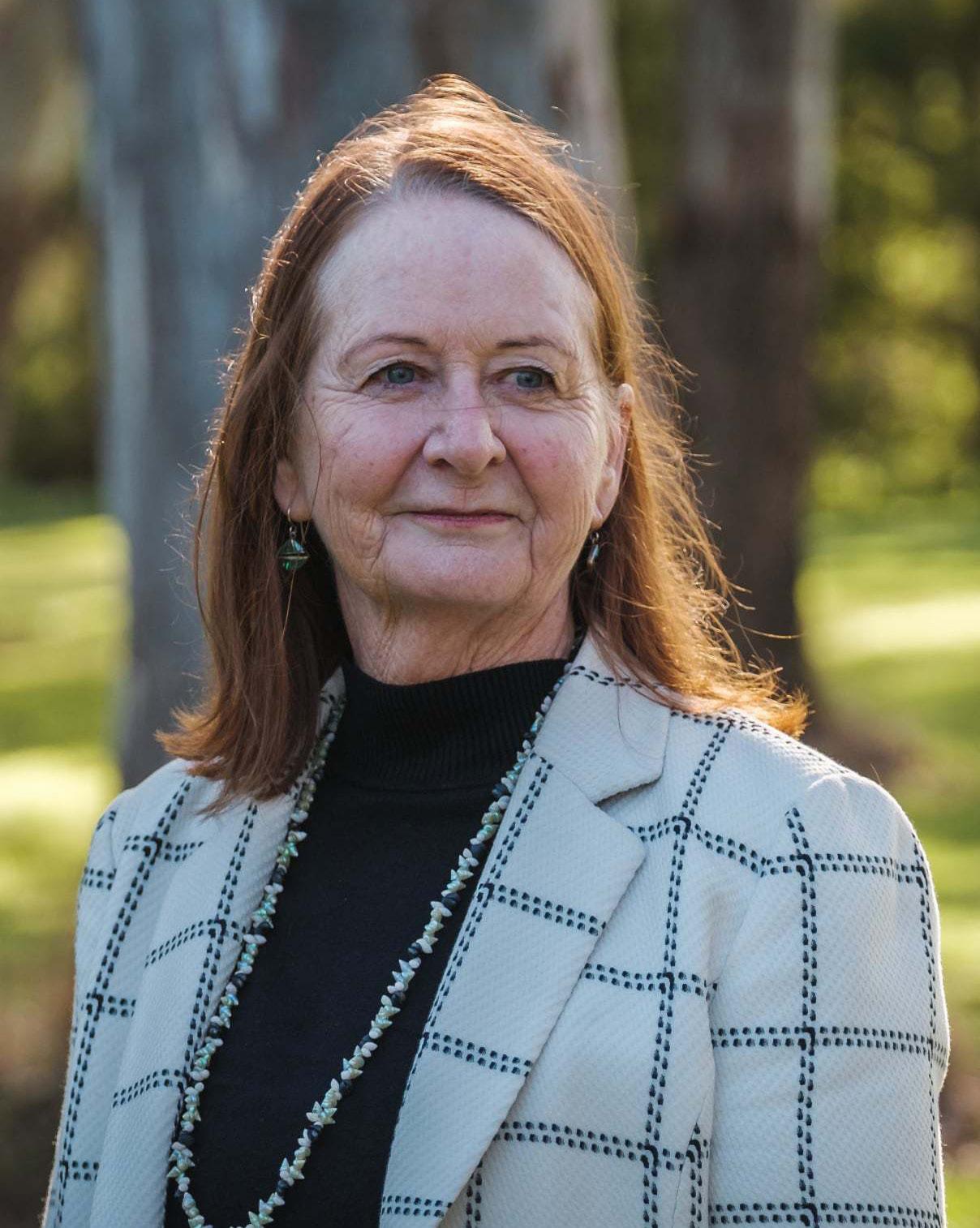
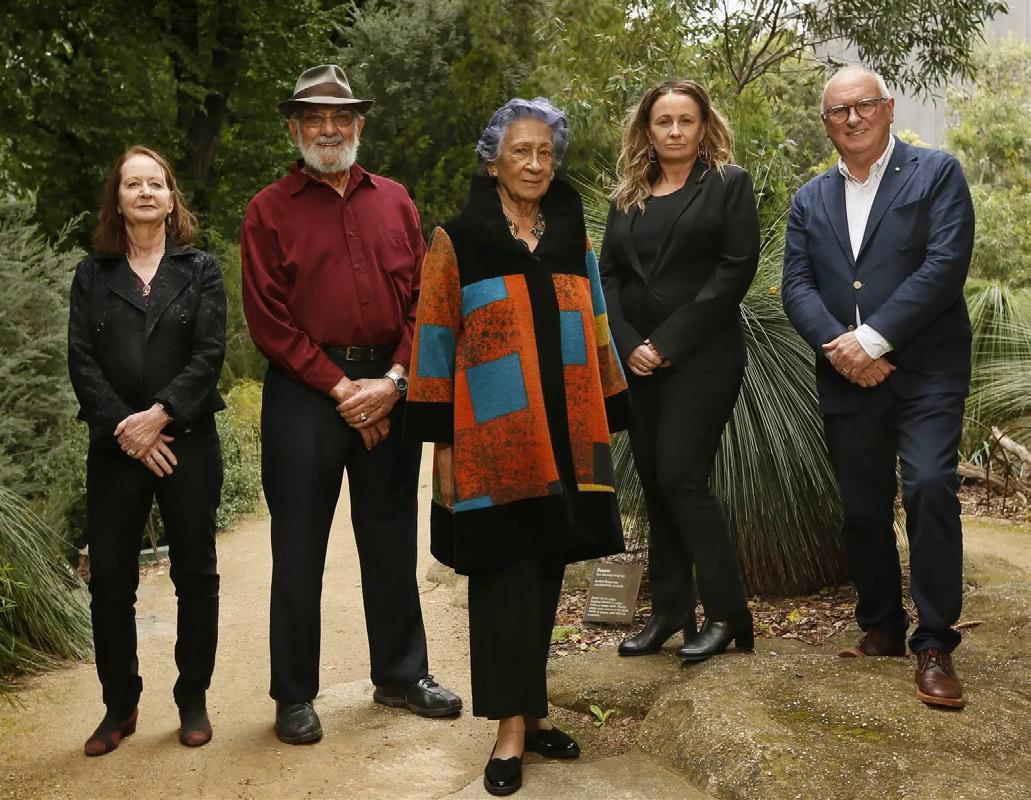
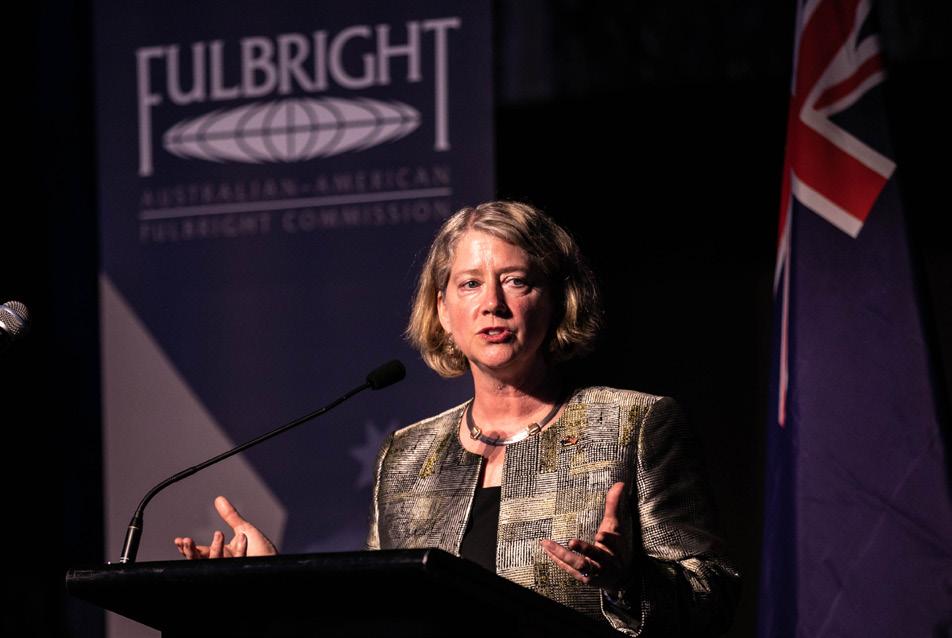
Largest ever Australian Fulbright cohort awarded in Canberra

In 2018 boost from the Fulbright Future program kicks in, with 90 high-achieving students, academics, researchers, and professionals from Australia and America were awarded Fulbright Scholarships at Parliament House, Canberra.
The ceremony featured remarks from Prime Minister Scott Morrison; Minister for Defence Christopher Pyne; and Deputy Assistant Secretary for Academic Programs in the U.S. Department of State’s Bureau of Educational and Cultural Affairs Caroline Casagrande, as well as a keynote speech from Astronaut Pamela Melroy.
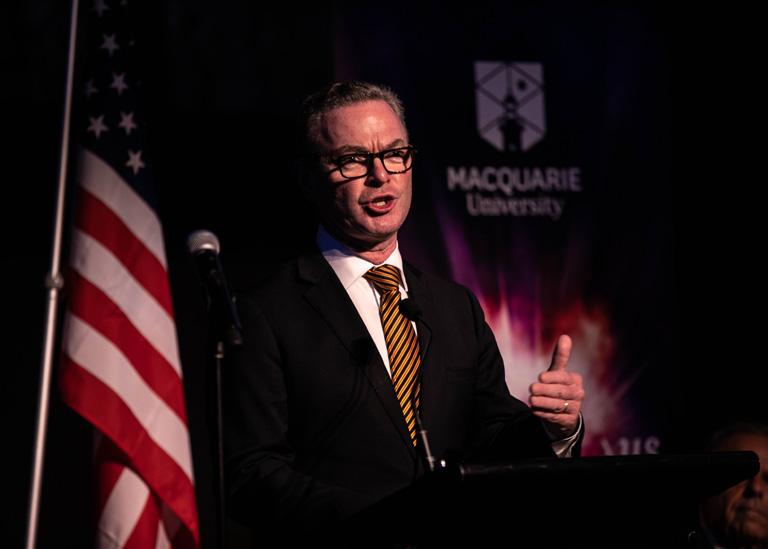
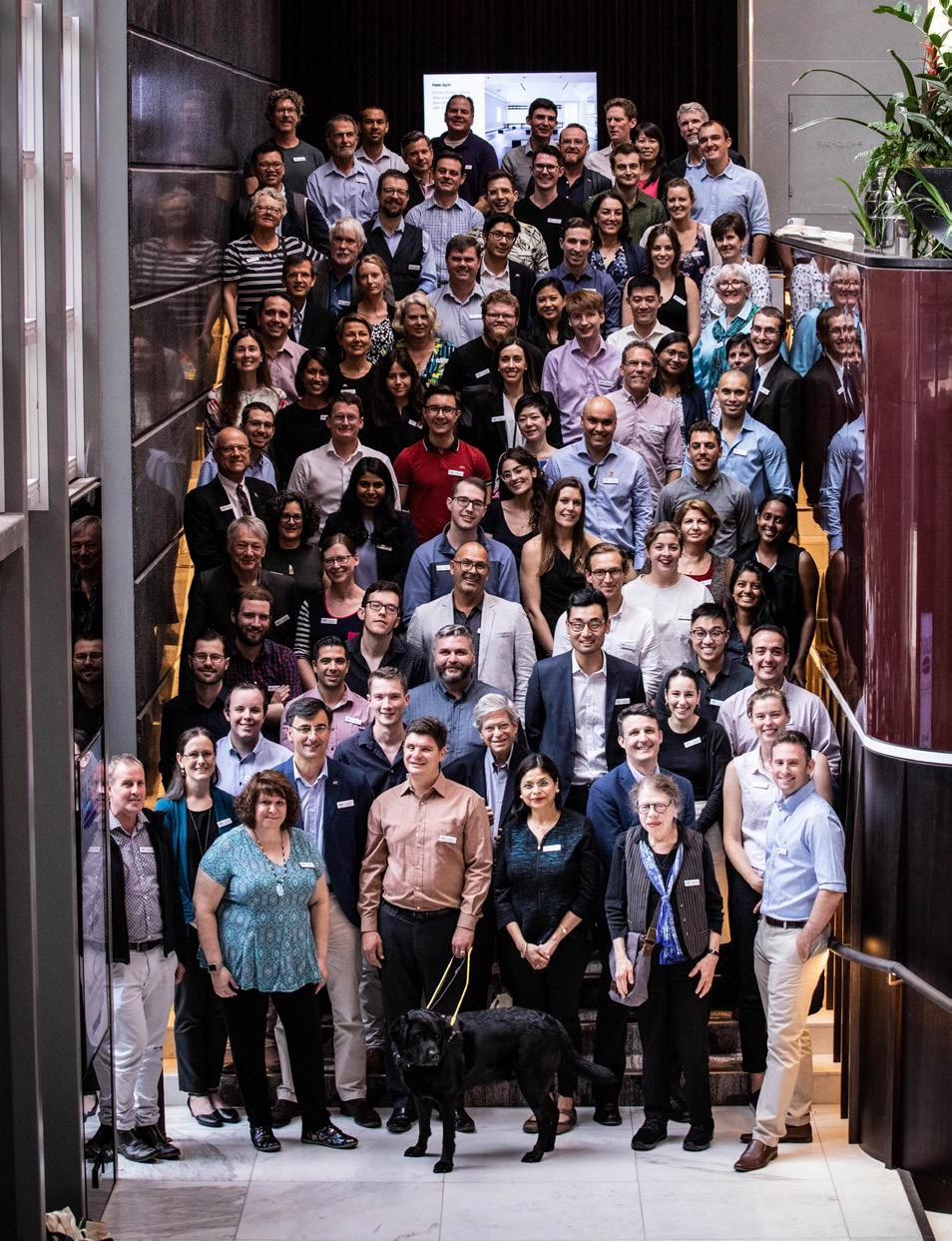


Fulbright Partnership with Florida Polytechnic University expands STEM collaboration
In late 2018, the Commission partnered with Florida Polytechnic University, creating two new scholarship opportunities for Australian graduate students and professors to engage in STEM research at the tech and engineering hub in Lakeland, FL. This collaboration highlighted Florida Poly’s commitment to STEM excellence and international academic partnerships. Formalised in Canberra, the partnership fosters knowledgesharing and innovation in science, technology, engineering, and math. Fulbright Executive Director Thomas Dougherty praised the agreement for enhancing cultural and academic connections, aligning with Fulbright’s mission of promoting global goodwill through education and research. This initiative has further enriched Florida Poly’s reputation as a hub for global collaboration.
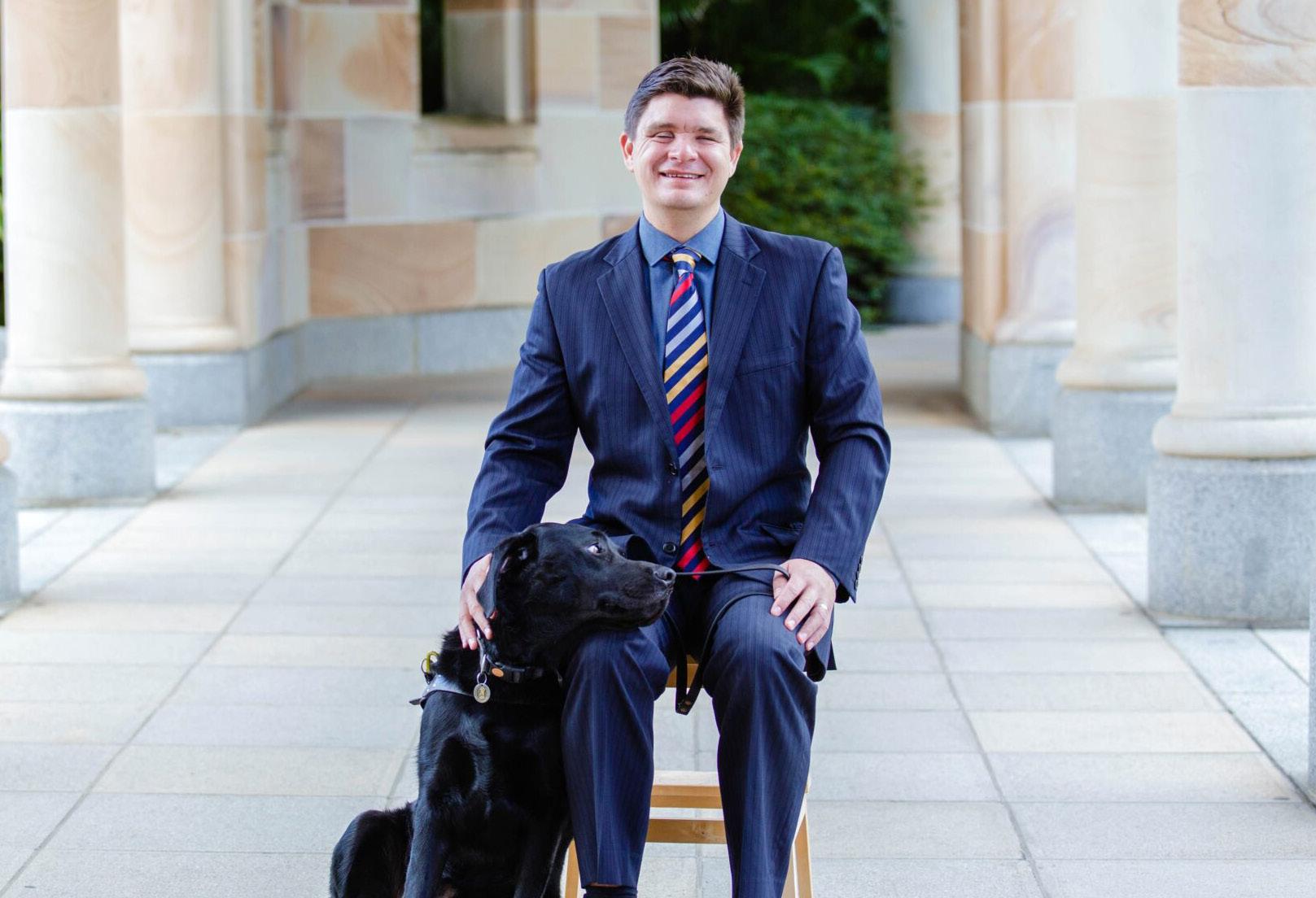
OAM, a globally celebrated disability advocate, academic, and former Paralympian, has transformed how disability inclusion is understood and implemented. One of the first Fulbright Future Scholars, he researched accessibility in higher education and employment at Harvard and Syracuse universities, solidifying his role as a thought leader in disability rights. A scholar at the University of Queensland and academic fellow at the Harvard Law School Project on Disability, Harpur's work bridges academia and advocacy.
In 2022, he was named Blind Australian of the Year, a testament to his relentless pursuit of equity and justice. As a member of the Universities Accord Ministerial Reference Group, Harpur represents disability perspectives at the highest policy levels, influencing systemic change.
Harpur's resilience and achievements inspire individuals worldwide. His dedication has earned him numerous accolades, underscoring his impact on legal frameworks and public policy, ensuring a more inclusive and equitable society for all.

AUSMIN brings new Fulbright Awards
Australian Minister for Foreign Affairs and Minister for Women Marise Payne, Australian Minister for Defence Linda Reynolds, Secretary of State Michael Pompeo, and Secretary of Defense Mark Esper met for the Australia–United States Ministerial Consultations (AUSMIN) in Sydney on 4 August 2019. The Ministers and Secretaries set a path forward for the Australia-U.S. alliance to build a secure, prosperous future. The Australian and U.S. governments announced a set of four new Fulbright Scholarships open to professionals from both countries. The new Fulbright Professional Scholarships in IndoPacific Studies aim at increasing academic analysis and thought on the Indo-Pacific, a region of priority for the Australia-U.S. alliance. Beneficiaries will advance scholarship in fields including strategic studies, international relations, security, good governance and economic/infrastructure development policy on a country, sub-region or theme within the Indo-Pacific region.
"You don't need sight to have a vision. - Professor Paul Harpur OAM "
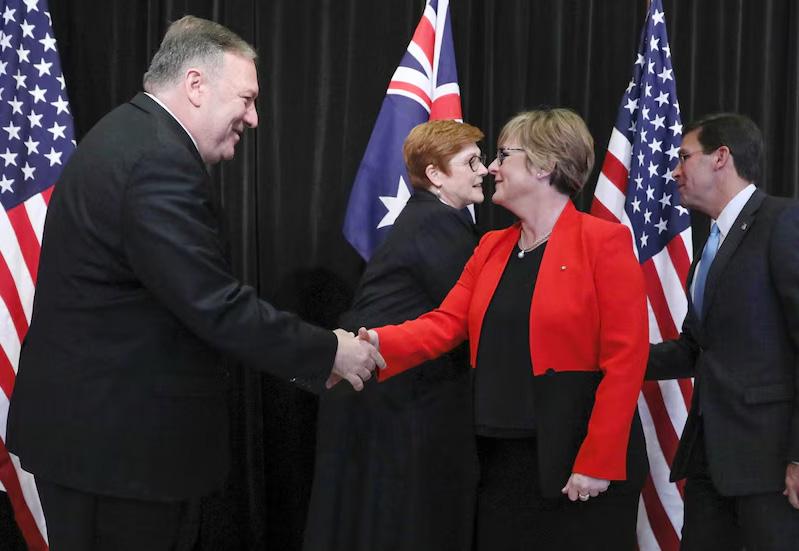
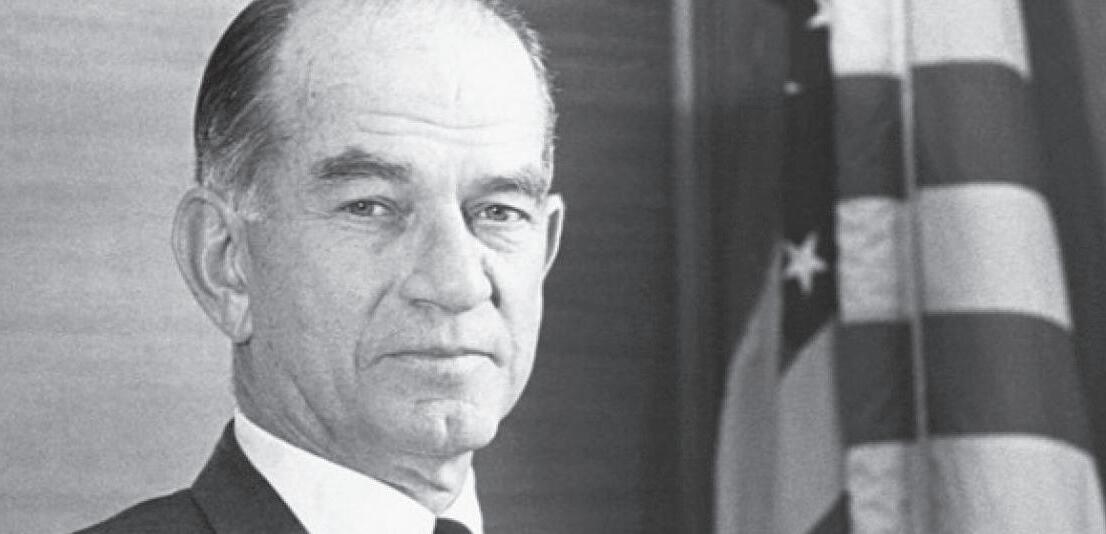
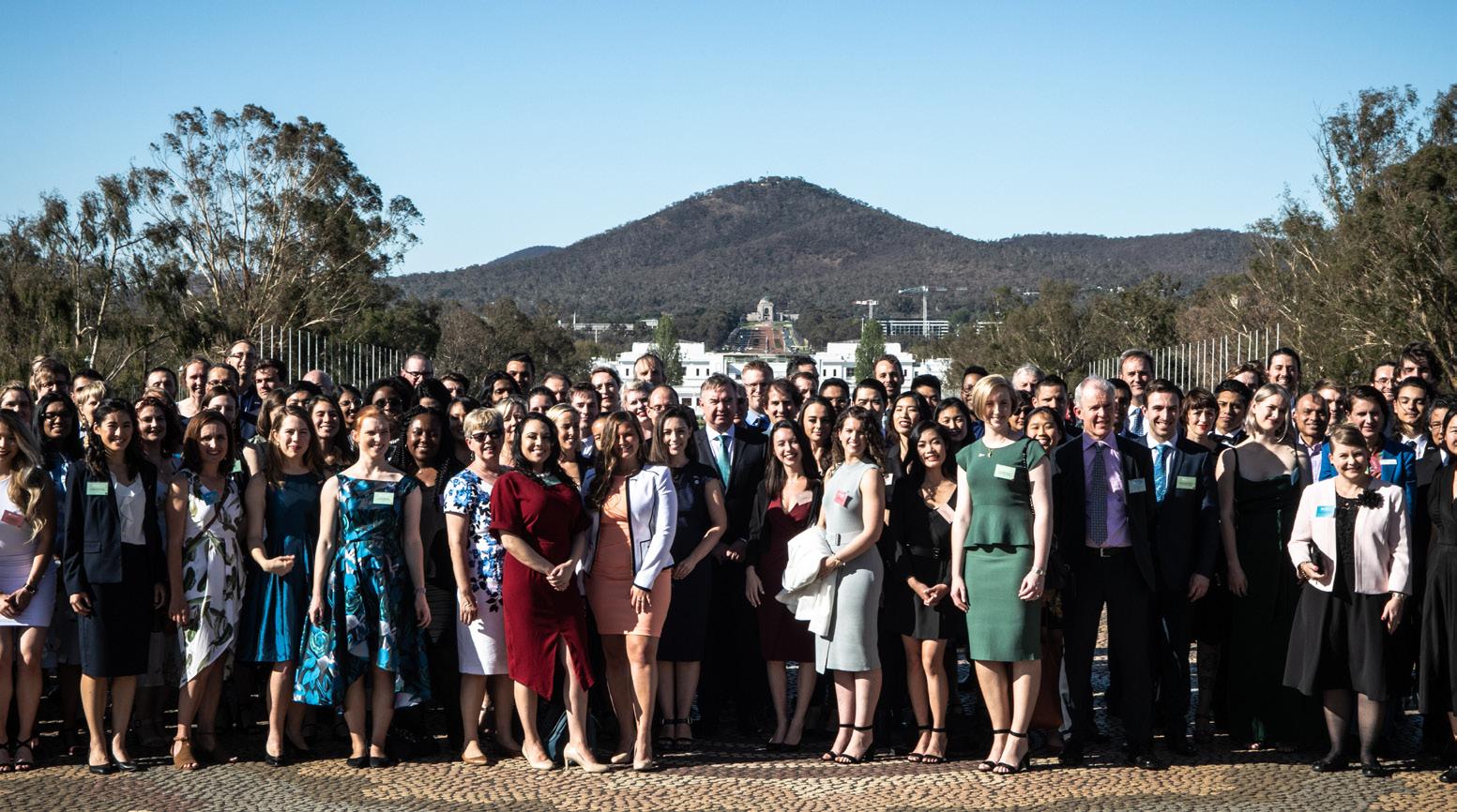
Fulbright breaks cohort size record again
2020 once again saw the largest Fulbright cohort in Australian history, with 114 Australians and Americans converging on Australia's capital to be formally inducted into the Fulbright Program in February.
The Kinghorn Foundation, impressed by the impact of the previous year's awardees, extended their support to include U.S. awardees in Australia, thus the cohort also featured, for the first time, a number of U.S. Fulbright Future Scholars.
During the event, rumours of a deadly, highly-contagious virus began to circulate, and before week's end, the world suddenly plunged into COVID-19 lockdown. Many Fulbright Scholars were repatriated, but a number stayed on to lend their expertise to the pandemic and associated public health initiatives.

70th Anniversary, and a brand refresh for Fulbright
2019 marked 70 years since the Fulbright Treaty was signed in Canberra, and the Commission celebrated with a number of events, as well as a brand refresh. The official name of the administering body was also changed to Fulbright Australia to bring the program in line with other Fulbright offices around the world.
The new Fulbright brand identity aimed at better encapsulating the program's impact: creating connections in a complex and changing world
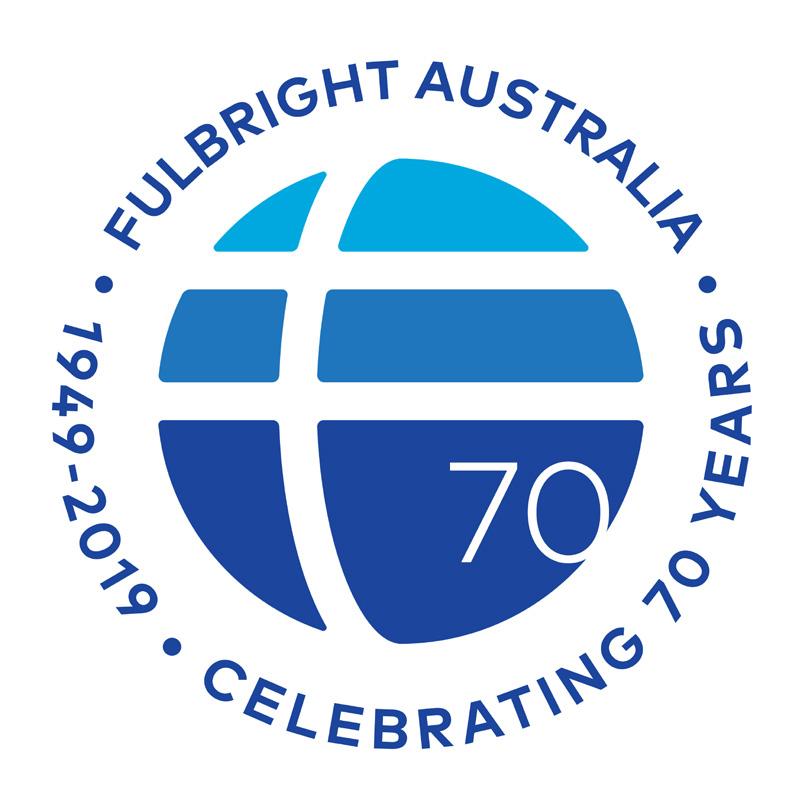
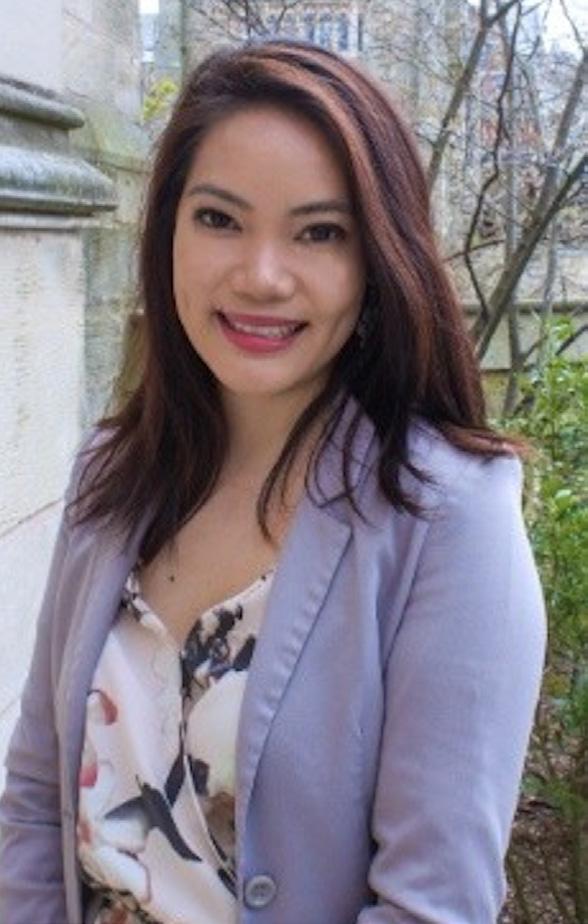
“I decided that when I looked back in 20 years, I’d be glad I delayed going to medical school for a year in order to fight this deadly pandemic.
- Allison Cheung "
Allison Cheung, a 2020 U.S. Fulbright Future Scholar, demonstrated remarkable adaptability and dedication during the COVID-19 pandemic. With a Master’s in Public Health and a Bachelor of Science in Molecular Biology from Yale, Cheung arrived in Australia in 2019 to study veterinary epidemiology at the University of Melbourne. Her work focused on diseases transmitted from animals to humans, a prescient choice given the global pandemic that soon unfolded.
When COVID-19 struck, Cheung transitioned from her Fulbright research to a critical role in Victoria's Department of Health. Leveraging her expertise in epidemiology and data analysis, she contributed to tracking and managing cases, working tirelessly as part of the state’s surveillance and intelligence team.
Cheung’s earlier experiences, including an internship with the World Health Organization during an Ebola outbreak, equipped her with the skills to respond effectively to global health emergencies. Her commitment exemplified the Fulbright spirit, as she applied her academic knowledge to serve both her host country and the global community during a crisis.
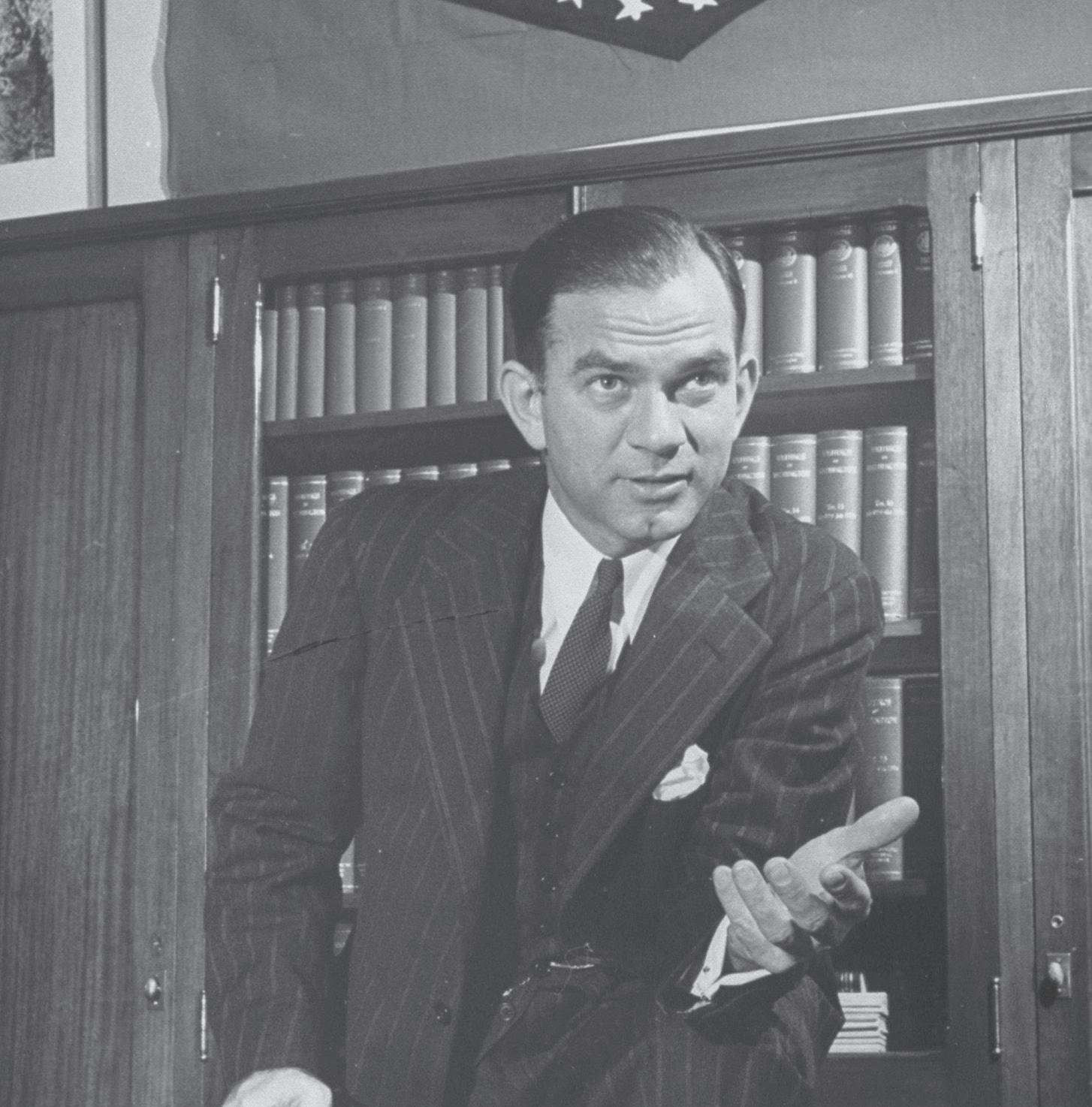
The Regional Universities Network partners with Fulbright
In June 2020, the Regional Universities Network of Australia (RUN) announced a partnership with Fulbright Australia to offer a Fulbright Scholar Award for U.S. academics to conduct regionallyrelevant research at RUN universities. The initiative, led by then-RUN Chair Professor Helen Bartlett, was the first global Fulbright partnership targeting regional issues, funding two scholars annually for four years.
Scholars focused on themes like agriculture, health, and regional industries, collaborating across RUN’s seven universities. The inaugural recipients included Dr. Levon T. Esters and Professor Courtney Meyers.
The award continues to this day, having created numerous impactful bilateral collaborations.


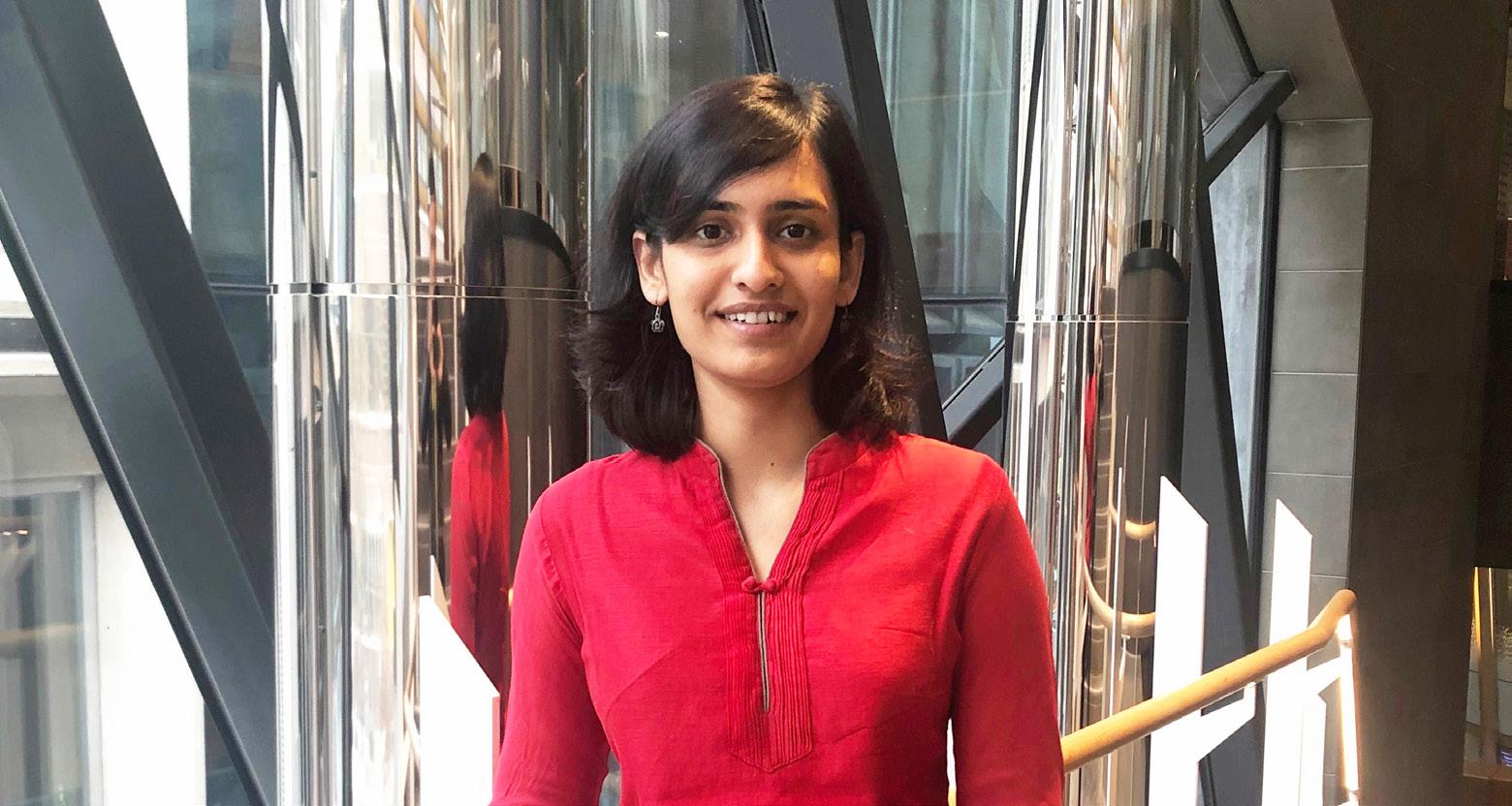
, a researcher at RMIT University, has made significant strides in material science and nanotechnology through her Fulbright projects. At MIT, she contributed to the development of optically driven emptystate devices, combining photonics and nanofabrication techniques. Her research, presented at an Institute of Electrical and Electronics Engineers conference, holds substantial potential for ongoing collaborations.
At NASA and Boise State University, she worked on zero-gravity manufacturing processes for electronics in space, focusing on additive manufacturing and device engineering. Her efforts have led to journal publications and a Malcolm Moore Industry Grant to expand upon her work.
Fulbright sees unprecedented uptake from exceptional Women in STEM
Driven bythe growing reputation of the Fulbright Future Scholarships, the Program saw a =n influx of applications from incredibly talented women in stem from myriad sectors including bioastronautics, materials science and nanotechnology.

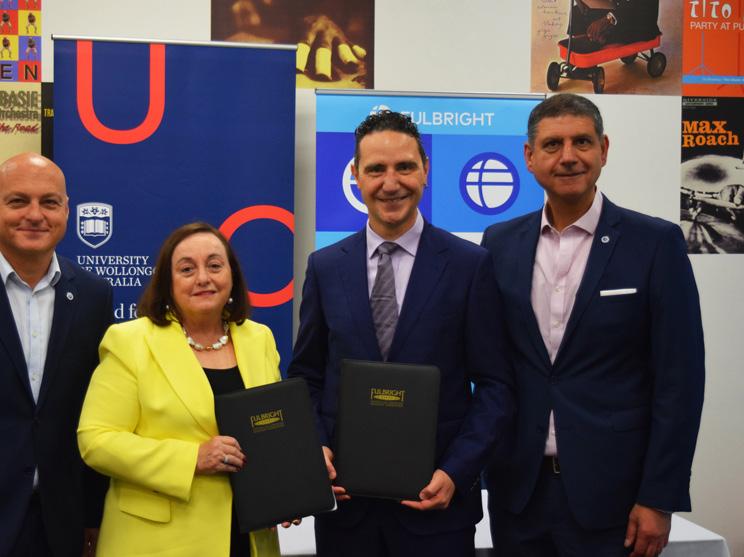
In November 2021, the University of Wollongong (UOW) signed a five-year agreement with the AustralianAmerican Fulbright Commission to host two U.S. Fulbright Scholars annually. The partnership aimed to foster research collaboration in areas critical to UOW's academic priorities.
UOW Vice-Chancellor, Professor Patricia Davidson, vaunted the program's potential to strengthen ties between Australia and the U.S., showcasing UOW’s research and teaching excellence on a global stage. The agreement was celebrated for its alignment with strategic bilateral initiatives like AUKUS.
The first recipient, Professor Amelia Katanski, travelled to Wollongong in 2024.
won a 2022 Fulbright Future Scholarship to complete Master’s in Aerospace Engineering at Texas A&M University. Her focus is in bioastronautics, aiming to advance human space exploration. Formerly a Space Technology Officer at the Australian Space Agency, Zaman led the Applied Space Medicine and Life Sciences roadmap. With diverse achievements—competing in SpaceX’s Hyperloop Pod Competition, and researching Martian rocket aerodynamics— she exemplifies innovation in aerospace.
Winner of the 2020 Western Sydney Young Woman of the Year award, Zaman aspires to advance human space exploration and Australia's space industry.



Katanski is a distinguished Professor of English and Critical Ethnic Studies at Kalamazoo College, dedicated to fostering cultural awareness and equity in education. As a Fulbright Scholar, her project addressed the critical need to mitigate cultural harm to Indigenous Australian students and faculty. She developed a curriculum for U.S. students preparing to study abroad in Australia, equipping them to engage respectfully with Indigenous histories, knowledge systems, and communities. Emphasizing "Country as teacher," her work promoted humility, openness, and reciprocal learning, paving the way for more inclusive and transformative global education experiences.
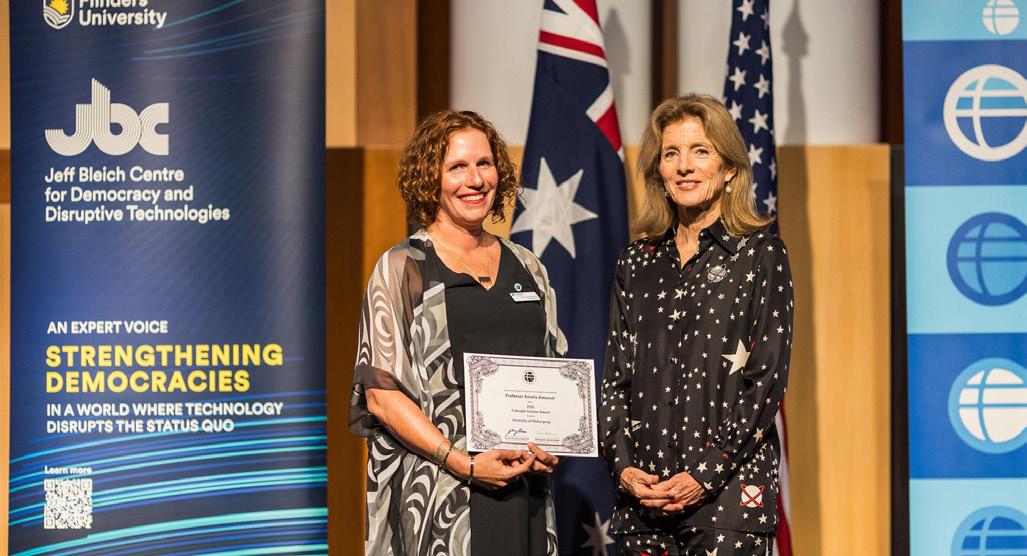
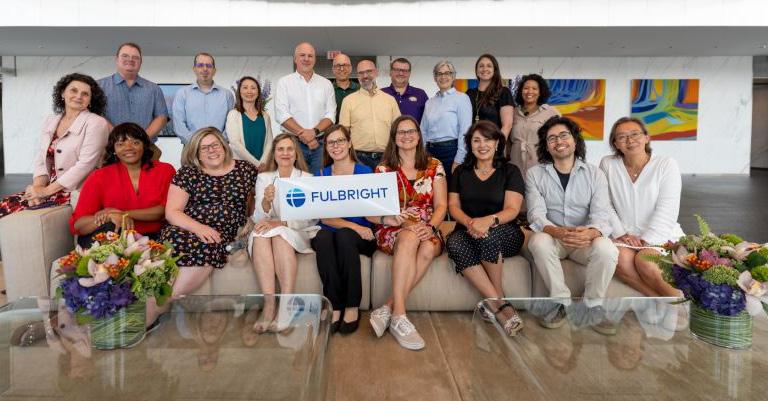
University of Adelaide Launches Fulbright Distinguished Chair in Cyber Influence
In January 2023, the University of Adelaide established the Fulbright Distinguished Chair in Cyber Information Influence, a prestigious position aimed at attracting exceptional U.S. researchers specializing in cybermediated information influence. This Chair offers a unique opportunity for scholars to collaborate on transdisciplinary research with experts at the University of Adelaide over a 5-6 month period. Recipients will engage with faculty, staff, and students through lectures and seminars, exploring longterm collaborations across fields such as international security, cyber-AI, and cognitive psychology. The role promotes global research partnerships while advancing critical studies in cybersecurity and information dynamics.
The inaugural recipient, Associate Director of the Center for Information Security Research and Education at the University of Houston', Professor Chris Bronk, arrives in Adelaide in early 2025.
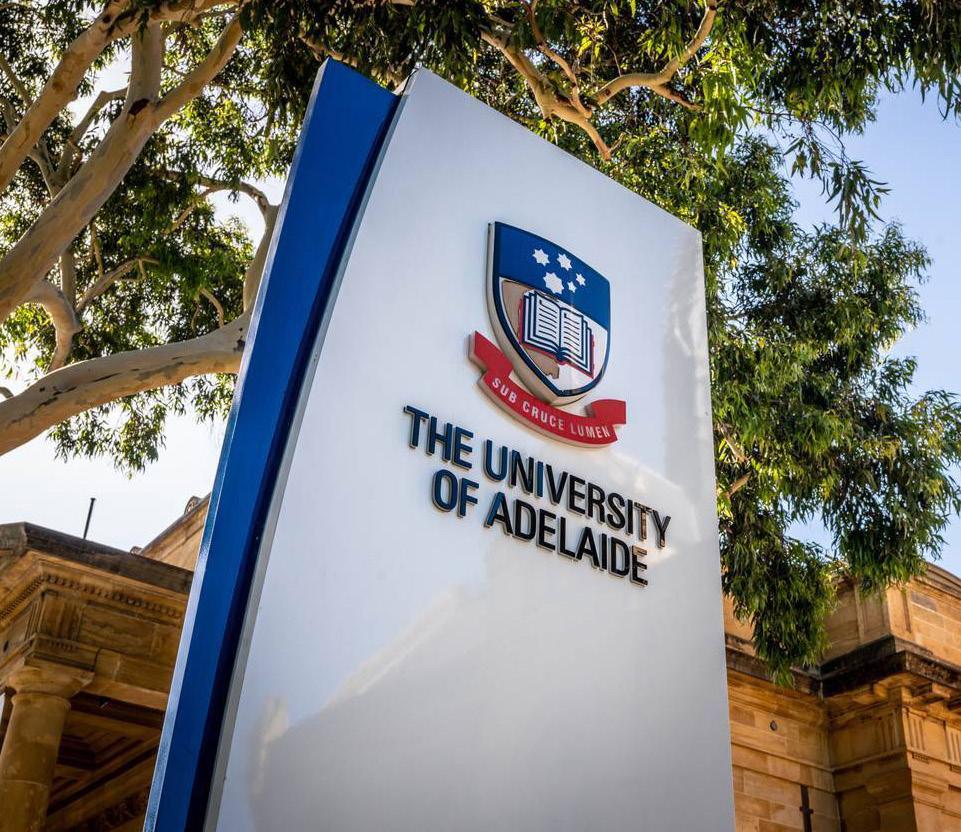
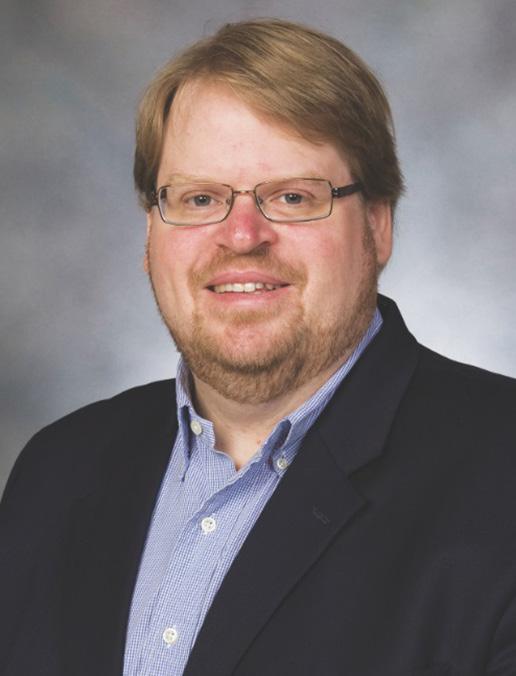

Champion for Indigenous youth justice heads to Penn Carey
Vanessa Turnbull-Roberts was selected as the 2023 Fulbright Indigenous Scholar.
Vanessa Turnbull-Roberts is a proud Bundjalung Widubul-Wiabul woman community leader, the inaugural Aboriginal and Torres Strait Islander Children and Young People Commissioner. Her 2023 Fulbright research at the University of Pennsylvania focused on developing new, revolutionary ways of changing the child protection system in Australia.. She has worked on significant policy reform initiatives aimed at amplifying Indigenous voices in education, youth leadership, and governance. In 2024, she was named Marie Claire’s Change-Maker of the Year
With her passion for social justice, Turnbull-Roberts has dedicated her career to advocating for the rights and futures of Indigenous young people. Her work continues to inspire both national and global conversations on Indigenous rights and social change.
Dr. Diane Fatkin used her Fulbright Scholarship to undertake a sabbatical study at the Seidman Laboratory at Harvard Medical School. There, she gained valuable experience in innovative techniques for studying heart function at the molecular level. This research focused on the genetic causes of heart disease, offering new insights into treatment and prevention.
Dr. Nicole Bart’s Fulbright project took her to Harvard Medical School, where she advanced her expertise in cardiac genetics, aiming to better understand genetic disorders that affect heart health.
Dr. Sara Hungerford’s research at Tufts University focused on improving outcomes for patients with valvular heart disease who were previously considered inoperable. Her work aimed to reduce symptoms of heart failure, providing hope for more Australians to live symptomfree. These groundbreaking projects contributed to significant advancements in cardiovascular medicine.
15 November, 2023

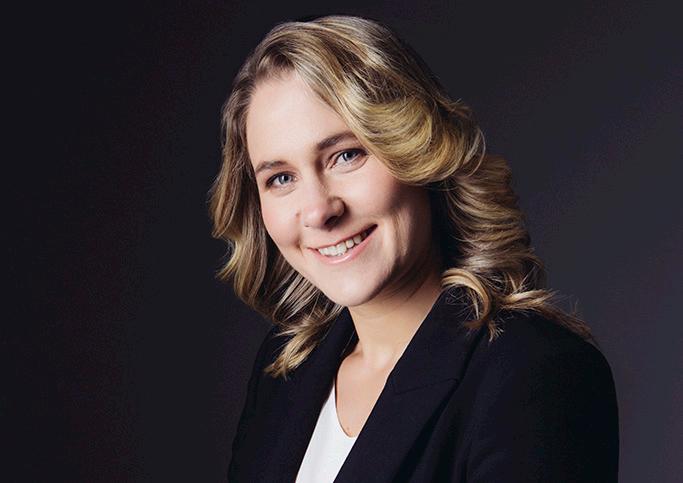
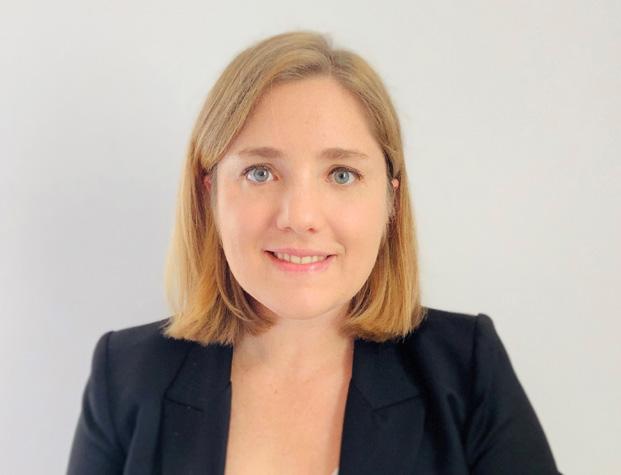
3 leading cardiologists finally make it to the U.S. after COVID issues
Australian cadiologists, Diane Fatkin, Nicole Bart, and Sara Hungerford finally depart on their Fulbright Future Scholarships after 2 years of COVID-related roadblocks.

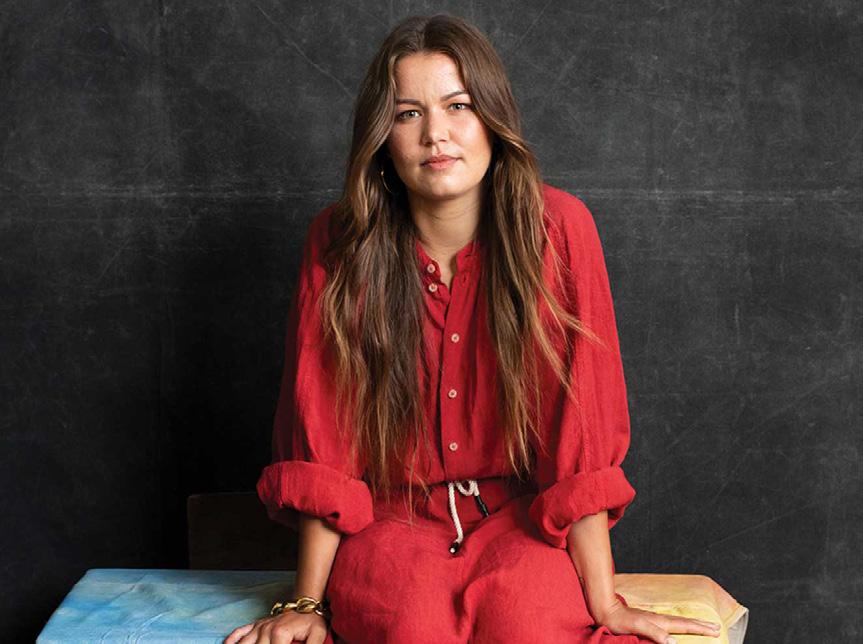
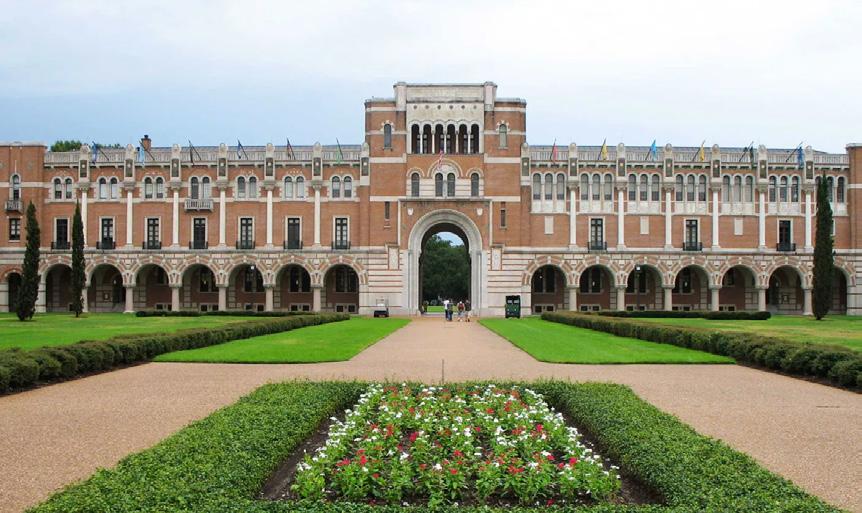
February, 2024
New Fulbright opportunities for Asutralians at Rice University
In early 2024, Fulbright announced two exciting new opportunities for Australian Master's students and Postdoctoral researchers. In partnership with Rice University, these scholarships enable recipients to undertake study or research programs at this esteemed Houston institution.
The collaboration focuses on fostering academic exchange and innovation across diverse fields of study. Co-funded by Rice University, the initiative aims to strengthen educational ties between Australia and the United States, providing scholars with the resources and networks to make a meaningful impact in a variety of fields.
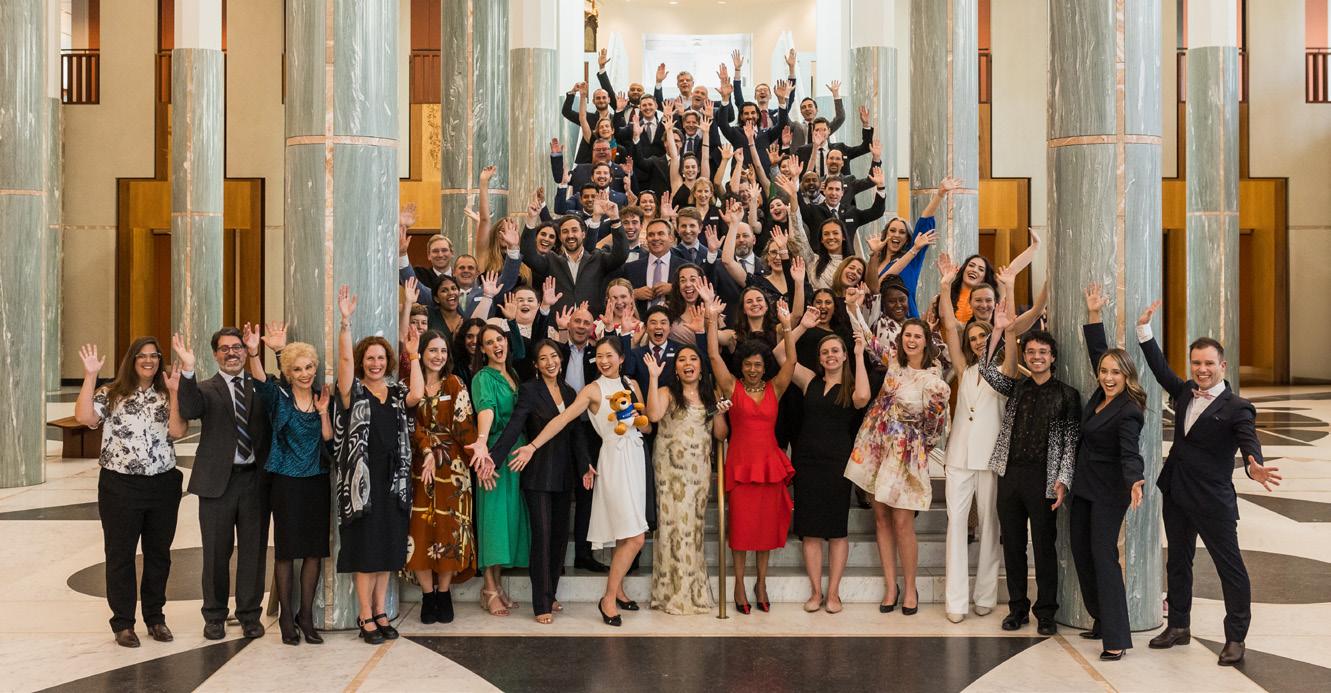
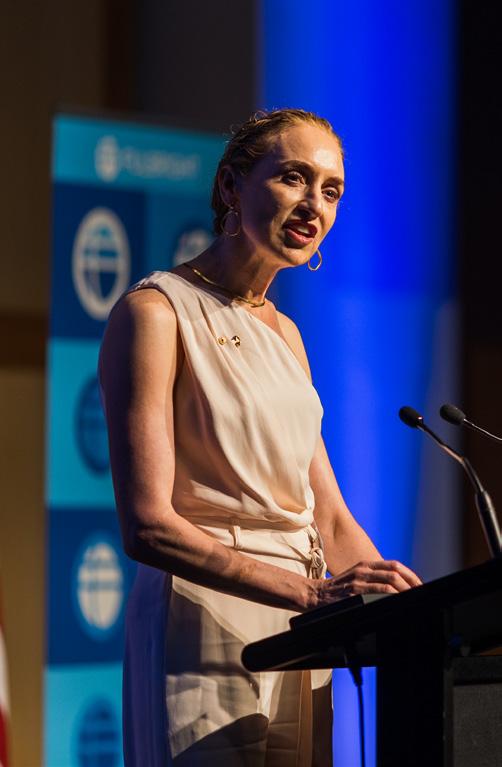

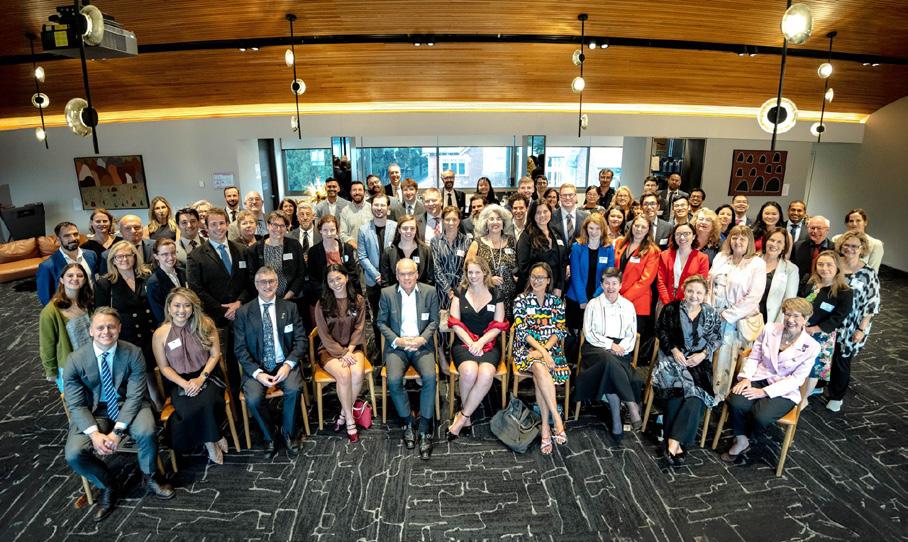
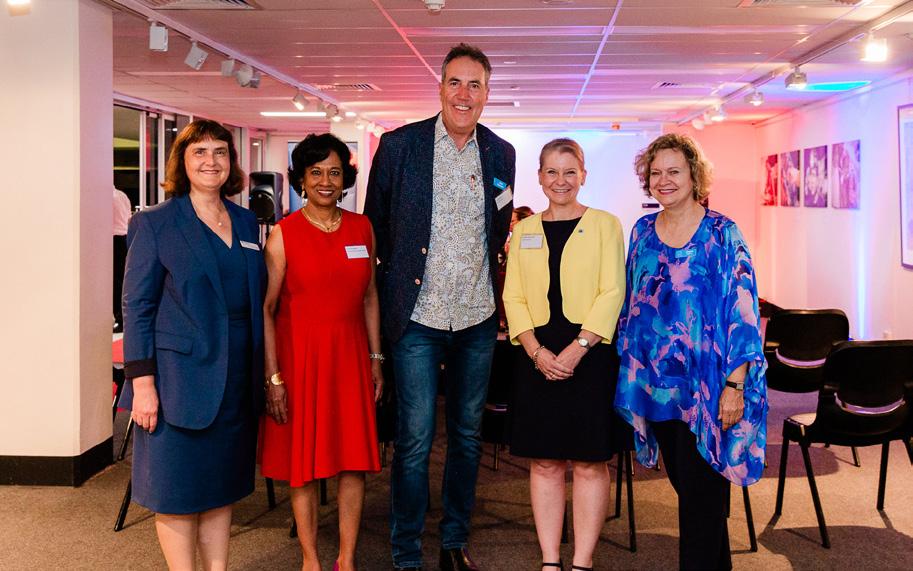
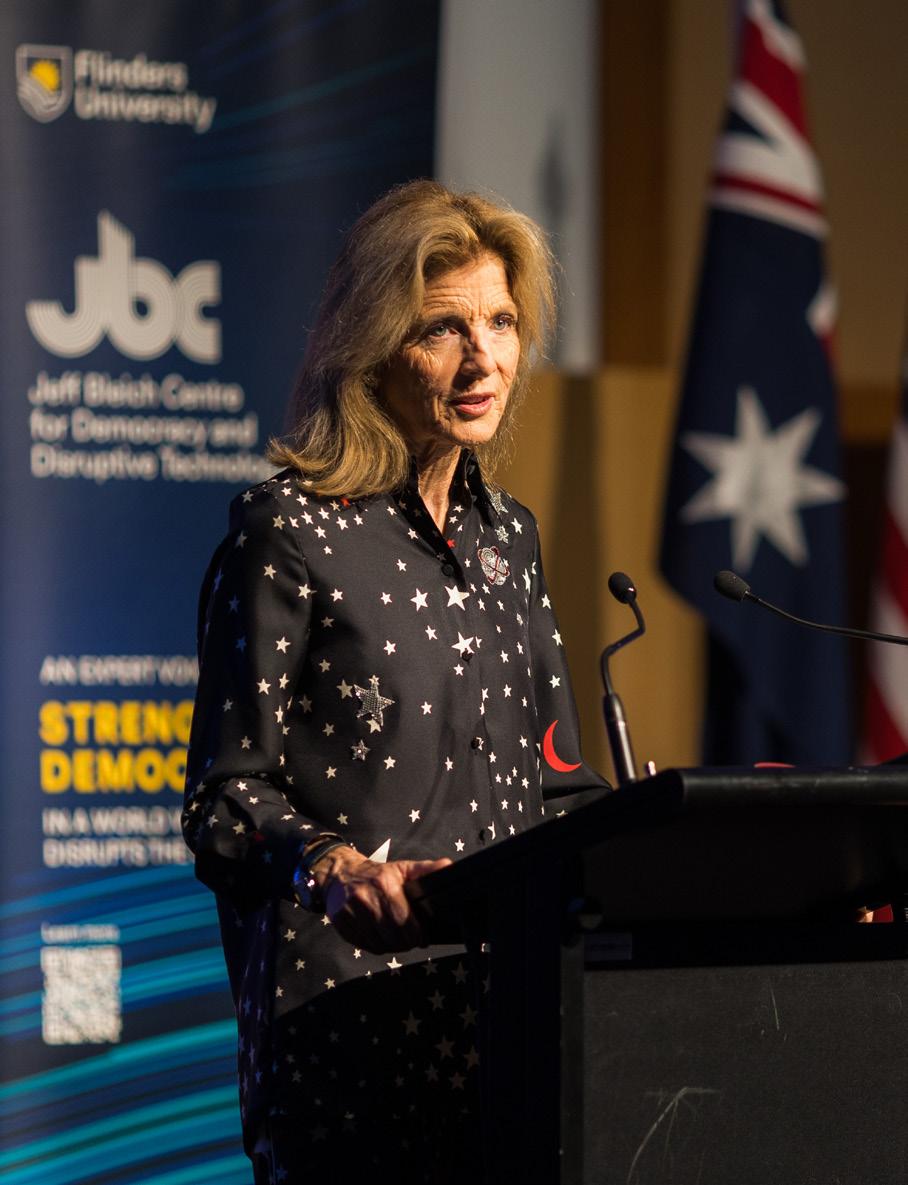

The 75th anniversary of the Fulbright Program in Australia marks thee-quarters-of-a-century of enriching academic and cultural exchange between Australia and the United States. Since its inception in 1949, Fulbright has fostered collaboration in research, education, and global policy, shaping the careers of over 6,000 scholars.
Fulbright Australia celebrated with events across Australia and the U.S. aimed at honouring the vision of its founders and celebrating the ongoing contributions of Fulbright alumni.
The program’s legacy continues to inspire mutual understanding and drive innovation, paving the way for future generations of scholars to make lasting global impacts.
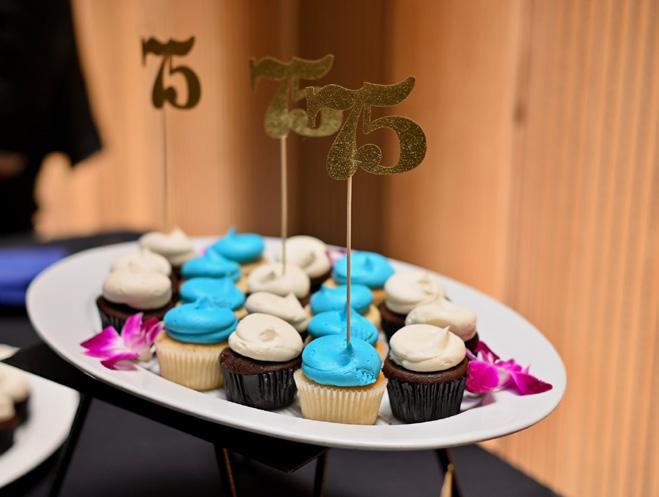
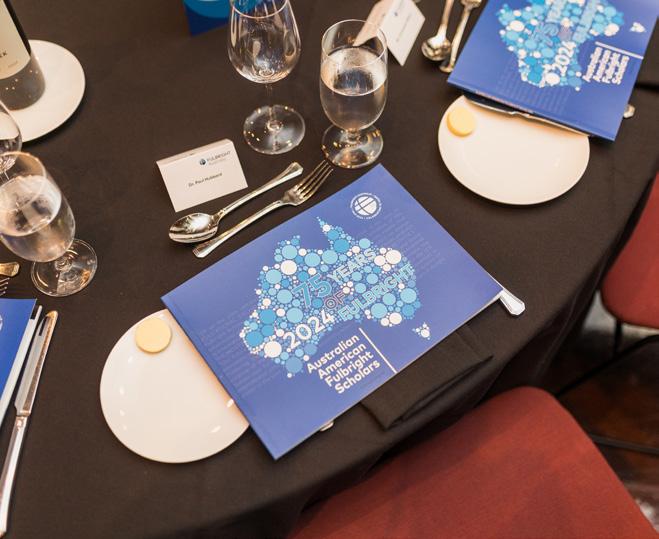
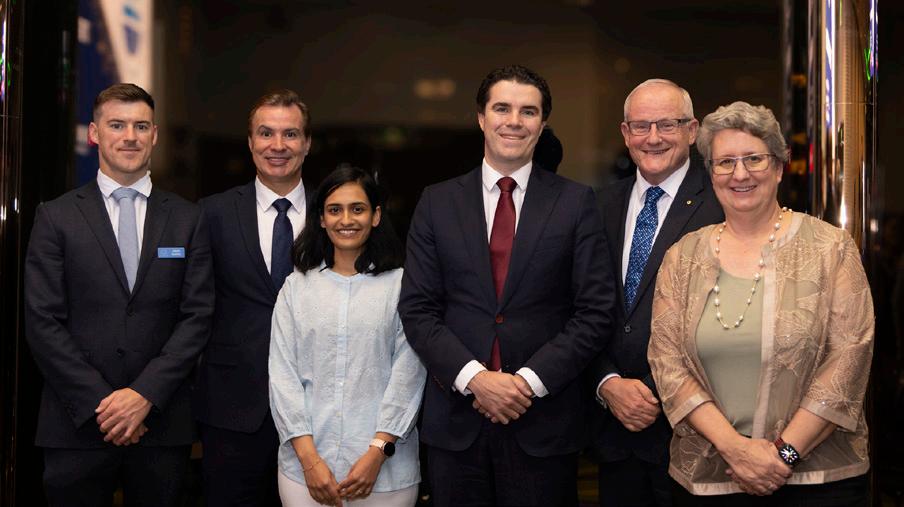
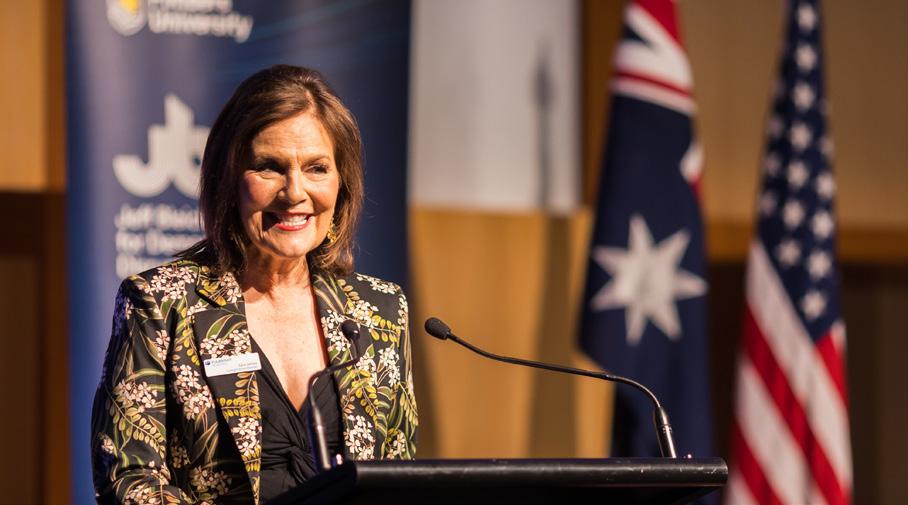
As we reflect on 75 years of the Fulbright Program in Australia, the enduring legacy of this partnership is clear. From its early days of academic exchange to its present-day influence across disciplines such as technology, health, and policy, the Fulbright Program has continually fostered innovation and cross-cultural collaboration.
The achievements of its scholars— both past and present—are a testament to the power of international exchange in shaping the global landscape. Looking ahead, the program will continue to serve as a platform for academic excellence, empowering future leaders and contributing to lasting solutions on both sides of the Pacific.
The next chapter promises even greater opportunities for collaboration and discovery.

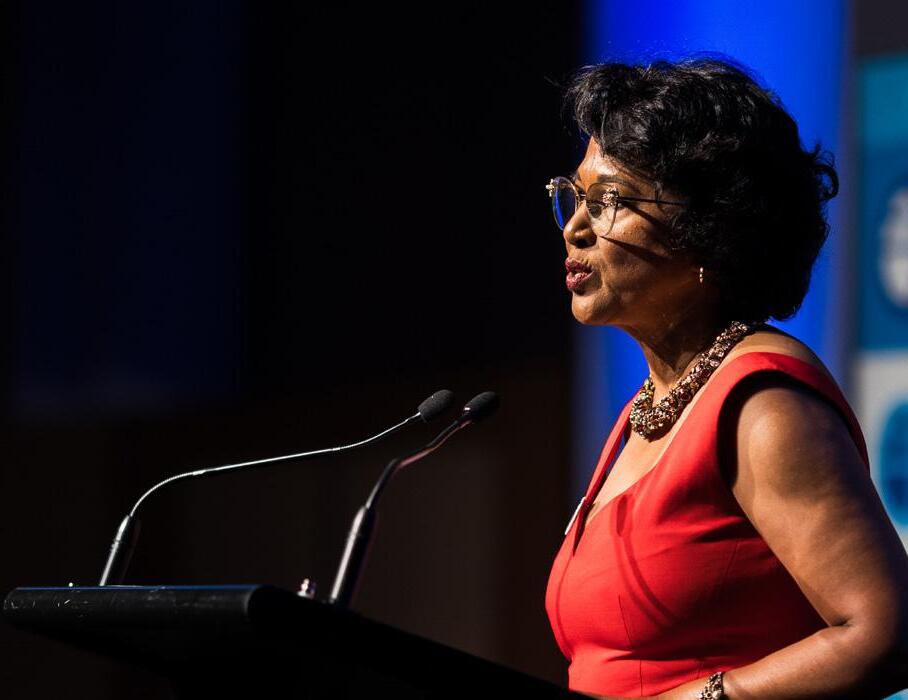
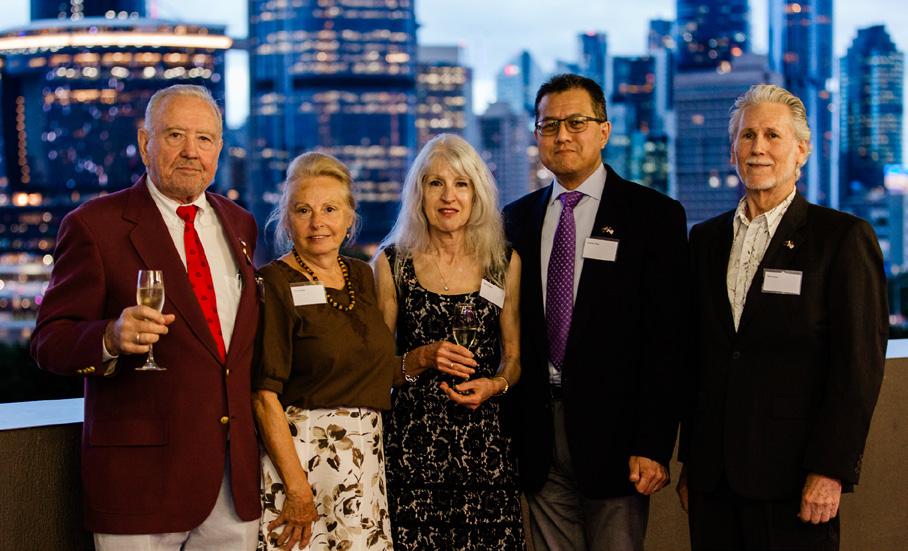



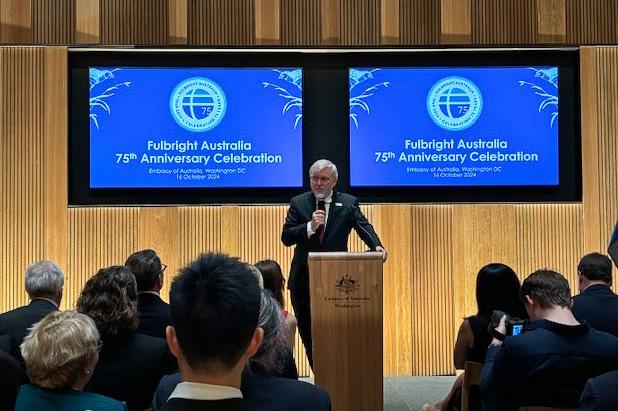
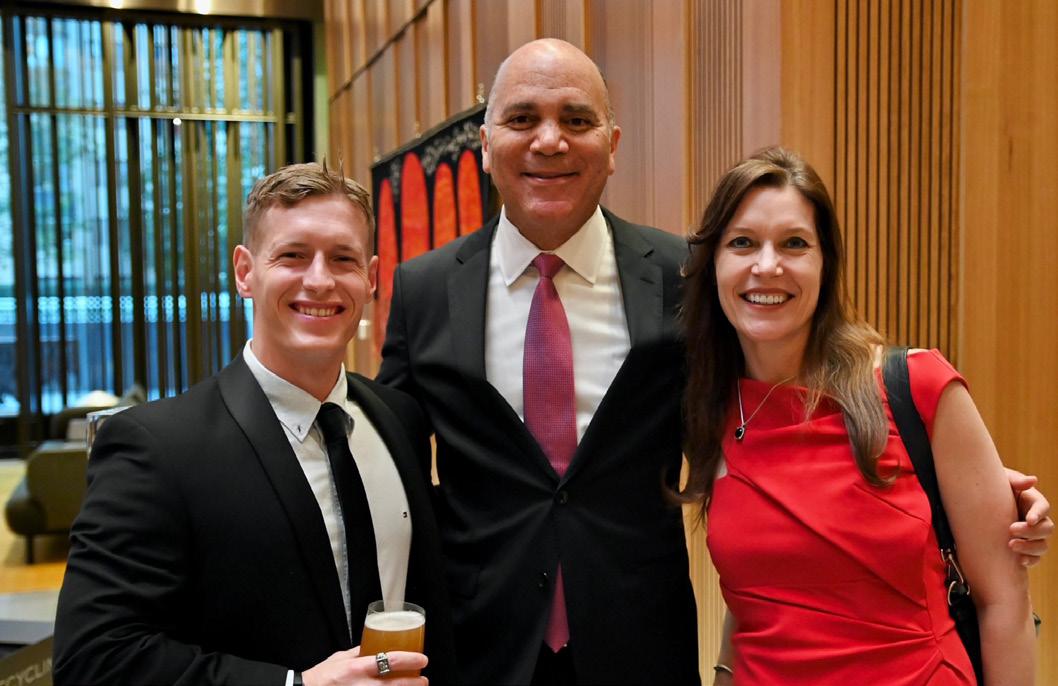
Dr Stephen Bacchi
Dr Thomas Kelemen
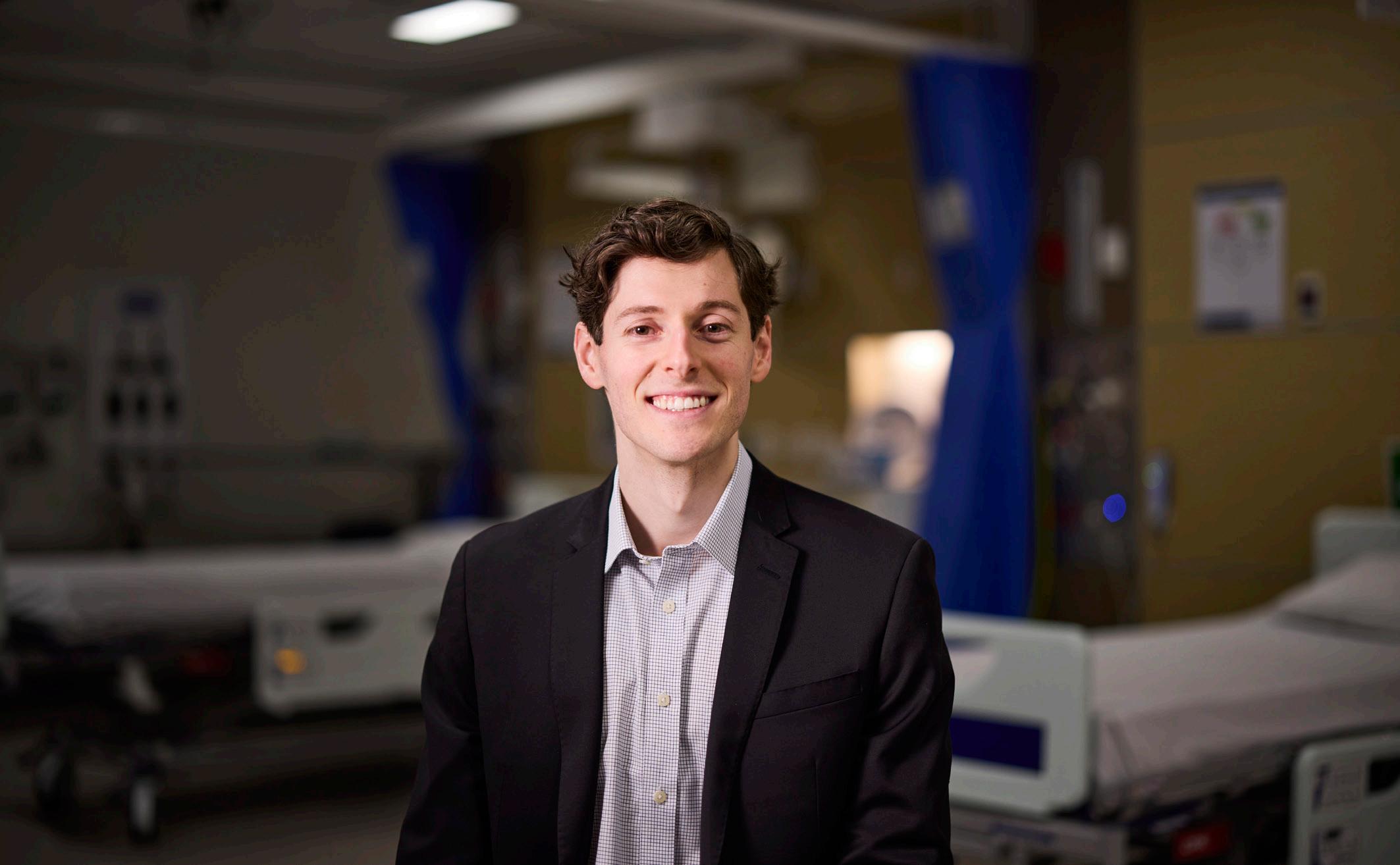
Collaboration is at the heart of Fulbright.
In addition to forging binational relationships, Fulbright creates unique opportunities for interdisciplinary collaboration.
At times, contemporary society and academia lend themselves to subspecialisation, and associated formation of silos.
However, the opportunity to collaborate is often right before our eyes, if we know where to look. Through proactive approaches, diverse collaborations and their downstream effects on scientific discovery and society can be cultivated.
The power of diverse collaborations can be seen at many levels. Taking health as an example, collaboration between distinct specialties can yield novel insights.
Following the Fulbright Orientation and Gala in February 2024, collaborations between medical specialties including neurology, infectious diseases, ophthalmology, dermatology, psychiatry, cardiology, and general surgery have yielded scientific research on diverse topics, including individual reports of how to approach uncommon conditions, through to system-changing implementation of clinician-facing artificial intelligence, and conceptually-challenging examination of near-death experiences. 1-10
Collaboration among geographically diverse centres within a given field can similarly provide unique perspectives. For example, since the beginning of the Fulbright, multiple pieces of work have been undertaken in collaboration between rural and metropolitan Australian doctors on topics including multicultural competence, artificial intelligence, and economics.11-14
Dr Thomas Kelemen received his doctorate from the University of Oklahoma and is currently an assistant professor of management at Kansas State University. His research focuses on leadership, employee extra-role behaviors, and work-family dynamics.
Thomas is the 2024 Fulbright Postdoctoral Scholar, funded by Deakin University. In collaboration with colleagues at Deakin and the University of Melbourne, Thomas’ Fulbright research project focuses on understanding leader imposter syndrome and its implications for underrepresented leaders.
Dr Stephen Bacchi is a neurology registrar with interests in research, clinical practice, and medical education. He completed his medical degree in 2017 and his PhD in 2022, both at the University of Adelaide. Stephen is currently a Senior Lecturer at Flinders University. He has worked clinically at the Royal Adelaide Hospital, Queen Elizabeth Hospital, Flinders Medical Centre, and Lyell McEwin Hospital. Stephen’s areas of research interest include healthcare systems and machine learning.
As a 2024 Fulbright Future Scholar at Massachusetts General Hospital and Harvard Medical School, Stephen will seek to advance the evaluation of unconsciousness.
Work involving individuals with expertise in entirely separate fields, such as economics, law, and psychology, can enable researchers to examine their own field in a new light. Entrenched problems, such as hospital overcrowding, access block, and “ramping”, are exactly the type of issue that may benefit from such novel perspectives.15
Given the apparent benefits of interdisciplinary work, the question therefore arises, how to best create and develop such teamwork. At times such collaborations may seem serendipitous.
However, serendipity is not the same as chance luck and theory and research on serendipity suggests at least two key ways individuals can proactively create more serendipitous encounters and collaborations.16, 17
First, be alert and curious. We need to avoid functional fixedness and embrace the reality that many solutions to our problems exist on the periphery.
Knowledge does not typically grow in a linear fashion and being open and alert to others can enhance one’s serendipity. Second, look for how things connect.
What some see as random, others may see as ordered. On the surface, a medical doctor and organizational scientist may appear to have little in common, but, upon closer inspection, they may find that they are both striving to improve the well-being others, albeit from different approaches. In addition to embracing serendipitous encounters by being alert and making connections, proactive behaviours and strategies can be employed to increase the likelihood of productive collaboration. For example, physical environments that do not focus on existing groups and do not reinforce group boundaries, have been associated with increased collaboration.18
At an individual level, flexibility, leadership skills, and a willingness to cooperate have been associated with increased collaboration.19
"The opportunity to collaborate is often right before our eyes... if we know where to look."
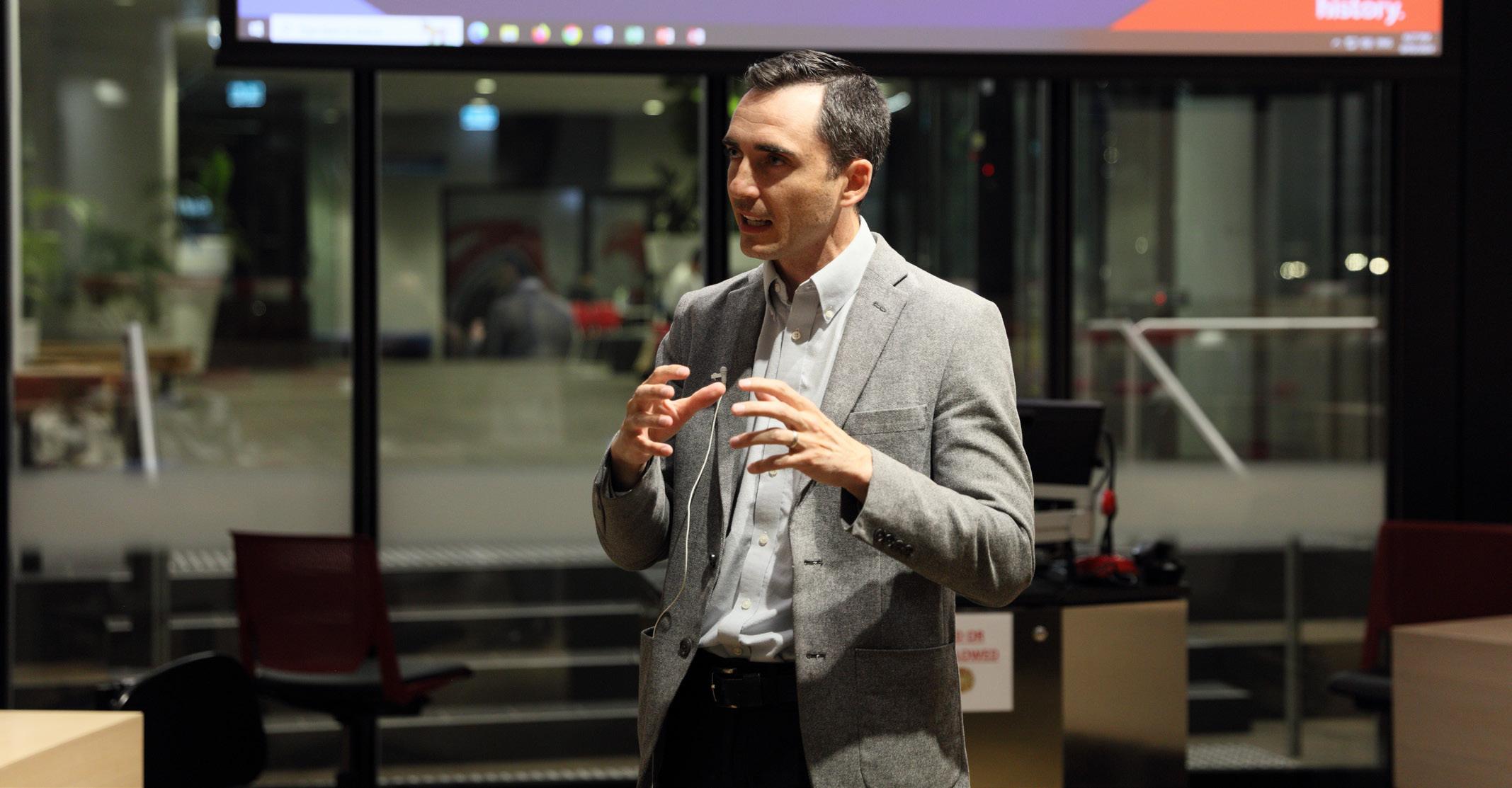
Once commenced, oftentimes such interdisciplinary groups will naturally grow to deliver future benefits. However, the utilisation of deliberate strategies to maintain collaborative relationships may also be beneficial.
Such approaches need to heed the time-limitations, and overflowing inboxes, of busy professionals, and potential differences in calendar commitments (e.g., international time zones). Therefore, while regular online meetings may seem like a default option, they are often not opportune. A potential alternative approach is the asynchronous distribution of mutually interesting information.
For example, the use of group-messaging functions on smartphones may enable the sharing of articles and podcasts, thus promoting awareness of relevant topics and fruitful academic discussion. Academic social media usage has also provided a means to promote such forums for communication, although such social media groups often adhere to individual specialty interest areas.
Undertaking shared projects that are conducted over many years, such as prospective cohort studies, can be one way to facilitate long-term collaboration.
However, more frequent, smaller opportunities to work together, such as invited journal club presentations, can also provide a means to stay connected with diverse collaborators.
All these considerations are relevant to the issue of siloing. While polarisation and siloing are perhaps most commonly discussed in the setting of government elections, they are a significant consideration in academia and medicine.
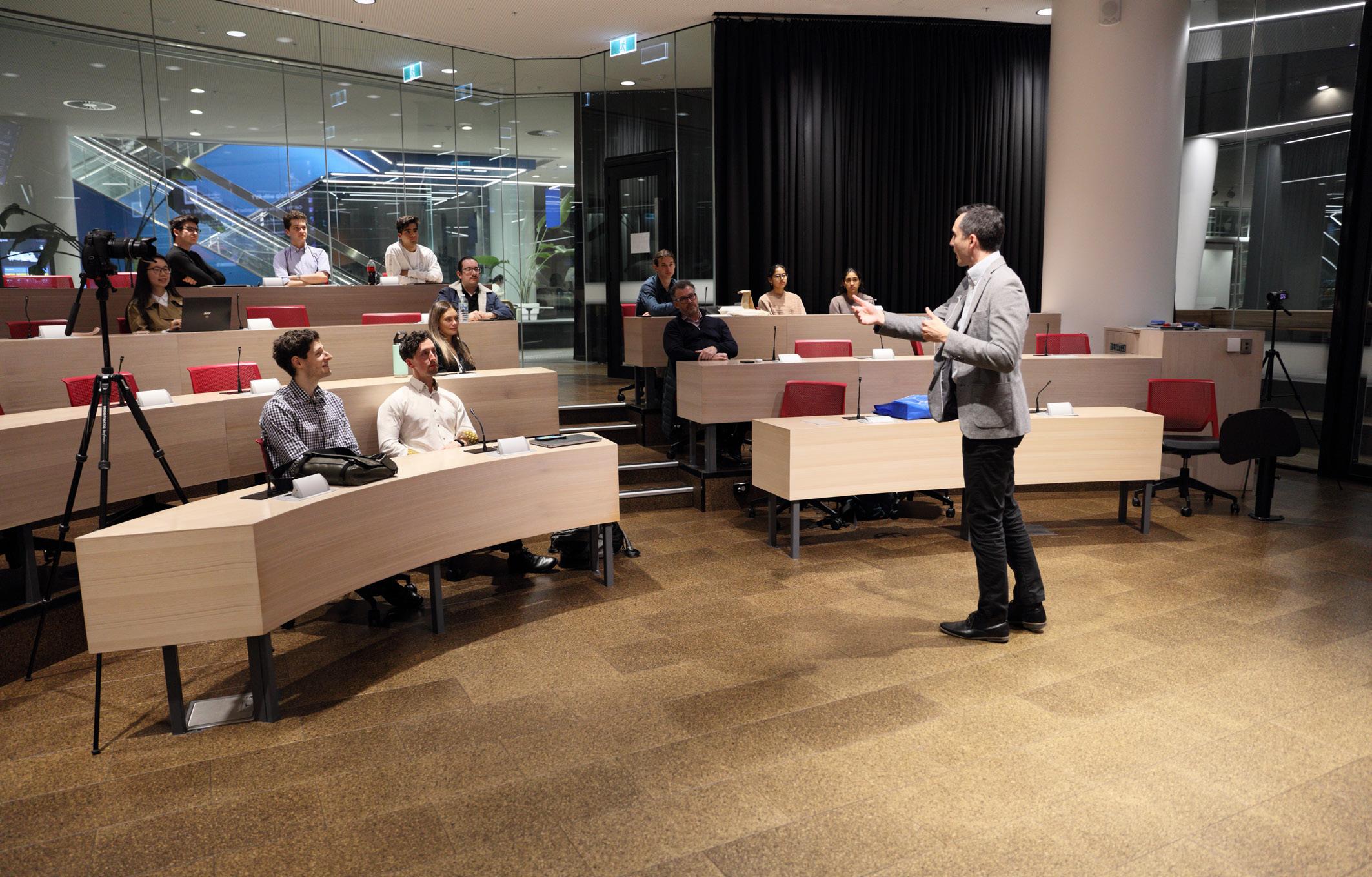
When we focus only on our own delimited domain, we run the risk of losing sight of the larger picture, and potential opportunities for societal benefit. Interdisciplinary teamwork is one way to help overcome siloing.
By working across groups who otherwise may not be in communication, the sharing of approaches and ideas is enabled. This type of collaboration may also reduce duplication of work, which is being conducted in similar fields in different locations, thereby increasing research efficiency.
Ultimately, novel insights may be obtained when working with individuals who contribute distinct skills, experiences, and viewpoints to those who conventionally engage with content in a given field.
The potential benefits of promoting increased interdisciplinary collaboration are vast. At times, some diverse collaborations may not be intuitive or may deviate from conventional approaches.
A degree of courage, and the proactive deliberate utilisation of strategies to promote effective collaboration, can help to realise the possibilities offered by such teamwork.
The Fulbright embodies and exemplifies such opportunities.
References:
1. Jiang M, Guo C, Bacchi S. Once bitten, twice shy: Antimicrobial stewardship in the setting of arthropod-associated superficial lymphangitis. *Aust J Gen Pract*. 2024.
2. Satheakeerthy S, Stretton B, Booth A, et al. Push or pull? Digital notification platform implementation reduces dysglycaemia. *Intern Med J*. 2024.
3. Bunjo LJ, Bacchi S, Pietris J, Chan WO. Current management of refractory postoperative cystoid macular edema: A systematic review. *Surv Ophthalmol*. 2024;69:606-21.
4. Kovoor JG, Santhosh S, Stretton B, et al. Near-death experiences after cardiac arrest: A scoping review. *Discov Ment Health*. 2024;4:19.
5. Muecke T, Bacchi S, Casson R, Chan WO. Real-world impact: Holistic analysis of author-level publication metrics. *Clin Exp Ophthalmol*. 2024.
6. Muecke T, Usmani E, Bacchi S, et al. Diversity, equity, and inclusion in CVs for specialty training. *Asia Pac J Ophthalmol (Phila)*. 2024.
7. Muecke T, Macri C, Bacchi S, Chan WO. Improving journal selection for ophthalmic researchers: Metrics approaches. *Clin Exp Ophthalmol*. 2024.
8. Muecke T, Rao A, Walker H, et al. Specialists of tomorrow: Evidence for selection criteria in training processes. *Discov Educ*. 2024;3.
9. Stretton B, Booth AEC, Satheakeerthy S, et al. AI-led optimization of discharge processes. *Intern Emerg Med*. 2024.
10. Toru Asahina A, Lu J, Chugh P, et al. Prognostic value of paramagnetic rim lesions in multiple sclerosis: A systematic review. *J Clin Neurosci*. 2024;129.
11. Carmichael GJ, Stretton B, Jacobsen JH, et al. Multicultural competence in rural Australian surgical systems. *Aust J Rural Health*. 2024;32:853-55.
12. Kovoor JG, Ittimani C, Godber H, et al. Preventing false economies in AI implementation for rural healthcare. *Aust J Rural Health*. 2024;32:408-10.
13. Kovoor JG, Stretton B, Gupta AK, Bacchi S. Lessons from natural language processing in South Australia for rural healthcare. *Aust J Rural Health*. 2024;32:850-52.
14. Muecke T, Bacchi S, Casson R, Chan WO. Rural exposure weighting in CV scoring for Australian specialty training. *Aust J Rural Health*. 2024.
15. Cook B, Evenden J, Genborg R, et al. A brief history of ramping. *Intern Med J*. 2024.
16. de Rond M. The structure of serendipity. *Culture Organ*. 2014;20:342-58.
17. Busch C. Towards a theory of serendipity: A systematic review and conceptualization. *J Manag Stud*. 2022;61:1110-51.
18. Irving G, Ayoko O, Ashkanasy N. Collaboration and serendipitous encounters in workplace design. *Organ Stud*. 2020;41:1123-46.
19. Bedwell WL, Wildman JL, DiazGranados D, et al. Collaboration at work: An integrative multilevel conceptualization. *Hum Resour Manag Rev*. 2012;22:128-45.

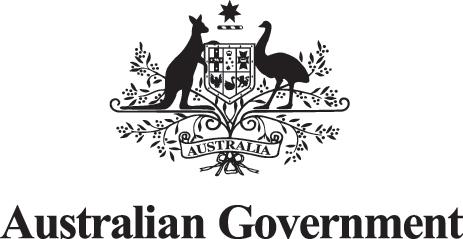
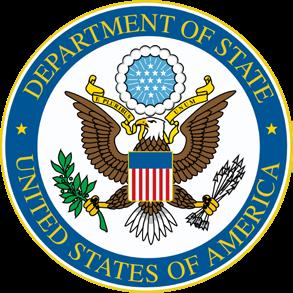
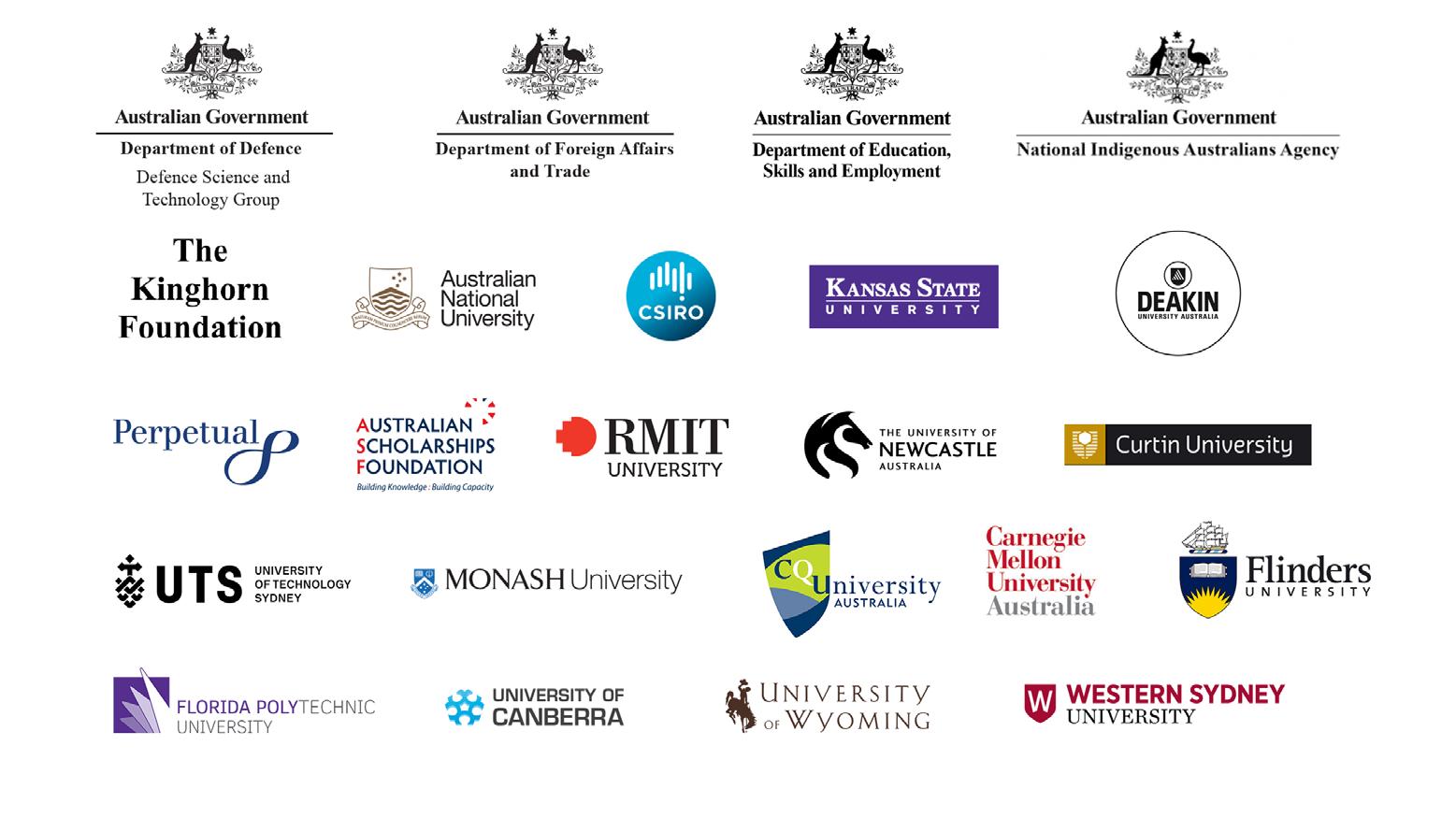

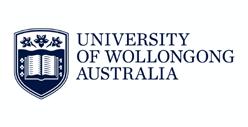



Fulbright.org.au